

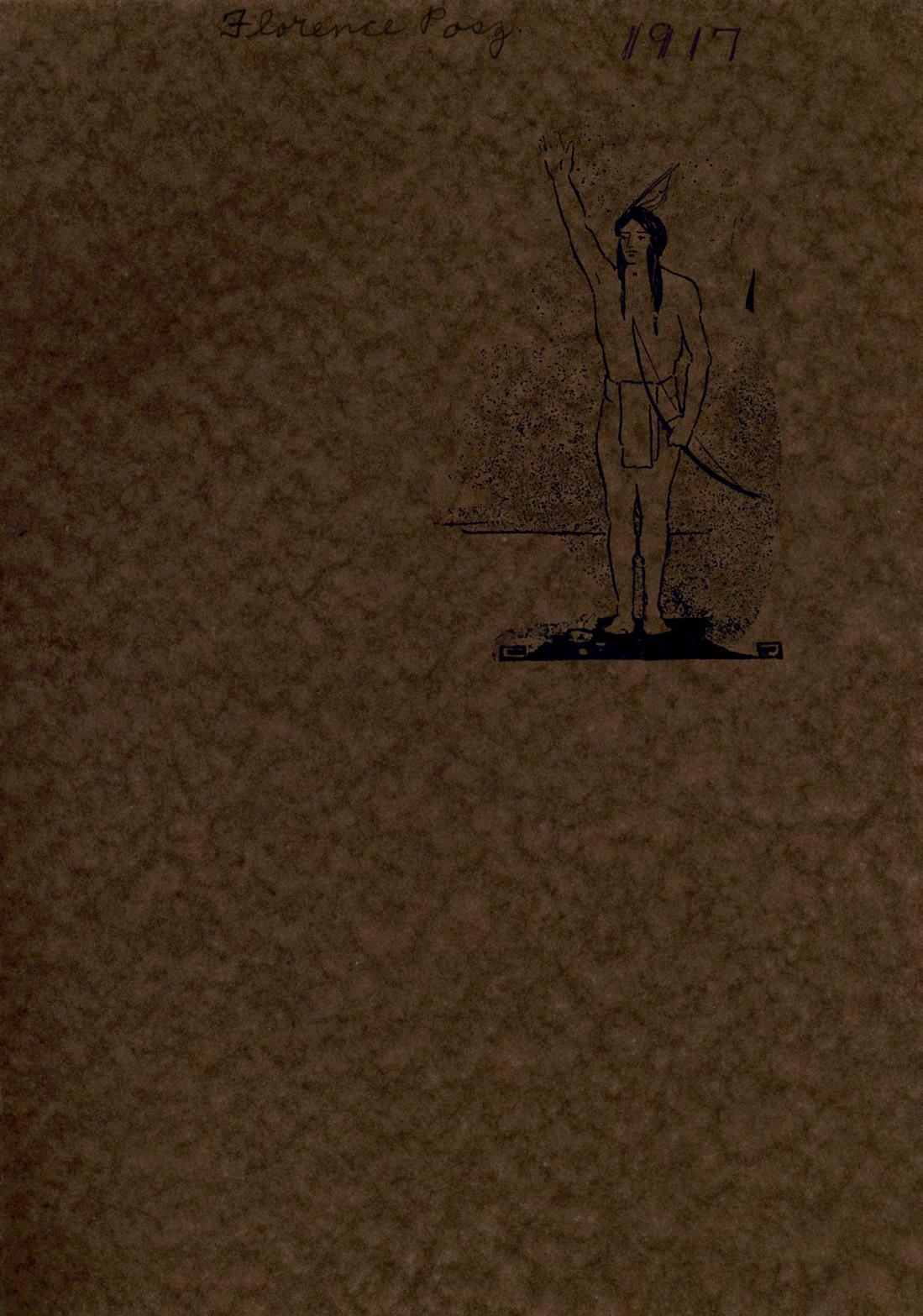

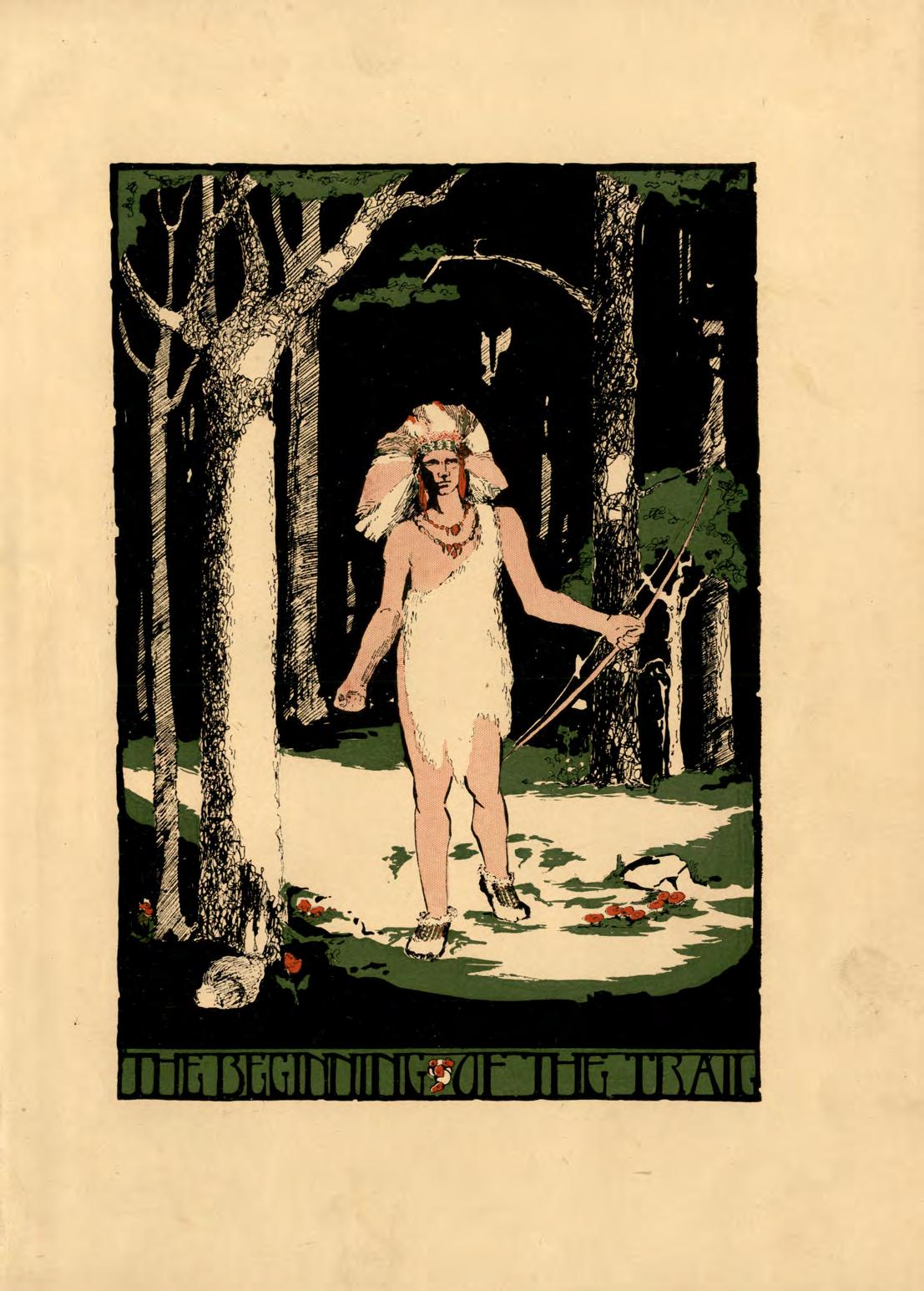

Lvcï
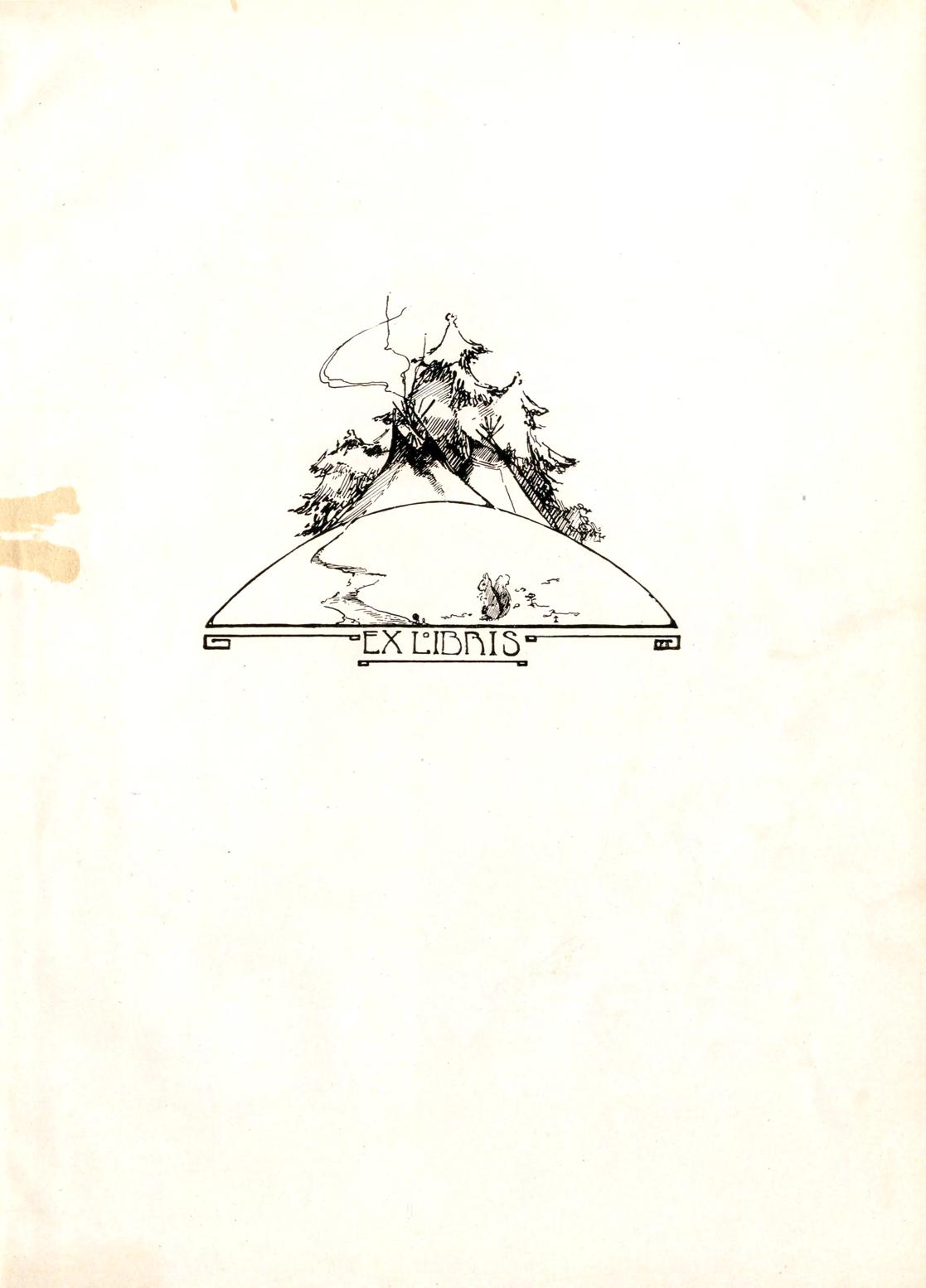
ZX CIDÍMS*"
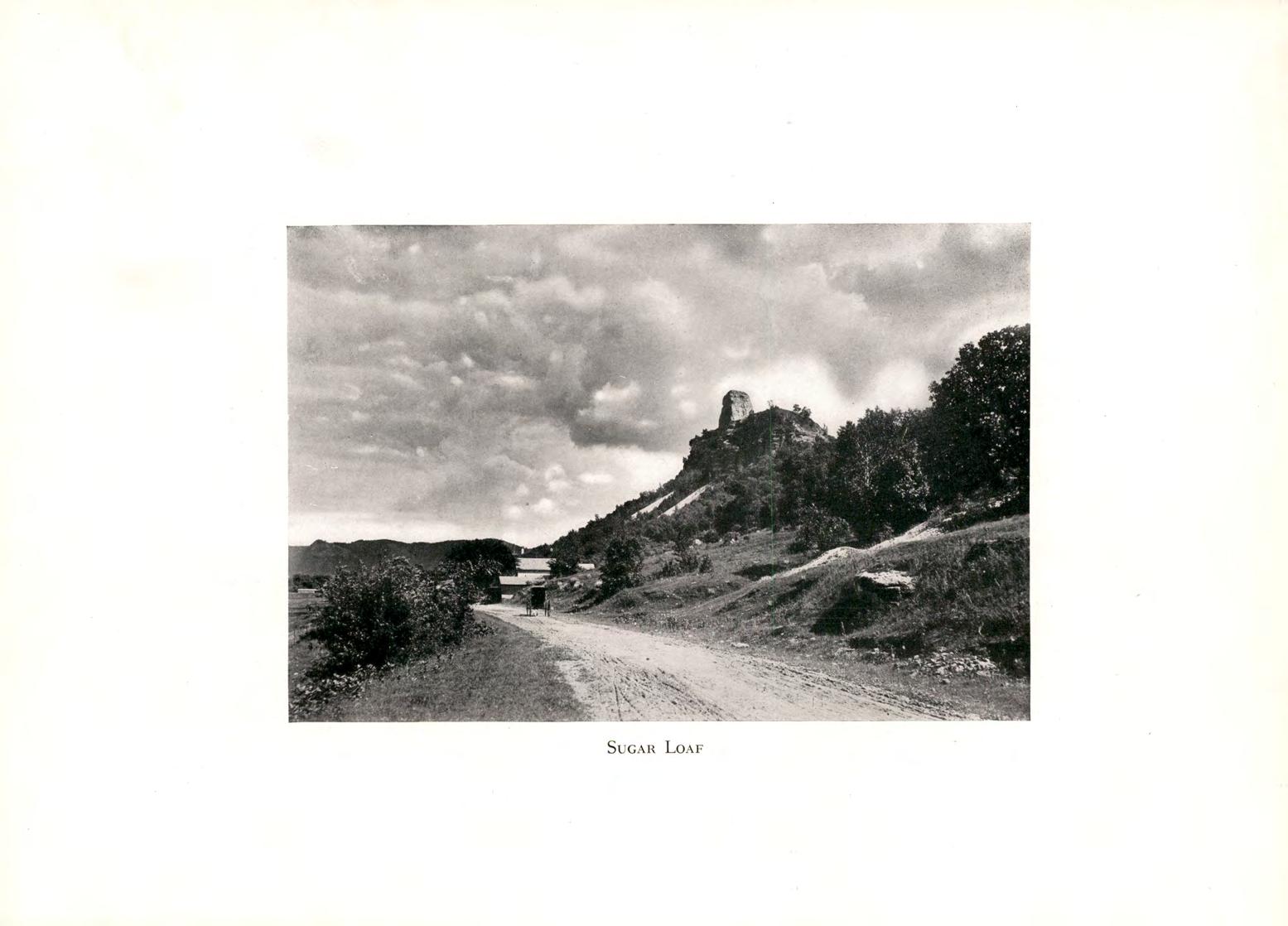 Sugar Loaf
Sugar Loaf
Elbert hubbard says that editors are people whose business it is to separate the wheat from the chaff and see that tl: e chaff gets printed. We have tried conscientiously to live up to this definition, but we believe that in spite of our best efforts a little wheat has sifted in. We hope you think so too.
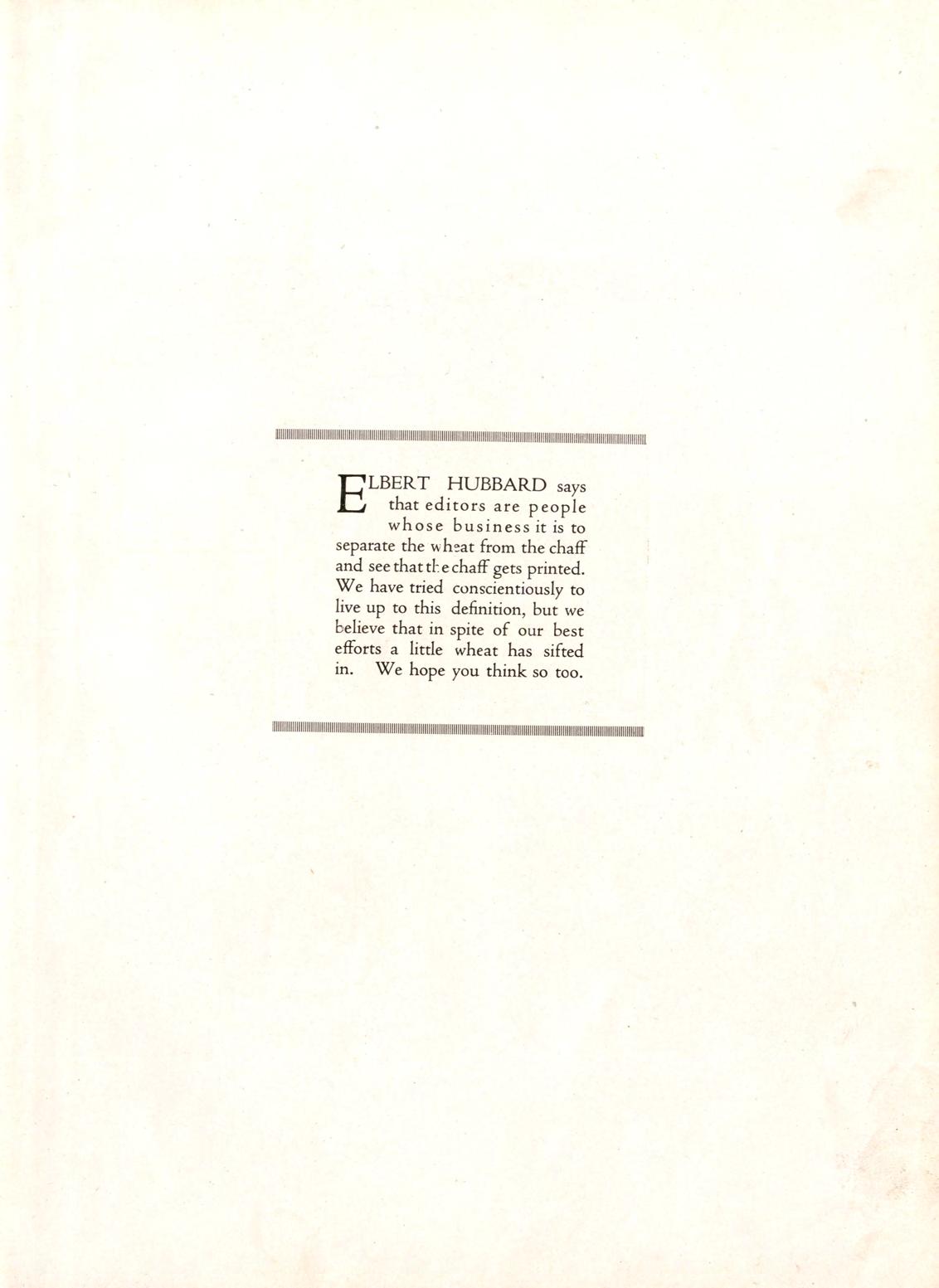
DEDICATION
l!llllll¡lllllllllllllllllll!llllllllllllllllllllllllllllllllllllllllllllllllllllllllllllllllliy^
To MISS E. LOUISE GUERNSEY
WITH RESPECT FOR HER ABILITY, WITH APPRECIATION OF HER KINDNESS, AND WITH GRATITUDE FOR HER SERVICES, THIS 1917 "WENONAH” IS DEDICATED
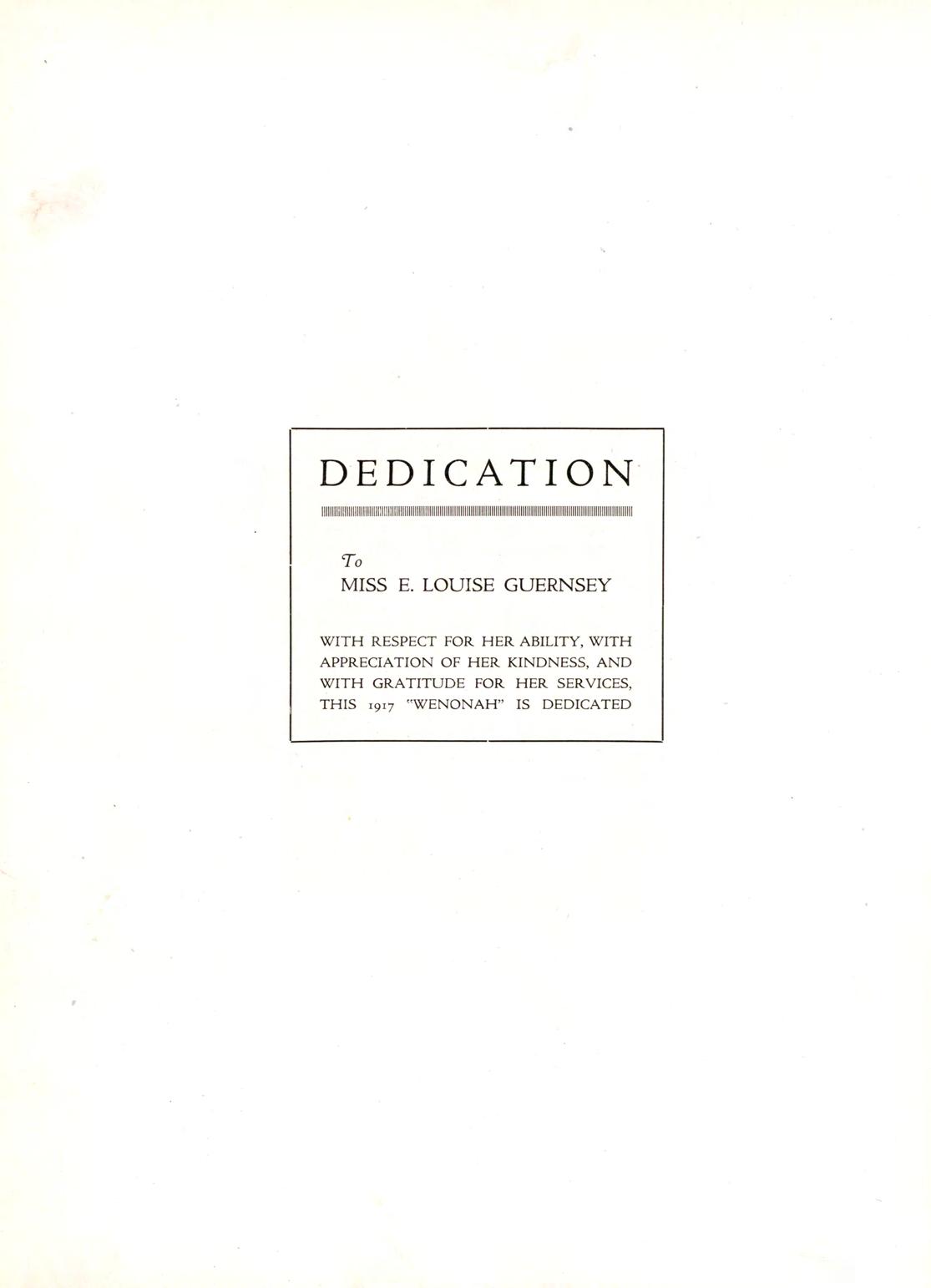
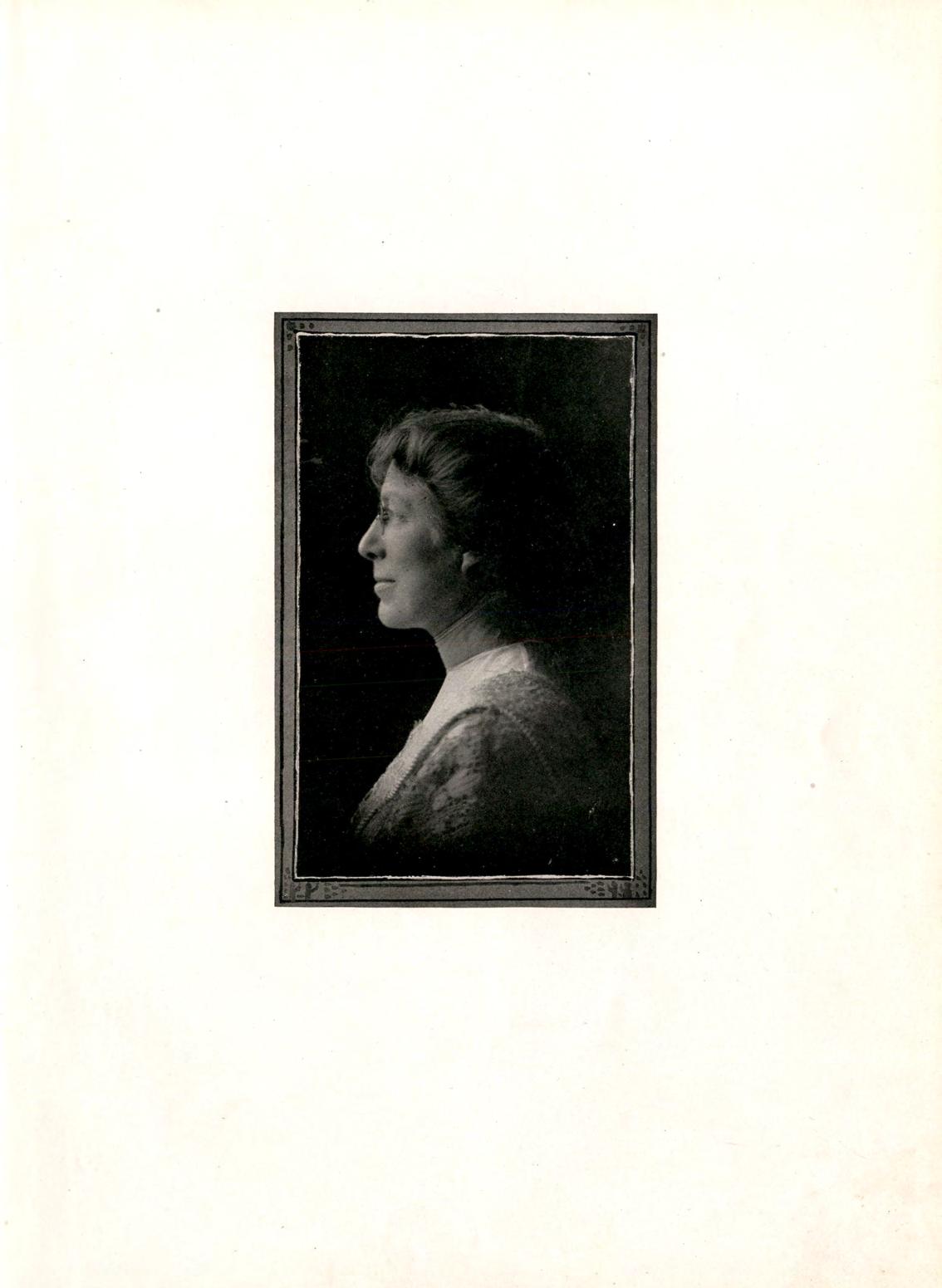
'I^ATRIOTS are men who love America so that they would give their lives for it, and never care whether anybody heard that they had given their lives for it; willing to die in obscurity, if only they might serve. Those are the men, and nations like those men are the nations that are going to serve the world and save it.”
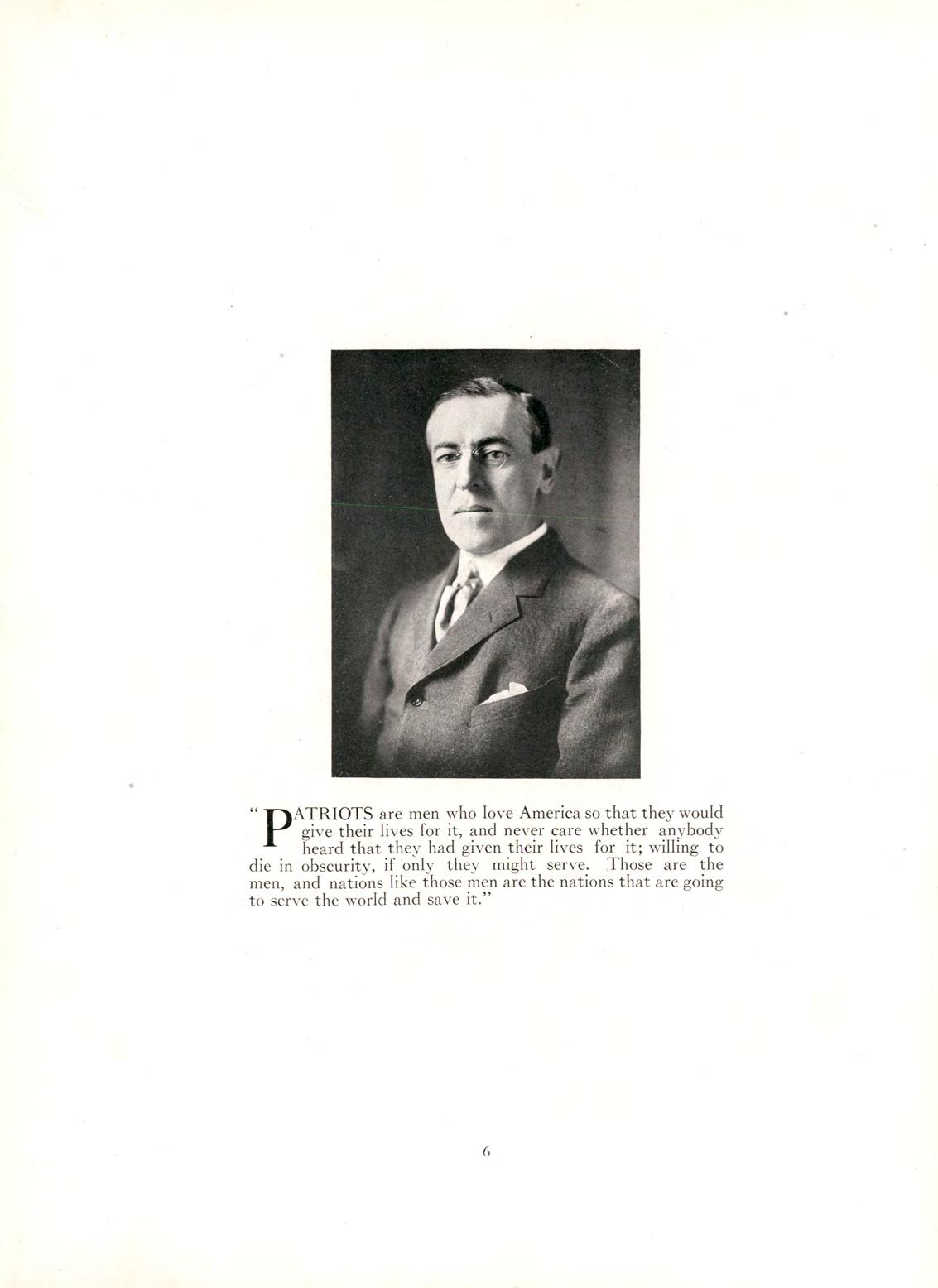
6
The hand of war has reached across the sea To grasp the sacred rights we hold so dear. The bony, gripping fingers lust to hold The nation’s honor in their deathlike clutch, And crush its life as they have crushed their own. Great, deadly, unseen traps are set to spring Upon the ship that bears their luckless prey. While »n the threatened land lurk scheming spies Who plot to soil the honor of our land. With noble purpose and with faith secure. No thought of conquest or material gain. The nation has stood bravely up to guard Her principles of justice and of peace. Her aim is high, her cause a holy one; With cry that true democracy might live. Her patriot sons have taken up the task To liberate the world, that all may live In peace to choose their cherished way of life. With loveand honor for the stars and stripes

The heroes true have gladly pledged their lives Without a thought of self—to die obscure. Each man a link in one unyielding chain To bind the cruel, monstrous hand of war— To serve, to save, to die, and gladly die. Sustained to know the flag of Liberty Shall wave a healing balm to all the world.
Louise Winslade.
Editorial
AS this goes to press, we know that our country has actively engaged in war; and we do not feel that our book would be complete without mention of the situation in which we find ourselves politically.
A few weeks ago, Mr. Hosmer of Utica, Miss., spoke to us on the work being done in the South in the cause of negro education by Prof. Holtzclaw. He explained that this man, a negro graduate of Tuskegee, had started without money or friends, and stated that he had accomplished his purpose of building a school for illiterate negroes by the force of the vision which he had. In spite of the courage necessary to enable a speaker (or an editor) to use that much-abused word seriously, we venture not only to agree with him, but to recommend the use of the same sort of vision in our national dealings; to recommend that the “liberty, justice and humanity” talk we hear whenever the flag is displayed be made practical. No one thinks it sentimentalism to say that the flag stands for a variety of heroic sentiments. It is only when a man tries to make it stand for these sentiments, or acts on the principle that it does stand for them, that he is decried as a sentimentalist.The word “vision” is employed by every stump politician. He will point to the flag draped around his picture, and announce that where there is no vision the people perisheth; and we applaud him rapturously, and vote for him for the sake of visionary platforms. But if a man attempts to enforce this conviction we call him a dreamer. It is the stump politician who is a dreamer, and a sentimentalist: this man is trying to work m realities.
But there are some of us who would applaud and then act. We believe that the flag does stand for liberty, for justice—in a word, for humanity. We believe that where there is no vision the people do perish; and we are afraid that the United States may lose its vision as the war progresses. “While we do these things let us be very clear and make very clear to all the world what our motives and our objects are. Our object is to vindicate the principles of peace and of justice in the life of the world, as against selfish and autocratic power.” We believe, to be sure, that according to international law we are justified in fighting; and that according to popular morality we are forced to it. But during the terrible war that is upon us, let us never lose sight of what we are fighting for. Other nations may fight for conquest, but not America. They may wage war in selfishness, in narrow patriotism, but we cannot. We stand before the world, the avowed and accepted champion of brotherhood. We have not made this claim as a poetic conceit or a conventional but harmless boast. We have made it because we believed it. It has made our country more than a nation, and our love for it more than patriotism. We have made it because we believed that, more than any other country, we had a right to it.
Let us remember that our origin and existence as a nation are different from those of any other country. The Germans in Europe may get together and fight the French in Europe, the European English may disconcert the European Turk—but we propose to set against Germany forces made up of Germans. We say they are Americans now, and so they are—Germany has contributed them to us. Every nation has helped to make up that vast, harmonious consolidation—America. To be an American is to be first something else. To be a loyal American is not to love a certain amount of land and water, or the people who live within its boundaries, or even a certain form of government. The most patriotic American is the cosmopolitan. The truest citizen is the most ardent advocate of humanity. The loyal German must love Germany, and the loyal Frenchman must love France; but the loyal American must love the world.
Let us hold this in mind when we take up arms against Germany. We are not fighting the people of Germany. We cannot, without giving up this greatest of our traditions, for the sake of which we have already given up the Monroe Doctrine and the policy of keeping clear of foreign entanglements. Neither are we fighting Germany as a personal enemy but as a foe to liberty. And we are not allies of any nation that may fight for a national interest, but only of the nations that fight for interests common to all. If we win, our only indemnity shall be the establishment of democracy in the lands we will have conquered, and for ourselves “a great reunion with our foe.”
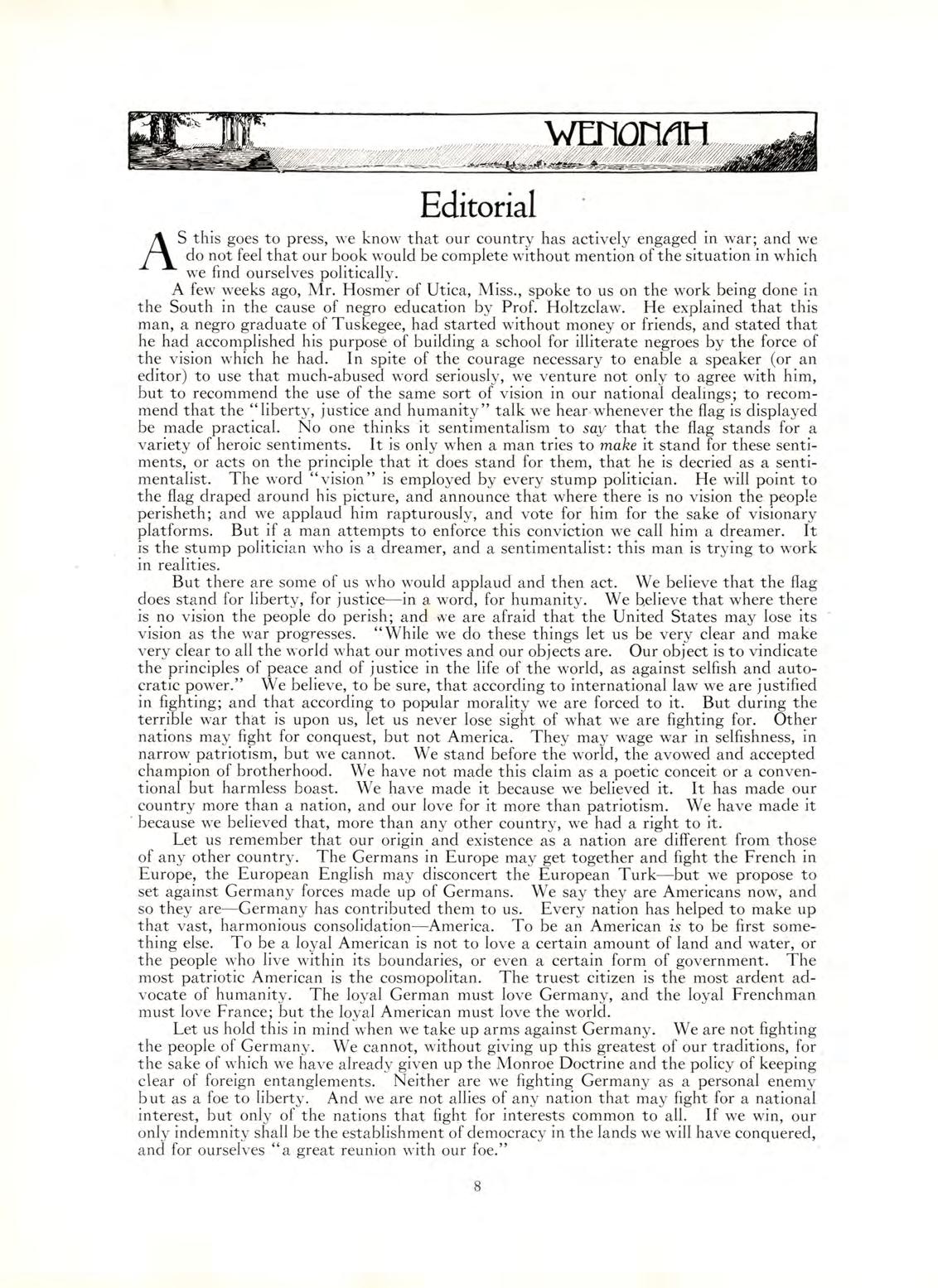
8
OUR SOLDIERS

OLIVER M. DICKERSON
PAUL BAUMGARTNER
HENRY MUENCH
ARTHUR GALLIEN
MORTON WHEELER
LEO RYAN
WALTER NISSEN
SIDNEY PAGE
RICHARD GOING
9
“ Prexy ”
The chief function of an Annual, for outsiders, is to boast of the assets of the school it represents. We hope that all outsiders who have the ehanee will read this, beeause it tells about our prineipal asset. President Maxwell. We do not chiefly aim to convince you that we have a good president, because you know that. We want to convince you that we know that we have a good president. Also we want to convince Mr. Maxwell that we know it.
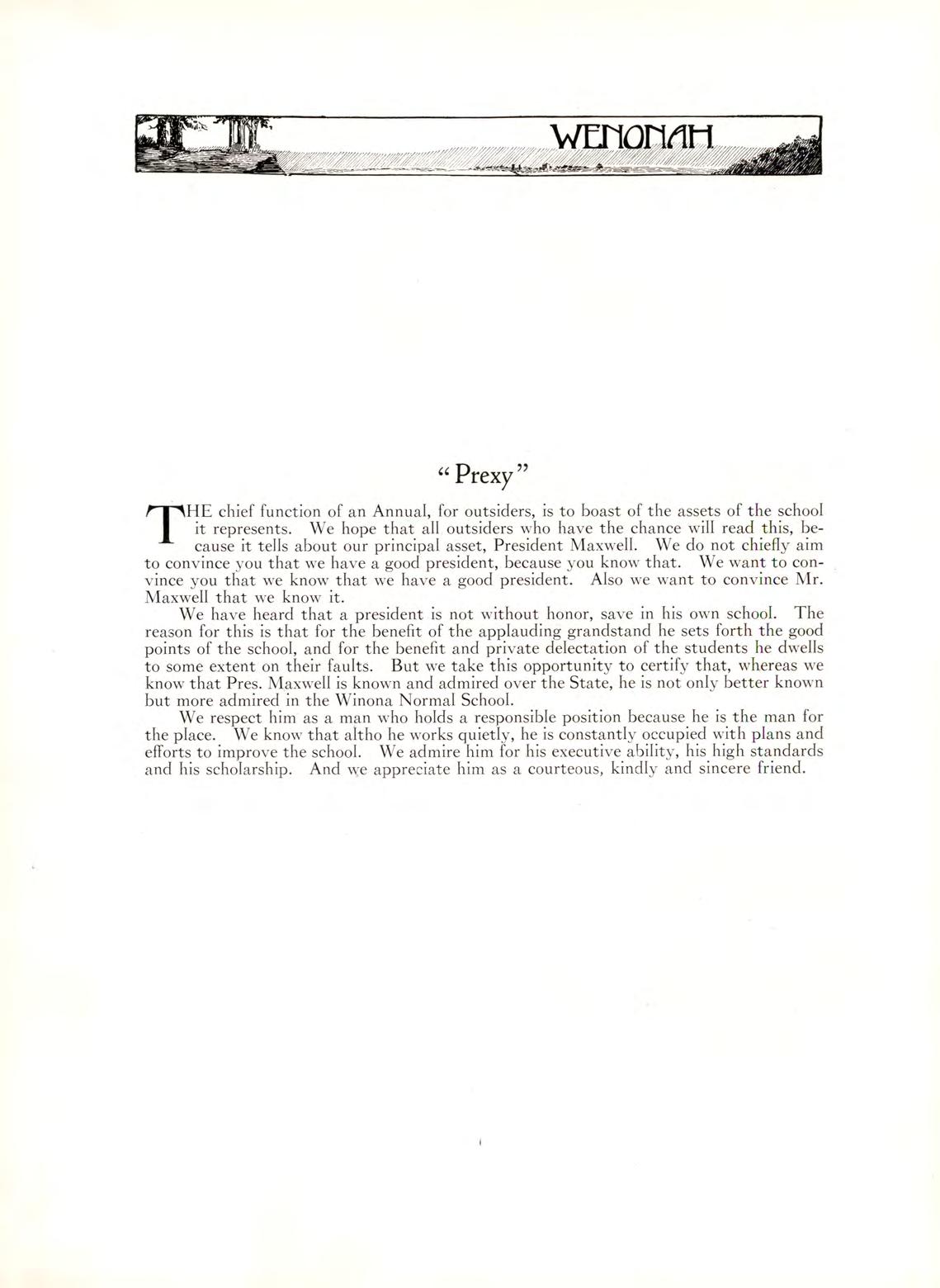
We have heard that a president is not without honor, save in his own school. The reason for this is that forthe benefit of the applauding grandstand he sets forth the good points of the sehool, and for the benefit and private deleetation of the students he dwells to some extent on their faults. But we take this opportunity to certify that, whereas we know that Pres. Maxwell is known and admired over the State, he is not only better known but more admired in the Winona Normal Sehool.
We respect him as a man who holds a responsible position because he is the man for the plaee. We know that altho he works quietly, he is constantly occupied with plans and efforts to improve the sehool. We admire him for his executive ability, his high standards and his scholarship. And we appreciate him as a eourteous, kindly and sineere friend.
rACilUTY
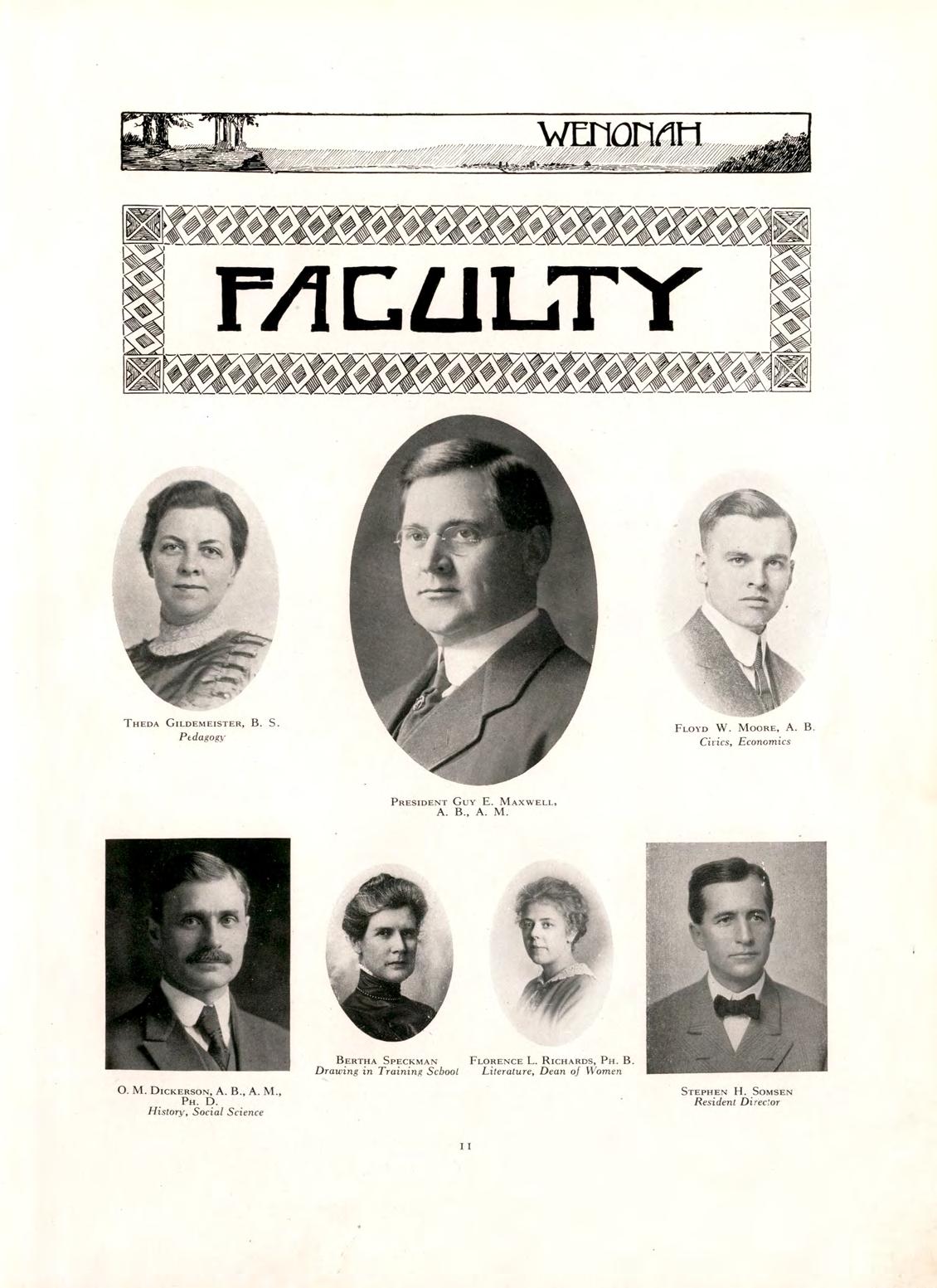
11
O. M. Dickerson, A. B., A. M., Ph. D. History, Social Science
Stephen H. Somsen Resident Director
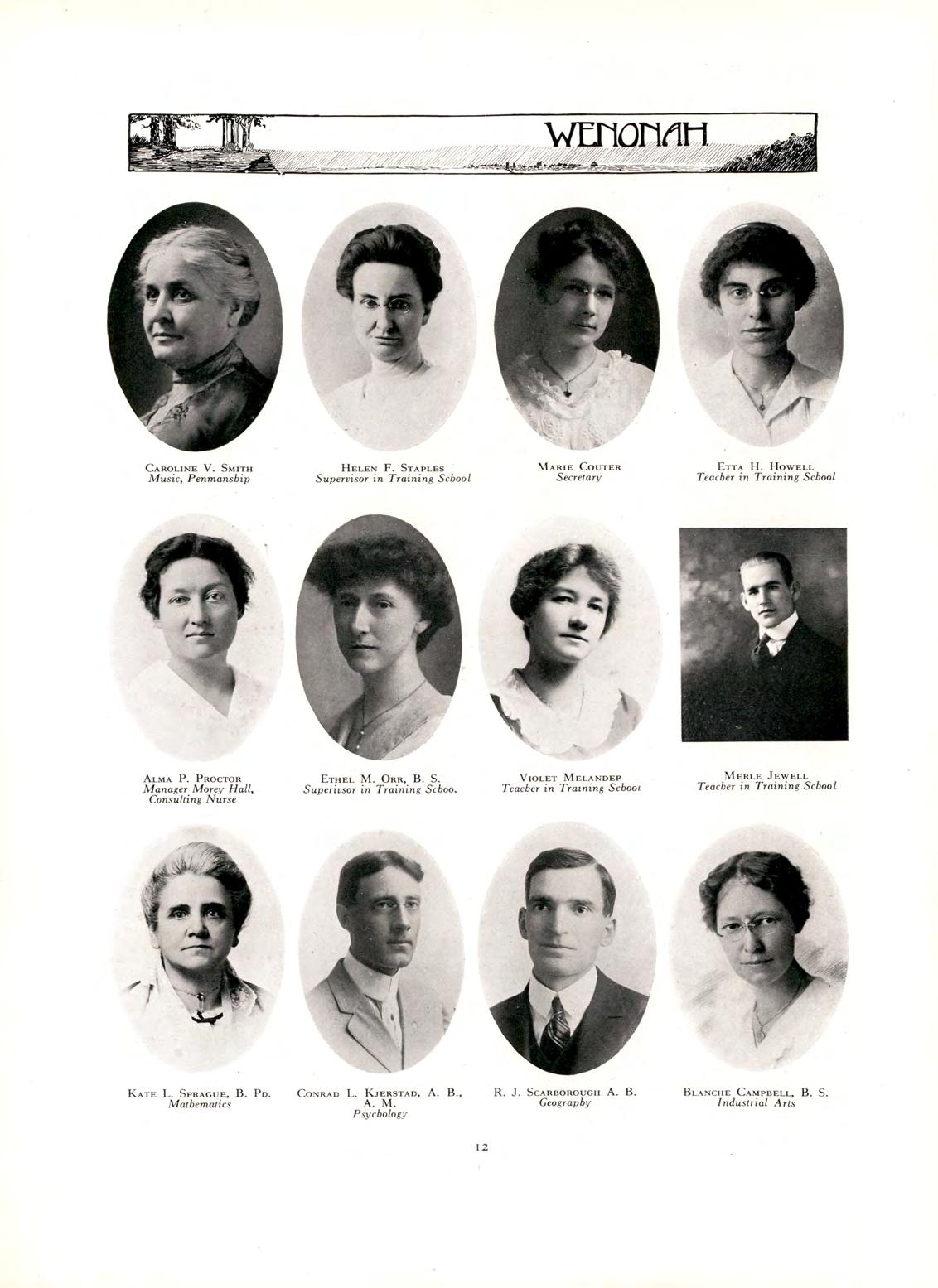
12
Caroline V. Smith Music, Penmanship
Helen F. Staples Supervisor in Training School
Marie Coûter Secretary
Etta H. Howell Teacher in Training School
Alma P. Proctor Manager Morey Hall, Consulting Nurse
Ethel M. Orr, B. S. Superivsor in Training Schoo,
Violet Melandep Teacher in Training School
Merle Jewell Teacher in Training School
Kate L. Sprague, B. Pd. Mathematics Conrad L. Kjerstad, A. B., A. M. Psychology
R. J. Scarborough A. B. Geography
Blanche Campbell, B. S. Industrial Arts
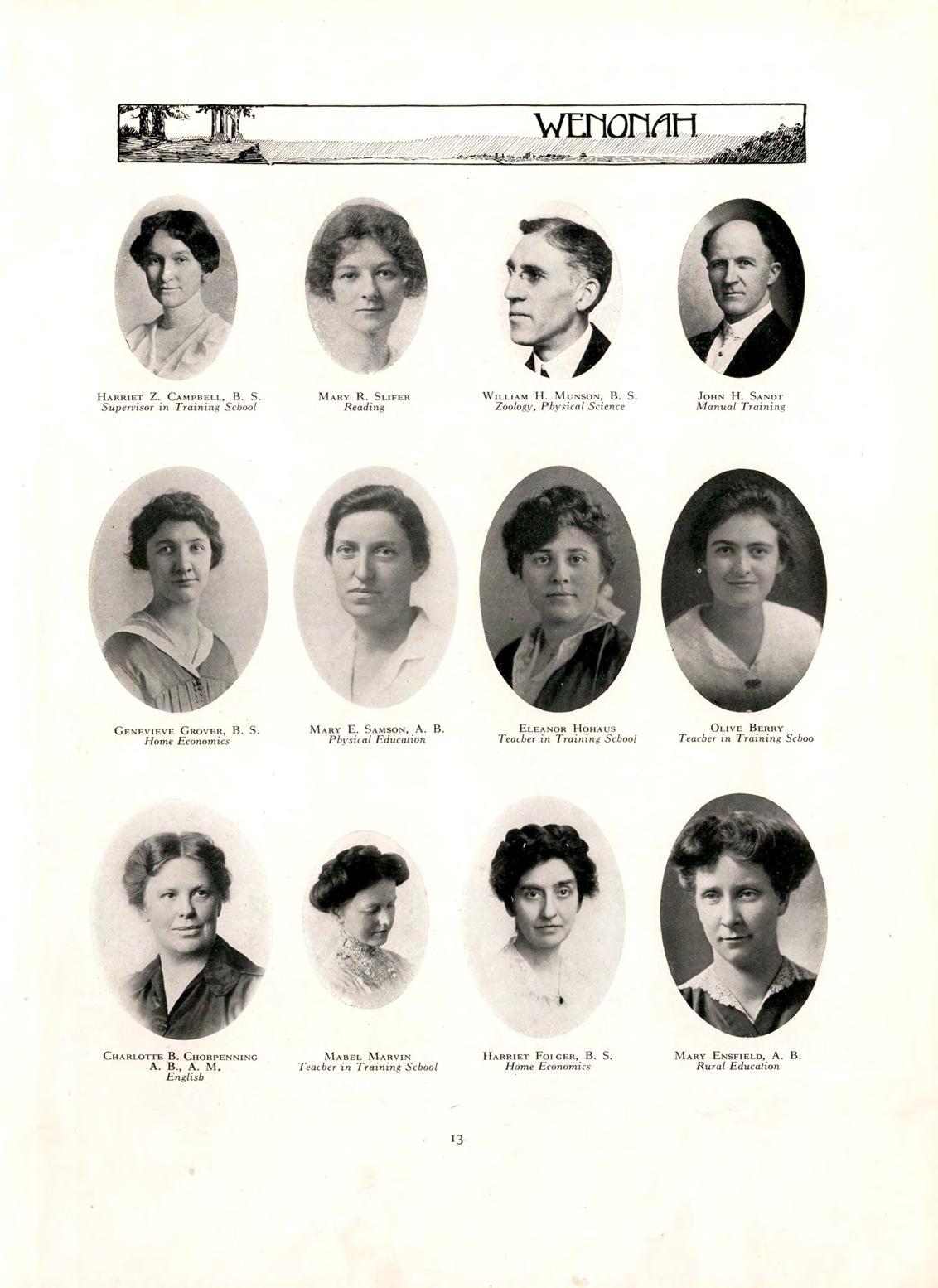
13
Harriet Z. Campbell, B. S.
Mary R. Slifer Supervisor in Training School Reading
William H. Munson, B. S. Zoo/ogy, Physical Science John H. Sandt Manual Training
Genevieve Grover, B. S. Home Economics
Mary E. Samson, A. B. Physical Education
Eleanor Hohaus Teacher in Training School
Olive Berry Teacher in Training Schoo
Gharlotte B. Chorpenning A. B., A. M. English
Mabel Marvin Teacher in Training School
Harriet Foi ger, B. S. Home Economics
Mary Ensfield, A. B. Rural Education
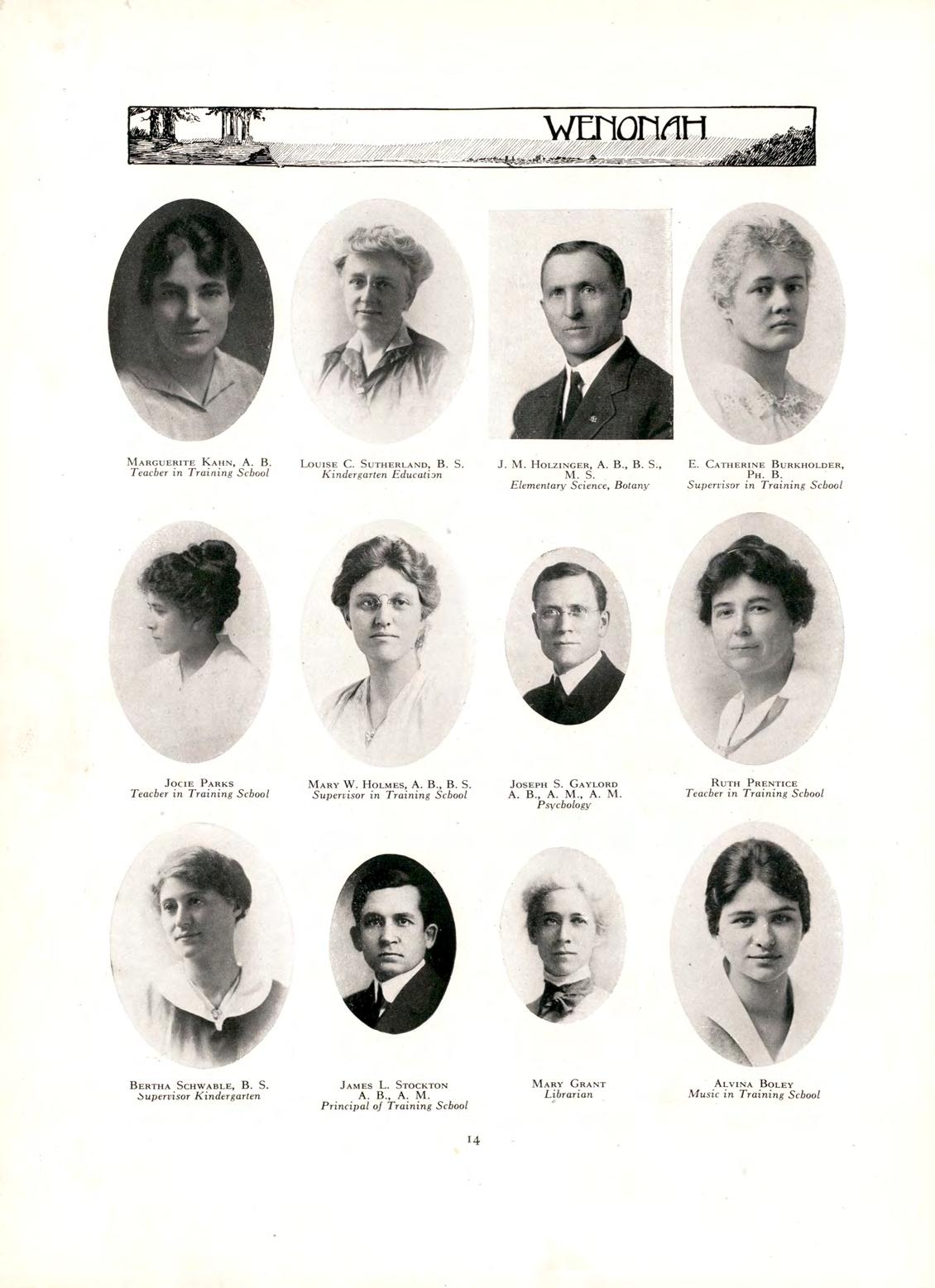
14
Marguerite Kahn, A. B. Teacher in Training, School
Louise C. Sutherland, B. S. Kindergarten Education
J. M. Holzinger, a. B., B. S.,
E. Catherine Burkholder, M. S. Ph. B. Elementary Science, Botany Supervisor in Training School
JociE Parks Teacher in Training School
Mary W. Holmes, A. B., B. S. Supervisor in Training School
Joseph S. Gaylord A. B., A. M., A. M. Psychology
Ruth Prentice Teacher in Training School
Bertha Schwable, B. S. Supervisor Kindergarten James L. Stockton A. B., A. M. Principal of Training School
Mary Grant Librarian
Alvina Boley Music in Training School
ojr o^n -
m SWÏÏIM 'll LIS ML sut
mM'S M mm wim ïïir mm^m/
H mimr'itBi^t usoifirEEr 5tmWW
=m= ÏÏ1IS is ouR c)^
qiR m to DCftnD yoli in hlcd
(m BE ouftvision m rum vm
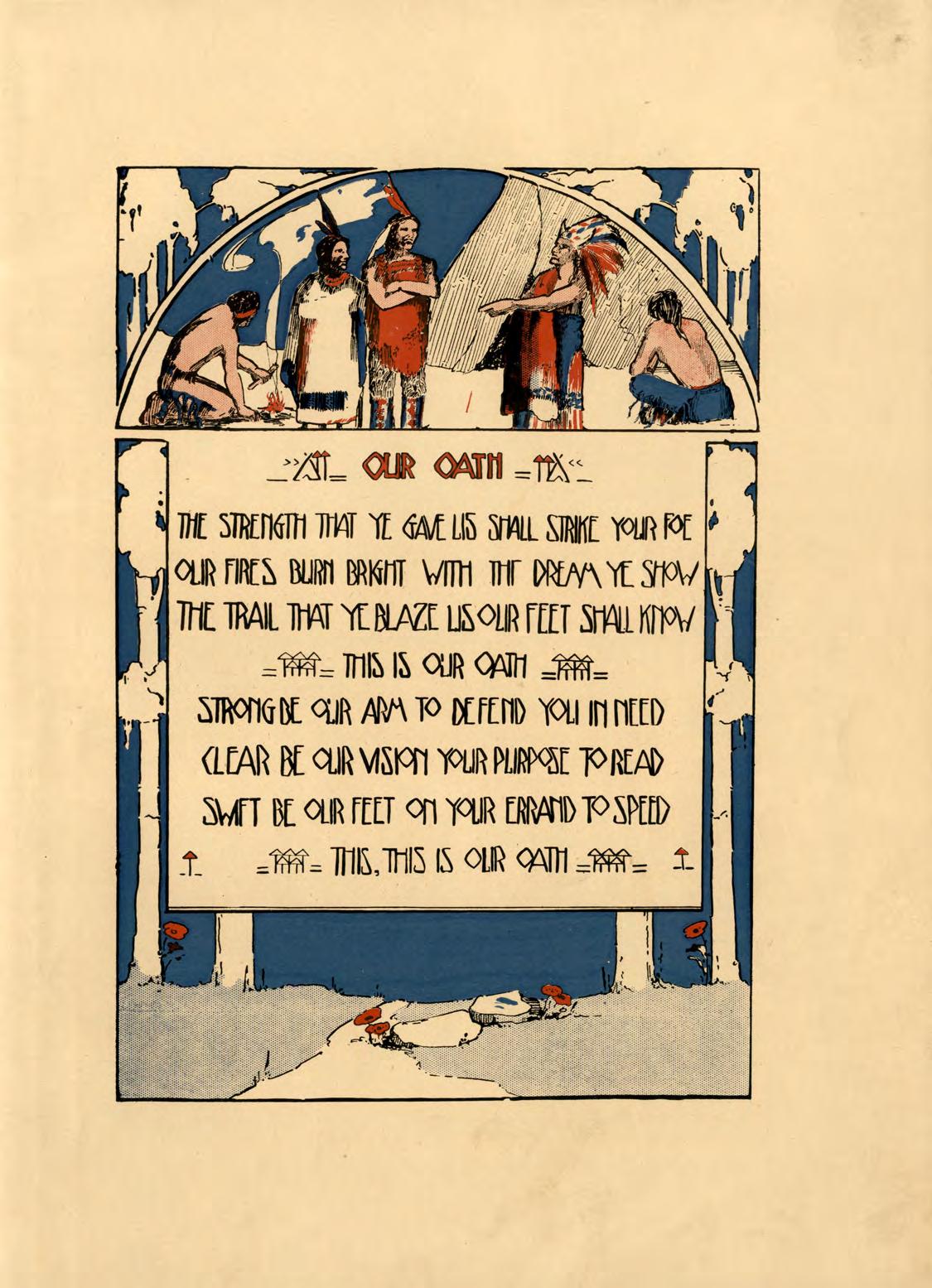
MT BE OLIR fEET on YOUR DMIBTOSREED
t niis,ini5 is oiiR <m =m= x

\
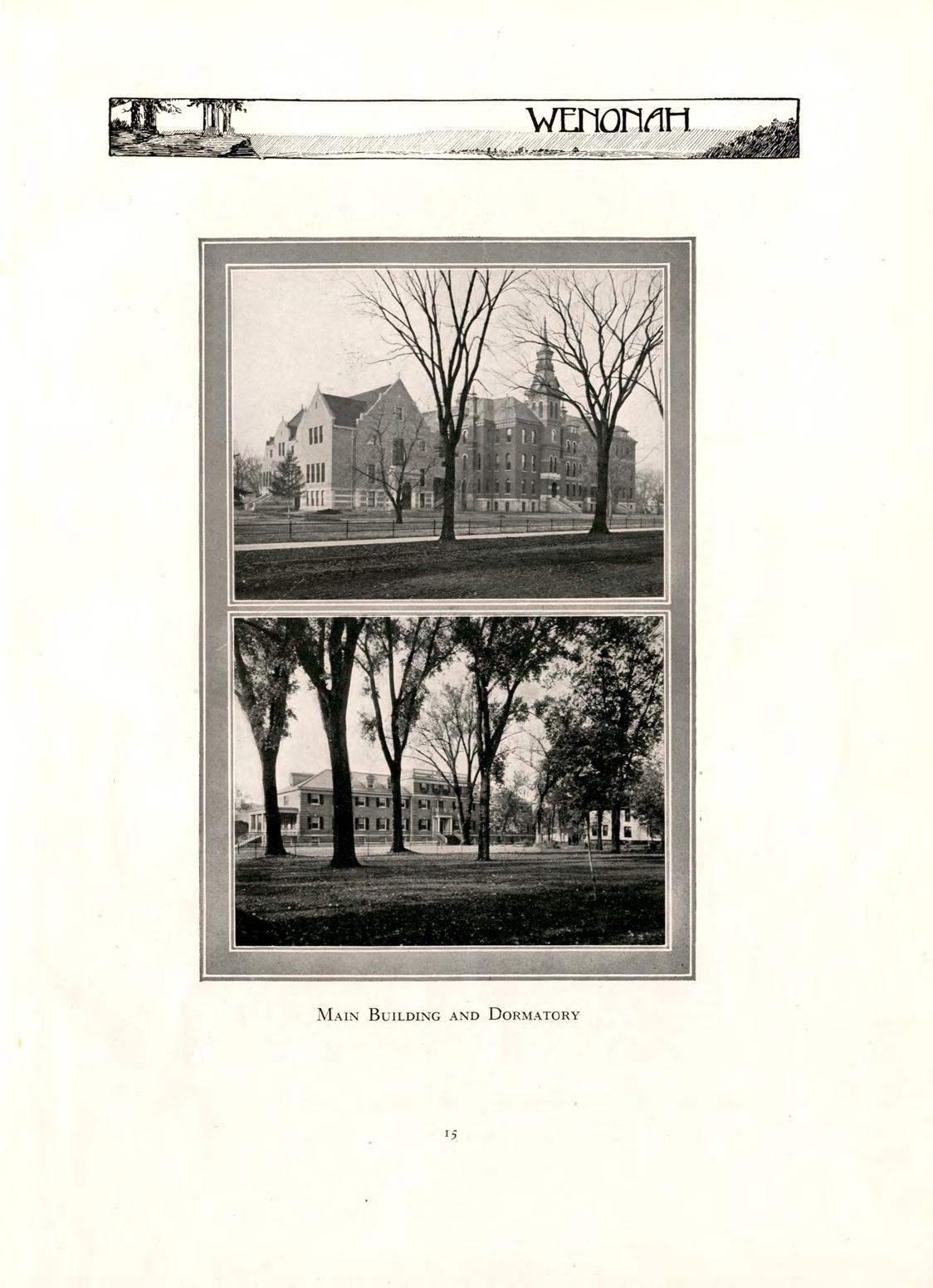
15 Main Building and Dormatory
Collette Cassidy
First we introduce the Cassidy twins. We honor Collette by giving her first place, owing to her elderly manner and dignified bearing. Besides being an encyclopedic compendium of accurate information, this young lady is an accomplished musician. With bookish tastes and a quiet, elegant poise, she has all the requirements of a lovely spinster schoolma’am.

Grace Ferrey
Gay, the sweetest of all Klndergartners, goes on her way, so deep in her thoughts, that she is regardless of others, until someone in trouble passes, when she becomes the Good Samaritan. We need Gay, with her suggestions, guidance, and help. She startled the class with an H paper this winter.
Leona Almqltst
“She is a dear, sweet girl,” and proves it each day. How she manages to do all her work required by her conscience, as a censor, have the good times and come back each morning to school looking as fresh as a dewy anemone, is a marvel. From that, one can see the sentiments of the class as regards Leona.
Florence Lawson
A quiet, attractive girl whose wisdom is not the kind that comes from keeping her head buried in a book. Her deep brown eyes are capable of showing joy, sympathy and kindness in a most pleasing manner.
Benta Lawson
Our friend Benta Lawson is a regular Maud Muller in person. Besides her decorative value, she is accomplishing wonders in the athletic world. She is specializing in swimming, being able to kick violently when her hands have a firm grasp on the rod.
Jeanette Bale
When Jeanette attempts a thing, she sees it thru, whatever that thing may be. This would seem contrary to the line of talk she sometimes puts up in some of her classes, but it is true nevertheless. We can see, however, that there is no bluff in her friendship.
Jeannette R. Fitch—“Jeanny Jane”
Jeanny Jane may be emotionally phlegmatic, but she is a first class southern belle. Her golden halo was the beacon light that led poor Michael a sad life till the Piper straightened things out and led our class thru devious ways to a triumphant graduation.
“The Juniors won’t believe a thing I tell them any more.**
i6
Naomi Liljeberg
A hearty, whole-souled, girl who would do, and does, everything in her power to make her friends happy. What a comrade she is—cheers up the downhearted, and adds to the merriment wherever she goes.
Selma Otterness
As the breeze from the Model blows its whiffs that make us realize a part of us is there, it carries no little praise for one young practitioner. Honor is due thee, Selma. A true daughter of the Normal.
May Brunner
Dignified, very thoro in her work, and always knows her lessons from A to Z. We would not be surprised to see all the letters of the alphabet after her name. She is too kind to hurt a fly, and an affectionate and loyal friend.
Marion Abramson
She is one of our American beauties, whom the teaching profession can lay no hold upon. Tho she did not take the “Household Arts” course, we surmise that she will be a cook in the near future.
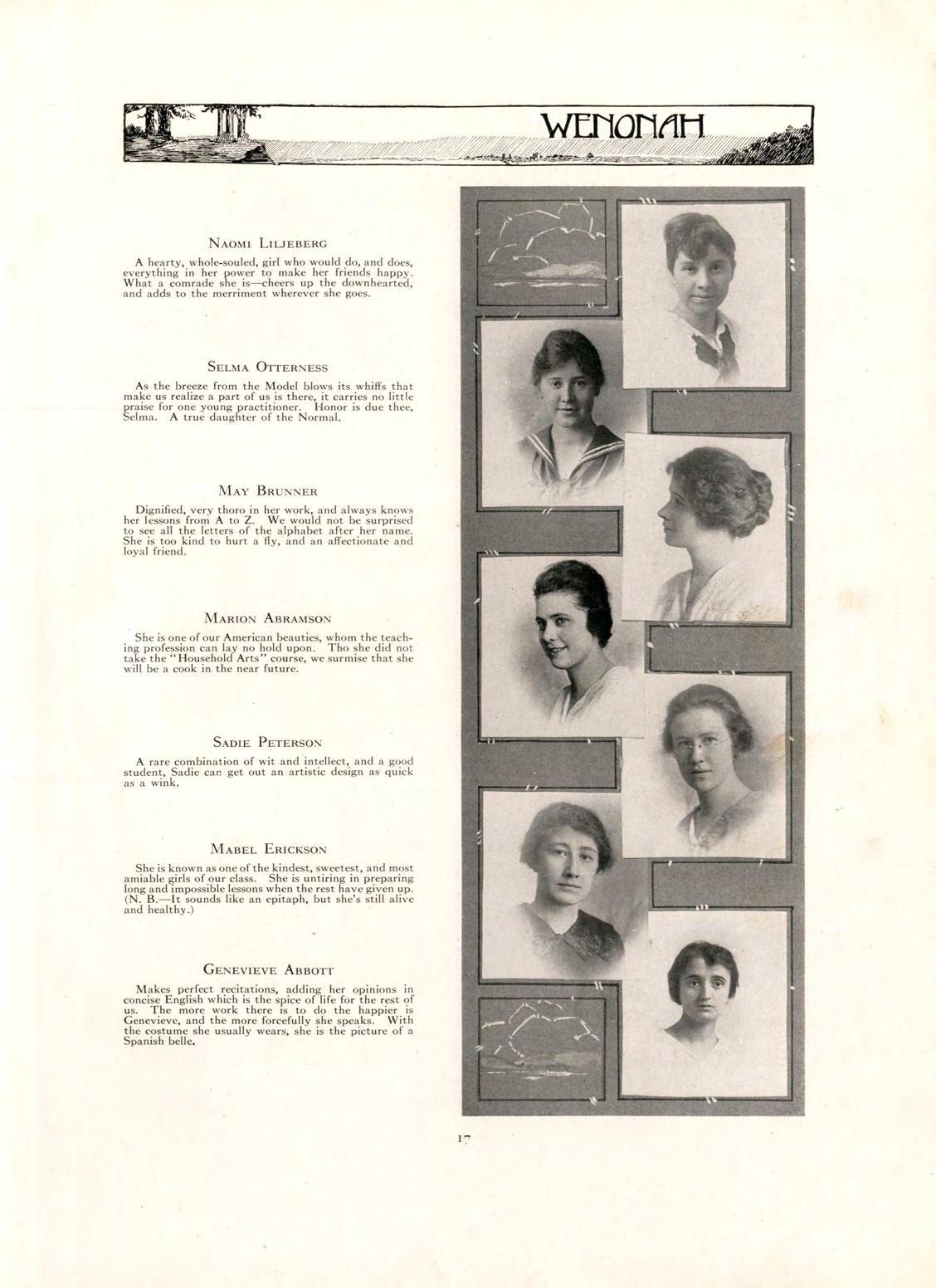
Sadie Peterson
A rare combination of wit and intellect, and a good student, Sadie can get out an artistic design as quick as a wink.
Mabel Erickson
She is known as one of the kindest, sweetest, and most amiable girls of our class. She is untiring in preparing long and impossible lessons when the rest have given up. (N. B.—It sounds like an epitaph, but she’s still alive and healthy.)
Genevieve Abbott
Makes perfect recitations, adding her opinions in concise English which is the spice of life for the rest of us. The more work there is to do the happier is Genevieve, and the more forcefully she speaks. With the costume she usually wears, she is the picture of a Spanish belle.
Ida Snyder
Ida, fat and chubby, is an advertisement good for Perkins’ Patent Perfect Pre-digested UncookedFood. We’re sure she has a lot of knowledge stored up, since she never condescends to use it in class. But we sure like her smile and sunny disposition.
Gladys Zahalka
A most complacent young woman is our Gladys. Her cameo-like countenance is framed in a most effective manner by her wavy hair of mouse color. Her smile is always right there, regularly radiating from said cameo-like face.
Merle Todd
Lights are out. “Well, what are you going to do about it!”—Merle’s usual feeling toward that condition. And just ask her how to blow up bags. She always looks innocent, but
Mae Middleton
Our comment:' high ideals upheld by nearly six feet of solid Middleton. Newspaper comment: an accomplished musician on the Hawaiian instruments.
Eva Sheridan
Whiz! Zip! it’s gone. What was that highly-colored streak that just passed, small, but with determination written on every line of its face, and every angle of its body, and every downward bang of its feet?—the terror of the primary grades and the rival of every woodpecker in its redheadedness.
Mabel Malone
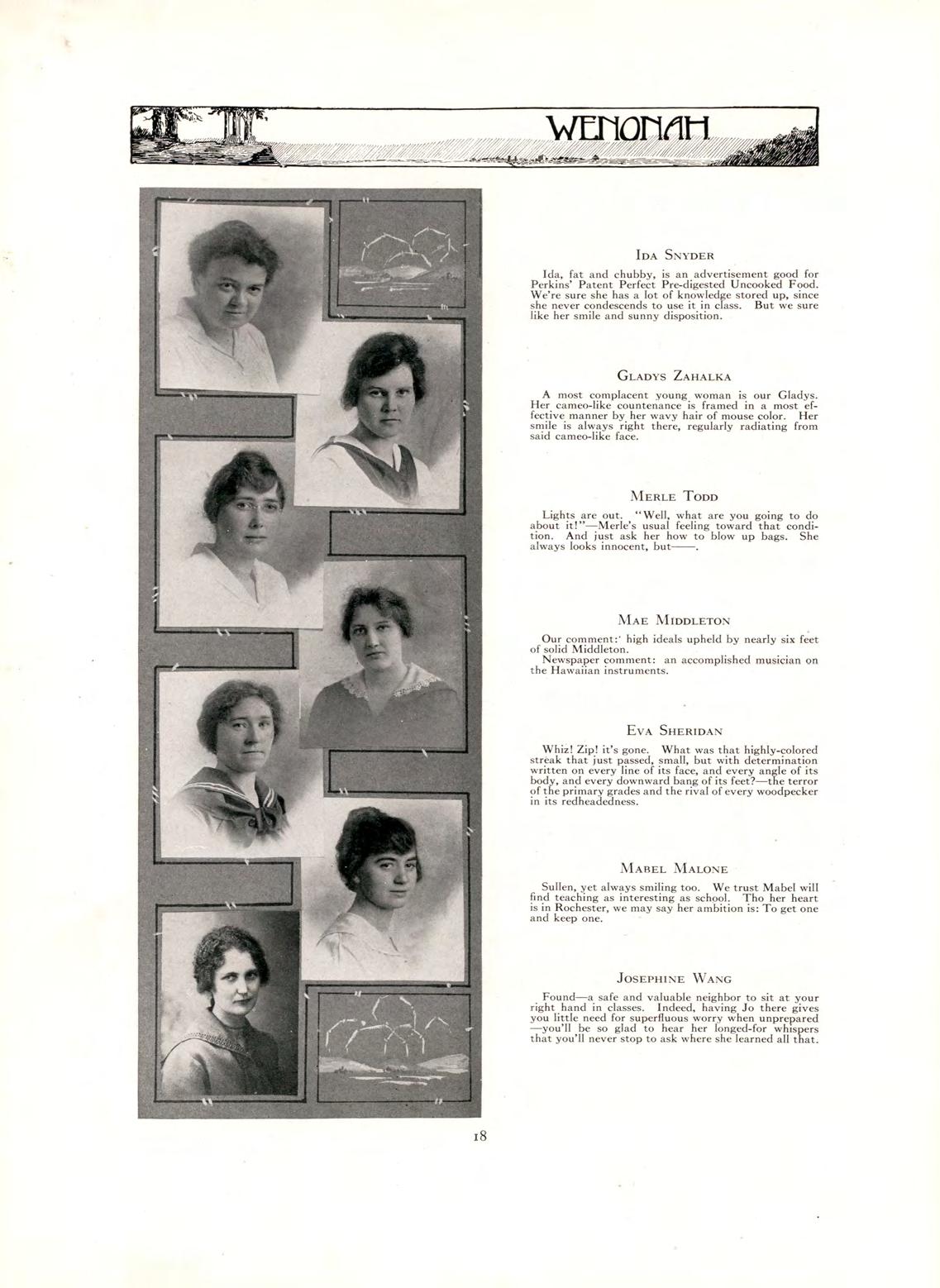
Sullen, yet always smiling too. We trust Mabel will find teaching as interesting as school. Tho her heart is in Rochester, we may say her ambition is: To get one and keep one.
Josephine Wang
Found—a safe and valuable neighbor to sit at your right hand in classes. Indeed, having Jo there gives you little need for superfluous worry when unprepared —you’ll be so glad to hear her longed-for whispers that you’ll never stop to ask where she learned all that.
Julia Halloran
Julia, a Senior silent, serious, sober, calm, cold and inscrutable;a perfect enigma to her classmates, but the few who have been able to pierce the icy exterior report her an amusing and agreeable companion.

Fern Putsch
As a good-hearted and generous friend. Fern has no superior and few equals. Altho she has never been caught in the act of studying, she worries along somehow and usually manages to come out near the top. Specialties: managing booksales—and men.
Hazel Stenlund
It is hard to find a person who is a favorite with her teachers and classmates at the same time—but Hazel is one of these. Her little body lodges a mighty mind” —and also a mighty cheerful disposition.
Irene Lampe
Buxom and apple-cheeked is this girl from the land of the North. We all gaze in admiration at Irene when it comes to skating; the ability she shows here is just as clearly displayed in everything she undertakes. The word failure is not in her vocabulary.
Carlton Alger
Who is this tall, lanky, homely specimen who lumbers stiffly along as if he were walking on stilts? who puts his feet up on a chair and cheerfully announces that he hasn’t studied and isn’t going to? wholooks far down at his side and sees a little maiden tripping along trying \ to keep up? His name is Horatio, but we call him Bumpus.
Lois McGettigan
Vivacious and confidential, Lois is always fascinating Carlton, and telling Jo she has something to say to her.
Frances Hoolihan
The only girl in school that can talk Hibernian. An absorbing passion for propriety makes her a perfect picture of a New England deacon in everything but nationality, geography and sex.
19
S’'.»
Beulah Franklin
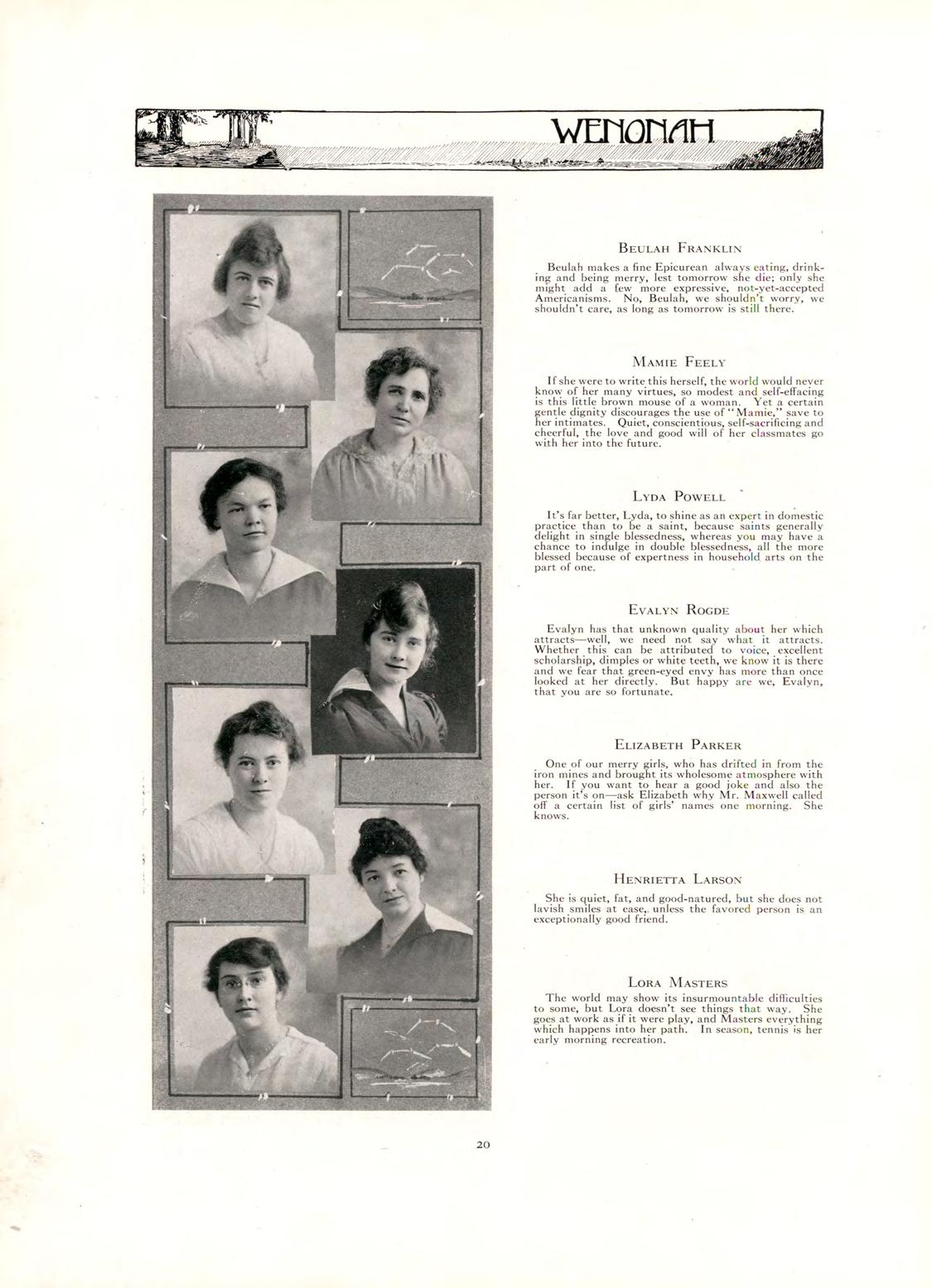
Beulah makes a fine Epicurean always eating, drinking and being merry, lest tomorrow she die; only she might add a £ew more expressive, not-yet-accepted Americanisms. No, Beulah, we shouldn’t worry, we shouldn’t care, as long as tomorrow is still there.
Mamie Feely
If she were to write this herself, the world would never know of her many virtues, so modest and self-effacing is this little brown mouse of a woman. Yet a certain gentle dignity discourages the use of “Mamie,” save to her intimates. Quiet, conscientious, self-sacrificing and cheerful, the love and good will of her classmates go with her into the future.
Lyda Powell
It’s far better, Lyda, to shine as an expert in domestic practice than to be a saint, because saints generally delight in single blessedness, whereas you may have a chance to indulge in double blessedness, all the more blessed because of expertness in household arts on the part of one.
Evalyn Rogde
Evalyn has that unknown quality about her which attracts—well, we need not say w'hat it attracts. Whether this can be attributed to voice, excellent scholarship, dimples or white teeth, we know it is there and we fear that green-eyed envy has more than once looked at her directly. But happy are we, Evalyn, that you are so fortunate.
Elizabeth Parker
One of our merry girls, who has drifted in from the iron mines and brought its wholesome atmosphere with her. If you wantto hear a good joke and also the person it’s on—ask Elizabeth why Mr. Maxwell called off a certain list of girls’ names one morning. She knows.
FLenrietta Larson
She is quiet, fat, and good-natured, but she does not lavish smiles at ease, unless the favored person is an exceptionally good friend.
Lora Masters
The world may show its insurmountable difficulties to some, but Lora doesn’t see things that way. She goes at work as if it were play, and Masters everything which happens into her path. In season, tennis is her early morning recreation.
20
Stella Hillgren
She is so optimistic that an English sparrow looks like a bird of Paradise to her. She is constant, punetuai, and reliable. She talks like Plato and Noah Webster combined in Lit., but the Morey Hall girls would never suspect it.
Gladys Rutherford
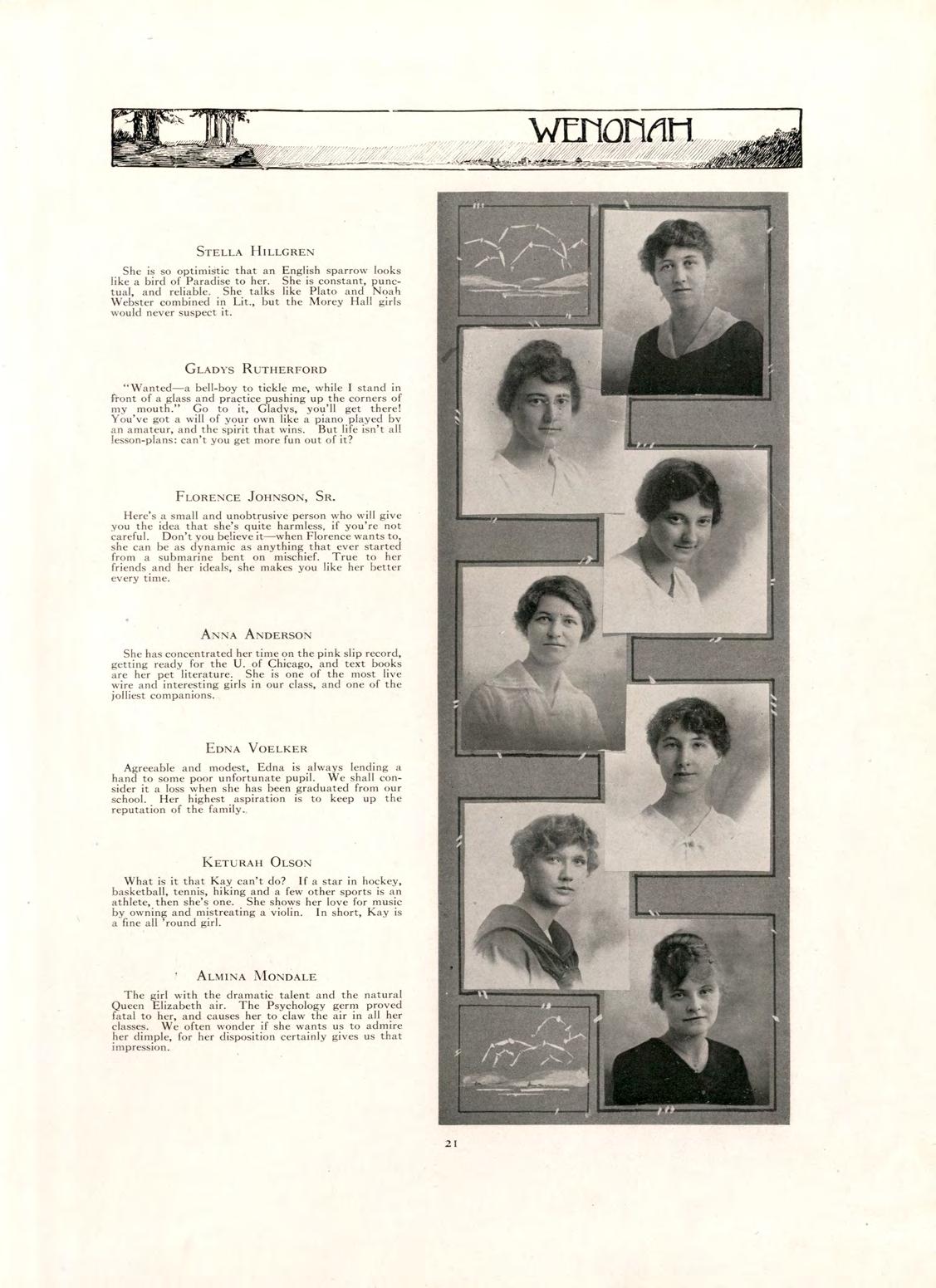
“Wanted—a beli-boy to tickle me, while I stand in front of a glass and practice pushing up the corners of my mouth.” Go to it, Gladys, you’ll get there! You’ve got a will of your own like a piano played bv an amateur, and the spirit that wins. But life isn’t all lesson-plans: can’t you get more fun out of it?
Florence Johnson, Sr.
Here’s a small and unobtrusive person who will give you the idea that she’s quite harmless, if you’re not careful. Don’t you believe it—when Florence wants to, she can be as dynamic as anything that ever started from a submarine bent on mischief. True to her friends and her ideals, she makes you like her better every time.
Anna Anderson
Shehas concentrated her time on the pink slip record, getting ready for the U. of Chicago, and text books are her pet literature. She is one of the most live wire and interesting girls in our class, and one of the jolliest companions.
Edna Voelker
Agreeable and modest, Edna is always lending a hand to some poor unfortunate pupil. We shall consider it a loss when she has been graduated from our school. Her highest aspiration is to keep up the reputation of the family.
Keturah Olson
What is it that Kay can’t do? If a star in hockey, basketball, tennis, hiking and a few other sports is an athlete, then she’s one. She shows her love for music by owning and mistreating a violin. In short, Kay is a fine all ’round girl.
Almina Móndale
The girl with the dramatic talent and the natural Queen Elizabeth air. The Psychology germ proved fatal to her, and causes her to claw the air in all her classes. We often wonder if she wants us to admire her dimple, for her disposition certainly gives us that impression.
2 I
»>...
SiviE Kroon
A regular “Madam Butterfly.” Always optimistic, never serious, but still young. She does not mind clouds and bad weather for even in the worst of rainstorms she has been known to say, “This is Bliss.”
Hazel Gray
A pretty, lovable girl, always ready to do things, but so quiet and retiring that she is the despair of our staff; we can’t find a thing to grind her on.
Angela McCarthy
The girl with the angelic (taken from her name) disposition. She is level headed (no inference to flat headed) and calm in her actions. She can have more fun and laugh longer over a joke than most people.
Edna Lingren
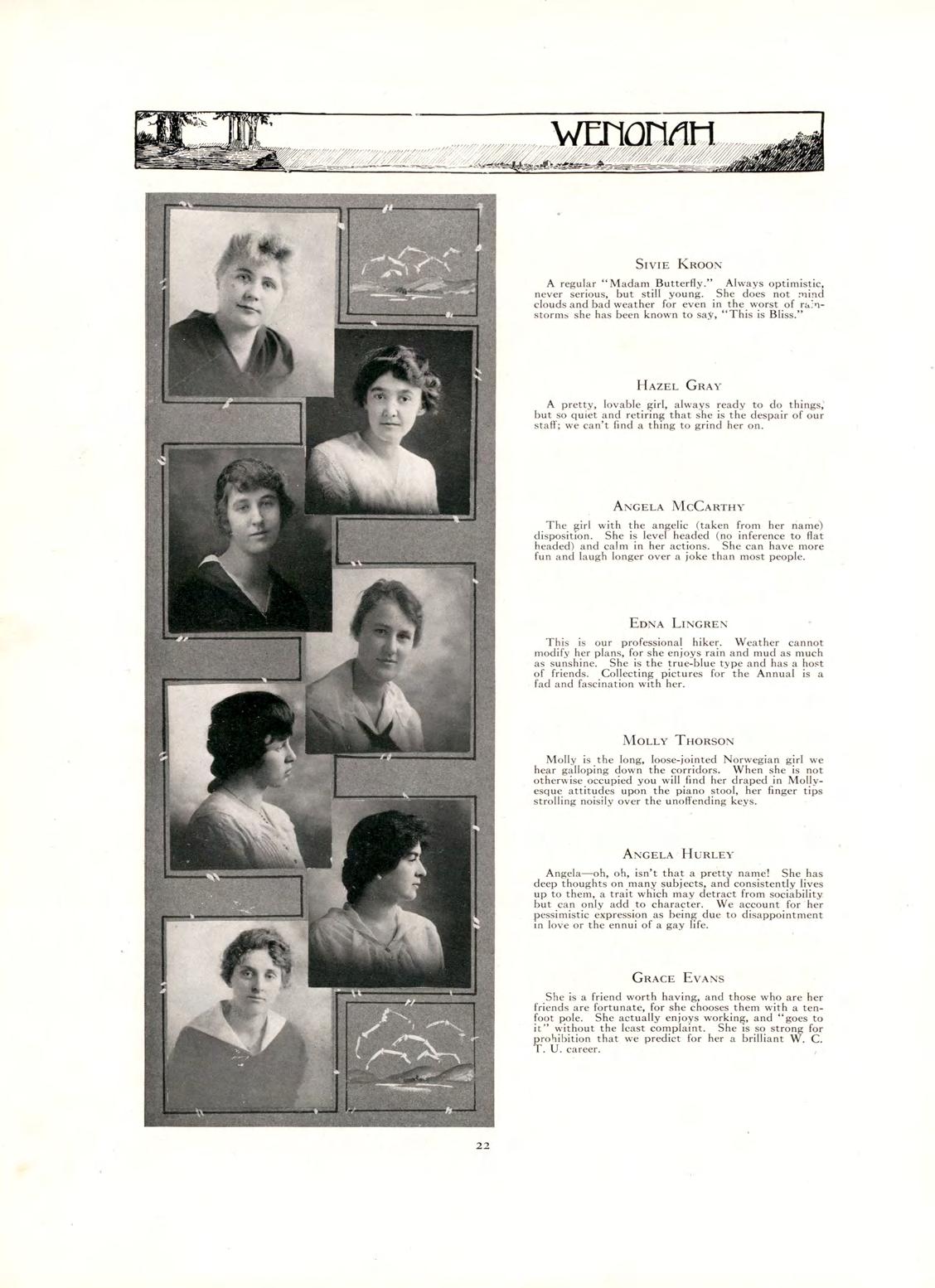
This is our professional hiker. Weather cannot modify her plans, for she enjoys rain and mud as much as sunshine. She is the true-blue type and has a host of friends. Collecting pictures for the Annual is a fad and fascination with her.
Molly Thorson
Molly is the long, loose-jointed Norwegian girl we hear galloping down thecorridors. When she is not otherwise occupied you will find her draped in Mollyesque attitudes upon the piano stool, her finger tips strolling noisily over the unoffending keys.
Angela Hurley
Angela—oh, oh, isn’t that a pretty name! She has deep thoughts on many subjects, and consistently lives up to them, a trait which may detract from sociability but can only add to character. We account for her pessimistic expression as being due to disappointment in love or the ennui of a gay life.
Grace Evans
She is a friend worth having, and those who are her friends are fortunate, for she chooses them with a tenfoot pole. She actually enjoys working, and “goes to it” without the least complaint. She is so strong for prohibition that we predict for her a brilliant W. C. T. U. career.
22
Grace McAllister
Grace’s ability to smile and to make otherssmile has won her a friend in everyone that knows her. Always scared pink over breaking one of the several hundred rules, never unhappy, wholly incorrigible, absolutely non-suppressible, she is the most adorable little pest that ever livened up the old walls of the Winona State Normal School.
Mary MacKenzie
Mary came back this year to take the third .year Domestic Science course. She tells us what they did “down at the Institute,’’ and she is the cheerfullest grumbler ever. Mary is one of the strong, well poised older girls, and we know that she will succeed, for she has the necessary qualification—true womanliness.
Vera Hopkins
“Don’t be too anxious to find me a position. Miss Gildemeister; I’d just as soon go to the ‘U’ next year.’’ Thus saith our dark-eyed maiden Vera, who came unto our flock in our second year and was fed on the knowledge of the Great. If ye instruments of education deem it well she shall have her way, and go even unto the great U.’’
Olive Rice
She absorbs knowledge by being in the same room with a Dr. Eliot five-foot bookshelf. So thoroly has her work been done that her success is assured. She is prettier than most of us, and twice as popular as she is pretty. We wonder if the end of her teaching career isn’t nearer than the far-away look in her eyes.
Lou Johnson
She is comfortable, tranquil and slow, and her heart is as big as herself. Never worry, never fret; Not time for breakfast yet.
Ruth Swenson
She plays while we work and works while we sleep. A prowler. How often, oh how often has she been “advised” to go to the music room and finish her work when caught out under the hall light. Do not misunderstand this, she does not have any qualms of conscience when she does not study hard but always leaves the little bit she does until lights are out.
Martha Rodgers
Martha came a right smart piece to “get the higher education” and the class is glad she did. Never in danger of starring, yet she has held her own without becoming too fatigued in the pursuit of knowledge. Her thoughts are as deep and rare as the precious minerals in her own native state.
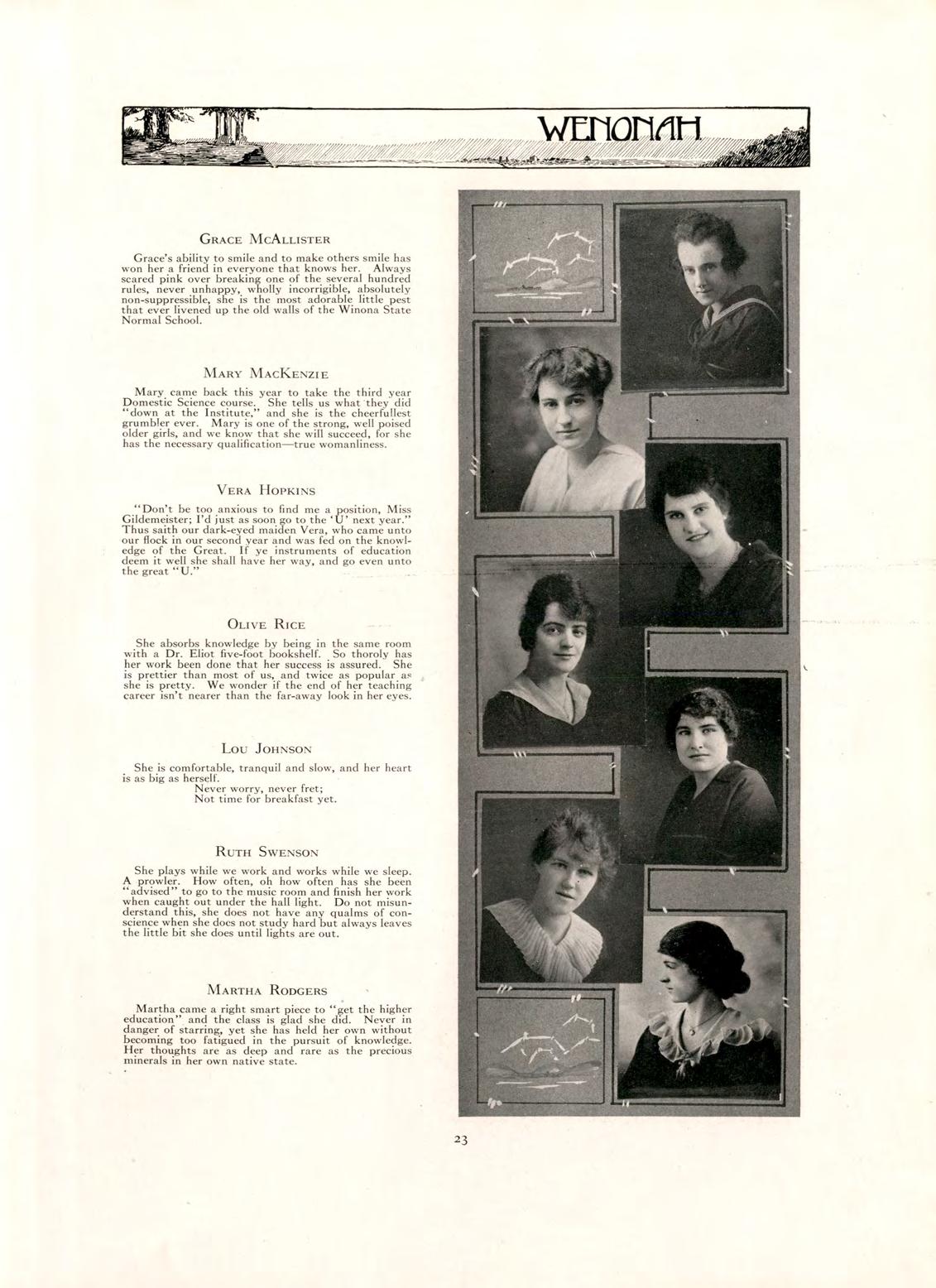
23
Cora M. Peterson
Is gifted with a pleasing personality and keeps things going wherever she is. She is a regular cut-up in her own home town, but manages to assume a professional air with good grace.
Mabel Anderson
Known as the chief actress in the Passing of the Third Floor Back,” making its season’s appearance at Morey Hall. Whiffs from the Model School tell us that Mabel is a very fine teacher, and her bosom friends import the knowledge that she dotes on reading up on Mrs. Vernon Castle’s “latest.”
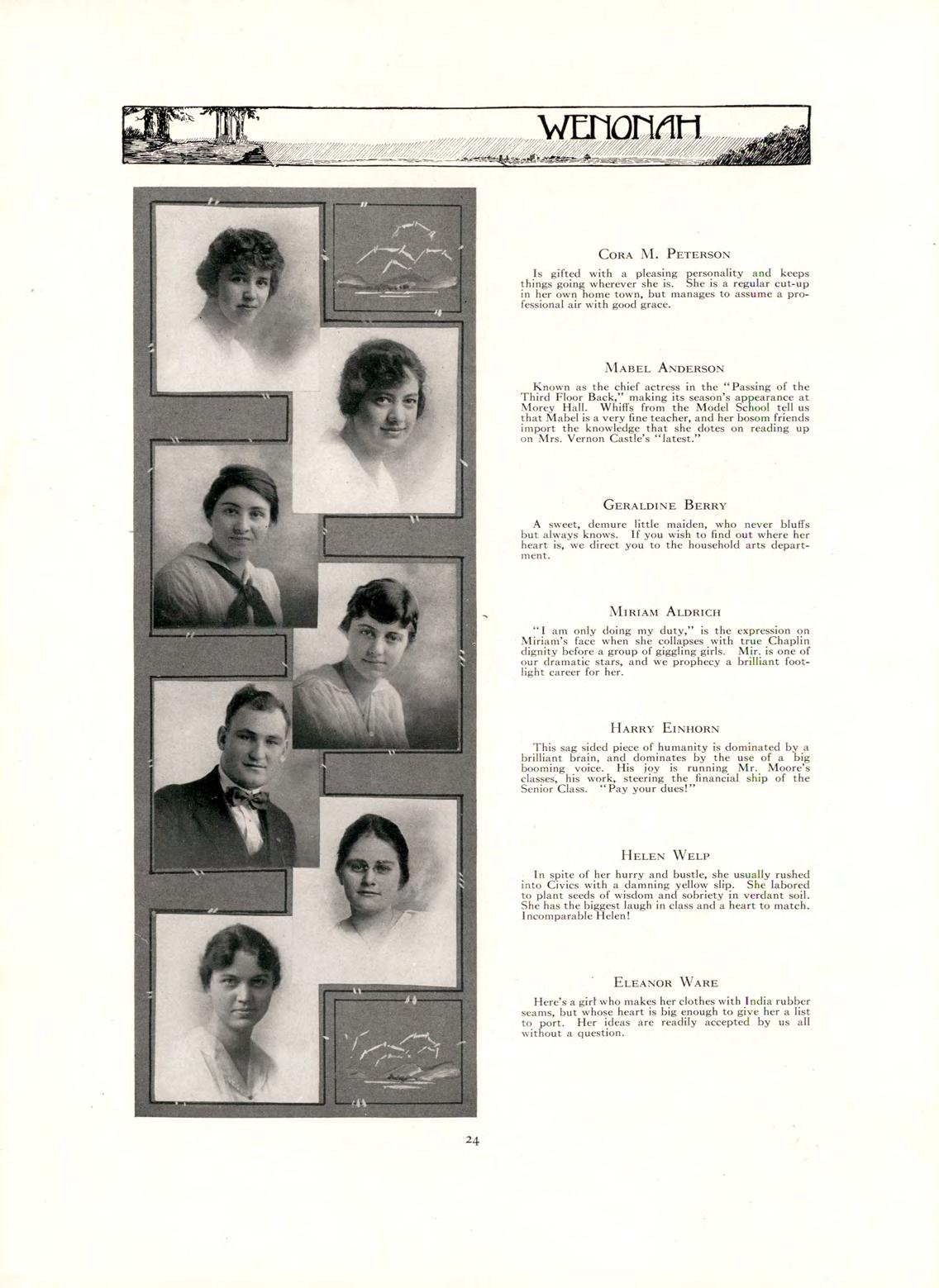
Geraldine Berry
A sweet, demure little maiden, who never bluffs but always knows. If you wish to find out where her heart is, we direct you to the household arts department.
Miria.m Aldrich
I am only doing my duty,” is the expression on Miriam’s face when she collapses with true Chaplin dignity before a group of giggling girls. Mir. is one of our dramatic stars, and we prophecy a brilliant footlight career for her.
Harry Einhorn
This sag sided piece of humanity is dominated by a brilliant brain, and dominates by the use of a big booming voice. His joy is running Mr. Moore’s classes, his work, steering the financial ship of the Senior Class. “Pay your dues!”
Helen Welp
In spite of her hurry and bustle, she usually rushed into Civics with a damning yellow slip. She labored to plant seeds of wisdom and sobriety in verdant soil. She has the biggest laugh in class and a heart to match. Incomparable Helen!
Eleanor Ware
Here’s a girl who makes her clothes with India rubber seams, but whose heart is big enough to give her a list to port. Her ideas are readily accepted by us all without a question.
24
Gladys Johnson
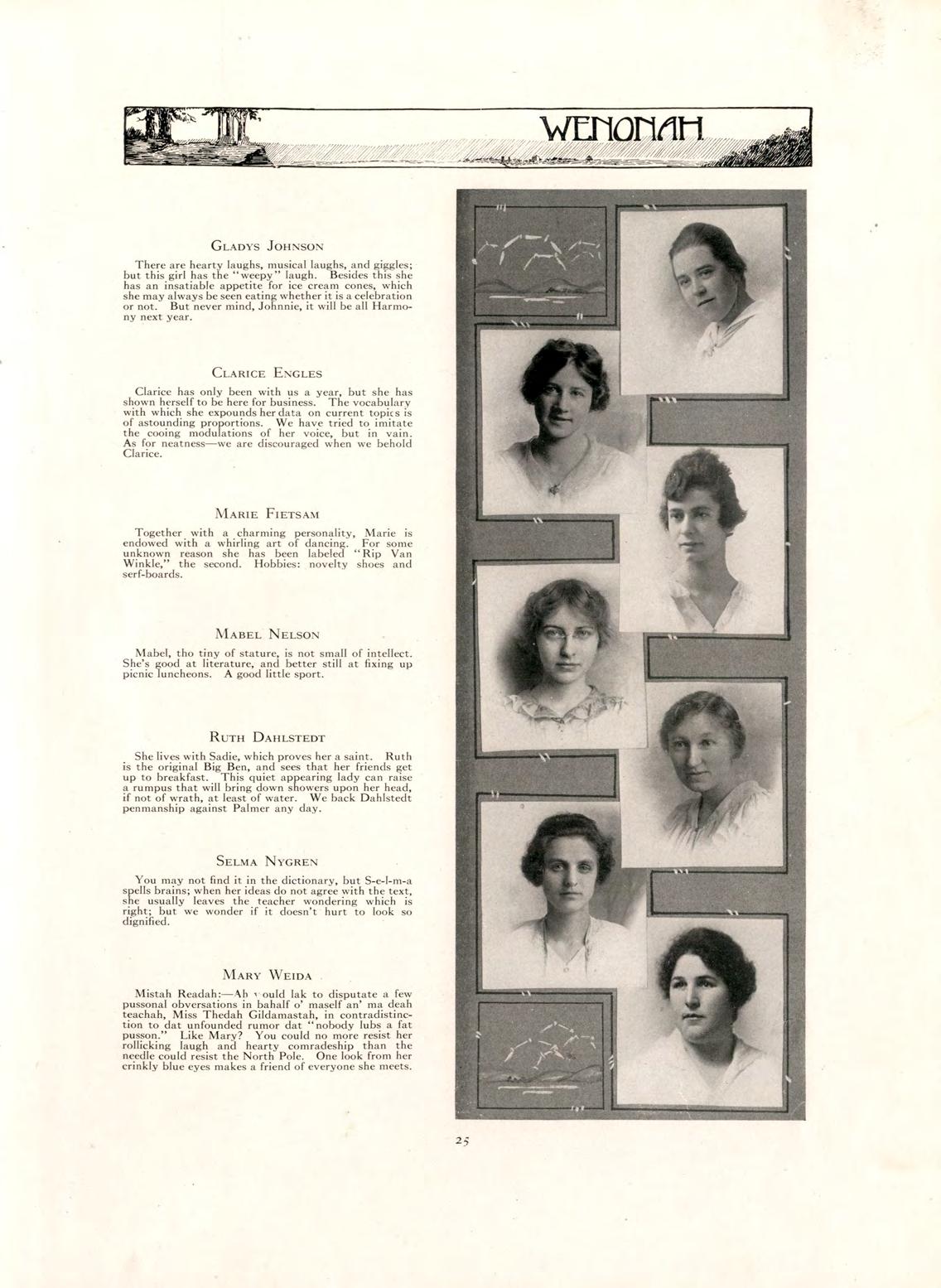
There are hearty laughs, musical laughs, and giggles; but this girl has the “weepy” laugh. Besides this she has an insatiable appetite for ice cream cones, which she may always be seen eating whether it is a celebration or not. But never mind, Johnnie, it will be all Harmony next year.
Clarice Engles
Clarice has only been with us a year, but shehas shown herself to be here for business. The vocabulary with which she expounds her data on current topics is of astounding proportions. We have tried to imitate the cooing modulations of her voice, but in vain. As for neatness—we are discouraged when we behold Clarice.
Marie Fietsam
Together with a charming personality, Marie is endowed with a whirling art of dancing. For some unknown reason shehas been labeled “Rip Van Winkle,” the second. Hobbies: novelty shoes and serf-boards.
Mabel
Mabel, tho tiny of stature, is not small of intellect. She’s good at literature, and better still at fixing up picnic luncheons. A good little sport.
Ruth Dahlstedt
She lives with Sadie, which proves her a saint. Ruth is the original Big Ben, and sees that her friends get up to breakfast. This quiet appearing lady can raise a rumpus that will bring down showers upon her head, if not of wrath, at least of water. We back Dahlstedt penmanship against Palmer any day.
Selma
You may not find it in the dictionary, but S-e-l-m-a spells brains; when her ideas do not agree with the text, she usually leaves the teacher wondering which is right; but we wonder if it doesn’t hurt to look so dignified.
Mistah Readah:—Ah ould lak to dispútate a few pussonal obversations in bahalf o’ maself an’ ma deah teachah. MissThedah Gildamastah, in contradistinction to dat unfounded rumor dat “nobody lubs a fat pusson.” Like Mary? You could no more resist her rollicking laugh and hearty comradeship than the needle could resist the North Pole. One look from her crinkly blue eyes makes a friend of everyone she meets.
Nelson
Nygren
Mary Weid.a
Ruth Welch
This picture is so flattering to Ruth that it cost her five dollars to square her conscience with the photographer. She is not a continuous talker but what she says has a deep meaning.
Genevieve Stewart
She is one big peach! Her eyes have a merry twinkle that matches her turned-up nose, and her cheeks are a rosy red. She is clever and capable, one of the strongest members of the kindergarten department. We all admire, nay, love her.
Kathleen Cassidy
Now Kathleen is very similar to Collette, as a proper twin should be, altho cheated of lovely, curling, dark hair. When suflrage overcomes the nation, this cadaverous brain-throb will certainly steer the ship of state, if her fondness for civics is any clue. She (or Katie) also plays the piano remarkably well, and sports a red dress just like sister’s.
Mabel Landis
She has never had a speaking part on this corner of Life’s stage, and we are rather curious to know just what she thinksof the show. She is one of the kind that wins with her sterling integrity and steadfast purpose. But the class would like to know: are the blushes innate or affected? “Pretty swell.”
Queen Arndt
Queen would make one of the Siamese twins ashamed of herself, for Queen and Hildred are inseparable; where one is, there is the other; where the other isn’t, the one isn’t either. If still waters run deep. Queen is a veritable submarine—in class. No teacher yet has ever induced her to talk.
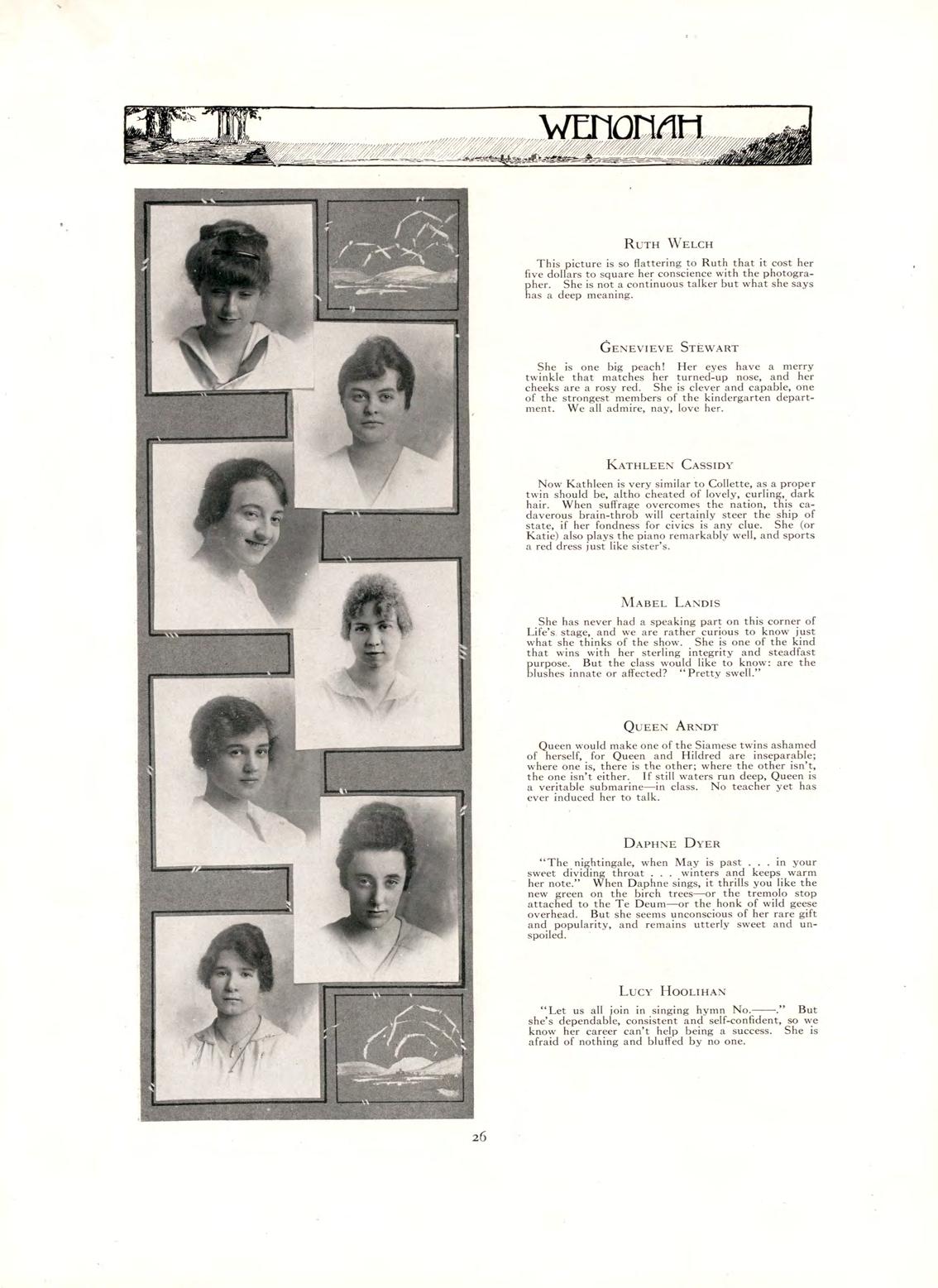
Daphne Dyer
“The nightingale, when May is past in your sweet dividing throat winters and keeps warm her note.” When Daphne sings, it thrills you like the new green on the birch trees—or the tremolo stop attached to the Te Deum—or the honk of wild geese overhead. But she seems unconscious of her rare gift and popularity, and remains utterly sweet and unspoiled.
Lucy Hoolihan
“Let us all join in singing hymn No. .” But she’s dependable, consistent and self-confident, so we know her career can’t help being a success. She is afraid of nothing and bluffed by no one.
26
Harriet L.
Hikie is commonly known as the “family saint,” except when some good time is planned. In her Junior year she ran the Forum. Now she is president of the K. G. Club, and on the Y. W. C. A. cabinet. Her friends watch her distant affections, but, as she naively remarks, H. H. doesn’t stand for Harriet Lange—yet.
Grace Burke
Look out, boys! she looks irreproachably demure, and she can settle your fate with one glance of her Gibson eyes. She is a very Venus in her classic features and lofty height, and has all the accomplishments requisite for a box seat at the matrimonial bureau: she sings, plays and paints to perfection. “Trust her not, she is fooling thee.”
Margaret Armstrong
Margaret has certainly been unfortunate in some of her adventures, but who could escape detection with hair flaming like a danger-signal? On these occasions, true to the characteristics of her native soil, she says, “Sure, I did it, but what can you do about it?” We all love Maggie, and there’s never a dull moment when she’s in the crowd.
Olive Benepe
We’re proud of Olive. She is the only unselfish person in captivity. Why, she will run back in the dark to the library where you are engrossed in a book, and tell you that Joe is locking the front door so please hurry. She’s right there, at every good time. A bacon bat wouldn’t be a bacon bat without Olive.
Elizabeth Benton
Beth is the original human dynamo. She is unquestionably one of our brightest dramatic stars, yet a glance thru the pages of this book reveals the fact that she excels in other lines as well. Lizzie is naturally a favorite with the faculty, whom she entertains with her brilliant conversation. She is a firm friend and a loyal student.
Clara Kettleson
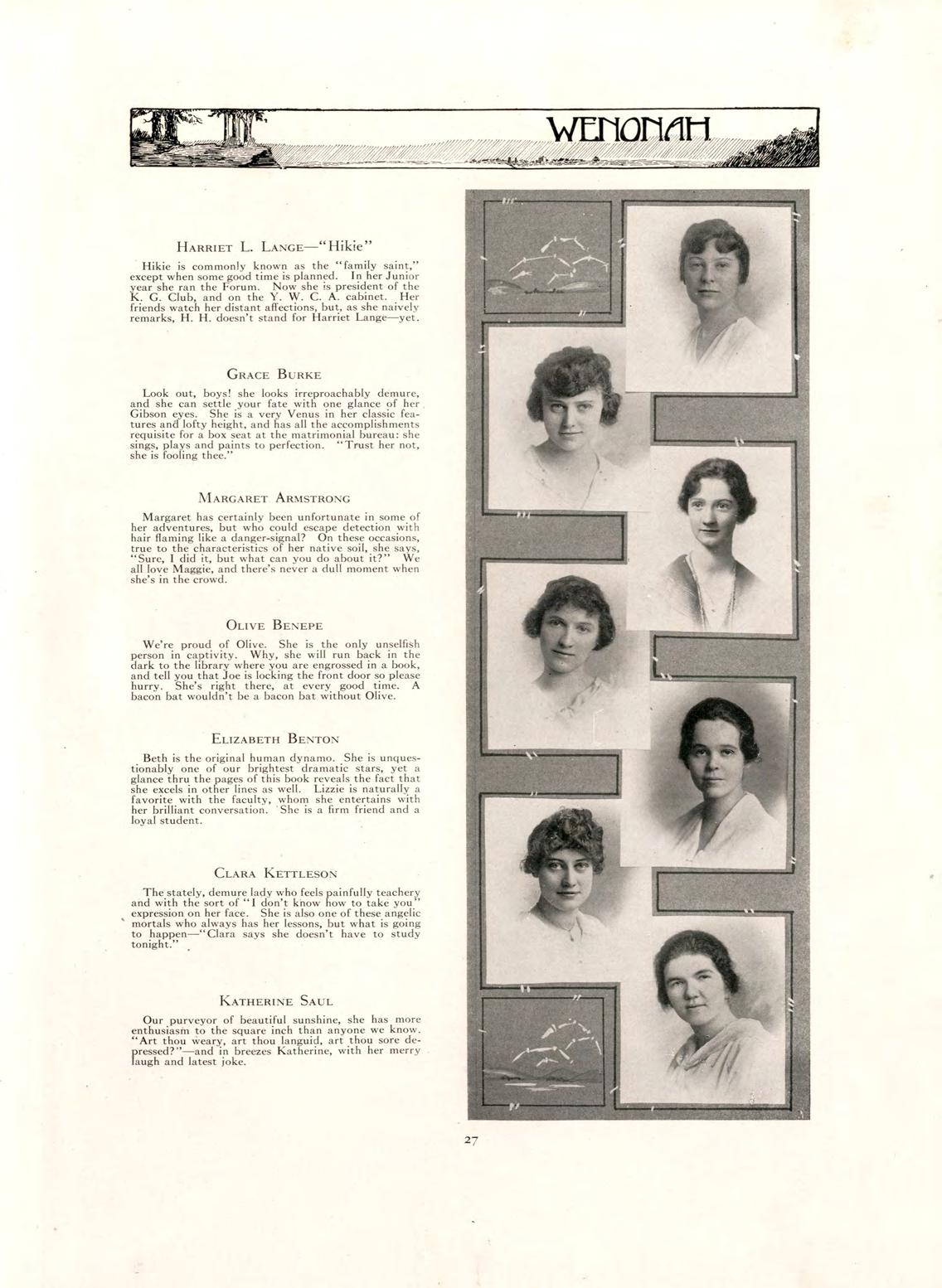
The stately, demure lady who feels painfully teachery and with the sort of “I don’t know how to take you” expression on her face. She is also one of these angelic mortals who always has her lessons, but what is going to happen—“Clara says she doesn’t have to study tonight.”
Katherine Saul
Our purveyor of beautiful sunshine, she has more enthusiasm to the square inch than anyone we know. “Art thou weary, art thou languid, art thou sore depressed?”—and in breezes Katherine, with her merry laugh and latest joke.
27
Lange—“Hikie”
Margie Hickey
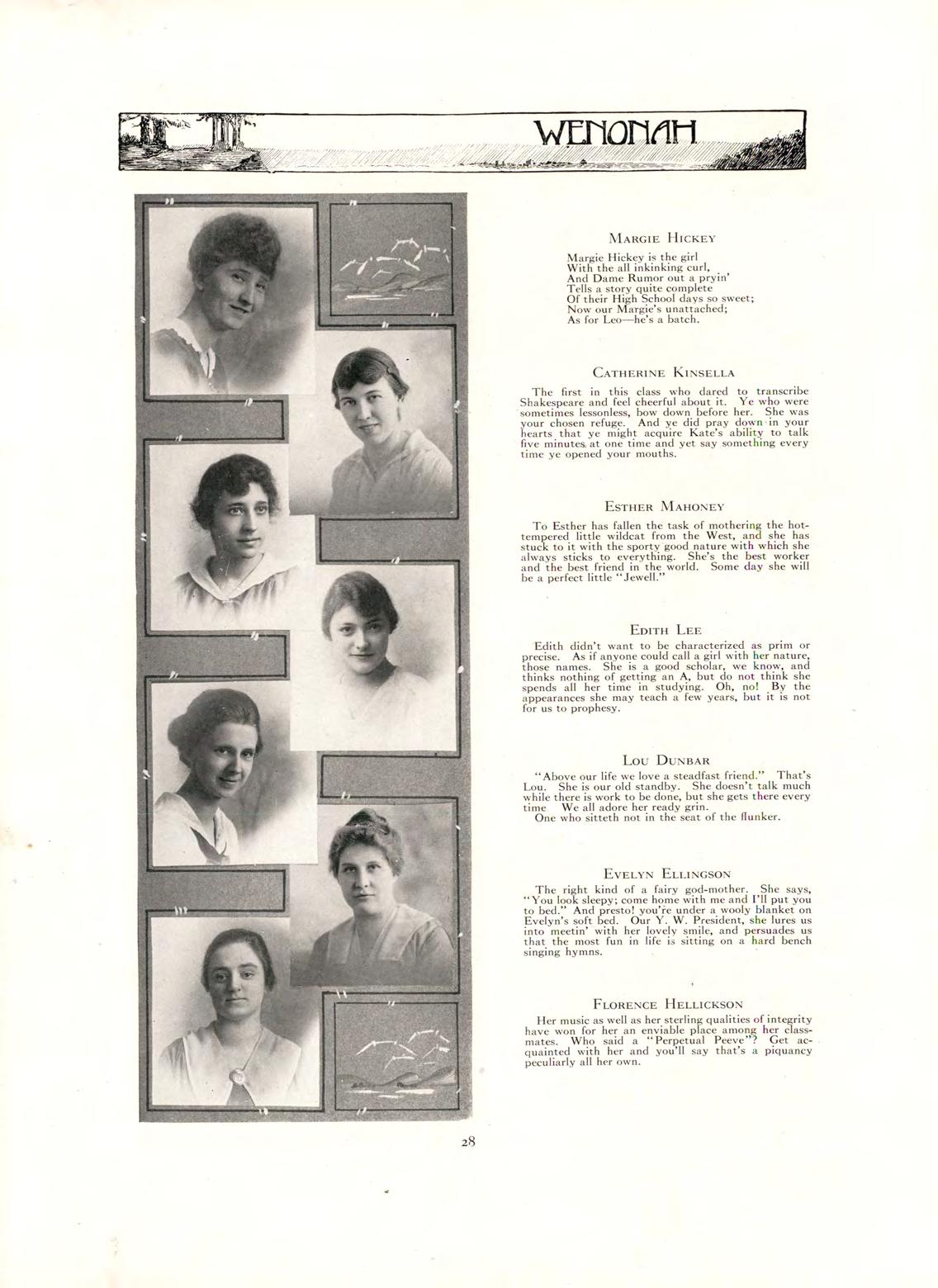
Margie Hickey is the girl
With the all inkinking curl.
And Dame Rumor out a pryin’
Tells a story quite complete
Of their High School days so sweet; Now our Margie’s unattached; As for Leo—he’s a batch.
C.ATHERINE KiNSELLA
The first in this class who dared to transcribe Shakespeare and feel cheerful about it. Ye who were sometimes lessonless, bow down before her. She was your chosen refuge. And ye did pray down in your hearts that ye might acquire Kate’s ability to talk five minutes at one time and yet say something every time ye opened your mouths.
Esther Mahoney
To Esther has fallen the task of mothering the hottempered little wildcat fromthe West, and she has stuck to it with the sporty good nature with which she always sticks to everything. She’s the best worker and the best friend in the world. Some day she will be a perfect little “Jewell.”
Edith Lee
Edith didn’t want to be characterized as prim or precise. As if anyone could call a girl with her nature, those names. She is a good scholar, we know, and thinks nothing of getting an A, but do not think she spends all her time in studying. Oh, no! By the appearances she may teach a few years, but it is not for us to prophesy.
Lou Dunbar
“Above our life we love a steadfast friend.” That’s Lou. She is our old standby. She doesn’t talk much while there is work to be done, but she gets there every time We all adore her ready grin. One who sitteth not in the seat of the flunker.
Evelyn Eli.ingson
The right kind of a fairy god-mother. She says, “You look sleepy; come home with me and I’ll put you to bed.” And presto! you’re under a wooly blanket on Evelyn’s soft bed. Our Y. W. President, she lures us into meetin’ with her lovely smile, and persuades us that the most fun in life is sitting on a hard bench singing hymns.
Florence Hellickson
Her music as well as her sterling qualities of integrity have won for her an enviable place among her classmates. Who said a “Perpetual Peeve”? Get acquainted with her and you’ll say that’s a piquancy peculiarly all her own.
28
Viva Amundson
Calm, sweet, demure—“a perfect lady.” She is an indefatigable worker for the Y. W. C. A. in her chosen work of cheating Satan. In a school where “high moral principles” means having your lesson every day, Vi strikes a sane balance. With a blonde crown of glory and a charming smile. Viva will not be training Young America for long.
Lu Ford
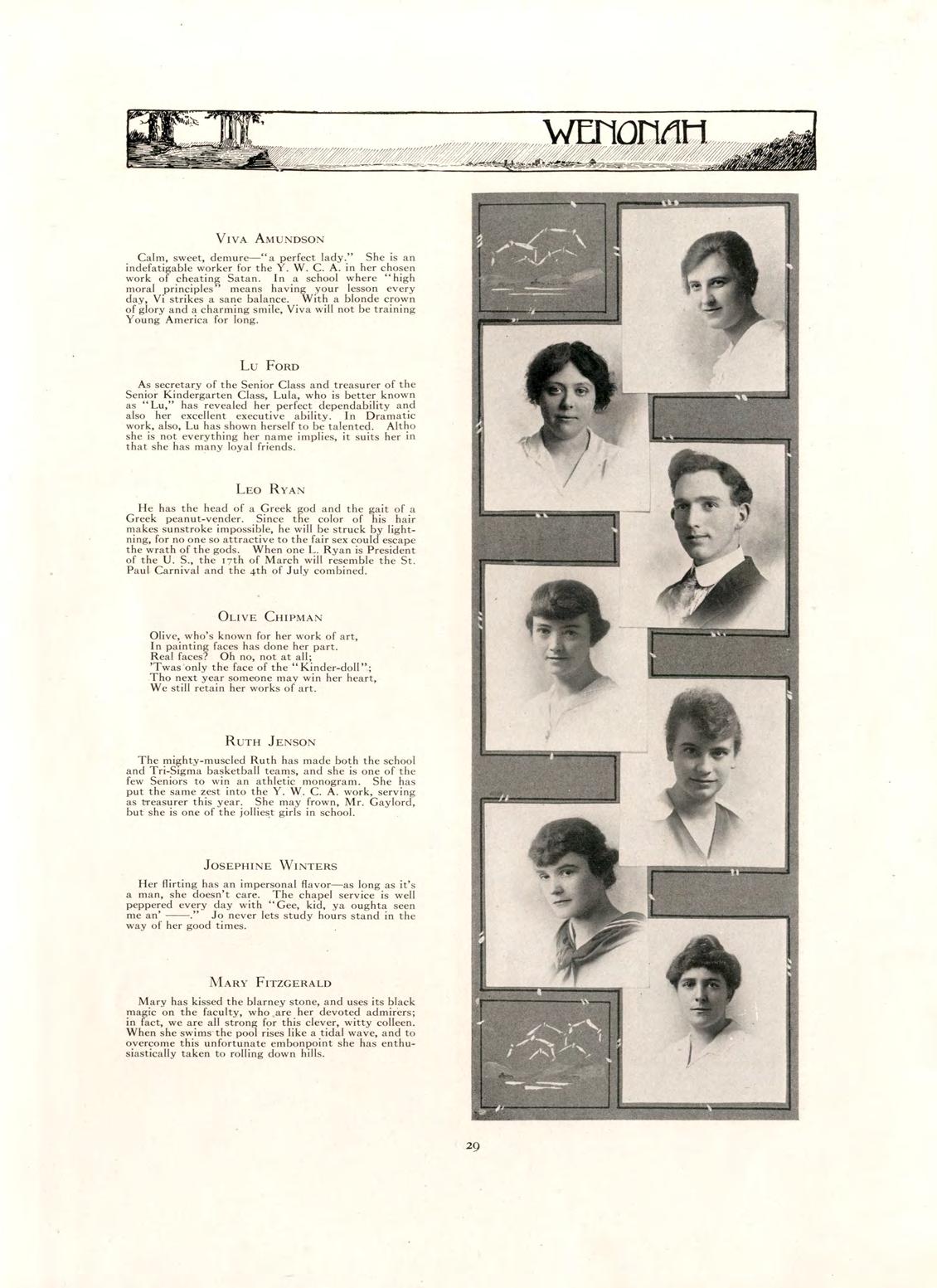
As secretary of the Senior Class and treasurer of the Senior Kindergarten Class, Lula, who is better known as “Lu,” has revealed her perfect dependability and also her excellent executive ability. In Dramatic work, also. Lu has shown herself to be talented. Altho she is not everything her name implies, it suits her in that she has many loyal friends.
Leo Ryan
He has the head of a Greek god and the gait of a Greek peanut-vender. Since the color of his hair makes sunstroke impossible, he will be struck by lightning, for no one so attractive to the fair sex could escape the wrath of the gods. When one L. Ryan is President of the U. S., the 17th of March will resemble the St. Paul Carnival and the 4th of July combined.
Olive Chip.man
Olive, who’s known for her work of art. In painting faces has doneher part. Real faces? Oh no, not at all;
*Twas only the face of the “Kinder-doII”; Tho next year someone may win her heart. We still retain her works of art.
Ruth
Jenson
The mighty-muscled Ruth has made both the school and Tri-Sigma basketball teams, and she is one of the fewSeniors to win an athletic monogram. She has put the same zest into the Y. W. C. A. work, serving as treasurer this year. She may frown, Mr. Gaylord, but she is one of the jolliest girls in school.
Josephine
Winters
Her flirting has an impersonal flavor—as long as it’s a man, she doesn’t care. The chapel service is well peppered every day with “Gee, kid, ya oughta seen me an’ .” Jo never lets study hours stand in the way of her good times.
Mary
Fitzgerald
Mary has kissed the blarney stone, and uses its black magic on the faculty, who are her devoted admirers; in fact, we are all strong for this clever, witty colleen. When she swims the pool rises like a tidal wave, and to overcome this unfortunate embonpoint she has enthusiastically taken to rolling down hills.
29
Florence Goggin
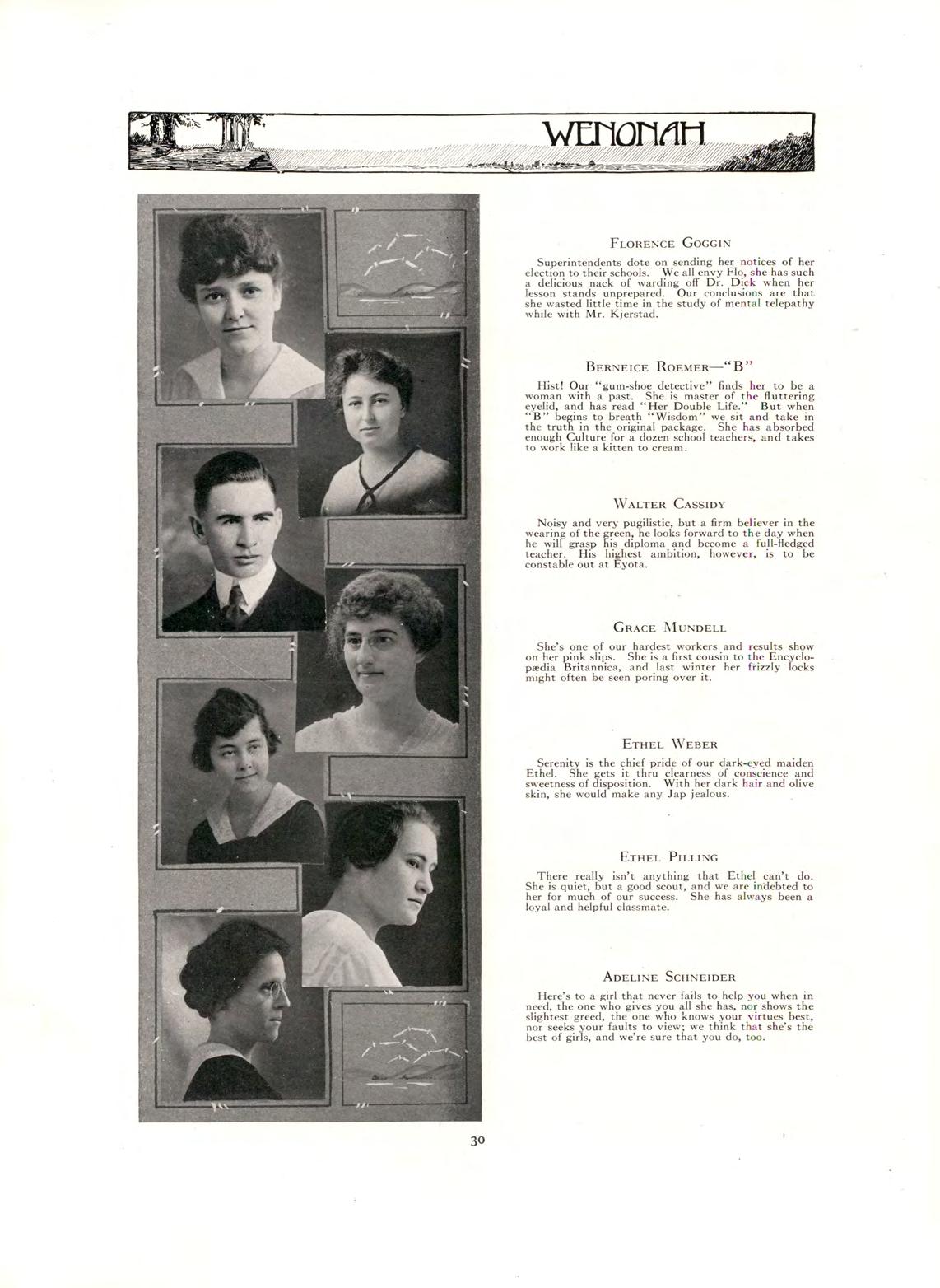
Superintendents dote on sending her notices of her election to their schools. We all envy Flo, she has such a delicious nack of warding off Dr. Dick when her lesson stands unprepared. Our conclusions are that she wasted little time in the study of mental telepathy while with Mr. Kjerstad.
Bern'eice Roemer—“B”
Hist! Our “gum-shoe detective” finds her to be a woman with a past. She is master of the fluttering eyelid, and has read “Her Double Life.” But when “B” begins to breath “Wisdom” we sit and take in the truth in the original package. She has absorbed enough Culture for a dozen school teachers, and takes to work like a kitten to cream.
Walter Cassidy
Noisy and very pugilistic, but a firm believer in the wearing of the green, he looks forward to the day when he will grasp his diploma and become a full-fledged teacher. His highest ambition, however, is to be constable out at Eyota.
Grace AIundell
She’s one of our hardest workers and results show on her pink slips. She is a first cousin to the Encyclopædia Britannica, and last winter her frizzly locks might often be seen poring over it.
Ethel Weber
Serenity is the chief pride of our dark-eyed maiden Ethel. She gets it thru clearness of conscience and sweetness of disposition. With her dark hair and olive skin, she would make any Jap jealous.
Ethel Pilling
There really isn’t anything that Ethel can’t do. She is quiet, but a good scout, and we are indebted to her for much of our success. She has alw'ays been a loyal and helpful classmate.
Adeline Schneider
Here’s to a girl that never fails to help you when in need, the one who gives you all she has, nor shows the slightest greed, the one who knows your virtues best, nor seeks .your faults to view; we think that she’s the best of girls, and we’re sure that you do, too.
30
Aileen Baldwin
A jolly twin sister to the Man in the Moon, and owner of an i8-carat smile. When this gamboling little lambkin of a hundred fifty pounds gets her full growth, people are going to mistake that smile for the sunrise, and the birds will wake up and sing. Neither this page nor this book can tell how much we think of Aileen.
James Robb
Jimmy came to us picturing himself a big broad man of the world, and has played the roll with all the aggressiveness that the superbeings display toward the superfluities. His brilliant repartee never fails to make a hitwith the ladies. “A fellow of infinite jest”— Shakespeare was thinking of our Jimmy when he wrote that.
Doris Goodsell
We won’t say your eyes are black. Dole. Bitter experience has taught us better. But you won’t mind if we do say that those sweet frank eyes have won the hearts of many, and to us you will always be a Veronika.
Katherine Knaue
Here is one of our class beauties, who is a close rival of Viva. She makes friends with her smile and keeps them with her loyalty. The Lord must have made Katherine on the sixth day, because he earned a rest after producing this little wonder. Her pink slips show that she is somewhat given to boning.
Mrs. Bessie Perry
If we had waited for this quiet, not to say exclusive, woman to speak out, she would probably have escaped without being properly dissected, classified and arranged with the other victimsof the editorial staff. A willing worker and an agreeable companion, we recognize in her the type that raises the standard of the school.
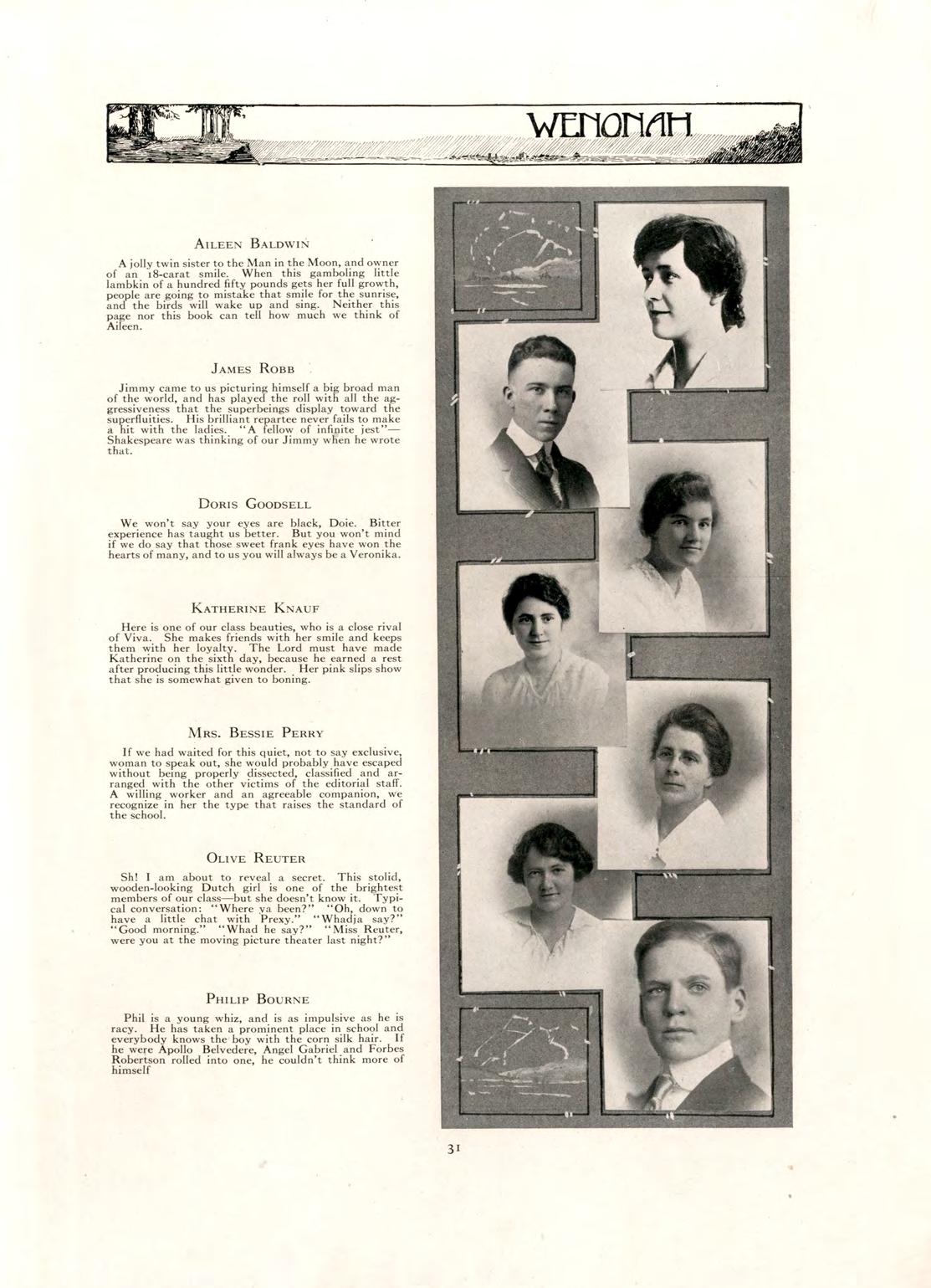
Olive Reuter
Sh! I am about to reveal a secret. This stolid, wooden-looking Dutch girl is one of the brightest members of our class—but she doesn’t know it. Typical conversation: “Where ya been?” “Oh, down to have a little chat with Prexy.” “Whadja say?” “Good morning.” “Whad he say?” “Miss Reuter, were you at the moving picture theater last night?”
Philip Bourne
Phil is a young whiz, and is as impulsive as he is racy. He has taken a prominent place in school and everybody knows the boy with the corn silk hair. If he were Apollo Belvedere, Angel Gabriel and Forbes Robertson rolled into one, he couldn’t think more of himself
31
Gladys Steen
If with some doubts you are dismayed as to the fastening of a gown; if with some fears you are assayed as to the modelling of a crown; if with the blues you are delayed, in the task of keeping bright—just go to Gladys, who, ’tis said, will always make things seem just right.
Lillian Jolliffe
It is impossible to discourage Jolly; she is a human shamrock in a windstorm, plumb full of the dead game sport spirit that always bobs up serenely. She loves to break every rule in the decalog, and then, climbing thru her window at 11 :oo p. m., greet her belligerent landlady with an expression of ingenious innocence completely disarming.
Margaret Meany
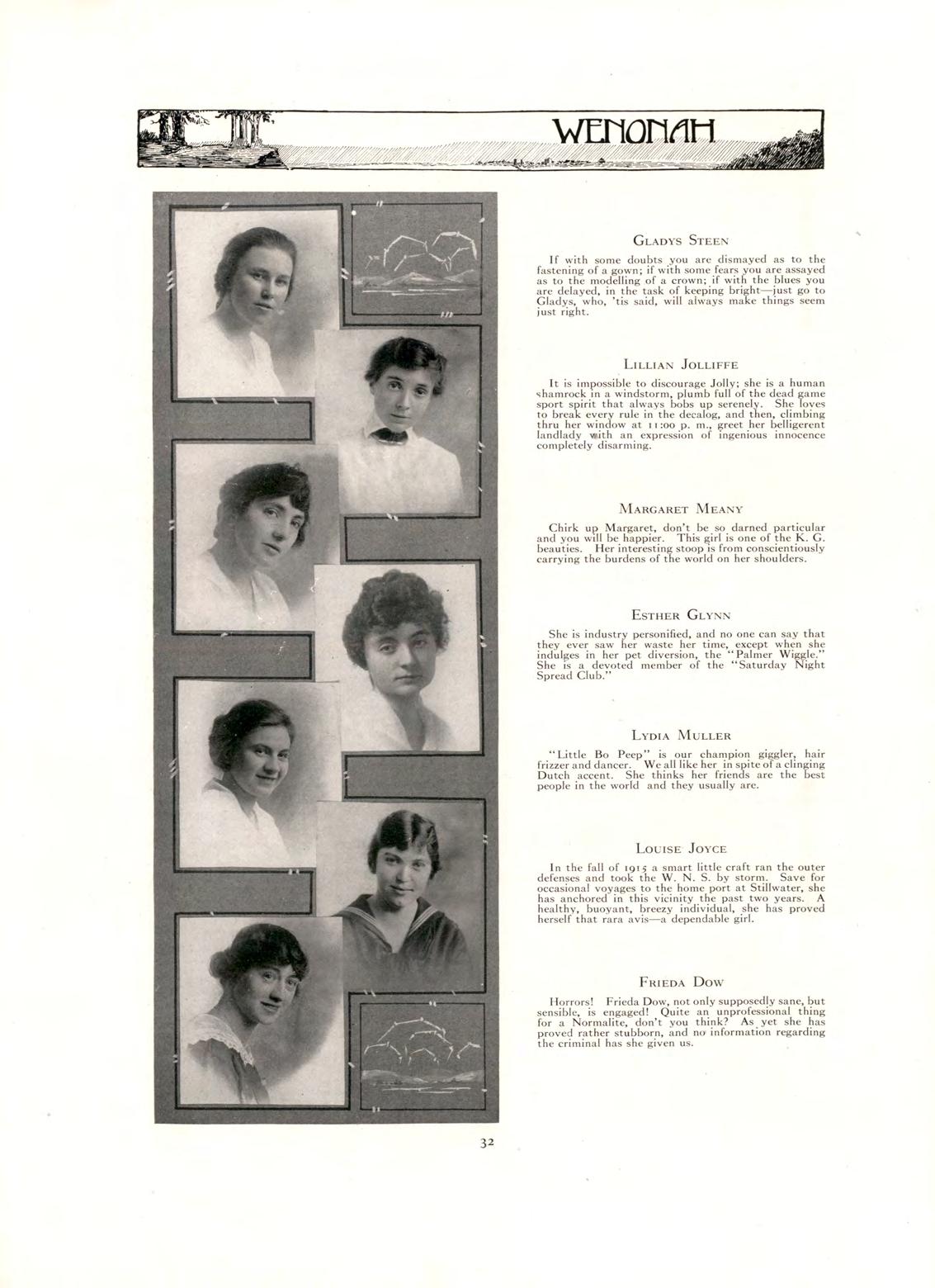
Chirk up Margaret, don’t be so darned particular and you will be happier. This girl is one of the K. G. beauties. Her interesting stoop is from conscientiously carrying the burdens of the world on her shoulders.
Esther Glynn
She is industry personified, and no one can say that they ever saw her waste her time, except when she indulges in her pet diversion, the “Palmer Wiggle.” She is a devoted member of the “Saturday Night Spread Club.”
Lydia Müller
“Little Bo Peep” is our champion giggler, hair frizzer anddancer. We all like her in spite of a clinging Dutch accent. She thinks her friends are the best people in the world and they usually are.
Louise Joyce
In the fall of 1915 a smart little craft ran the outer defenses and took the W. N. S. by storm. Save for occasional voyages to the home port at Stillwater, she has anchored in this vicinity the past two years. A healthy, buoyant, breezy individual, shehas proved herself that rara avi.s—a dependable girl.
Frieda Dow
Horrors! Frieda Dow, not only supposedly sane, but sensible, is engaged! Quite an unprofessional thing for a Normalité, don’t you think? As yet she has proved rather stubborn, and no information regarding the criminal has she given us.
Si..
32
Kathleen
Kathleen is the lady of the molasses taffy hair, and the beguiling tongue, who puts the punch into the advertising section. Off with your hats, everybody— here is the most responsible, attractive, sincere, dipiomatic, broad-minded girl in the class.

Estelle
Dick is the possessor of the one and original doublefire vocabulary, guaranteed to run twenty minutes without repeating. She is a hopeless highbrow. This annual is her literary and executive prowess up to now. The class expects her to make us famous sometime. “We are expecting some good stuff from you.”
Irene
In spite of her seriousness, shehas a lot of push to her, and is bent on making the kindergarten wheels go round. Sheis really carefree only when, on rare occasions, she finds herself at least five blocks away from the Normal.
Nora
Why worry about getting things the first time?
Nora will get them sometime.
Mildred
“Just because I’m Irish I’m not green.” From the tint of her hair and the smile in her eye it is not difficult to surmise whence she came. From her sunny disposition we imagine that she will end up in Hawaii.
Florence
She is cute and little and dark, and—she wears a diamond ring. ’Tis whispered that school work doesn’t appeal to her, that she likes them tall and dark. If you teach, here’s to you, Florence; if you don’t, why just the same.
Ellen
Ellen could rival Orpheus only she uses a piano instead of a lute. She’s always cheerful and ready to sympathize with everyone, in good and bad luck. When this large person heaves into sight, we are surprised by a soft little voice, an excellent thing in woman but not at all what we expect.
33
Sandidge
Randall—“Dick”
Lang
Johnson
Fallon
Gates
Simmonds
Anne Ritchie
She has lived with cousin Agnes for the past two years, without any of the “kommon family troubles” peculiar to roommates. We know her to be especially clever,considering the number of classes she sleeps thru. Prof: “Miss Ritchie, do you see that? well, then I guess we are ready to proceed.”
Grace Murphy
“You can come and observe me teach, girls. I’d just love to have you.” And yet she loves her own company. In fact, we fear she is a dreamer and except for her occasional visit asking for a flashlight after the lights have faded from Morey, we would never know Grace lived within our home.
Avada Newland
Avada’sthe girl who makes enough noise for twice her size. If you talk to her five minutes you are convinced that she discovered the Normal School all by herself, and it was really her father who had the first chicken who laid the first egg that bought the first cow who gave the first milk to make the first cheese.
Irma Sykes—“Psyche”
“The very pink of courtesy,” and perfectly harmless. Her favorite pastime is askingquestions, which she does with many bird-like movements of her head and hands. Neveridle a moment, but thrifty, and thoughtful of others.
Rena Sehler
This buxom, clinker-built girl’s wisdom comes from keeping her nose glued to the books. She combines this studiousness with true Dutch pig-headedness when arguing. She is kind, conscientious and thoro, but so quiet and reserved that that is about all she lets us know of her.
Sophia Jerezek
Her musical ability makes her the useful lady at the Training School every day at 1:30 p. m. The way she thumps out the pieces for the gymnastic exercises shows everyone that she means business.
Agnes Ritchie
In a benefit to help pay forthis book we were going to ask this long, slender, grief-stricken personage to sing, “Be glad, rejoice; spring is come,” but we were afraid she would bust up the snow. She bones the text continuallylforjclass standing, and gets it, too.

34
This little maid keeps life from becoming too monotonous by midnight tea-parties. How she manages to keep her unquenchable sweet disposition is a mystery. Gilmore Valley has attractions for her in more ways than one, but she seems to be the one woman who can keep a secret.
Marjorie Peers
Marj. has a strong tendency to use the interrogative sentence; we fear she will go so far some day as to stop St. Peter with his roll call to ask, “What’s that for?’’ or “Where did you get that?’’ She de.arly loves to travel, and her favorite trip is between Rush City and Winona.
Magdalen Roscoff
Magdalen is tall andcarries herself with a certain air of dignity that some of us have tried in vain to copy. She looks so innocent and wistful at times when trying to recite that teacher’s heart goes outto her. But hist! her secret—she has the glorious gift of bluff. To some hath it been given.
Marion Wood
Absolutely consistent and level headed, her strong, quiet nature is not affected by the waves that ripple the surface and keep most of us astir. It’s too bad that she concentrates her attentions, as it does the other men a great injustice. “The sweetest girl at school.’’ Meet her, like her, know her, love her; we all do.
Cora A. Peterson
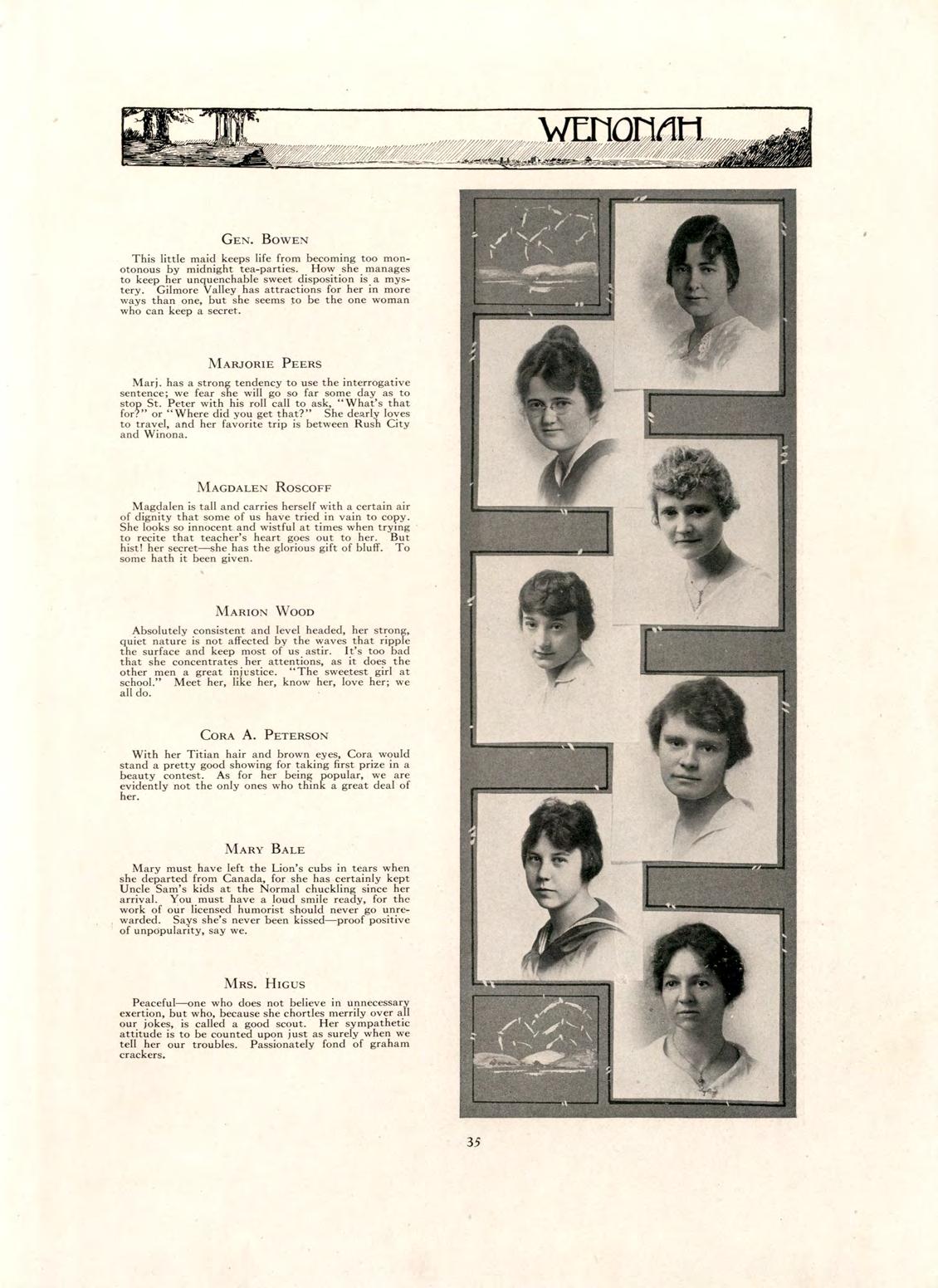
With her Titian hair and brown eyes, Cora would stand a pretty good showing for taking first prize in a beauty contest. As for her being popular, we are evidently not the only ones who think a great deal of her.
Mary Bale
Mary must have left the Lion’s cubs in tears when she departed from Canada, for shehas certainly kept Uncle Sam’s kids at the Normal chuckling since her arrival. You must have a loud smile ready, for the work of our licensed humorist should never go unrewarded. Says she’s never been kissed—proof positive of unpopularity, say we.
Mrs. Higus
Peaceful—one who does not believe in unnecessary exertion, but who, because she chortles merrily over all our jokes, is called a good scout. Her sympathetic attitude is to be counted upon just as surely when we tell her our troubles. Passionately fond of graham crackers.
Gen. Bowen
35
Julia Korsbrek
Slow, loitering on the paths of sentence structure, but sure that she is using the right path to the forest, we have come to love Julia and to try and “figure” her out. Like few people she “cracks” a joke very seldom, but when it comes it strikes the right spot. You never knew Julia, did you?
Rhod.a Ronlund
“Taken—to be called for later.” Writes one letter every day—says the R. F. D. man won’t leave the post oHice without it. Rhoda is the reincarnated goddess of an old Norse Saga, but alas!—she is afraid of the dark.
Eunice Myers
An awful worker! She will put snakes around her neck and spiders in her pocket with the same nonchalanee with which she eats a raw turnip or reads Plato. She is never so happy as when probing into the mysteries of a bug’s internal mechanism. À true rival of Isaac Walton, she is the author of that charming little book, “Why Worms Wiggle.”
Lois Ecklor
She seen her dooty and done it noble. Her success has been so simple and unpretentious that few of us realize how well shehas done the work required, in the past two years. “Have you an extra pencil?”
Cora Torbenson
Torby has a contagious laugh which peals forth at the most inconvenient times. She is an enormously busy person and can talk shop at any hour. Her aspirations, however, rise above school room drudgery —“Isn’t that a wonderful picture on her dresser tho! !”
Louise Winslade

She hasn’t been with us long, but she has won a first place in our affections, with her beauty and gentleness. She is a poet of unusual ability, as you can see for yourself, and can write the stuff “per instructions” while you wait.
Marion Bi.ee
If Marion’s discreet pace could in any sense be termed flying, we might describe her as one who comes “in silence and in fear.” But in an age of bluff she always has her lessons; the delight of every teacher, and the despair of the average flunker, Marion is always the same quiet, unpretentious, never-varying and sweettempered lady.
- -
36
Mildred Hodgins
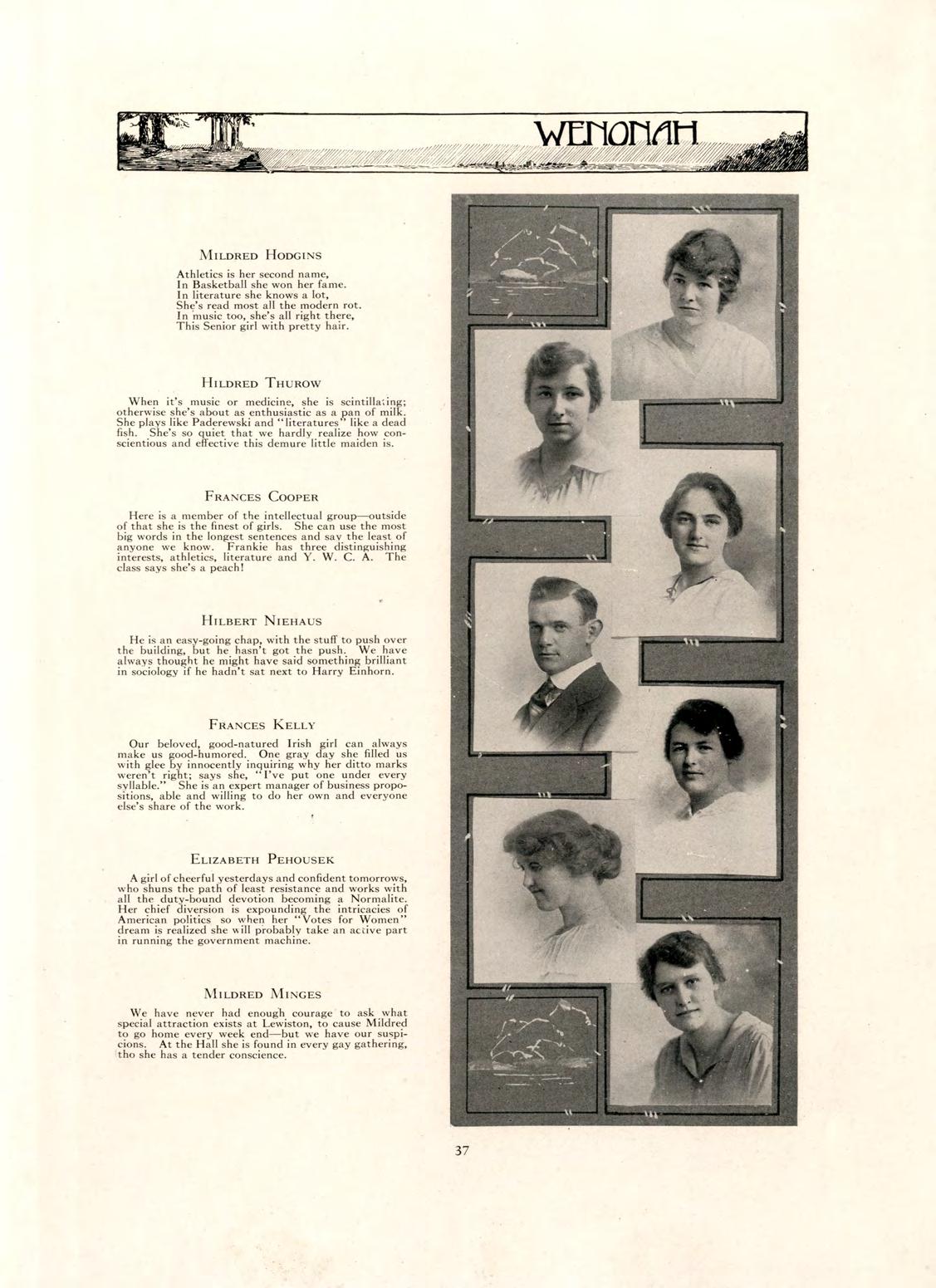
Athletics is her second name. In Basketball she won her fame. In literature she knows a lot. She’s read most all the modern rot. In music too, she’s all right there. This Senior girl with pretty hair.
Mildred Thurow
When it’s music or medicine, she is scintillaling; otherwise she’s about as enthusiastic as a pan of milk. She plays like Paderewski and “literatures” like a dead fish. She’s so quiet that we hardly realize how conscientious and effective this demure little maiden is.
Frances Cooper
Here is a member of the intellectual group—outside of that she is the finest of girls. She can use the most big words in the longest sentences and sav the least of anyone we know. Frankie has three distinguishing interests, athletics, literature and Y. W. C. A. The class says she’s a peach!
Hilbert Niehaus
He is an easy-going chap, with the stuff to push over the building, but he hasn’t got the push. We have always thought he might have said something brilliant in sociology if he hadn’t sat next to Harry Einhorn.
Frances Kelly
Our beloved, good-natured Irish girl can always make us good-humored. One gray day she filled us with glee by innocently inquiring why her ditto marks weren’t right; says she, I’ve put one under every syllable.” She is an expert manager of business propositions, able and willing to do her own and everyone else’s share of the work.
Elizabeth Pehousek
A girl of cheerful yesterdays and confident tomorrows, who shuns the path of least resistance and works with all the duty-bound devotion becoming a Normalité. Her chief diversion is expounding the intricacies of American politics so when her “Votes for Women” dream is realized she will probably take an active part in running the government machine.
Mildred Minges
We have never had enough courage to ask what special attraction exists at Lewiston, to cause Mildred to go home every week end—but we have our suspicions. At the Hall she is found in every gay gathering, tho she has a tender conscience.
37
The brunette with the flashing brown eyes. Sheis exceedingly clever at the profession of getting her lessons. She says she doesn’t study We should all like to know how she does it, but if she is unable to put us wise to her methods, we must consider it her extraordinary literary ability which makes her so capable.
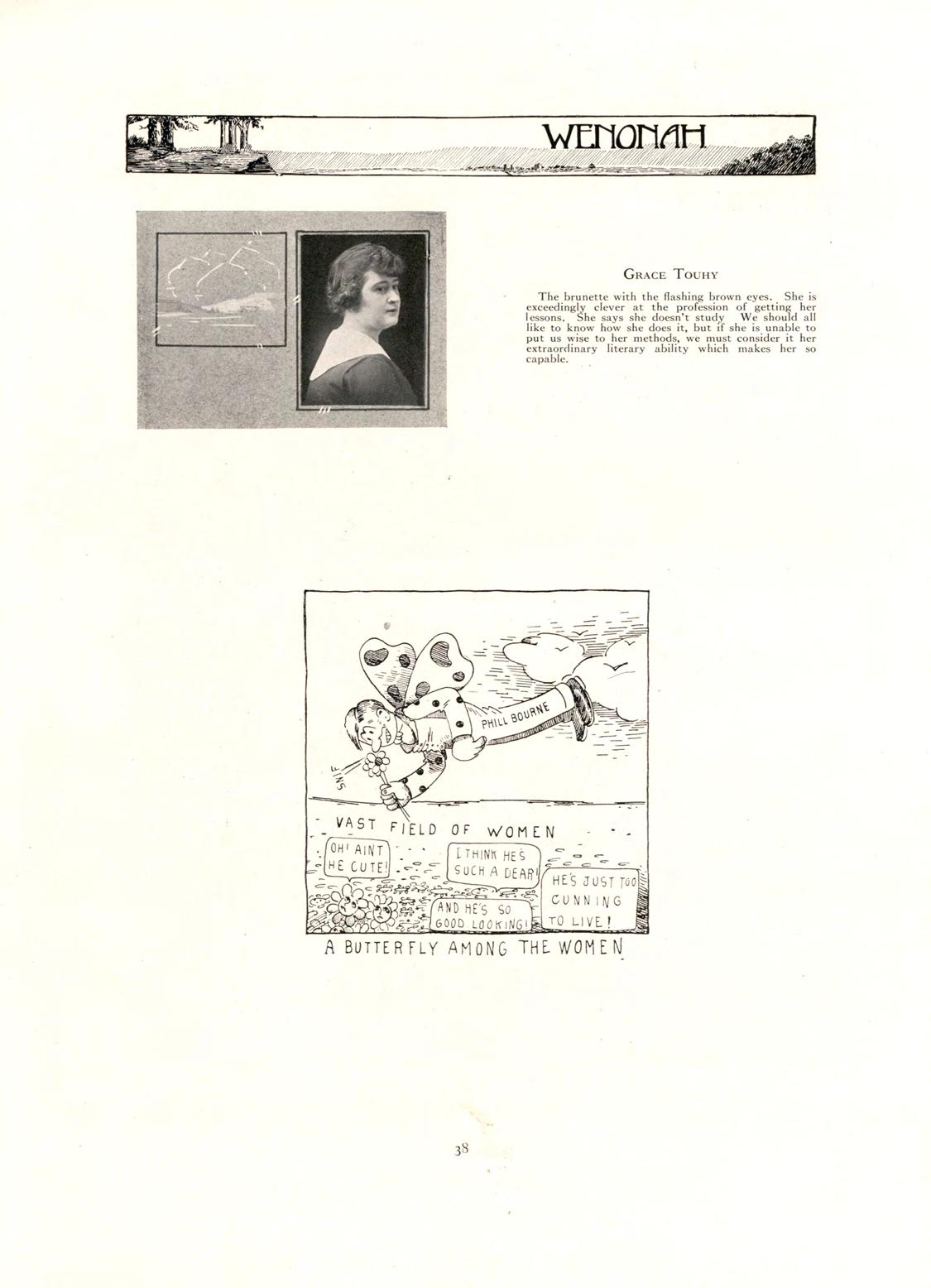
38
Grace Touhy
A Butterfly among THL WOMEN
The following poem is taken from “Skinny,” a play, not yet completed, by Mrs. Chorpenning and Mr. Stockton, which will probably be produced at some future date.

The curtain rises on a stage flooded with brilliant moonlight. From the distance comes the far song of a nightherder,rising and falling as he approaches and passes the point nearest the house, but loud enough to be understood at every point:
So ho! So ho! Around I go.
Around the herd in a circle, O,
An’ 1 sing a song, fer to keep ’em still.
An’ they likes the song as the critters will.
So ho! So ho! They stand an’ hunch.
As the wind gits under their risin’ hair.
Er they lay in spots where the shadders bunch.
An’ they rattle their horns as they’re layin’ there.
So ho! So ho! If the wind gits gay, Er a coyote howls er a storm comes out. Then they stamp their feet an’ they edge away.
An’ begin a-millin’ an’ weavin’ about.
So ho! So ho! I ride an’ ride.
An’ a cow bawls out, an’ the moon shines down.
An’ all on a sudden the world is wide ’Tween me an’ the girl that’s a-waitin’ in town.
3IIIIIIIIIIIIC
To A Bird
J. L. S.
WHENCE comes that wondrous song of pure content
To summon dawn from hidden realms of sleep!
What mystic spirit of the air is sent
As some inspiring harp that angels keep.
To breathe a soulful melody so deep. When e’en the winds are lulled in peaceful dreams. And all the world in sacred silence seems!
What golden voice that has not power to speak.
Yet in its charmed dialect unknown Can tell the hungry soul what joys to seek.
Uplifts, inspires, thru its magic tone!
An angel voice it is that sings alone. The depth and greatness of that melody Must rouse the soul to rise in harmony.
O soft-winged creature of the morning air. Sing to the ear of spring your heav’n-taught strain; And waft me to the spirit-land, fore’er.
To hear those liquid notes that soothe all pain. Those notes that tune the heart in love to reign. Reveal to me the greatness of the dawn;
O creature more than bird, sing on, sing on! L.
W.
39
They Wouldn’t Give
Paul Baumgartner
Behold the man that eats 137 soft-boiled, blue-ribbon Standard prunes at a single breakfast. We can testify that at least one girl finds a fat man attractive. Very intellectual, and endowed with the ability for taking part in all functions, he always sees his duty, and now has patriotically offered his services to Uncle Sam. As to his highest ambition we may say that it is to be a “high flier” in the aviation corps, and a “speeder” in the motor corps.
OUR SIAMESE TWINS
Earle and Merle
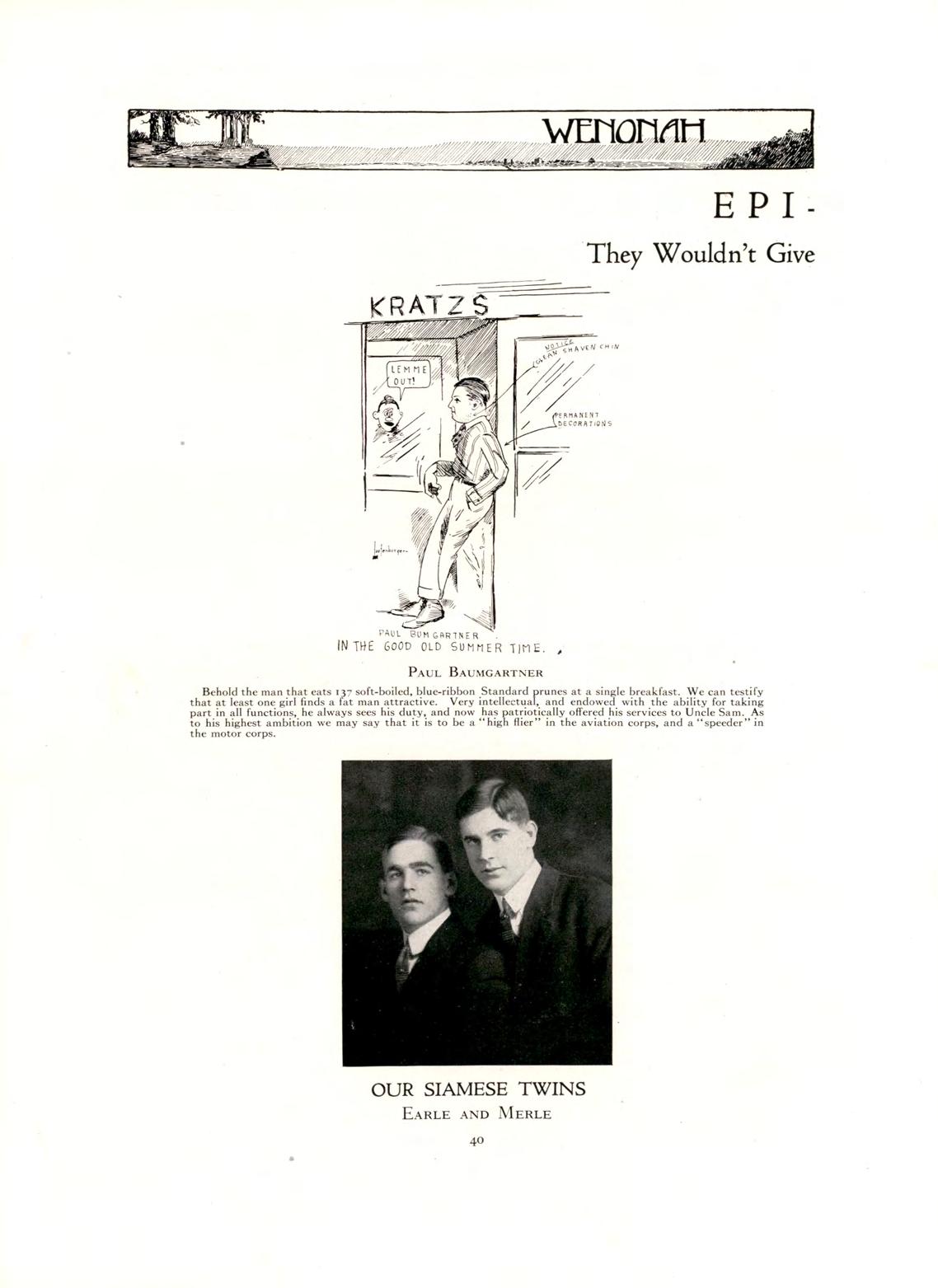
40 EPI-
TAPH
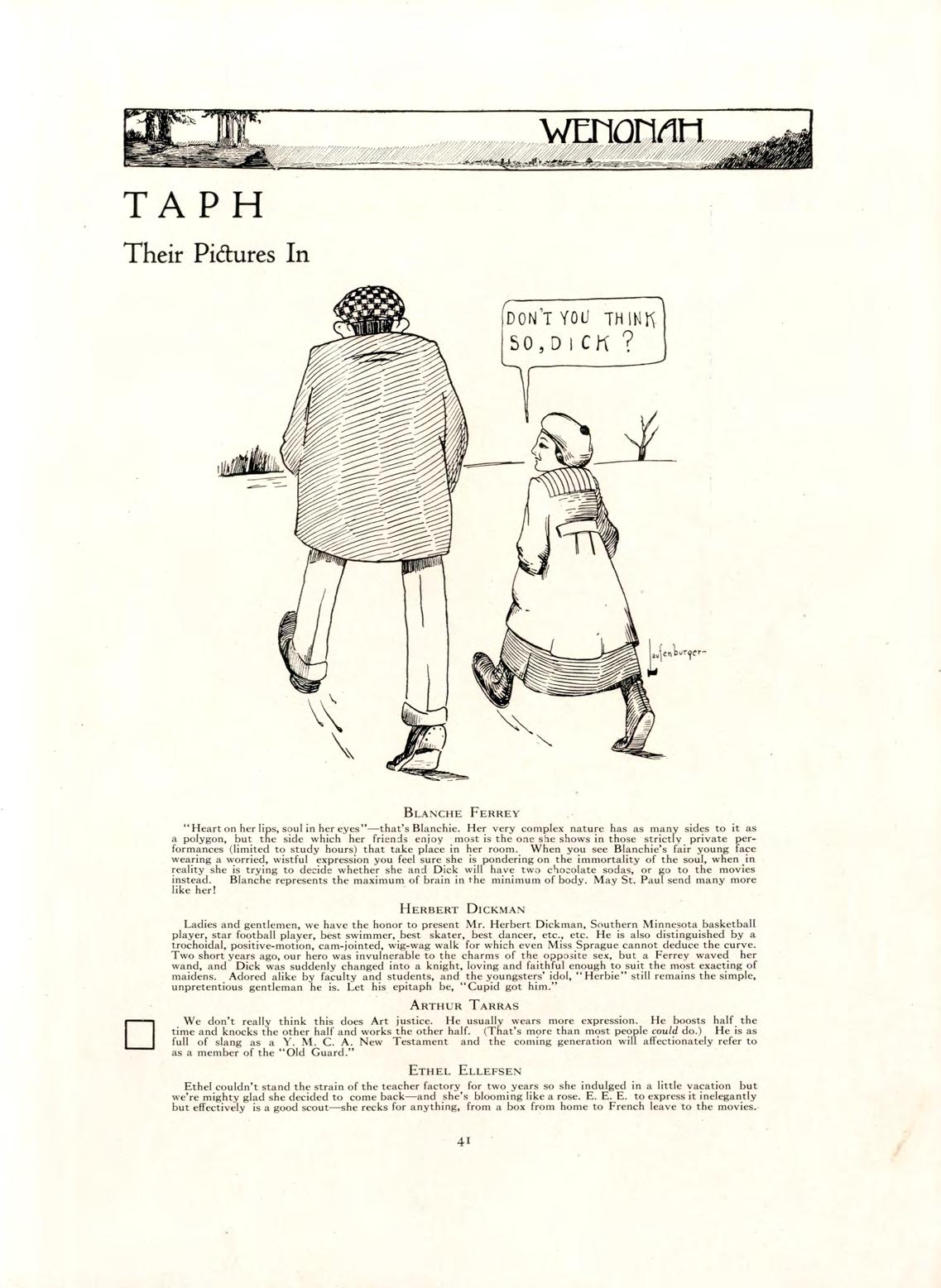
Their Pidures In don’t YOU IHIWW SO,DICK ?
Blanche Ferrey
“Heart on her lips, soul in her eyes”—that’s Blanchie. Her very complex nature has as many sides to it as a polygon, but the side which her friends enjoy most is the one she shows in those strictly private performances (limited to study hours) that take place in her room. When you see Blanchie’s fair young face wearing a worried, wistful expression you feel sure she is pondering on the immortality of the soul, when in reality she is trying to decide whether she and Dick will have two chocolate sodas, or go to the movies instead. Blanche represents the maximum of brain in the minimum of body. May St. Paul send many more like her!
Herbert Dickman
Ladies and gentlemen, we have the honor to present Mr. Herbert Dickman, Southern Minnesota basketball player, star football player, best swimmer, best skater, best dancer, etc., etc. He is also distinguished by a trochoidal, positive-motion, cam-jointed, wig-wag walk for which even Miss Sprague cannot deduce the curve. Two short years ago, our hero was invulnerable to the charms of the opposite sex, but a Ferrey waved her wand, and Dick was suddenly changed into a knight, loving and faithful enough to suit the most exacting of maidens. Adored alike by faculty and students, and the youngsters’ idol, Herbie” still remains the simple, unpretentious gentleman he is. Let his epitaph be, “Cupid got him.”
Arthur Tarras
We don’t really think this does Art justice. He usually wears more expression. He boosts half the time and knocks the other half and works the other half. (That’s more than most people could do.) He is as full of slang as a Y. M. C. A. New Testament and the coming generation will affectionately refer to as a member of the “Old Guard.”
Ethel Ellefsen
Ethel couldn’t stand the strain of the teacher factory for two years so she indulged in a little vacation but we’re mighty glad she decided to come back—and she’s blooming like a rose. E. E. E. to express it inelegantly but effectively is a good scout—she recks for anything, from a box from home to French leave to the movies.
41
Class Song
OH Winona, our class would sing thy praise, Oh Winona, our guide thru all our days; From thee we part, but keep at heart
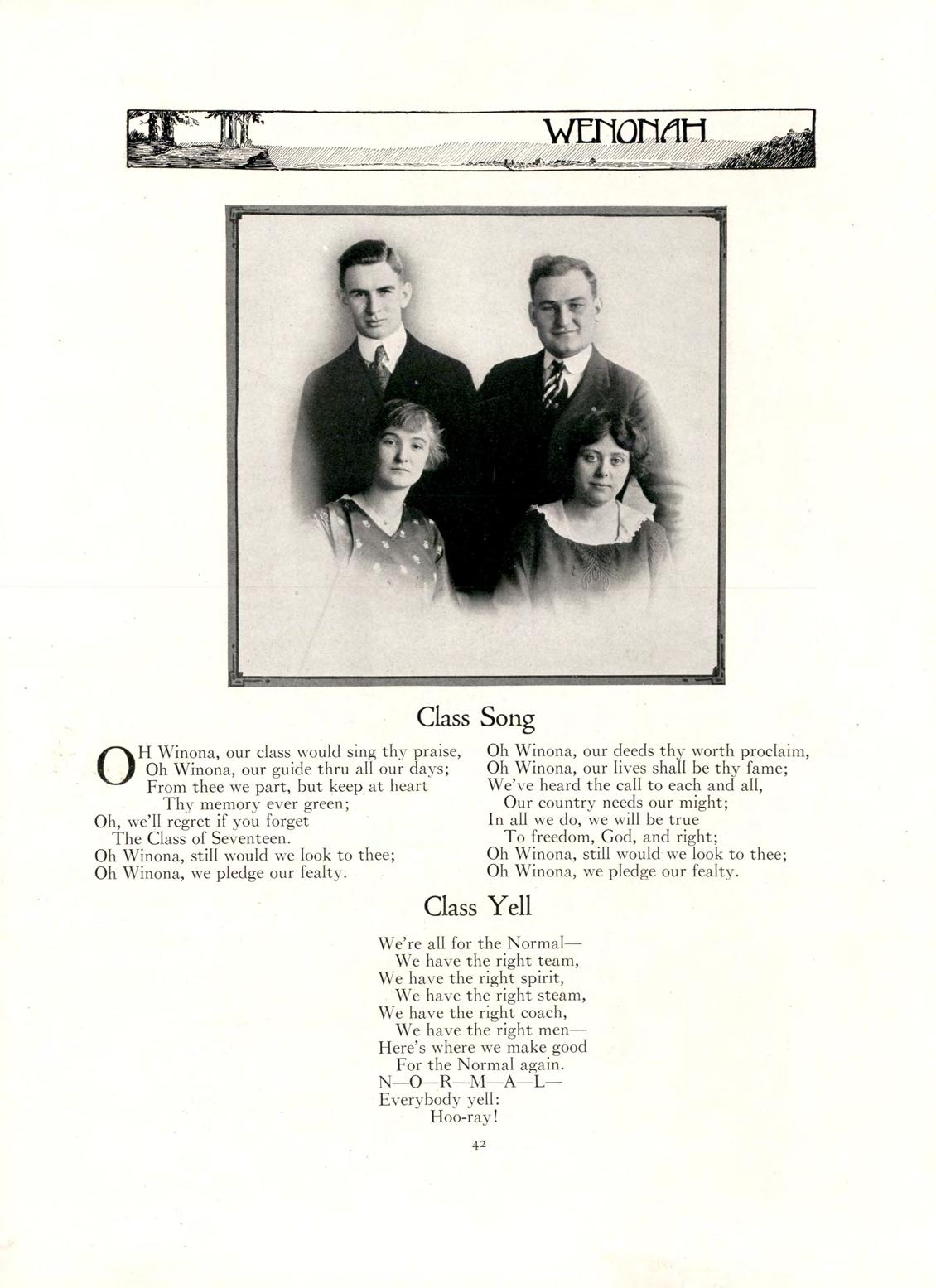
Thy memory ever green;
Oh, we’II regret if you forget The Class of Seventeen.
Oh Winona, still would we look to thee; Oh Winona, we pledge our fealty.
Oh Winona, our deeds thy worth proclaim. Oh Winona, our lives shall be thy fame; We’ve heard the eall to each and all. Our country needs our might; In all we do, we will be true To freedom, God, and right; Oh Winona, still would we look to thee; Oh Winona, we pledge our fealty.
Class Yell
We’re all for the Normal— We have the right team. We have the right spirit. We have the right steam. We have the right eoach. We have the right men— Here’s where we make good For the Normal again. N—O—R—M—A—L— Everybody yell: Hoo-ray!
42
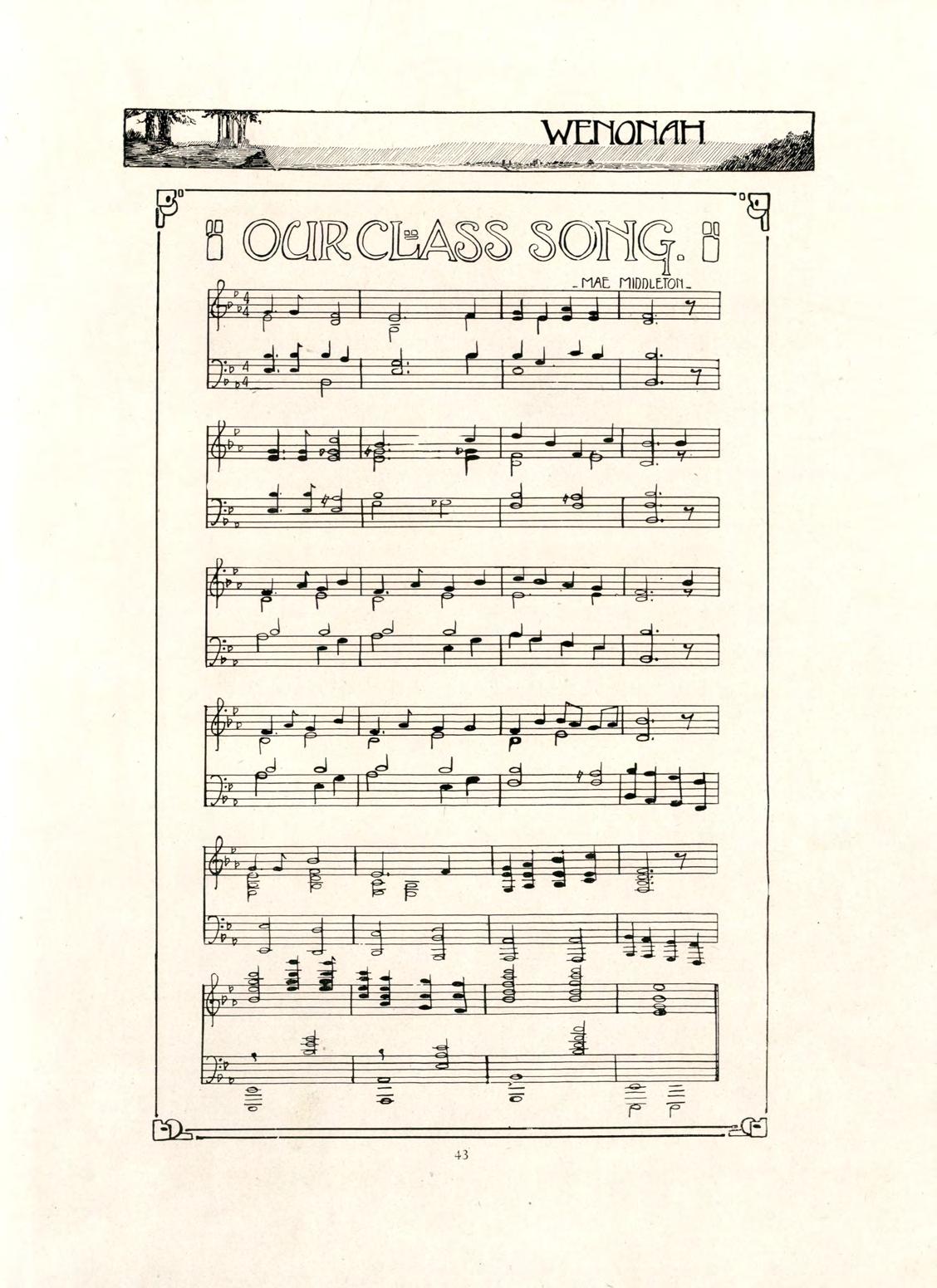
43
Senior Class History
 Mildred Hodgins
Mildred Hodgins
SO here I am, after going thru a thoro stage of gathering, assimilating, abstracting and applying. It is mostly applying now.”
“Oh, Jean, you sound like Miss Gildemeister, a la two years ago.”
It was about fiveo’clock in the afternoon of an April day. Two girls seemed to forget absolutely that they were in a schoolroom and that it was growing late. Mary, on her way home from vacation, had stopped off for a short visit with Jean, her pal and roommate three years before.
“Well,” Jean turned with a smile toward Mary, “I do hope you don’t think that none of that soaked in. Why,” with a reminiscent twinkle, “some things have actually soaked in so far that I can remember the minute details of their occurrence.”
“But I don’t remember doing much of anything but getting acquainted for the first few weeks,” she added. “The Juniors’ Hallowe’en Party to the Seniors seemed to be our first great event. Don’t you rememberhow Bud Moran appointed the committees, and how Mr. Maxwell read their names from the platform? When my name was mentioned I can see myself now, turning to meet the illuminated faces that would greet me. They never moved a muscle. Evidently the faculty were used to holding offices.”
“Yes, I was on a committee too,” interrupted Mary, “but there were four hundred on with me. ITe were the Clean-up Committee.”
“You mean you did the work of the Clean-up Committee that never was,” answered Jean, laughing.
“What came next, Jean? You seem to remember fairly well.”
“Work, my dear,” said Jean, “an endless stretch of work—time punctuated only by the appearance of pink slips and a few days of getting down to business. But don’t forget that we gradually made an impression on those Seniors. Finally it came to pass that the Senior stood not alone in grandeur great and solitude, but by his side, in athletics, love and war, stood the Junior!”
“Mercy!” exclaimed Mary. “And also that we were becoming prominent in the eyes of the faculty. Don’t you remember Dr. Dickerson found
“A debater!” said Jean.
“Yes, Philip and Bud were beginning to make Dr. Dickerson think he had found someone whocould really understand him.”
“Miss Smith Jean started again. Found Daphne Dyer,” prompted Mary.
“Yes, our class all agreed that Miss Smith foundthe best ‘find.’ And don’t you remember how many Juniors shook and grew faint as they went daily to Aliss Sprague’s room, and then the next term how we would find these same Juniors Proclaiming her wonders unto the whole school,” broke in Mary.
“Well, they weren’t far off, either. I tell you, Mary, I learned Arithmetic in that class, as I had never learned Arithmetic before, and when I finished I had used McMurry’s ‘How to Study’ to advantage.”
“Yes, yes, teacher, what comes next?”
“Mary, you ought to know that nominations came next. You know we were the staff of life around school whilethe Seniors were put thru the mill, and we did everything imaginable to get them off. Then they graduated, and we little sisters stood on the lower steps while our big ones passed over the threshold of life.”
“Poetically inclined,” Mary spoke to the bird on the window sill. “Jean, we also had big brothers. But let’s see. I can’t recall our next ‘first day’ half as vividly, can you, Jean?”
44
Mary awaited an answer, and in a moment it came: “September fifth, Lawn Party at Morey Hall—one good time; September sixteenth, school picnic on the bluffs; September twenty-second, faculty reception to students at Morey Hall—I ushered; September twentyeighth, lecture by
“See here, Jean, what are you doing?” exclaimed Mary. “I didn’t call for the calendar.” She turned, and knew what it meant, when purple and white met her eyes. Jean had been reading fromthe Y. W. directory.
“Lecture by Dr. Wmship,” continued Jean. “I missed that. One bad move in my history.”
“Don’t forget those football games we attended,” added Mary. “And also Miss Richards’ teas. And don’t you know how much fun we had hiking, and having picnics on the bluffs, and then again all thefun at the Harvest Party we gave to the Juniors? If it hadn’t been for student teaching coming in and gently upsetting my nerves, I might have really enjoyed that term of school.
“Now it was you, Jean, who always found enjoyment in taking those spelling tests, and spending two hours regularly each day in practising the Palmer movement. Also current events was your specialty, and
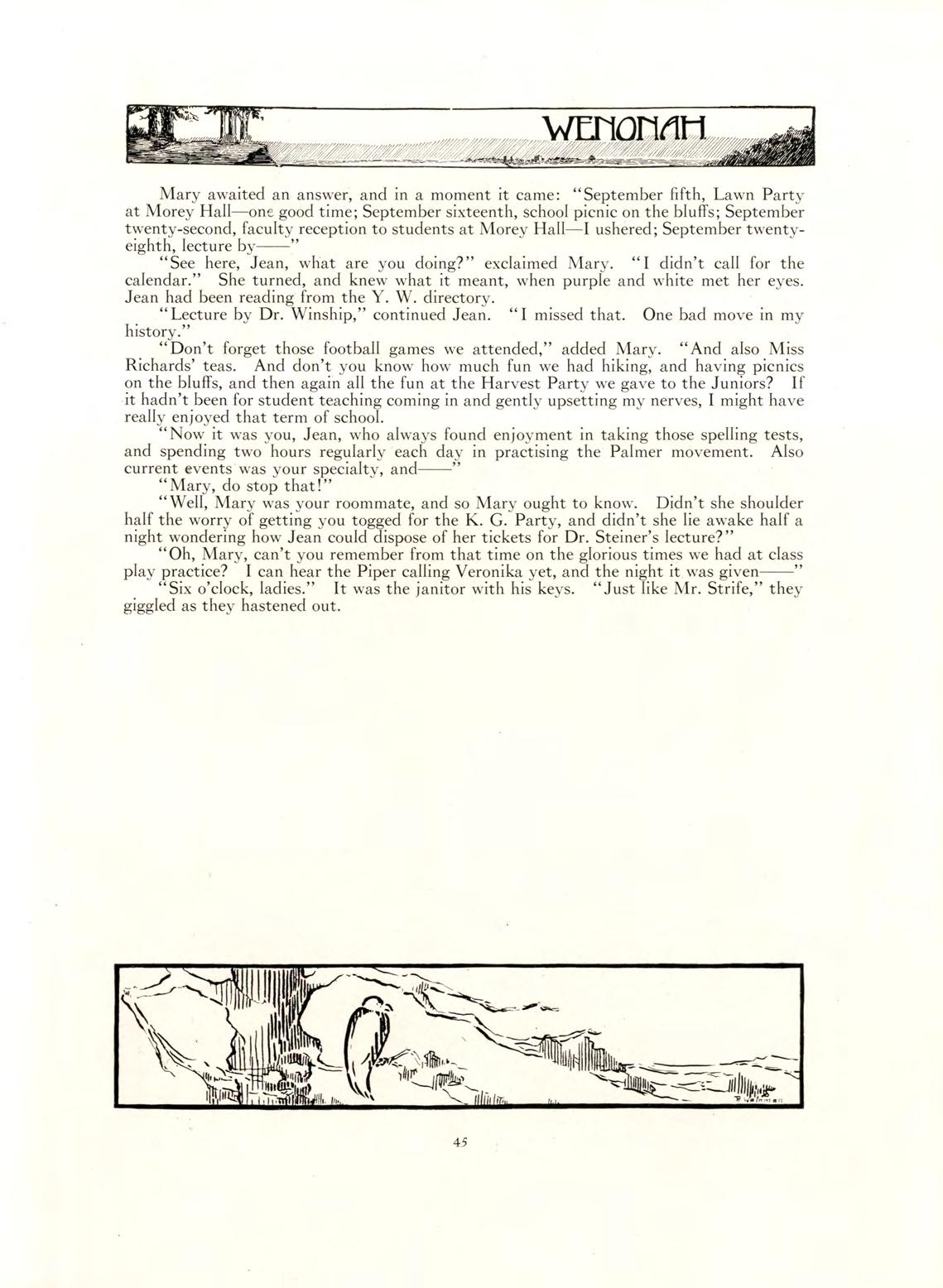
“Mary, do stop that!”
“Well, Mary was your roommate, and so Mary ought to know. Didn’t she shoulder half the worry of getting you togged for the K. G. Party, and didn’t she lie awake half a night wondering how Jean could dispose of her tickets for Dr. Steiner’s lecture?”
“Oh, Mary, can’t you remember from that time on the glorious times we had at class play practice? I can hear the Piper calling Veronika yet, and the night it was given
“Six o’clock, ladies.” It was the janitor with his keys. “Just like Vlr. Strife,” they giggled as they hastened out.
45
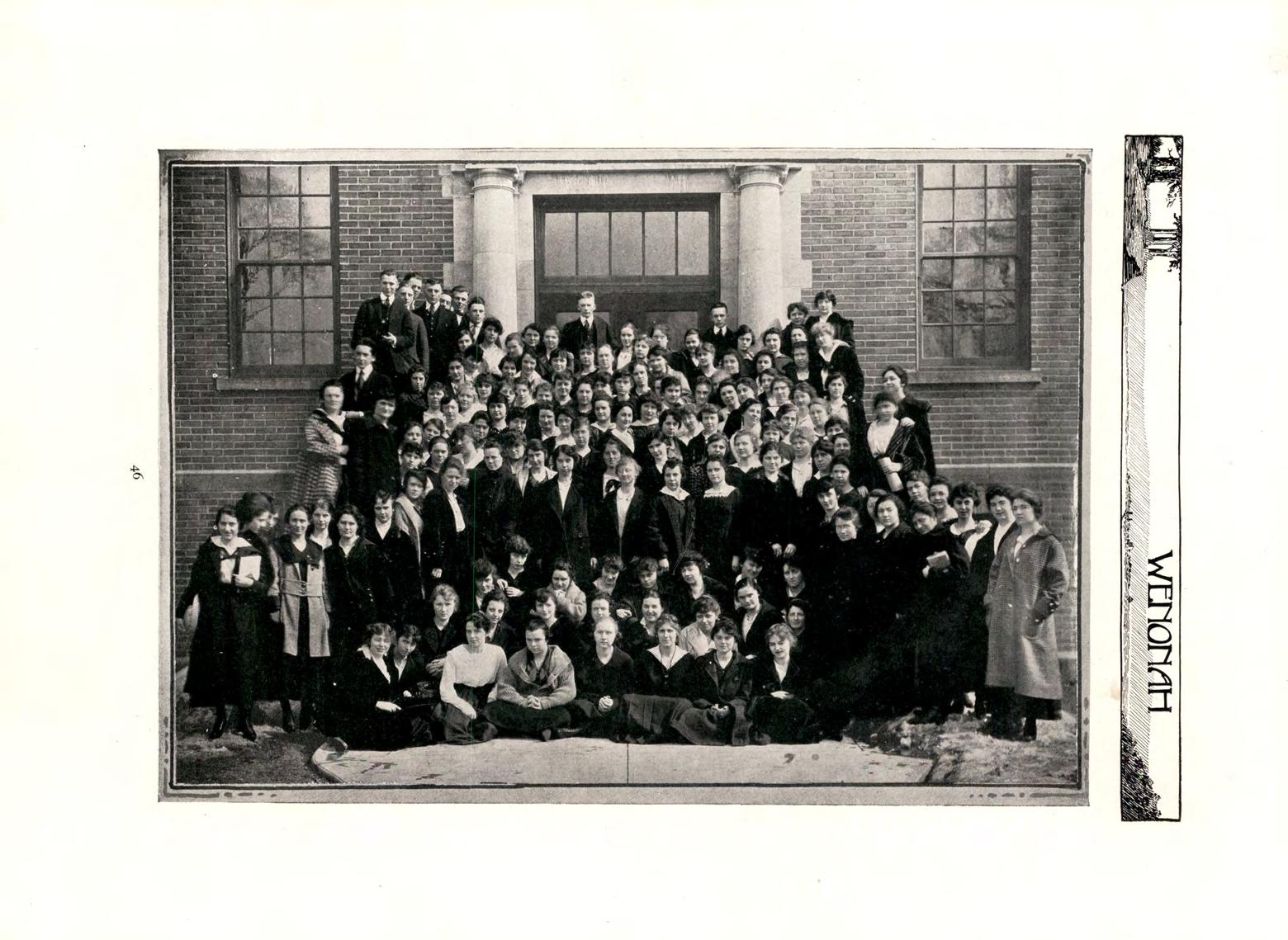
Y’-’■. * lifiv.
Junior Class History
 Marguerite Conhaim
Marguerite Conhaim
{With Apologies to Kipling)
YOU must know, O Best Beloved, that the events that I will chronicle and tell to you happened many, many moons ago, long before it was the custom of Normal students to take visitors out into the moonlight to gaze upon Sugar Loaf, even before Kratz’s was founded, and that, as you know, happened long, long ago. A little yellow canary bird heard this tale from his grandmother, and told it all to me, with various and sundry additions of his own. (You must not forget that the canary bird was yellow, because that shows how very bright he was.) Draw your chair up close to the fireplace, Best Beloved, and listen in-tent-Iy while I tell you thetale as it was told to me. Said the canary bird, with a little rustle of his wings, and a little wink of his eye, and a little flirt of his tail: ’Twas in the early part of September, 1916, that the vast horde of Juniors poured down upon the peaceful town of Winona. They thronged into the Normal Assembly and gazed boldly into the eyes of the faculty seated high upon the shrine before them. Truly,” said the canary bird, and he ought to know, “the lofty sweep of their alabaster brows made them dis-tinc-tive-Iy different (that’s magic) from any class that had previously graced this lofty institution. (You must not forget that the canary bird was yellow.) Days passed, and in the library the Juniors could be seen studiously and interestedly pouring over such literature as the ‘Literary Digest,’ and ‘The Independent’—but, then, from the beginning they were an unusual class. Even the Seniors admitted it.” The canary bird hesitated, ate a little birdseed, winked his left eye knowingly and continued. “At first, however, the Seniors did not associate with the riff-raff, and held themselves strangely aloof, but— more days passed, and the Seniors succumbed to the charms of the Juniors completely and finally. In fact, they became unhappy when not basking in the light oftheir presence, and actually/orced themselves upon the Juniors most impolitely.” The canary bird sharpened his beak viciously on a piece of cuttle bone, and shifted uneasily from one legjto the other. “But that,” said he, “is another story.” Thus,it came to pass, ere the snow had covered Sugar Loaf, that the Junior Class met, and elected their class officers (for that is an ancient and venerable custom) and these are the names of the officers they chose:
President
Harold Riley
Vice President Mildred Carhart
Secretary
Treasurer
Rae Whittom
Harold Olson
The canary bird cocked his head to one side and chirped contemplatively. “True to the high standard of the class, they were faithful to their trusts; they performed their respective duties efficiently and capably. The class was organized! I No longer were the Juniors a scattered mass of individuals, but a complete, compact, co-ordinated Force.” The canary bird warbled melodiously and continued: “One of ’em told me in confidence (but I know you won’t breathe it to a soul) that the Juniors really weren’t as bad as they looked! The townspeople, too, recognized their worth, and treated them royally. Many of the Juniors reciprocated by joining the various organizations. As a class they took active interest in the effort to raise the standard of the school in both spelling and penmanship (those are things grown-ups think quite important) and played no mean part in school athletics, dramatics, and literary societies. But,” said the canary bird as he settled himself comfortably on his perch (and you must not forget that he was yellow), “you mustn’t think that the Juniors had no good times, because they cer-tain-Iy did. Mr. Holzinger took them on many long, delightful hikes, picnics thrived, and a Harvest Party given by the devoted Seniors was a tremendous success.” The canary bird stopped for
47
want of breath, and chirped weakly, “All in all, this class was so wonderful in the progress it made in all lines, that I heard it whispered that the Juniors had an offer to make to the faculty, namely, that in view of the fact that the faculty had worked so hard, the Juniors were willing to grant them a leave of absence of one year, during which time certain members would fill their respective positions and continue their uplifting work.” The canary bird made no attempt to conceal the fact that he was very, very sleepy, and chirped, “That is all I can tell you today, but let it be understood that words are inadequate to express how high this class stands in my estimation; the year 1916-17 will be remembered for many things, but the shining light gleaming forth first and foremost is the Junior Class of Winona Normal.” This, O Best Beloved, is the history of the Juniors, told by the canary bird (and you must noi forget that the canary bird was yellow), and HE ought to know.
The Little Braves
agnes ackerson
latinia ackerson
grace alger annie alian
mary alian
iva i. aldworth
lila almquist
elsie anderson
elvira anderson
agnes archambo
barbara armstrong
blanche armstrong
grace armstrong
loretta armstrong
nann ashcroft
juliet ask
estherbaab
margaret backman
alice baehr
jeannette baer
lola baldwin
celia e. barrett
emma bartsch
joyce batson
louise baum
grace baumbach
winifred bausman
eva belden
genevieve bennett
florence bentley
edith bergstrom
ella berning
anna bjorge
lavelle blackman
dora blackmore
edith bohn
ruth boley
lepearl bonner
elsie bonn
Josephine brannon
regina brotherton alma brown
ethel brown
eleanor buckett
irma bullard
ida burmeister
burr buswell
mildred calligan
florence Campbell
francés Campbell
grace Campbell hazel Campbell
mildred carhart
Stanley carncross
honor carpenter
lucile carson
esther carver
mary caulfield
mildred chase
Irene childs
charlotte dark
julia dark
cecile colling
marguerite conhaim
ethel conway
ethel cook
iura Cooke
roberta cooper
charles considine
margaret corcoran
elizabeth crosgrove
evelyn cronkright
rebecca crouch
helene culhane
gayle cummings
thelma curran
edith dahl
letha davidson
kenneth davis
muriel davnie
marian day
gertrude degnan
marie de silva
doris dickerman
nellie dickerman
agnes donahue
dorothea donahue
margaret donahue
ethel doten
evelyn dotterweich
mabel doty
oda dreblow
luella dreveskracht
marie drewry
estella duncan
marian dunham
enga eastwold
mabel eddy
e ovedia eiken
judith eiken
rosebud engel
elvira erickson
edith erickson
myrtle erickson
georgia erwin
marian evans
alberta felenzer
florence fellowes
ada fifield
marie fischer
Cornelia fish
charlotte fish
alice fisher
lovering flannery
mary foley
edith foster
mary fox
beulah franklin
francés freeborn
lois frye
arthur gallien
hazel geler
margaret george
esther gilbertson
dorothy gillespie
elsie gilow
evaline gillies
mildred gillin
ida ginsmer
1ydia glabe
margaret glenn
alphonse goergen
jeannette goergen
richard going
bess gordon
muriel gorham
avis gorman
johanna grabowska
Susan gralf
sarah grant
Iloyd grimes
nina gunlogsen
belle gustad
florence gustafson
ruth haaven
margaret hagen
ralph hammer
thora hammer
ruth hankenson
anna hansen
bertha hansen
adelia hanson
alma hanson
edith hanson
esther hanson
mark hanson
mabel harris
lauretta harrison
mary hart
cora hartman
margaret hassett
marian haugen
lenora hawley
mildred heaner
marguerite heaney
hazel hegerty
florence heierman
elsa heimer
emma heimer
estelle heimer
Inez helmbrecht
james Hennessey
marguerite herbst
helen hermann
martha hermann
lovllla hill
wanda Hines
mildred holm
luella holt
clara horde
laurahorton
Helen Howe
ellen hughes
gordon huntley
francés hutchinson
elsie janke
nora jennings
estHer jenson
grace jenson
earle jewell
merle jewell
adeline johnson
agnes johnson
daisy johnson
dorothy johnson
edith johnson
florence johnson
paul joHnson
ruby johnson
viola jordan
anna jozwiak
mildred jozwiak
john katowski
irene kauphusman
josephine
irene kay
lola kelly
katHerine kennedy
esther kernkamp
orphie kiekhoefer
myrtle kinsley
mary koister
elsie koHlmeyer
ida kratz
emma kreidermacher
esther kroehler
edwin krueger
henrletta kruger
ethel kuster
clara kuzel
irma langworthy
lola lapham
hazel lappin
helen larson
Valeria lawson
mary laycock
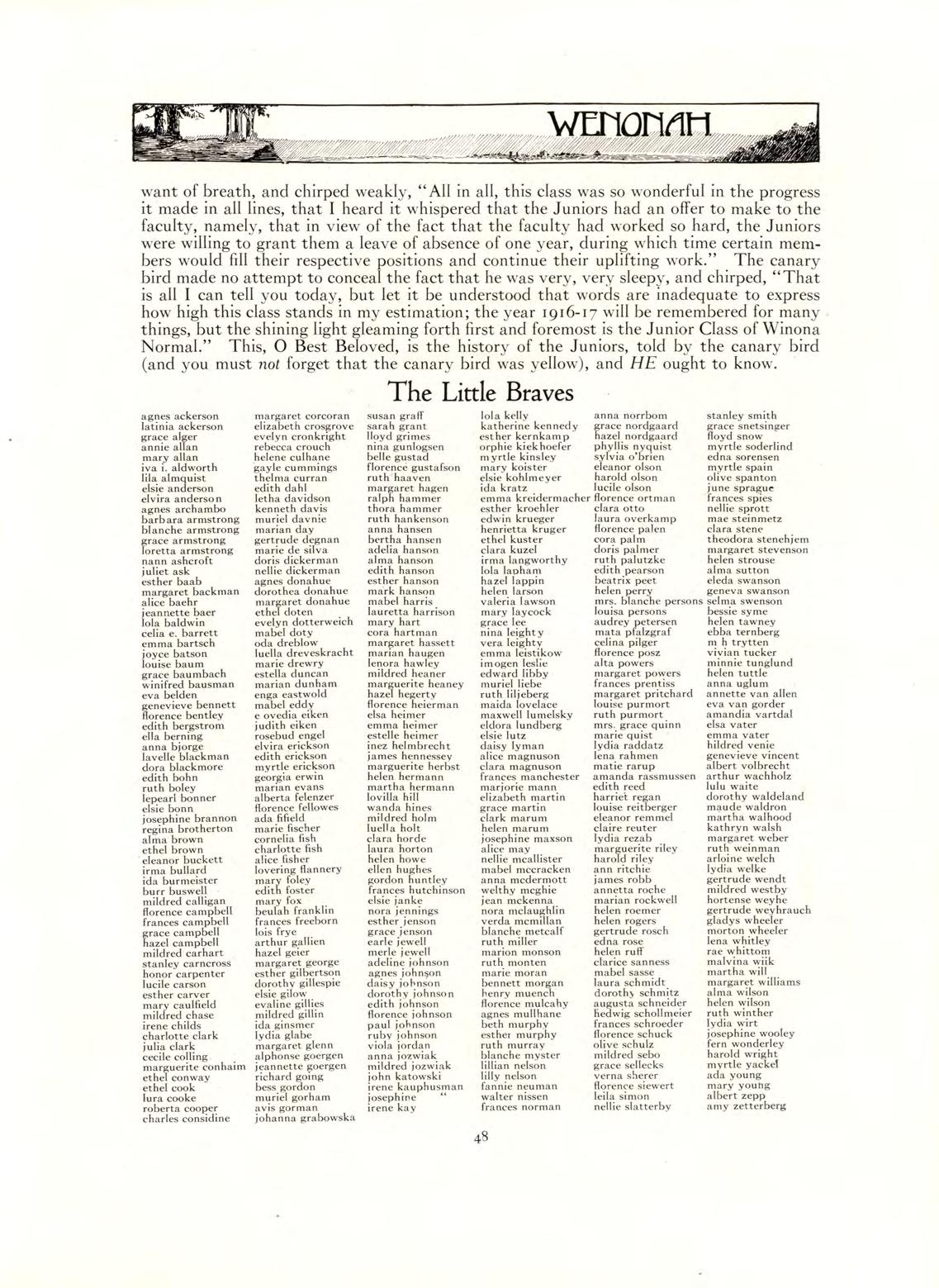
grace lee
nina leighty
vera leighty
emma leistikow
imogen leslie
edward libby
muriel liebe
ruth liljeberg
maida lovelace
maxwell lumelsky
eldora lundberg
elsie lutz
daisy lyman
alice magnuson
clara magnuson
francés manchester
marjorie mann
elizabeth martin
grace martin
dark marum
Helen marum
josephine maxson
alice may
nellie mcallister
mabel mccracken
anna mcdermott
welthy mcghie
jean mckenna
nora mclaughlin
verda mcmillan
blanche metcalf
rutH miller
marión monson
ruth monten
marie moran
bennett morgan
henry muench
florence mulcahy
agnes mullhane
beth murphy
esther murphy
ruth murray
blanche myster
lillian nelson
lilly nelson
fannie neuman
waiter nissen
francés norman
anna norrbom
grace nordgaard
hazel nordgaard
phyllis nyquist
Sylvia o’brien
eleanor oison
harold oison
lucile oison
florence ortman
clara otto
laura overkamp
florence païen
cora palm
doris palmer
ruth palutzke
edith pearson
beatrix peet
Helen perry mrs. blanche persons
louisa persons
audrey petersen
mata pfalzgraf
Celina pilger
florence posz
alta powers
margaret powers
francés prentiss
margaret pritchard
louise purmort
rutH purmort
mrs. grace quinn
marie quist
lydia raddatz
lena rahmen
matie rarup amanda rassmussen
edith reed
harriet regan
louise reitberger
eleanor remmel
claire renter
lydia rezab
marguerite riley
Harold riley
ann ritchie
james robb
annetta roche
marian rockwell
helen roemer
helen rogers
gertrude rosch
edna rose
helen ruff
clarice sanness mabel sasse
laura schmidt
dorothy schmitz
augusta Schneider
hedwig schollmeier
francés schroeder
florence scHuck
olive schulz
mildred sebo
grace sellecks
verna sherer
florence siewert
leila simón
nellie slatterby
Stanley smith
grace snetsinger
floyd snow
myrtle soderlind
edna sorensen
myrtle Spain
olive spanton
june Sprague
francés spies
nellie sprott
mae steinmetz
clara stene
theodora stenehjem
margaret Stevenson
helen strouse
alma sutton
eleda swanson
geneva swanson
Selma swenson
bessie syme
Helen tawney
ebba ternberg
m h trytten
vivian tucker
minnie tunglund
helen tuttle
anna uglum
annette van alien
eva van gorder
amandia vartdal
elsa vater
emma vater
hildred venie
genevieve vincent
albert volbrecht
arthur wachholz
lulu waite
dorothy waldeland
maude waldron
martha walhood
kathryn walsh
margaret weber
ruth Weinman
arloine welcH
lydia welke
gertrude wendt
mildred westby
Hortense weyHe
gertrude weyhrauch
gladys wheeler
morton wheeler
lena whitley
rae whittom
malvina wiik
martha will
margaret williams
alma wilson
helen wilson
rutH wintHer
lydia wirt
josepHine wooley
fern wonderley
harold wright
myrtle yackel
ada young
mary youhg
albert zepp
amy zetterberg
48
An Irish Bum
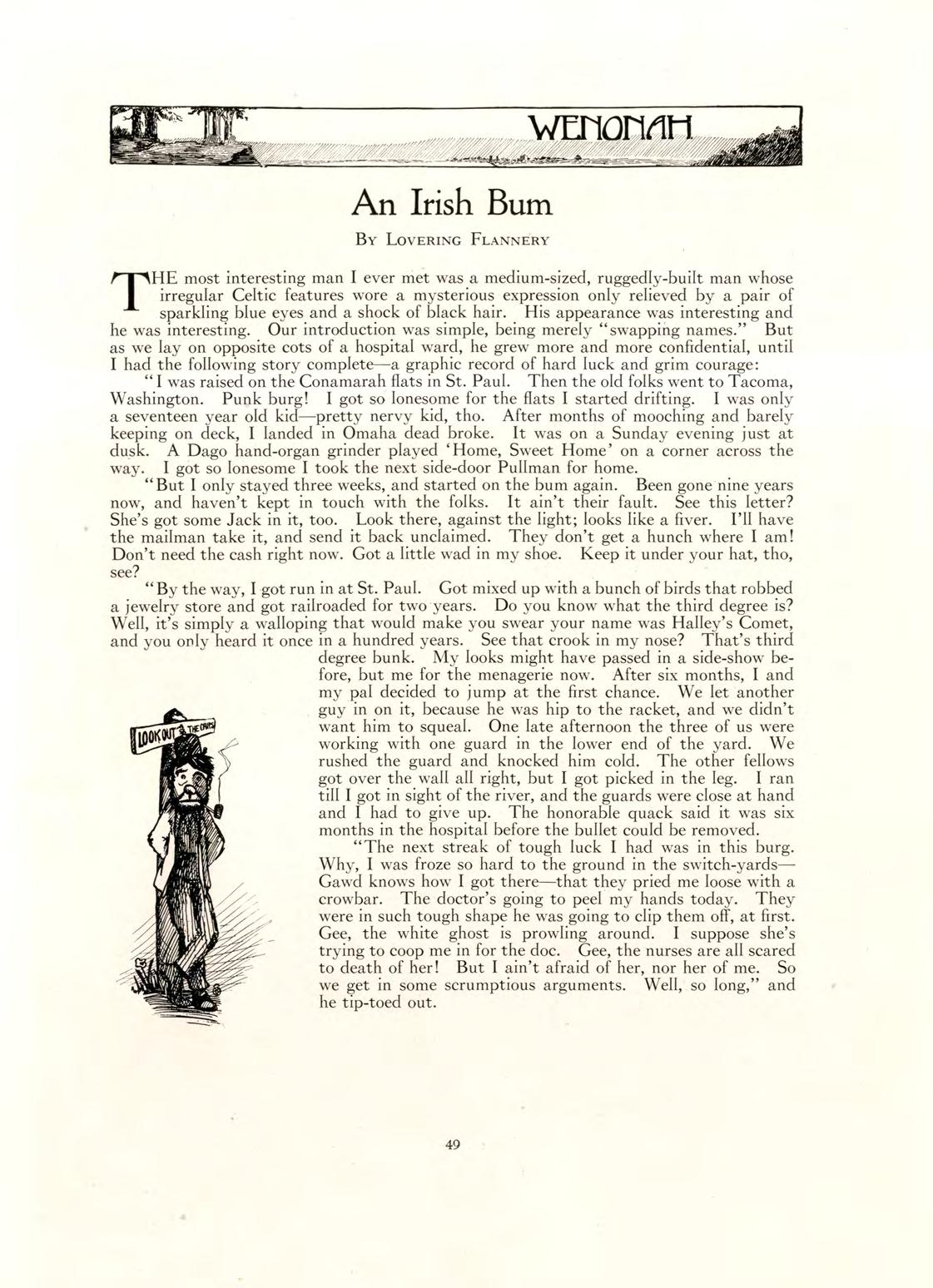 By Lovering Flannery
By Lovering Flannery
The most interesting man I ever met was a medium-sized, ruggedly-built man whose irregular Celtic features wore a mysterious expression only relieved by a pair of sparkling blue eyes and a shock of blackhair. His appearance was interesting and he was interesting. Our introduction was simple, being merely “swapping names.” But as we lay on opposite cots of a hospital ward, he grew more and more confidential, until I had the following story complete—a graphic record of hard luck and grim courage:
I was raised on the Conamarah flats in St. Paul. Then the old folks went to Tacoma, Washington. Punk burg! I got so lonesome for the flats I started drifting. I was only a seventeen year old kid—pretty nervy kid, tho. After months of mooching and barely keeping on deck, I landed in Omaha dead broke. It was on a Sunday evening just at dusk. A Dago hand-organ grinder played ‘Home, Sweet Home’ on a corner across the way. I got so lonesome I took the next side-door Pullmanfor home.
“But I only stayed three weeks, and started on the bum again. Been gone nine years now, and haven’t kept in touch with the folks. It ain’t their fault. See this letter? She’s got some Jack in it, too. Look there, against the light; looks like a fiver. I’ll have the mailman take it, and send it back unclaimed. They don’t get a hunch where I am! Don’t need the cash right now. Got a little wad in my shoe. Keep it under your hat, tho, see?
By the way, I got run in at St. Paul. Got mixed up with a bunch of birds that robbed a jewelry store and got railroaded for two years. Do you know what the third degree is? Well, it’s simply a walloping that would make you swear your name was Halley’s Comet, and you only heard it once in a hundred years. See that crook in my nose? That’s third degree bunk. My looks might have passed in a side-show before, but me for the menagerie now. After six months, I and my pal decided to jump at the first chance. We let another guy in on it, because he was hip to the racket, and we didn’t want him to squeal. One late afternoon the three of us were working with one guard in the lower end of the yard. We rushed the guard and knocked him cold. The other fellows got over the wallall right, but I got picked inthe leg. I ran till I got in sight of the river, and the guards were close at hand and I had to give up. The honorable quack said it was six months in the hospital before the bullet could be removed.
“The next streak of tough luck I had was in this burg. Why, I was froze so hard to the ground inthe switch-yards— Gawd knows how I got there—that they pried me loose with a crowbar. The doctor’s going to peel my hands today. They were in such tough shape he was going to clip them off, at first. Gee, the white ghost is prowling around. I suppose she’s trying to coop me in for the doc. Gee, the nurses are all scared to death of her! But I ain’t afraid of her, nor her of me. So we get in some scrumptious arguments. Well, so long,” and he tip-toed out.
49
The Kindergartners FACULTY MEETING
PLACE—Drawing Room.
TIME—5:05 P. M.
KEY-WORD and TOPIC SENTENCE—Kindergartners.
Mr. AIaxwell (look of anticipation on jovial countenance) ; And now' if Mr. Dickerson has no more criticism or objections to make concerning the Kindergartners, we will close.
(Doctor Dickerson clears throat preparatory to speaking, and attempts to rise.)
Miss Sutherland (gleam of battle in her eyes); The KindahgahtenDepahtment is a dignified one. I am suah that the young w'omen now in the Depahtment ah measuring up to the standahd. I have found them most reliable girls.
(Vigorous bobbing oj heads signifies faculty approval. Doctor Dickerson looks sarcastic and attempts to rise.)
Mrs. Chorpenning: Yes, they certainly—are reliable—girls. Now, for—example, if their theme papers—are not ready to hand in—I can always rely upon their excuses being—carefully—prepared. In one case I w'as—calmly informed that in order to keep me from “perishing from monotony,” a—student had changed—her topic and so had— not finished her paper.
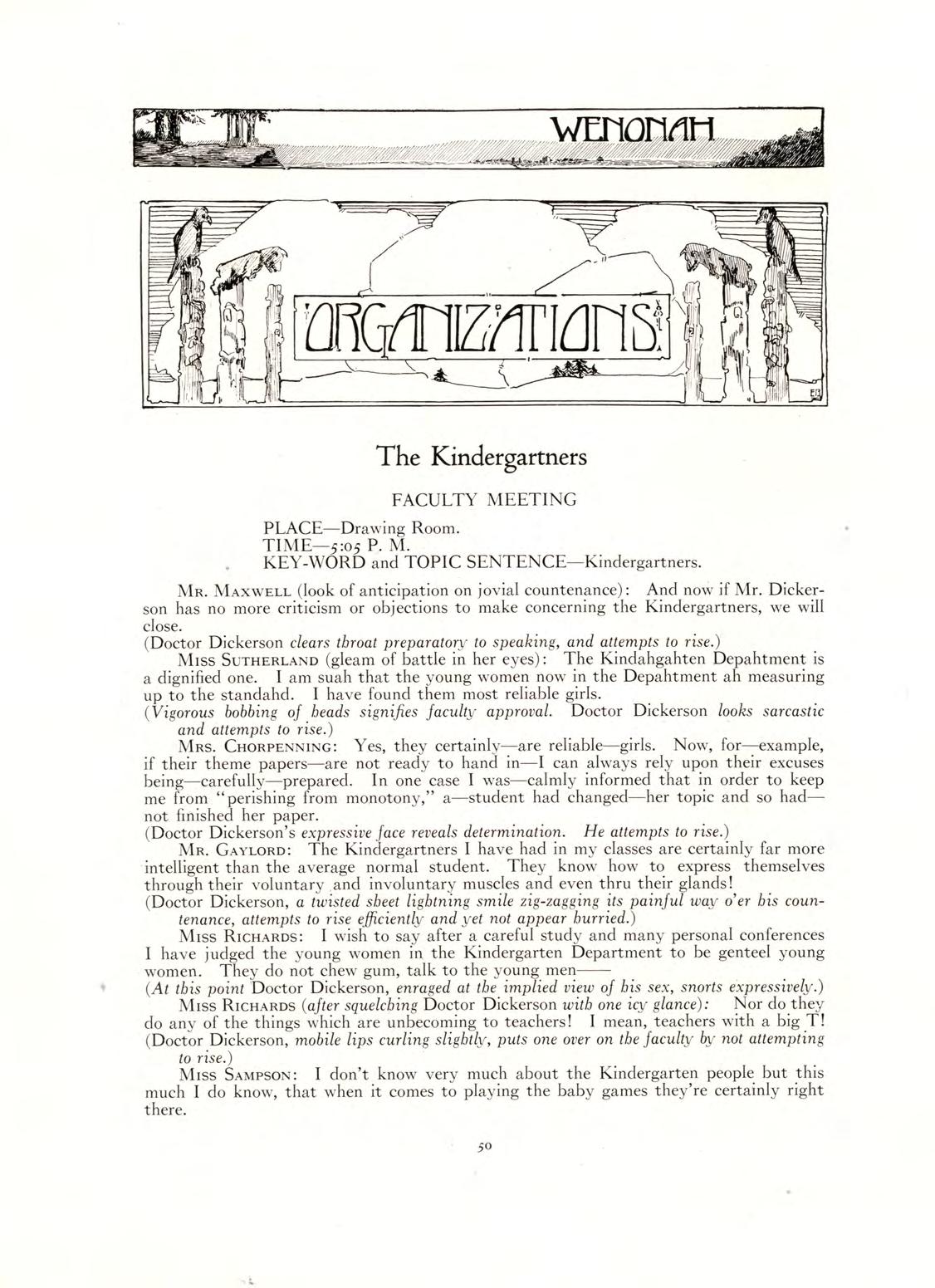
(Doctor Dickerson’s expressive face reveals determination. He attempts to rise.)
Mr. Gaylord; The Kindergartners I have had in my classes are certainly far more intelligent than the average normal student. They know how to express themselves through their voluntary and involuntary muscles and even thru their glands!
(Doctor Dickerson, a twisted sheet lightning smile zig-zagging its painful way o’er his countenance, attempts to rise efficiently and yet not appear hurried.)
Miss Richards; I wish to say after a careful study and many personal conferences I have judged the young women in the Kindergarten Department to be genteel young women. They do not chew gum, talk to the young men
(At this point Doctor Dickerson, enraged at the implied view of his sex, snorts expressively.)
Miss Richards (after squelching Doctor Dickerson with one icy glance): Nor do they do any of the things which are unbecoming to teachers! I mean, teachers with a big T!
(Doctor Dickerson, mobile lips curling slightly, puts one over on the faculty by not attempting to rise.)
Miss Sampson; I don’t know very much aboutthe Kindergarten people but this much I do know, that when it comes to playing the baby games they’re certainly right there.
50
(Doctor Dickerson makes an attempt to rise.)
Miss Smith (all in one breath): I am so glad the opportunity has been given me to express my opinion as to the dear beloved Kindergarten girls. They are so musical, so lovely, so witty and so sweet and so agreeable in every way.
Mr. Maxwell: Surely, Mr. Dickerson, such unanimity of feeling should convince you that the young ladies are most pleasing. But for the necessity of my performing janitor duties I would havehad the time in which to make the acquaintance soeially of these charming girls. But as it is growing very late, nearly a quarter of six, and incidentally there is to be a volley ball match, let us close. No doubt. Doctor Dickerson, in time your ideas will grow to be more like Miss Conhaim’s.
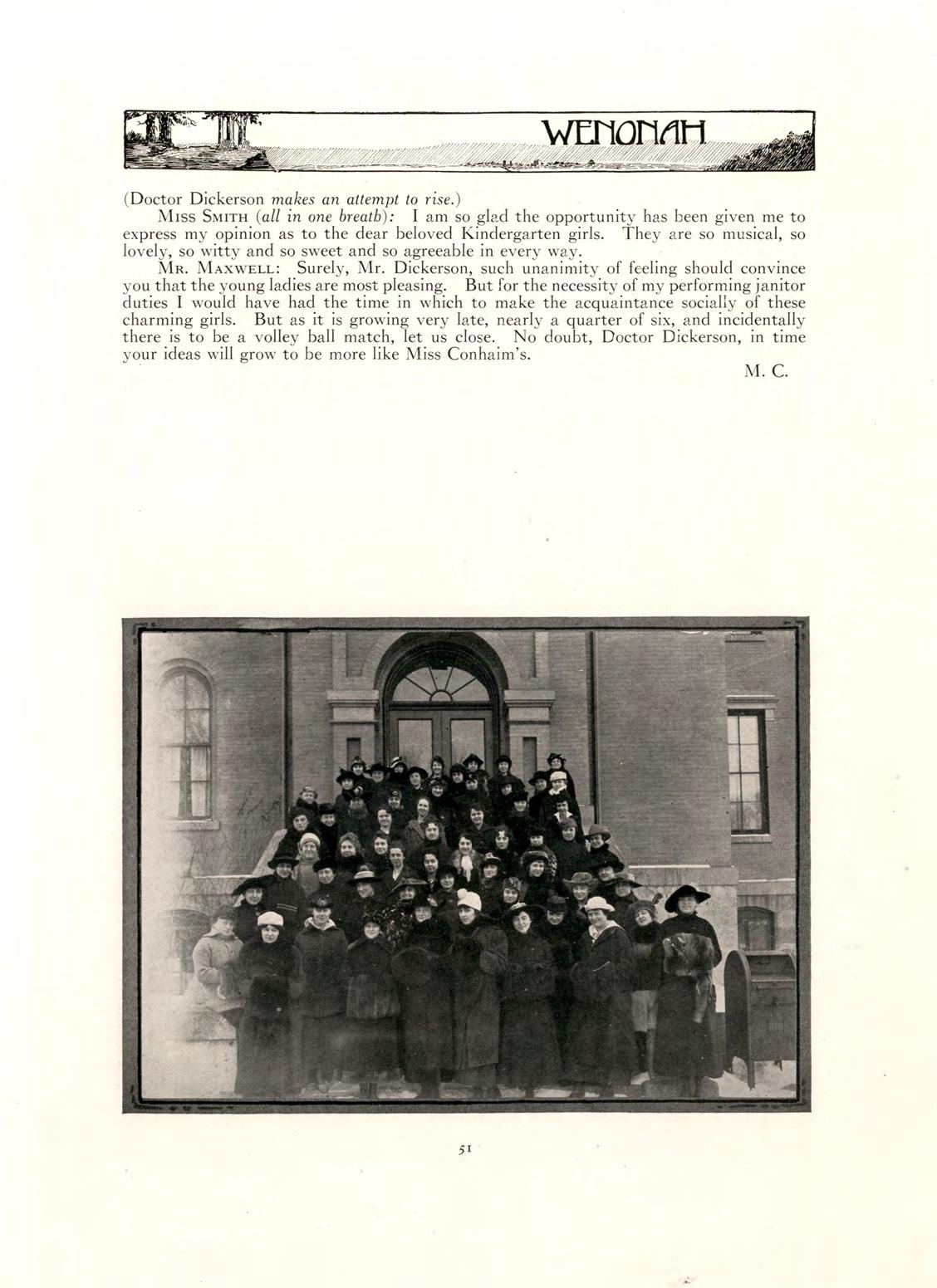 M. C.
M. C.
51
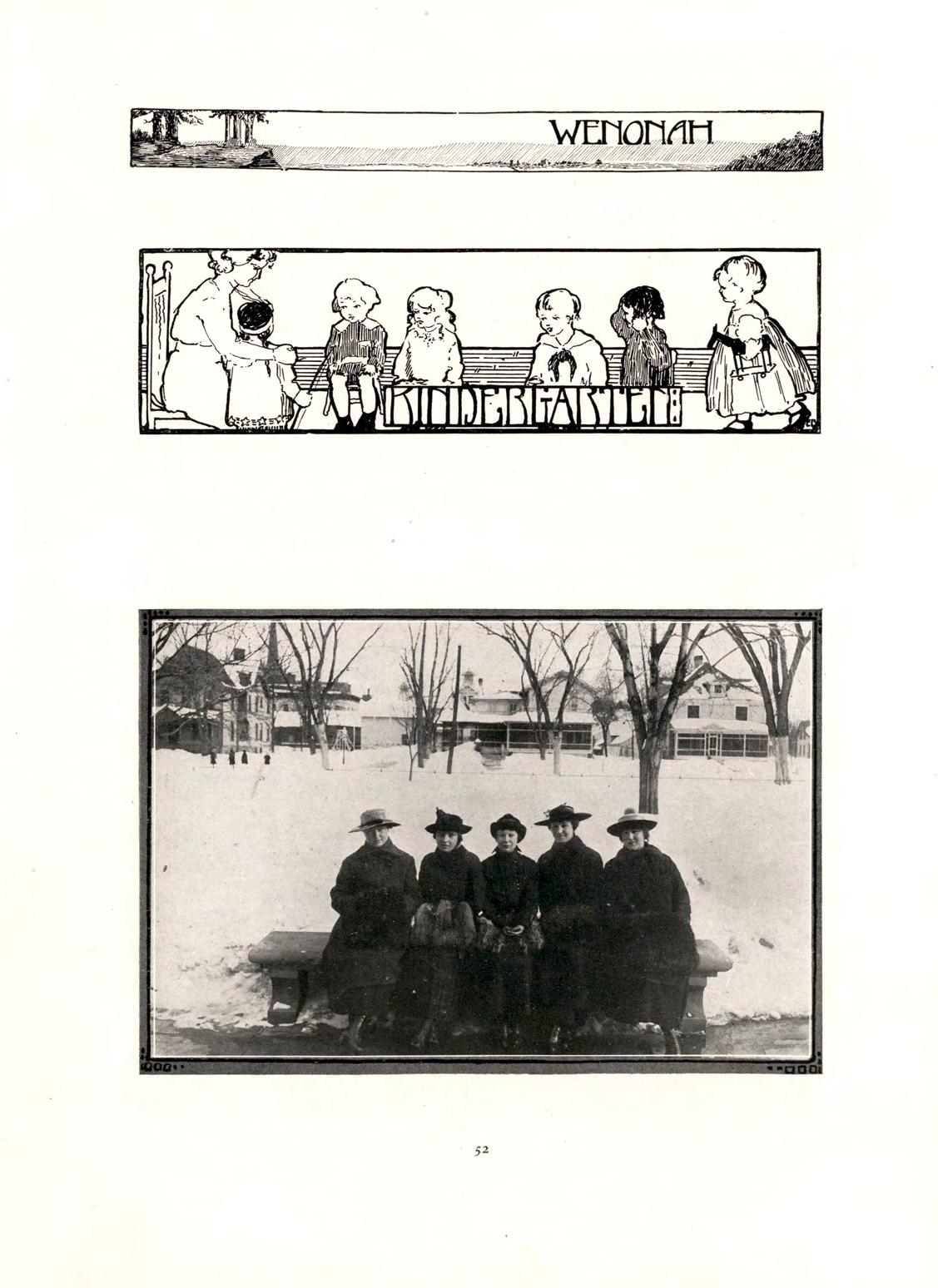
52
The Story of the Kindergarten Club
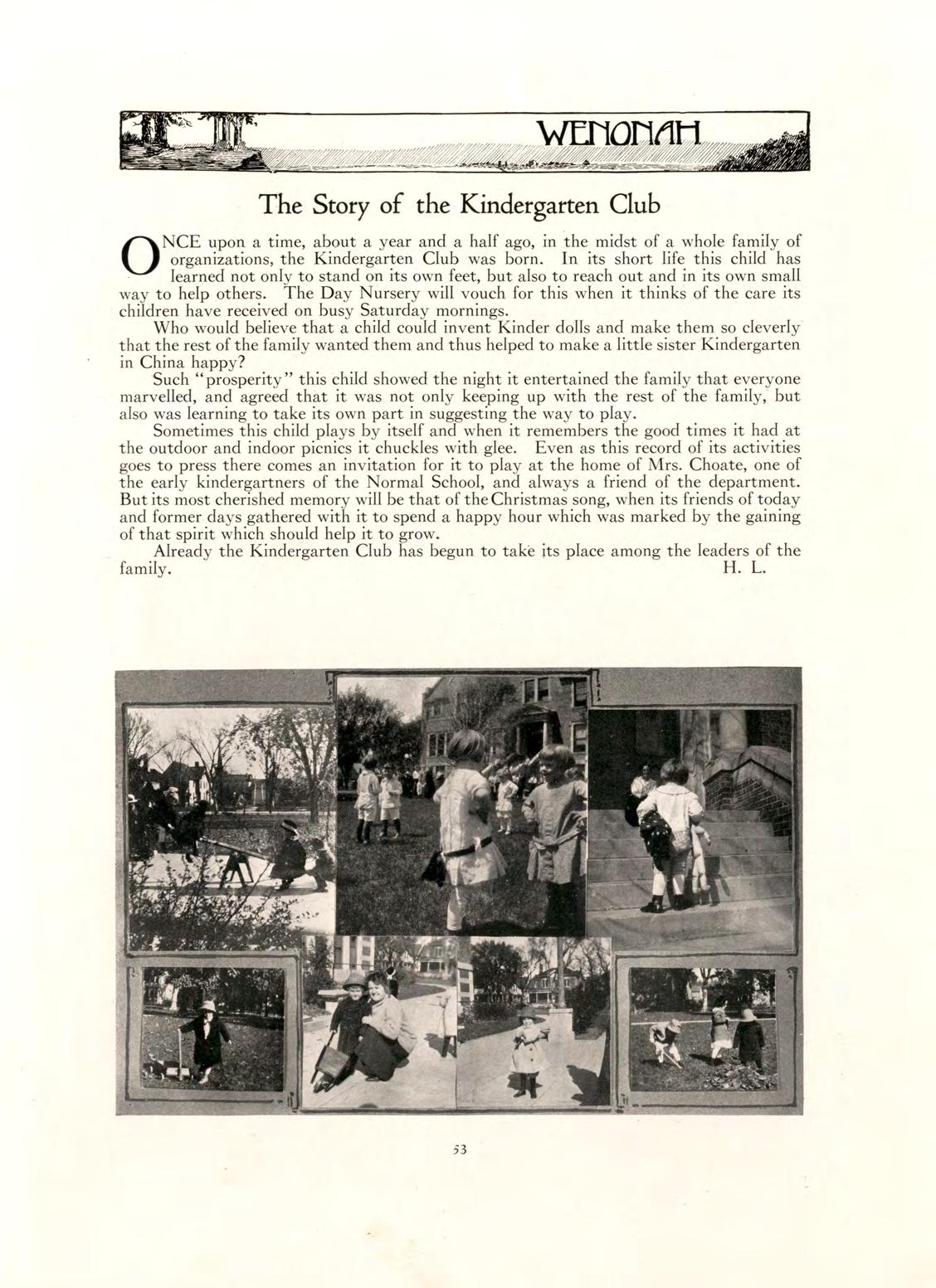
ONCE upon a time, about a year and a half ago, in the midst of a whole family of organizations, the Kindergarten Club was born. In itsshort life this child has learned not only to stand on its own feet, but also to reach out and in its own small way to help others. The Day Nursery will vouch for this when it thinks of the care its children have received on busy Saturday mornings.
Who would believe that a child could invent Kinder dolls and make them so cleverly that the rest of the family wanted them and thus helped to make a little sister Kindergarten in China happy?
Such “prosperity” this child showed the night it entertained the family that everyone marvelled, and agreed that it was not only keeping up with the rest of the family, but also was learning to take its own part in suggesting the way to play.
Sometimes this child plays by itself and when it remembers the good times it had at the outdoor and indoor picnics it chuckles with glee. Even as this record of its activities goes to press there comes an invitation for it to play at the home of Mrs. Choate, one of the earlykindergartners of the Normal School, and always a friend of the department. But its most cherished memory will be that of the Christmas song, when its friends of today and former days gathered with it to spend a happy hour which was marked by the gaining of that spirit which should help it to grow.
Already the Kindergarten Club has begun to take its place among the leaders of the family.
H. L.
53
The Forum Literary Society
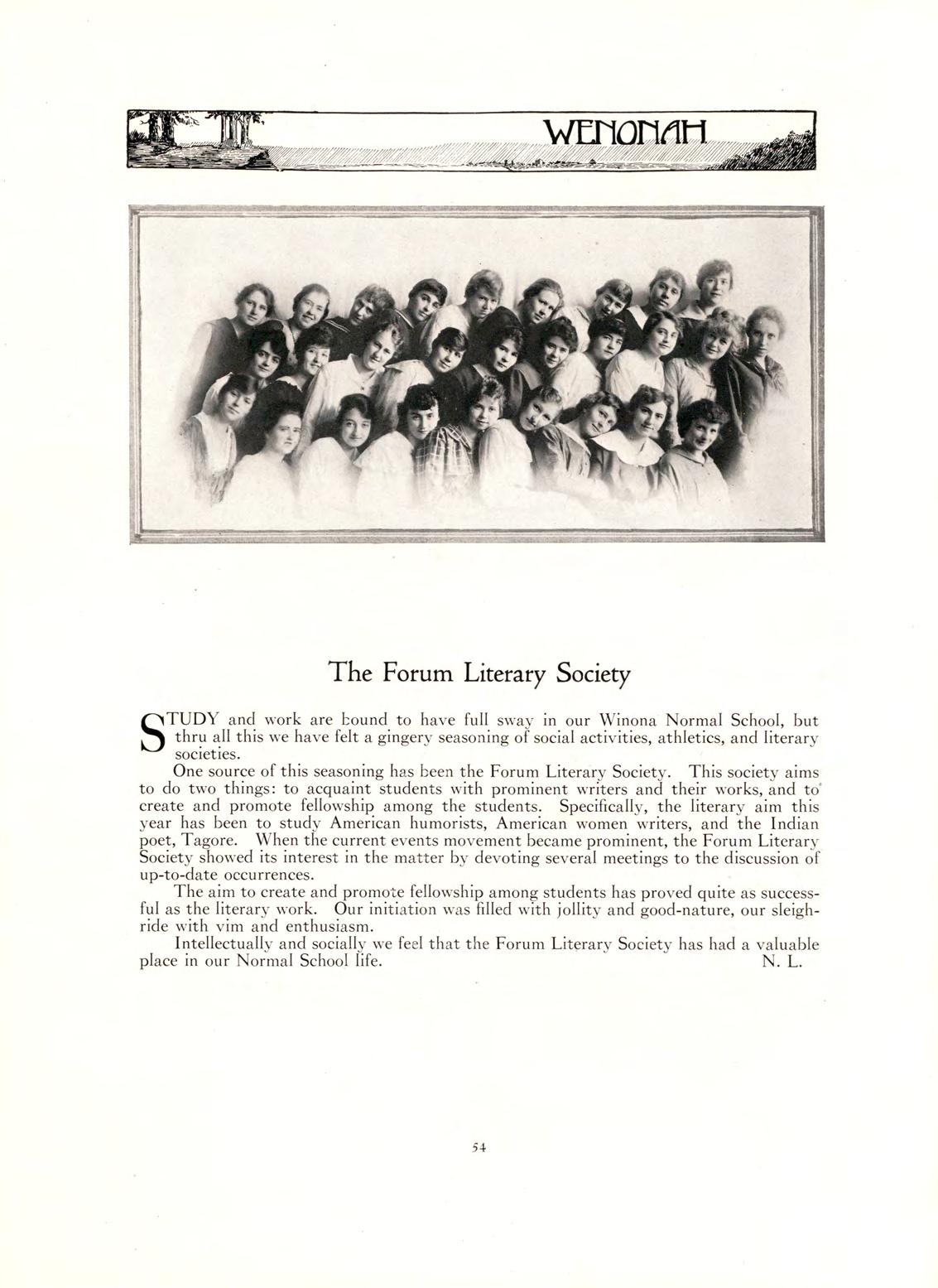
STUDY and work are bound to have full sway in our Winona Normal School, but thru all this we have felt a gingery seasoning of social activities, athletics, and literary societies.
One source of this seasoning has been the Forum Literary Society. This society aims to do two things: to acquaint students with prominent writers and their works, and to create and promote fellowship among the students. Specifically, the literary aim this year has been to study American humorists, American women writers, and the Indian poet, Tagore. When the current events movement became prominent, the Forum Literary Society showed its interest in the matter by devoting several meetings to the discussion of up-to-date occurrences.
The aim to create and promote fellowship among students has proved quite as successful as the literary work.Our initiation was filled with jollity and good-nature, our sleighride with vim and enthusiasm.
Intellectually and socially we feel that the Forum Literary Society has had a valuable place in our Normal School life. N. L.
54
Tri-Sigma
The Tri-Sigma is a literary society, which is known forthe quantity of the work it accomplishes and the quality ofits membership. This year we have enjoyed the literature of Rabindranath Tagore, Alfred Noyes and Alice Brown.
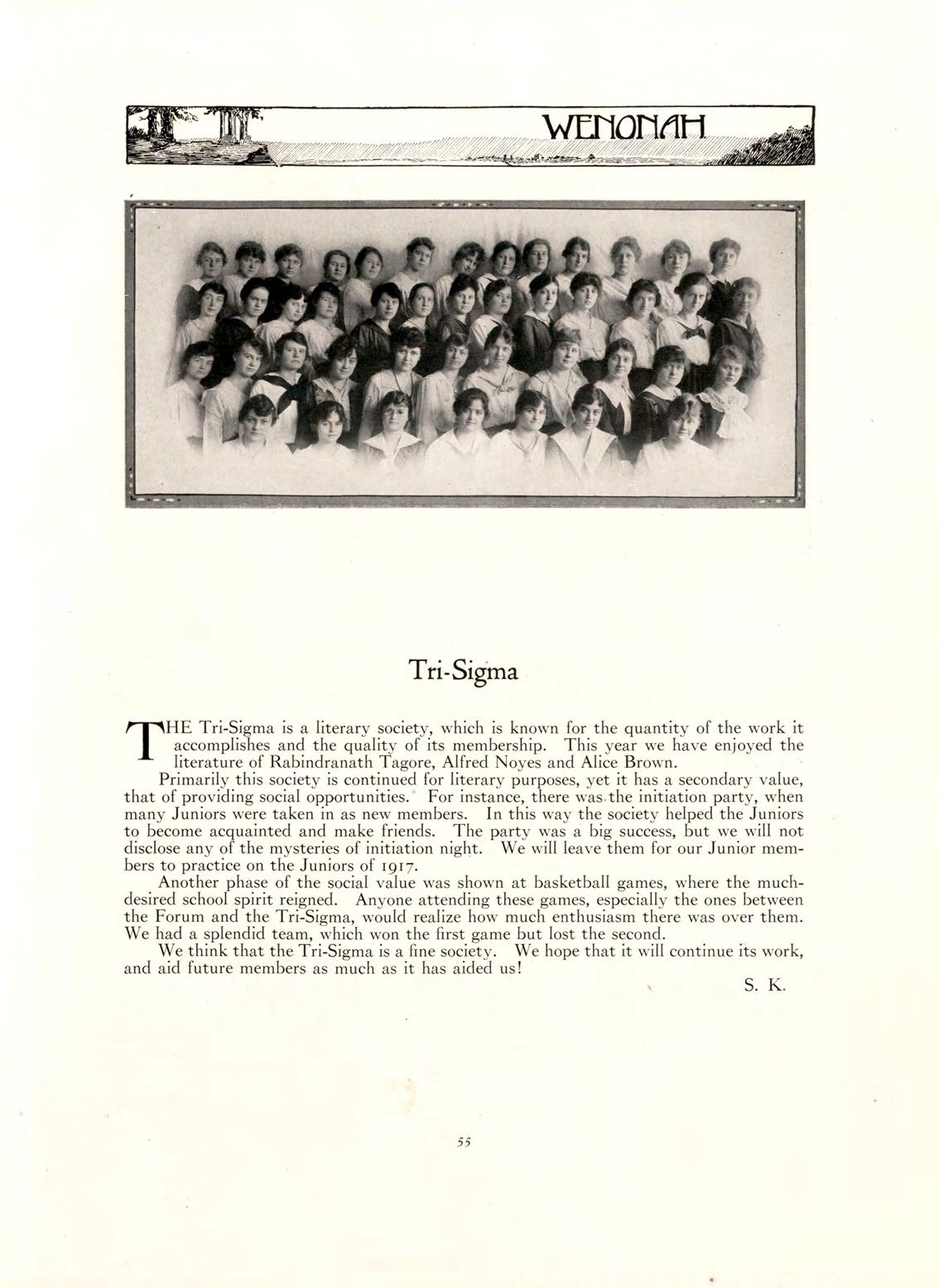
Primarily this society is continued for literary purposes, yet it has a secondary value, that of providing social opportunities. For instance, there was the initiation party, when many Juniors were taken in as new members. In this way the society helped the Juniors to become acquainted and make friends. The party was a big success, but we will not disclose any of the mysteries of initiation night. We will leave them for our Junior members to practice on the Juniors of 1917.
Another phase of the social value was shown at basketball games, where the muchdesired school spirit reigned. Anyone attending these games, especially the ones between the Forum and the Tri-Sigma, would realize how much enthusiasm there was over them. We had a splendid team, which won the first game but lost the second.
We thinkthat the Tri-Sigma is a fine society. We hope that it will continue its work, and aid future members as much as it has aided us!
S. K.
55
The Board of Control
Are we in it? Well, I guess! The Athletie Association! Yes! Yes! Yes!
From the very beginning of its existenee, the Board of Control of the Athletic Association has been of unique and u-know interest to the school. It did good to the soul of many an auditor to hear the solemn debates concerning the budgeting of the athletic money. Of course, the women on the Boardwanted the men’s athletics to have the most money! But, chivalrous and generous as ever, the men on the Board wanted the women’s branch to have—well, no! not all; but, well—howwould a neat one-third do? But oratorical skill is not the only spell-binding possession of the Board of Control. All visitors were deeply impressed by the fullness and promptness of attendance. Very few organizations can boast of prompt and perfect attendance at every meeting. Let it be said with all due respect that this organization is no exception. In fact, the momentous occasion which culminated with the above print was the drawing card of the year. During the wait preceding the event one of the Board members excitedly exclaimed, “Oh, haven’t we any business to transact? We’re all here!”
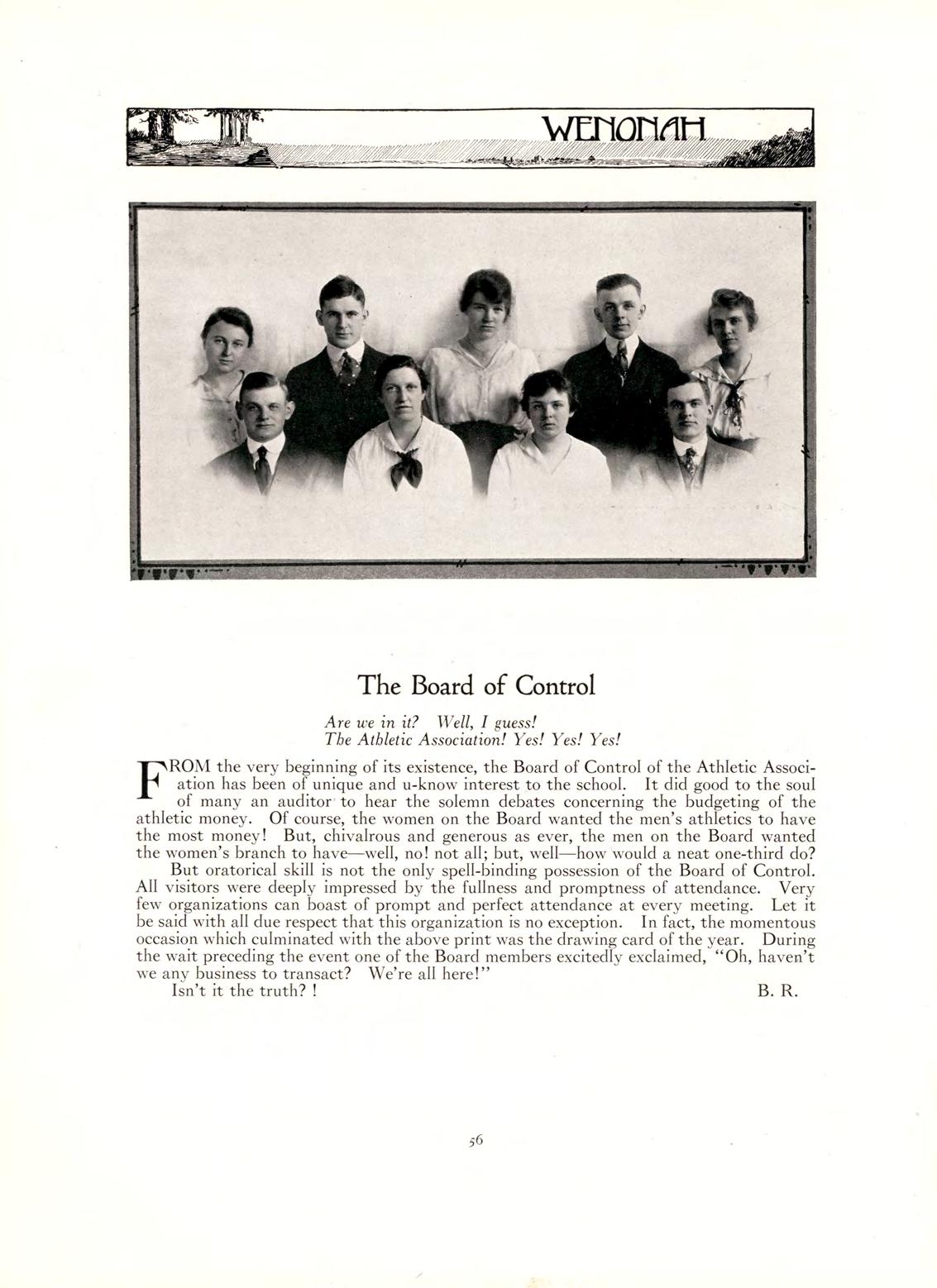
Isn’t it the truth? !
B. R.
56
Woman’s Branch
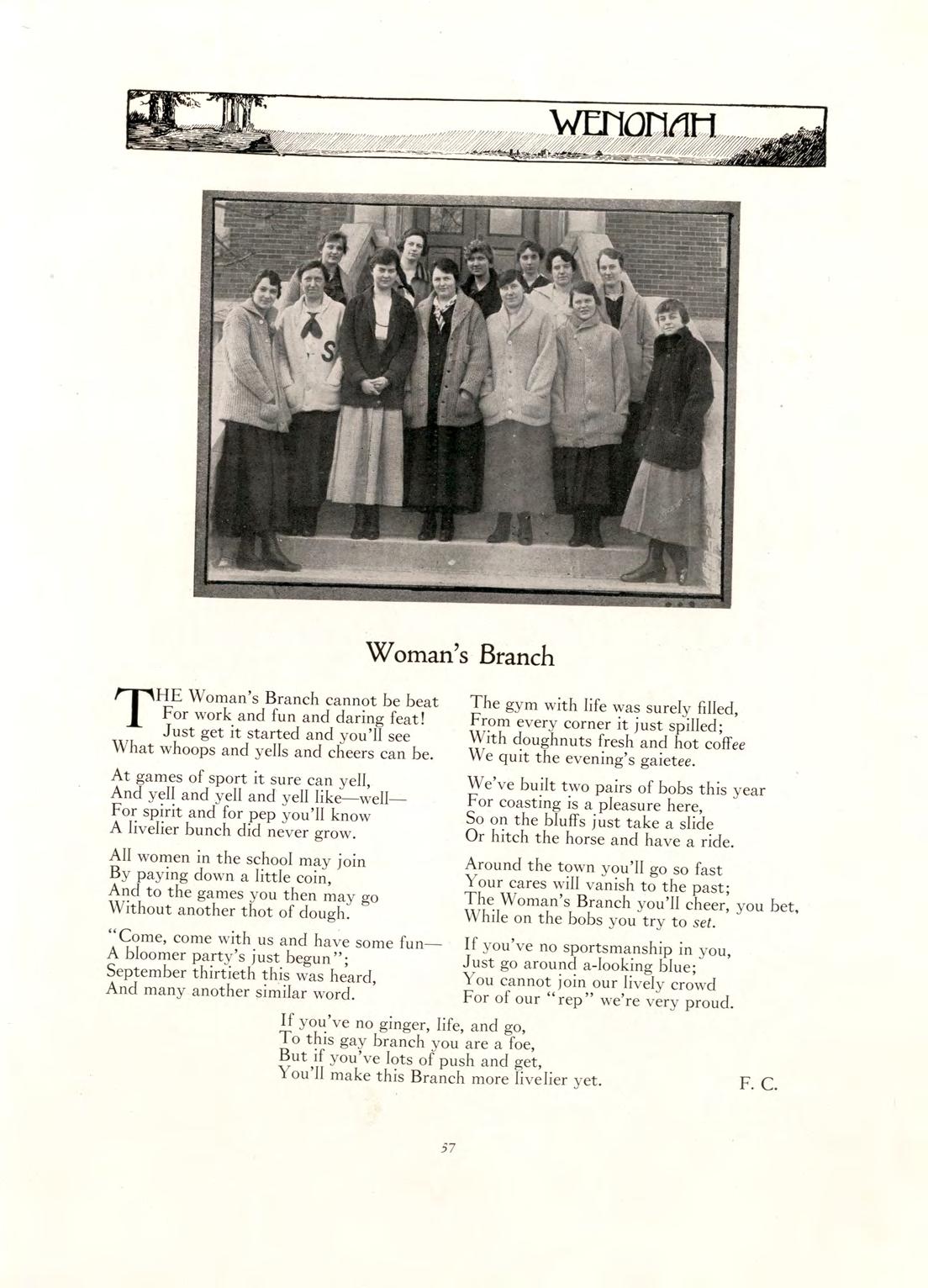
The Woman’s Branch cannot be beat For work and fun and daring feat! Just get it started and you’ll see What whoops and yells and cheers can be. At games of sport it sure can yell, And yell and yell and yell like—well— For spirit and for pep you’ll know A livelier bunch did never grow.
All women in the sehool may join By paying down a little eoin, And to the games you then may go Without another thot of dough.
“Come, eome with us and have some fun— A bloomer party’s just begun”; September thirtieth this was heard. And many another similar word.
The gym with life was surely fdled. From every corner it just spilled; With doughnuts fresh and hot eoffee We quit the evening’s gaietee. We’ve built two pairs of bobs this year For eoasting is a pleasure here. So on the bluffs just take a slide Or hitch the horse and have a ride.
Around the town you’ll go so fast Your cares will vanish to the past; The Woman’s Branch you’ll cheer, you bet. While on the bobs you try to set.
If you’ve no sportsmanship in you. Just go around a-Iooking blue; You eannot join our lively crowd For of our “rep” we’re very proud.
If you’ve no ginger, life, and go.
To this gay branch you are a foe. But if you’ve lots of push and get. You’ll make this Branch more livelier yet. F. C.
57
The Catholic Girls’ Club
An organization which has done much toward promoting the mental and moral welfare of the school is the Catholic Girls’ Club. The active members of this association have met every Wednesday evening in the St. Thomas hall, and very faithfully carried out the ends for which theclub was organized.
The Club divided its year into equal parts, one half of the meetings being devoted to religious training by means of talks, readings and helpful suggestions, and the other half to amusement and recreation. For the members believed that an equal amount of seriousness and gaiety was necessary to keep their equilibrium.
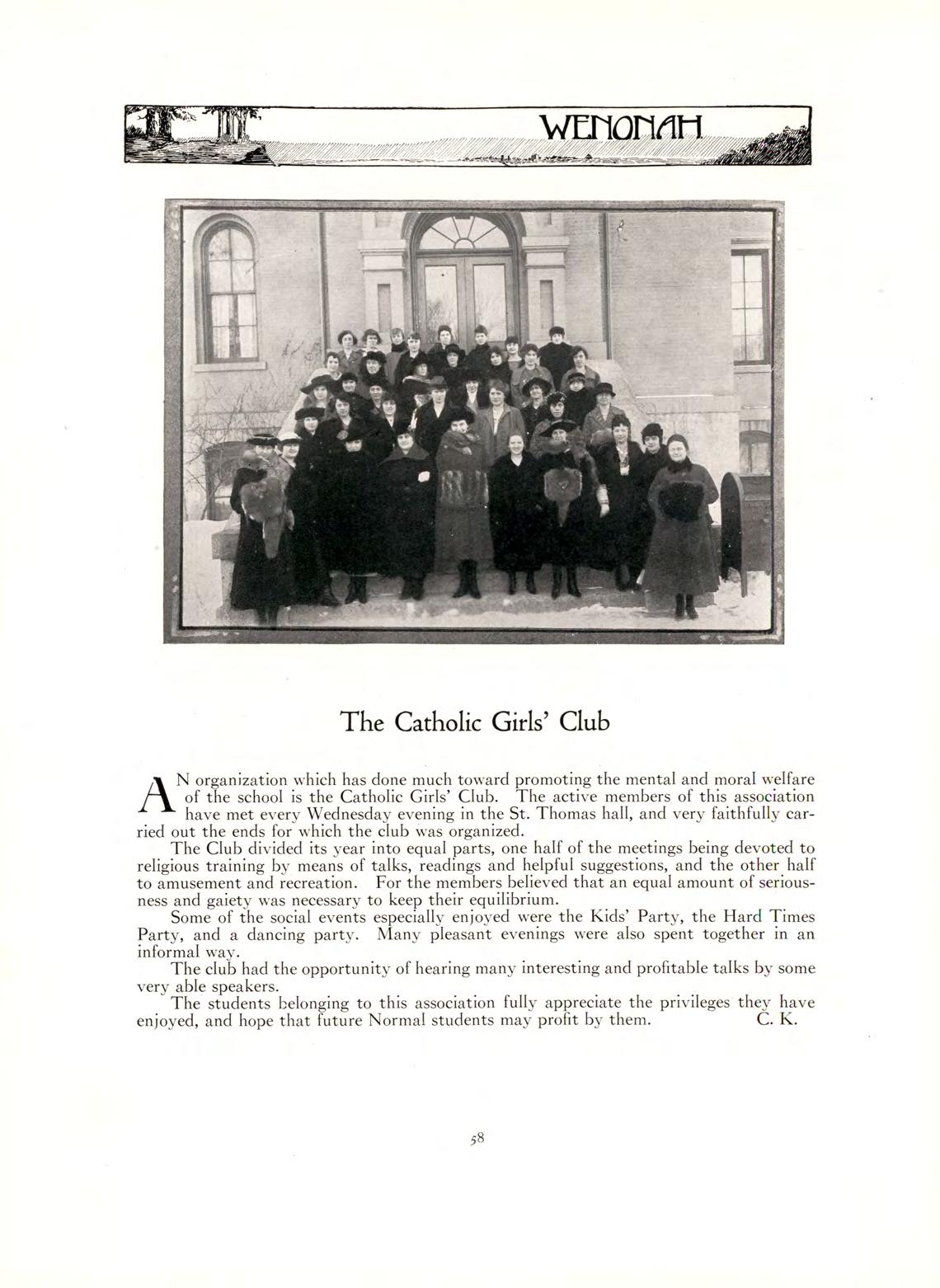
Some of the social events especially enjoyed were the Kids’ Party, the Hard Times Party, and a dancing party. Many pleasant evenings were also spent together in an informal way.
The club had the opportunity of hearing many interesting and profitable talks by some very able speakers.
The students belonging to this association fully appreciate the privileges they have enjoyed, and hope that future Normal students may profit by them.
C. K.
58
Music Supervision
The first class in the supervision of music graduated in 1914. The enrollment has steadily increased, and the department now has ten members, three of whom are Seniors. This course is of special value to people interested in music, because, in addition to the advanced Normal diploma, the graduates of this department receive a special certificate forthe supervision of music in schools.

Perhaps the work of the department can best be described by telling what our Senior members have each been doing.
During the past year Mae Middleton has directed the MacDowell Club, a chorus of about one hundred Normal girls, which meets every day. She has also spent each Friday in La Crescent, supervising the music of the public schools there. In connection with this, she has directed a Community Song Festival and a Cantata. Daphne Dyer, popularly called “our Melba,” has directed the music m the first grade of the model school. Hildred Thurow, a star student of harmony, has assisted in directing the MacDowell Club. She is an accomplished pianist.
These girls have good positions offered them for next year. Miss Thurow will supervise the music in the schools at Sanborn; Miss Middleton is to work in the department of music in the State Agricultural School at Morris; and Miss Dyer expects to supervise music as well as to teach it in the first grade at Lake Minnetonka.
59
Dramatic Association Members
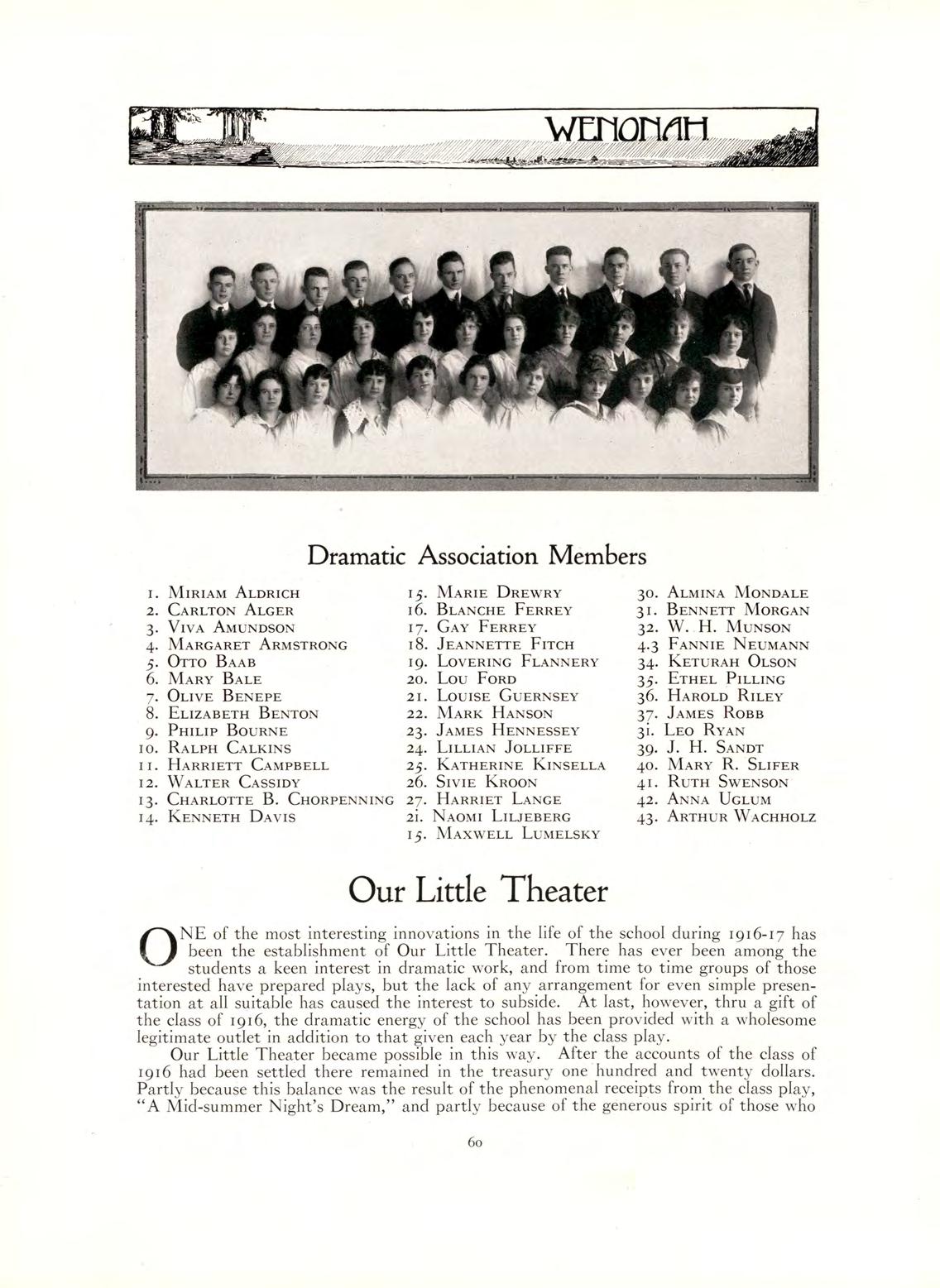
1. Miriam Aldrich
2. Carlton Alger
3. Viva Amundson
4. Margaret Armstrong
5. Otto Baab
6. Mary Bale
7. Olive Benepe
8. Elizabeth Benton
9. Philip Bourne
10. Ralph Calkins
11. Harriett Campbell
12. Walter Cassidy
13. Charlotte B. Chorpei
14. Kenneth Davis
15. Marie Drewry
16. Blanche Ferrey
17. Gay Ferrey
18. Jeannette Fitch
19. Fovering Flannery
20. Fou Ford
21. Fouise Guernsey
22. Mark Hanson
23. James Hennessey
24. Fillian Jollieee
25. Katherine Kinsella
26. SiviE Kroon
27. Harriet Fange
2Í. Naomi Filjeberg
15. Maxwell Fumelsky
Our Little Theater
30. Almina Mondale
31. Bennett Morgan
32. W. H. Munson
4.3 Fannie Neumann
34. Keturah Olson
35. Fthel Pilling
36. Harold Riley
37. James Robb
31. Feo Ryan
39. J. H. Sandt
40. Mary R. Slifer
41. Ruth Swenson
42. Anna Uglum
43. Arthur Wachholz
ONF of the most interesting innovations in the life of the sehool during 1916-17 has been the establishment of Our Little Theater. There has ever been among the students a keen interest in dramatic work, and from time to time groups of those interested have prepared plays, but the lack of any arrangement for even simple presentation at all suitable has caused the interest to subside. At last, however, thru a gift of the class of 1916, the dramatic energy of the school has been provided with a wholesome legitimate outlet in addition to that given each year by the class play.
Our Little Theater became possible in this way. After the accounts of the class of 1916 had been settled there remained in the treasury one hundred and twenty dollars. Partly because this balance was the result of the phenomenal receipts from the class play, “A Mid-summer Night’s Dream,” and partly because of the generous spirit of those who
60
wished in leaving to fill for others a need they had felt, the money was given by unanimous class vote to the Reading Department to be used as Miss Slifer, the teacher of Reading, should deemwise.
With the opening of the school year, the equipment for the theater was planned and made. It is simple, artistic and durable. There are sixteen eight by three panel screens, stained brown and covered with green burlap. These screens may be lashed together to provide stage space, ten by eighteen, and small dressing rooms. There are three practical windows and four doors, which, when not in use, become a part of the background. There is a soft brown silk curtain, and a green stage cloth; and footlights emphasize the stage picture. This equipment, because of its simplicity and neutrality, may easily be converted into a setting for any simple play. The theater is partly set up in Normal Hall during rehearsals, and when performances are given it is carried to the Assembly Room and are ranged there within half an hour.
Through the establishment of Our Little Theater, over forty persons have been able to participate in dramatic performances. Plays were cast by Miss Slifer, who chose the participants from those who manifested interest. It was not the aim to make a few stars, but to include as many as possible. With the exception of one or two minor parts, each play has been acted by a new group.
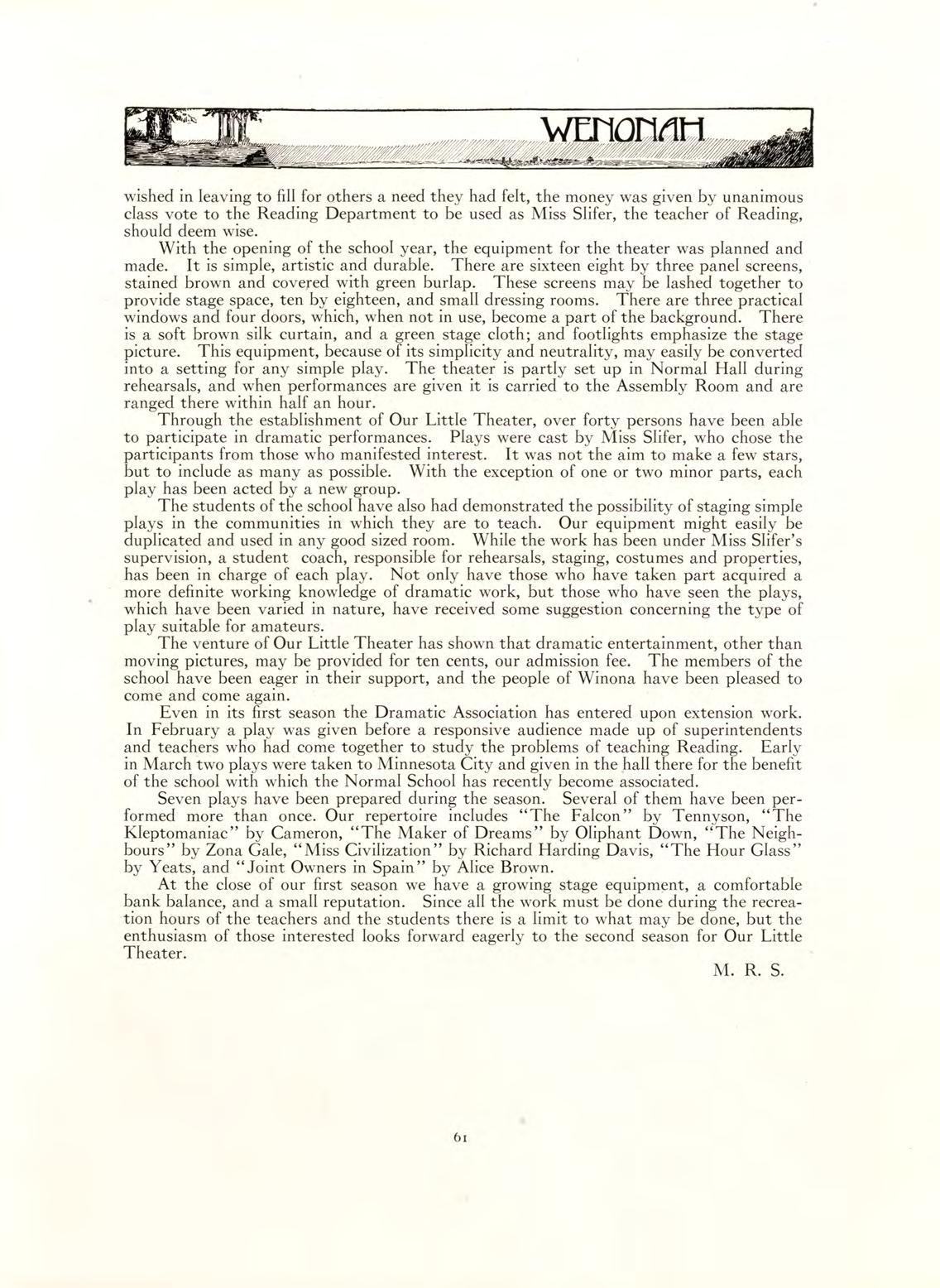
The students of the school have also had demonstrated the possibility of staging simple plays in the communities in which they are to teach. Our equipment might easily be duplicated and used in any good sized room. While the work has been under Miss Slifer’s supervision, a student coach, responsible for rehearsals, staging, costumes and properties, has been in charge of each play. Not only have those who have taken part acquired a more definite working knowledge of dramatic work, but those who have seen the plays, which have been varied in nature, have received some suggestion concerning the type of play suitable for amateurs.
The venture of Our Little Theater has shown that dramatic entertainment, other than moving pictures, may be provided for ten cents, our admission fee. The members of the school have been eager in their support, and the people of Winona have been pleased to come and come again.
Even in its first season the Dramatic Association has entered upon extension work. In February a play was given before a responsive audience made up of superintendents and teachers who had come together to study the problems of teaching Reading. Early in March two plays were taken to Minnesota City and given in the hall there for the benefit of the school with whichthe Normal School has recently becomeassociated.
Seven plays have been prepared during the season. Several of them have been performed more than once. Our repertoire includes “The Falcon” by Tennyson, “The Kleptomaniac” by Cameron, “The Maker of Dreams” by Oliphant Down, “The Neighhours” by Zona Gale, “Miss Civilization” by Richard Harding Davis, “The Hour Glass” by Yeats, and “Joint Owners in Spain” by Alice Brown.
At the close of our first season we have a growing stage equipment, a comfortable bank balance, and a small reputation. Since all the work must be done during the recreation hours of the teachers and the students there is a limit to what may be done, but the enthusiasm of those interested looks forward eagerly to the second season for Our Little Theater.
M. R. S.
6i
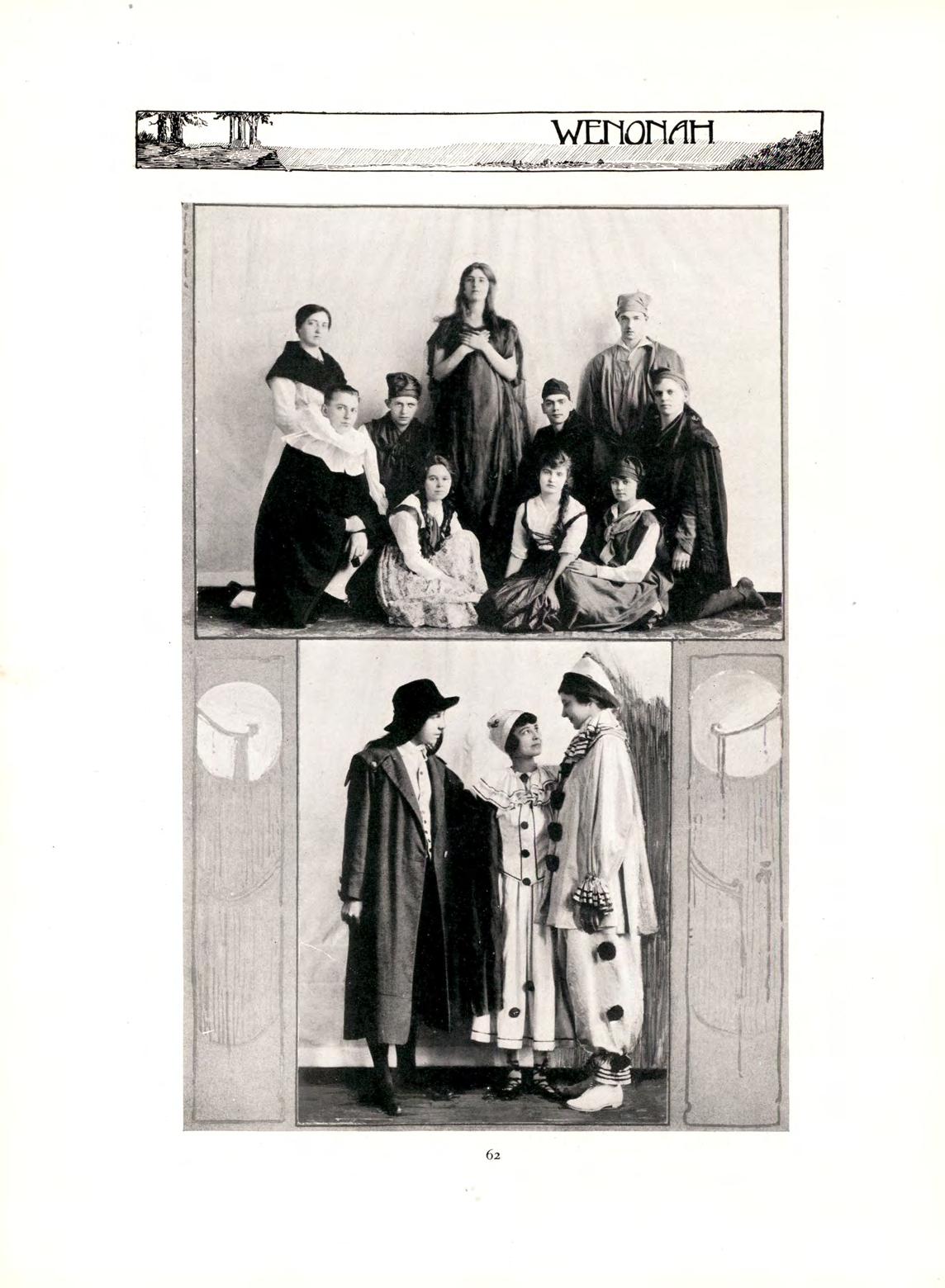
02
The Country Life Club
The Country Life Club owed its success this year to the enthusiasm and loyalty of its members and to the strong work of its program committee. Forty students interested in rural problems reorganized the club. The programs often grew out of work done in the rural department. The suggestion for one very strong program came from the ..rural methods class. There the students had discussed the relative merits of the one-room and the consolidated school. The argument was carried over to the C. L. C. in the form of a debate. At another time the students in rural sociology w^ere divided on this question: was it just for a farmer to refuse to sell his produce until prices were satisfactory to him? A group of these students debated the question at a meeting of the C. L. C. Every program put on by the Committee w^as instructive, interesting and well handled.
The Country Life Club did not emphasize work alone. At one time the members had a unique party, where each one dressed to represent a child in a district school. At another time the club held a big picnic—an all-day affair—on one of the bluffs around Winona. These social times were suggestive of parties and picnics that could be worked out in a rural school.
The work of the C. L. C. went even further than instructive meetings and good times. It gave its members an ideal to work for. It showed them the possibilities of the rural school. It taught them the lesson of service, for the C. L. C. believes that the teacher who goes into a country school, raises its standard and brings new life and fresh interests into the lives of country people, does one of the greatest acts of service.
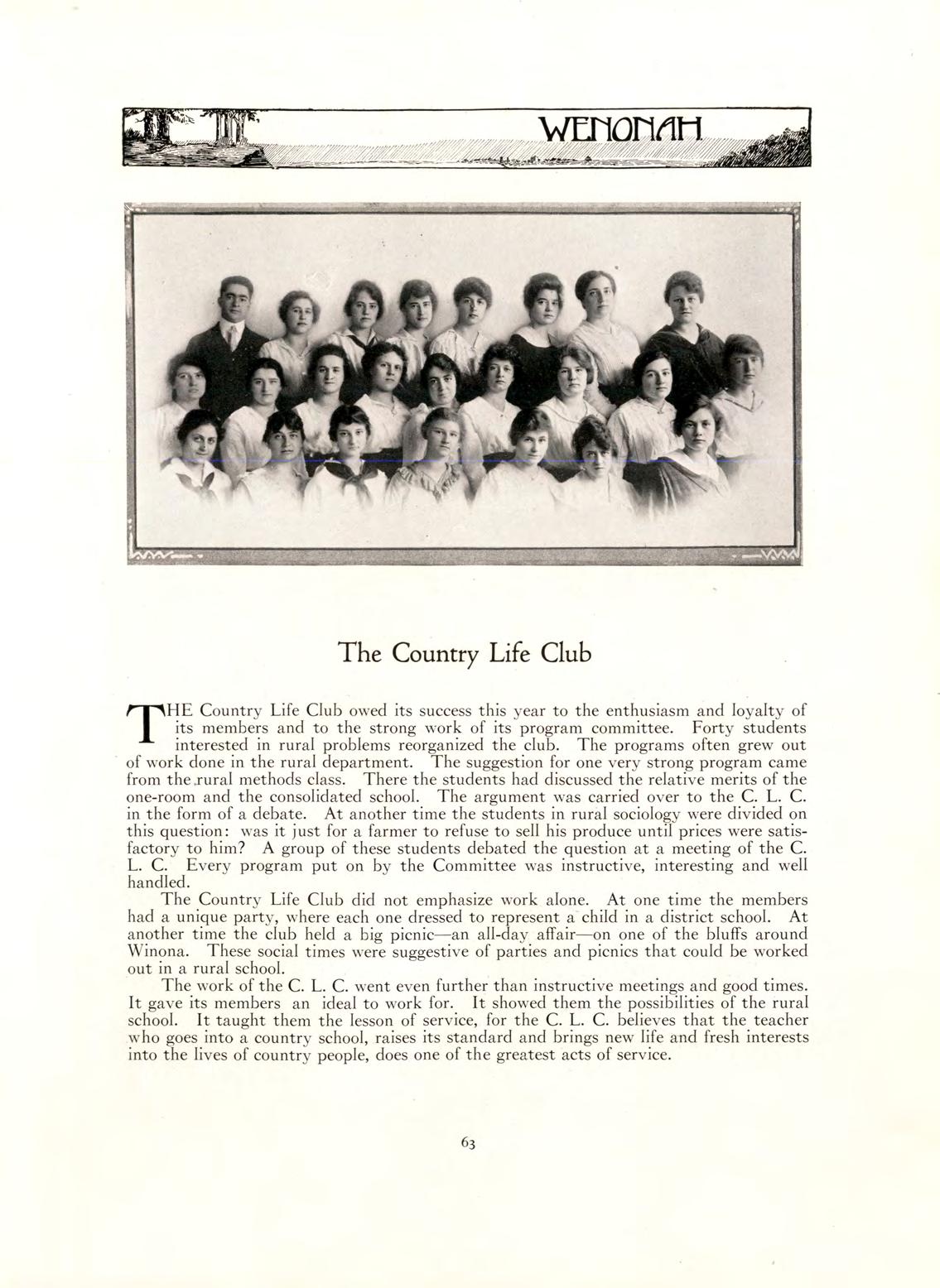
63 i mrS^êïî nrrr~^3S -
Y. W. C. A.

IWELL remember how glad I was to get the little note from one of the Y, W. C. A. girls one August, saying she would meet me and help me to get acquainted when I arrived.The Senior girls had made a big pennant with “Normal” printed on it in purple, so when I saw that, I went over to where it and several of the girls were. It was delightful to be met, and made to feel that someone, among all the strangers, cared.
Early in the fall we had the initiation ceremony that always closes the membership campaign. All the girls wore white and carried lighted candles in the processional, and oh, it was so solemn and so lovely.
We have our Y. W. C. A. meetings every other Monday afternoon. Sometimes the girls lead the meetings and sometimes we have a speaker from the faculty or from town. Whichever it is the meeting is helpful and inspirational, and gives one something different and worth while to think about.
Last year the Y. W. started the plan of getting out directories each year, which contain the names of the faculty and students, with their home and Winona addresses, telephone numbers, and other data. They are as good as a World Almanac for information, and far more indispensable!
Eor some time the Y. W. has maintained a rest room, but lately it has been sadly in need of “fixing up.” The chairman of our rest room committee chose a lively group of girls to help her this year, and by making new curtains, couch covers and pillows, and buying new blankets, they have made it a really fine place to rest.
The last of August there is a Y. W. conference at Lake Geneva for all the Normal schools and colleges in the North Central field, to which two of our girls are planning to go. They will get fine ideas for next year, so that their work may be bigger and better than ours has been.
But the best part of the Y. W. can’t be written about, because it’s the friendship part. I really believe that this is the biggest part of all, for it means so much in the life of every Y. W. C. A. girl. F. C.
64
Tink-a-tink
(We beg to assure our readers that at least most of the above are actual, bona fide members, captured, held, and shot without mercy.)
Hide thoughts of “E’s,” of work, of care. Complain no more of classroom fears; Come, let us dance a gay, gay dance, A dance of by-gone English years.
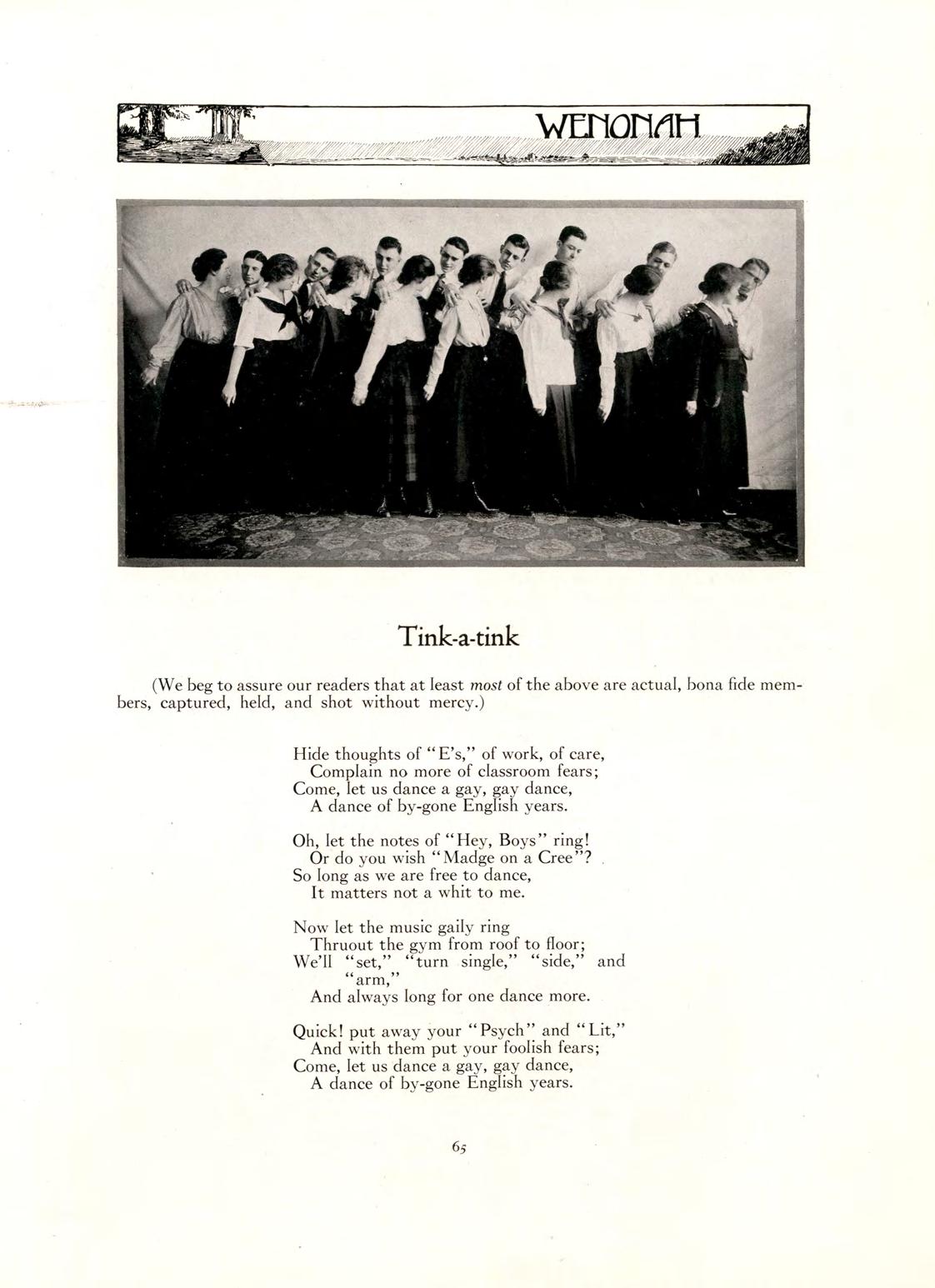
Oh, let the notes of “Hey, Boys” ring! Or do you wish “Madge on a Cree”? So long as we are free to dance. It matters not a whit to me.
Now let the music gaily ring Thruout the gym from roof to floor; We’II “set,” “turn single,” “side,” and “arm,” And always long for one dance more.
Quick! put away your “Psych” and “Lit,” And with them put your foolish fears; Come, let us dance a gay, gay dance, A dance of by-gone English years.
65
The study of Home Economics is the study of food, clothing and shelter, therefore students specializing in this department are required to take cooking for three terms, home management for two, sewing for two, and textiles for one, besides their other general subjects.
The school is equiped splendidly for the presentation of the work, and more persons have taken advantage of it this past year than ever before, altho, some merely took the subjects as electives, because of the practical value.
During the first of the year, owing to Miss Eolger’s absence. Miss Earnum satisfactqrily took charge of the cooking classes. At this time the class in Cookery I studied chiefly the composition and economic value of foods. This was accomplished by having laboratory work three times a week and theory twice. That one is as essential as the other is proved by the following incident:
Teacher—Name a by-product of corn. Miss Jones.
Miss Jones—Corned beef.
The members of the class gave a dinner to Miss Ensfield and the teachers of the rural school districts, which was appreciated.
Miss Eolger returned for the winter term’s work, and efficiently and patiently guided the class in Cookery 11, which was kept busy serving meals. In groups of two, the girls served breakfasts to four persons at the expense of sixty cents; in groups of three, luncheon to six at the expense of one dollar and a quarter. An eight course dinner was given to the March graduating class. Mr. and Mrs. Maxwell acted as host and hostess, and the cookery class as caterer.
In Cookery HI the study of the needs of the body was emphasized, and the following factors were considered as influences; size and shape, occupation, age, sex and climate. The first work of the term dealt with normal individuals, the later with abnormal.
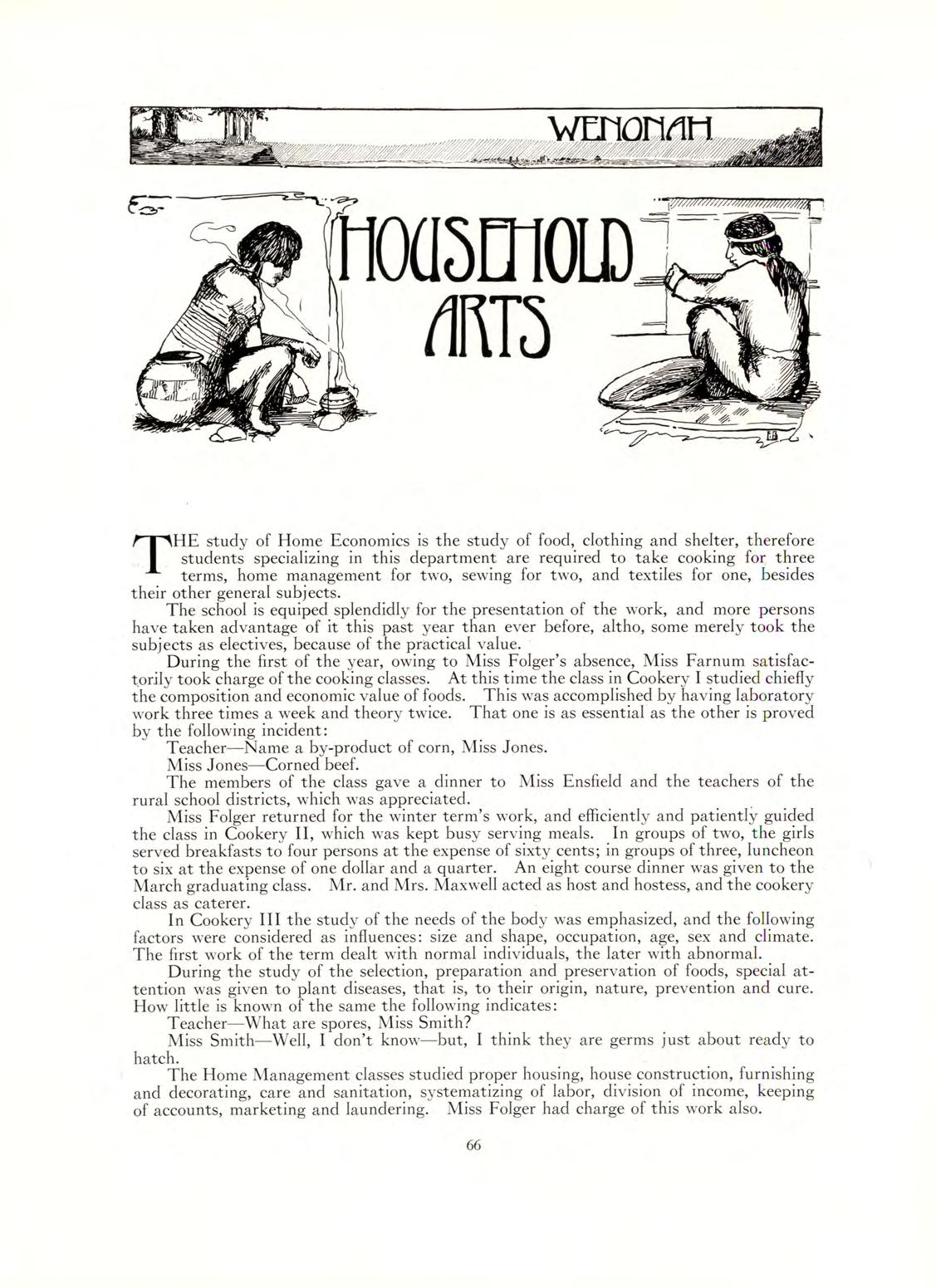
During the study of the selection, preparation and preservation of foods, special attention was given to plant diseases, that is, to their origin, nature, prevention and cure. How little is known of the same the following indicates:
Teacher—What are spores. Miss Smith?
Miss Smith—Well, I don’t know—but, I think they are germs just about ready to hatch.
The Home Management classes studied proper housing, house construction, furnishing and decorating, care and sanitation, systematizing of labor, division of income, keeping of accounts, marketing and laundering. Miss Eolger had charge of this work also.
66
Miss Grover, who is capable and good natured, was the leader of the sewing and textile classes. The work in Sewing I consisted of plain sewing and simple dressmaking, that of Sewing II of advanced dressmaking, and that of Sewing III of millinery and very fancy sewing. Exhibitions were given regularly, showing the results. The department is strictly up-to-date, as is evidenced by the Fashion Show,” held in chapel, on April the thirteenth. Previously no one but “Jenny” had the satisfaction of appearing decorated in the pretty raiments, but on this occasion real live models—blondes and brunettes, most charming and graceful—marched onto the platform in small groups to the music of Mendelssohn’s “Spring Song” rendered by Miss Naomi Liljeberg. Miss Rae Whittom identified the material of each dress for the awe-struck spectators.
In Textiles all fibres or materials capable of being woven are studied. The purpose of this study is the development of judgment from the artistic, hygienic, historical and economic standpoints.
The subject of Flome Economics has a two-fold value; it is educational and social. The former value is due to the fact that these subjects require thought and training, and develop appreciation of other sciences. The latter value consists in the fact that knowledge of this nature is essential to man, in order that he may uplift and better his condition.
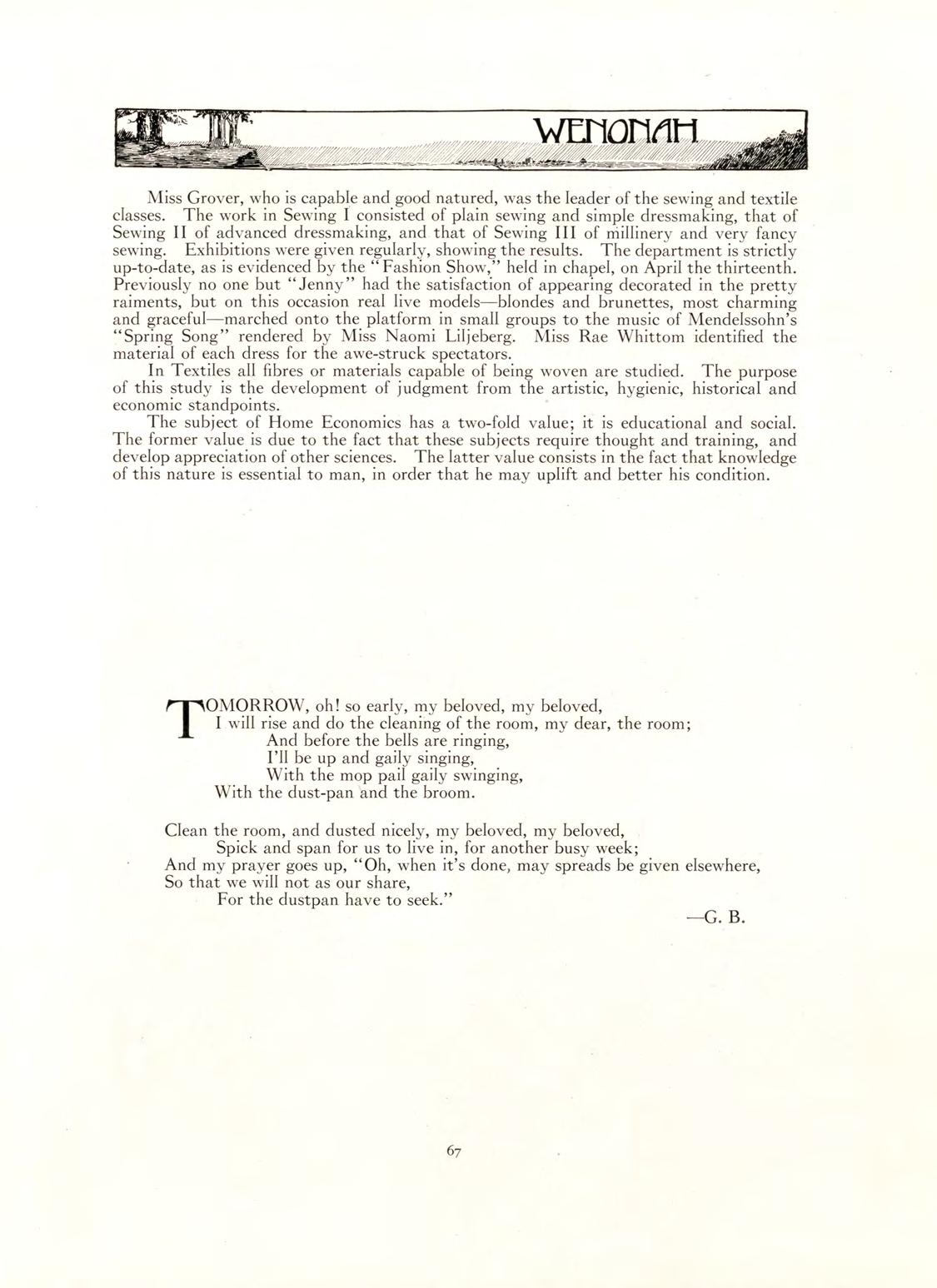
Tomorrow, oh! so early, my beloved, my beloved, I will rise anddo the cleaning of the room, my dear, the room; And before the bells are ringing. I’ll be up and gaily singing. With the mop pail gaily swinging. With the dust-pan and the broom.
Clean the room, and dusted nicely, my beloved, my beloved. Spick and span for us to live in, for another busy week; And my prayer goes up, “Oh, when it’s done, may spreads be given elsewhere. So that we will not as our share. For the dustpan have to seek.”
—G. B.
67
The past year has been especially successful along musical lines, as is evidenced by the six delightful programs which have been given. The programs were offered by the following societies: the St. Cecilia Society, consisting of two hundred and fifty women’s voices; the Mendelssohn Club, made up of twenty-four selected women’s voices; the Normal Glee Club, composed of the selected men’s voices; and the MacDowell Club. The officers of these organizations are as follows: St. Cecilia Society—Viva Amundson, Lauretta Harrison, Elizabeth Benton, Kathleen Sandidge; Mendelssohn Club—Daphne Dyer, Evelyn Rogde, Ruth Weinman, Muriel Gorham; Men’s Glee Club—Paul Baumgartner, Earl Jewell, Hilbert Niehaus, Philip Bourne; MacDowellClub—Anna Allen, Angela McCarthy, Frances Norman, Grace Lee.
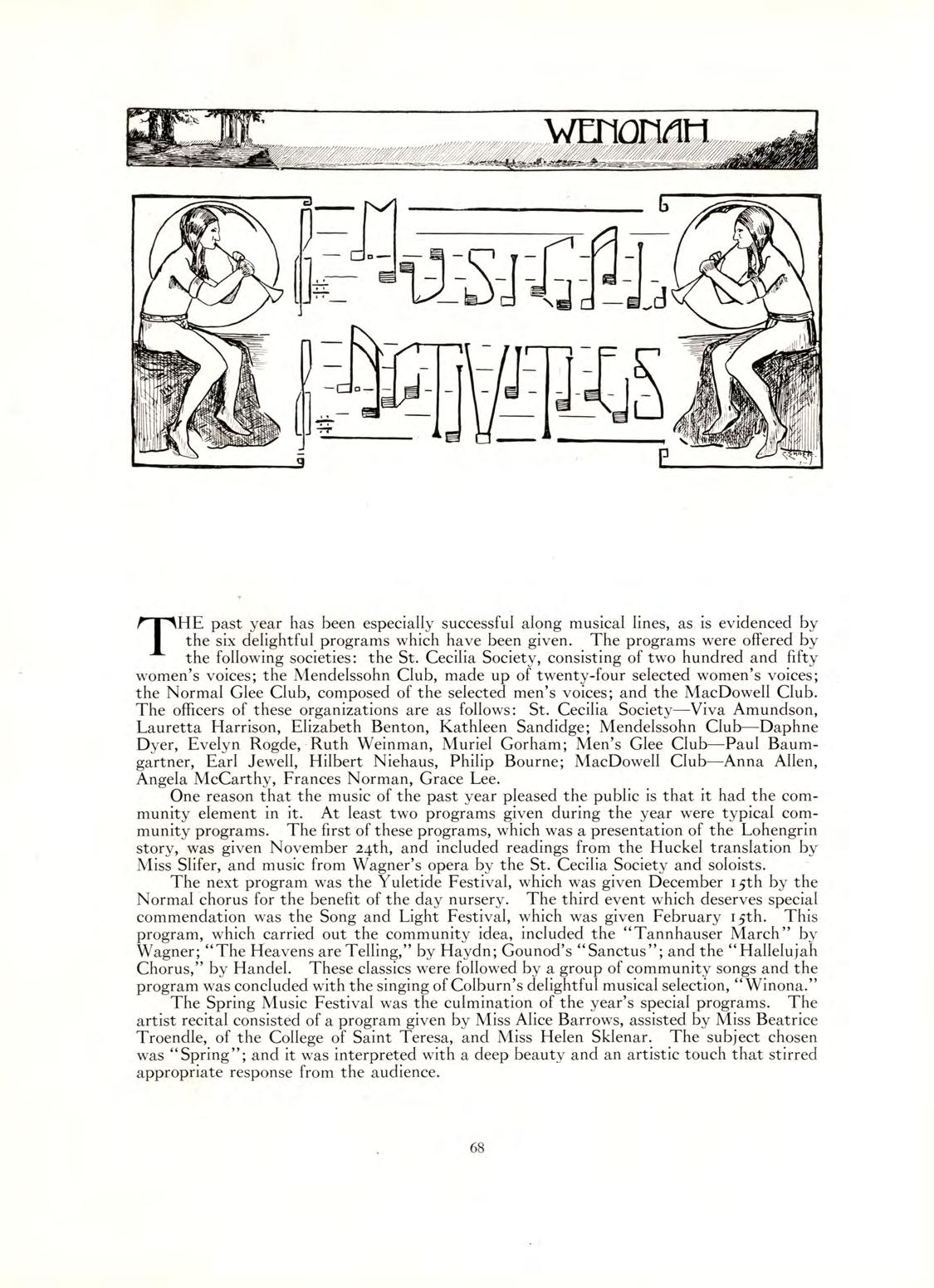
One reason that the music of the past year pleased the public is that it had the community element in it. At least two programs given during the year were typical community programs. The first of these programs, which was a presentation of the Lohengrin story, was given November 24th, and included readings from the Huckel translation by Miss Slifer, and music from Wagner’s opera by the St. Cecilia Society and soloists.
The next program was the Yuletide Festival, which was given December 15th by the Normal chorus for the benefit of the day nursery. The third event which deserves special commendation was the Song and Light Festival, which was given February 15th. This program, which carried out the community idea, included the “Tannhauser March” by Wagner; “The Heavens are Telling,” by Haydn; Gounod’s “Sanctus”; and the “Hallelujah Chorus,” by Handel. These classics were followed by a group of community songs and the program was concluded with the singing of Colburn’s delightful musical selection, “Winona.”
The Spring Music Festival was the culmination of the year’s special programs. The artist recital consisted of a program given by Miss Alice Barrows, assisted by Miss Beatrice Troendle, of the College of Saint Teresa, and Miss Helen Sklenar. The subject chosen was “Spring”; and it was interpreted with a deep beauty and an artistic touch that stirred appropriate response from the audience.
68 If i n
WËmmÉÂ
The St. Cecilia Society appeared for the first time in an annual program, and presented the following delightful selections:
1. 2 3
4
5
PART I
The Year’s at the Spring Morning Hymn The Bird of the Wilderness St. Cecilia Society
Vocal Solo—My Star Miss Daphne Dyer
Quartet from “Rigoletto” St. Cecilia Society
PART II
Peer Gynt Suite
1. Morning Mood St. Cecilia Society
2. In the Hall of the Alountain King
Miss Josephine Brannon (Piano)
3. Solveig’s Song Miss Olive Schultz (Voice)
4. Ase’s Death
5. Anitra’s Dance St. Cecilia Society America the Beautiful! St. Cecilia Society and Audience
Mrs. H. A.A. Beach Georg Henschel Tagore-Horsman
.James H. Rogers G. Verdi
Edward Grieg
Arr. by Lucian Ghaffin
Arr. by Victor Harris
Arr. by Victor Harris
.Katherine Lee Bates
The Mendelssohn Club gave an especially fine program, which consisted of classic songs rendered by the club, a vocal solo by Miss Mildred Chase, English songs by the Mendelssohn, a reading of Alfred Noyes’ poem, “The Barrel Organ,’’ by Miss Lula Ford, and American songs by Miss Daphne Dyer and the Mendelssohn Club. This annual event is growing in interest with each year.

69
-
-
-
Mendelssohn Club
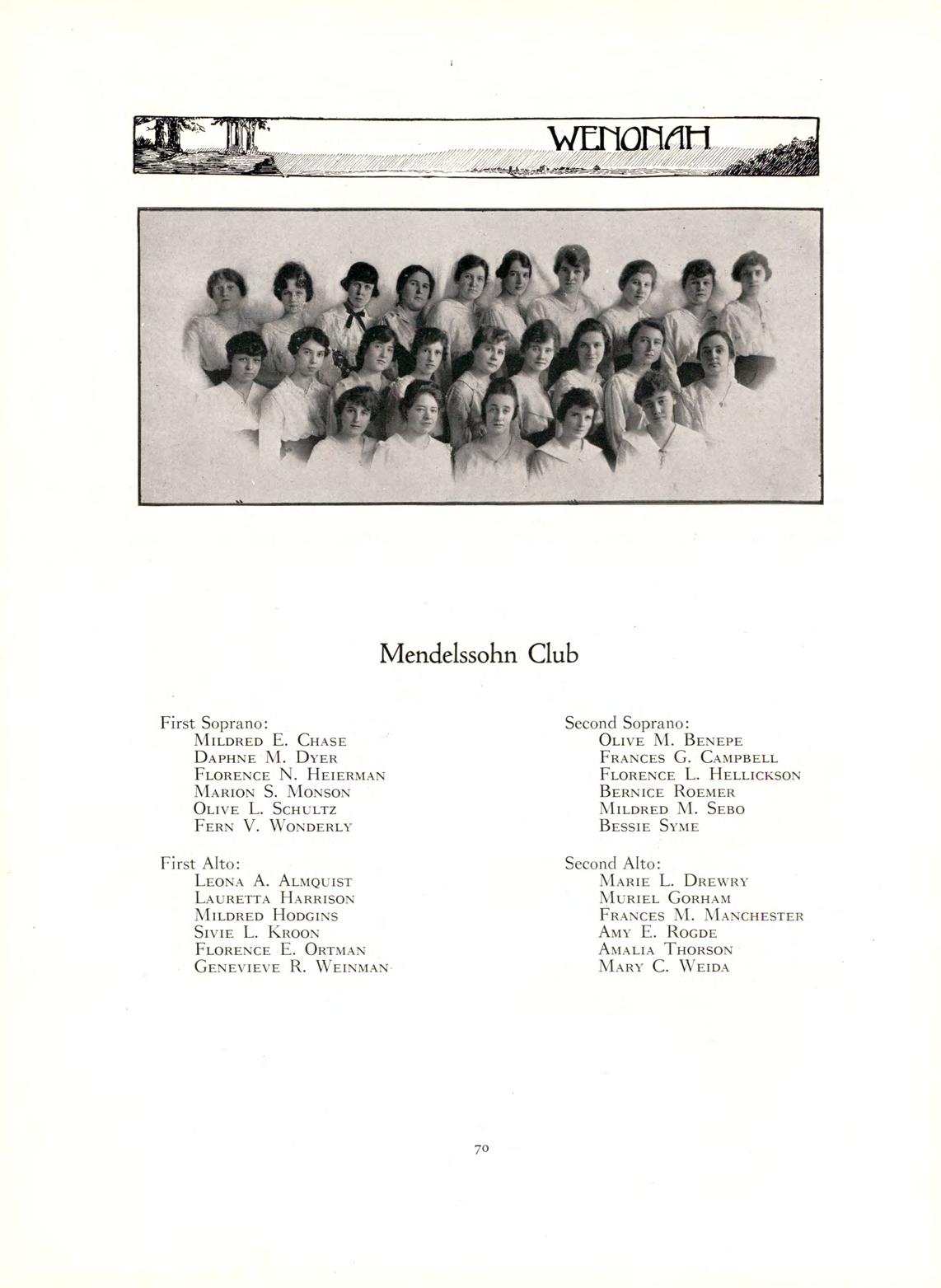
First Soprano:
Mildred E. Chase
Daphne M. Dyer
Florence N. Heierman
Marion S. Monson
Olive L. Schultz
Fern V. Wonderly
First Alto;
Leona A. Almquist
Lauretta Harrison
Mildred Hodgins
SiviE L. Kroon
Florence E. Ortman
Genevieve R. Weinman
Second Soprano:
Olive M. Benepe
Frances G. Campbell
Florence L. Hellickson
Bernice Roemer
Mildred M. Sebo
Bessie Syme
Second Alto:
Marie L. Drewry
Muriel Gorham
Frances M. Manchester
Amy E. Rogde
Amalia Thorson
Mary C. Weida
70
Boys’ Glee Club
Twin City Club
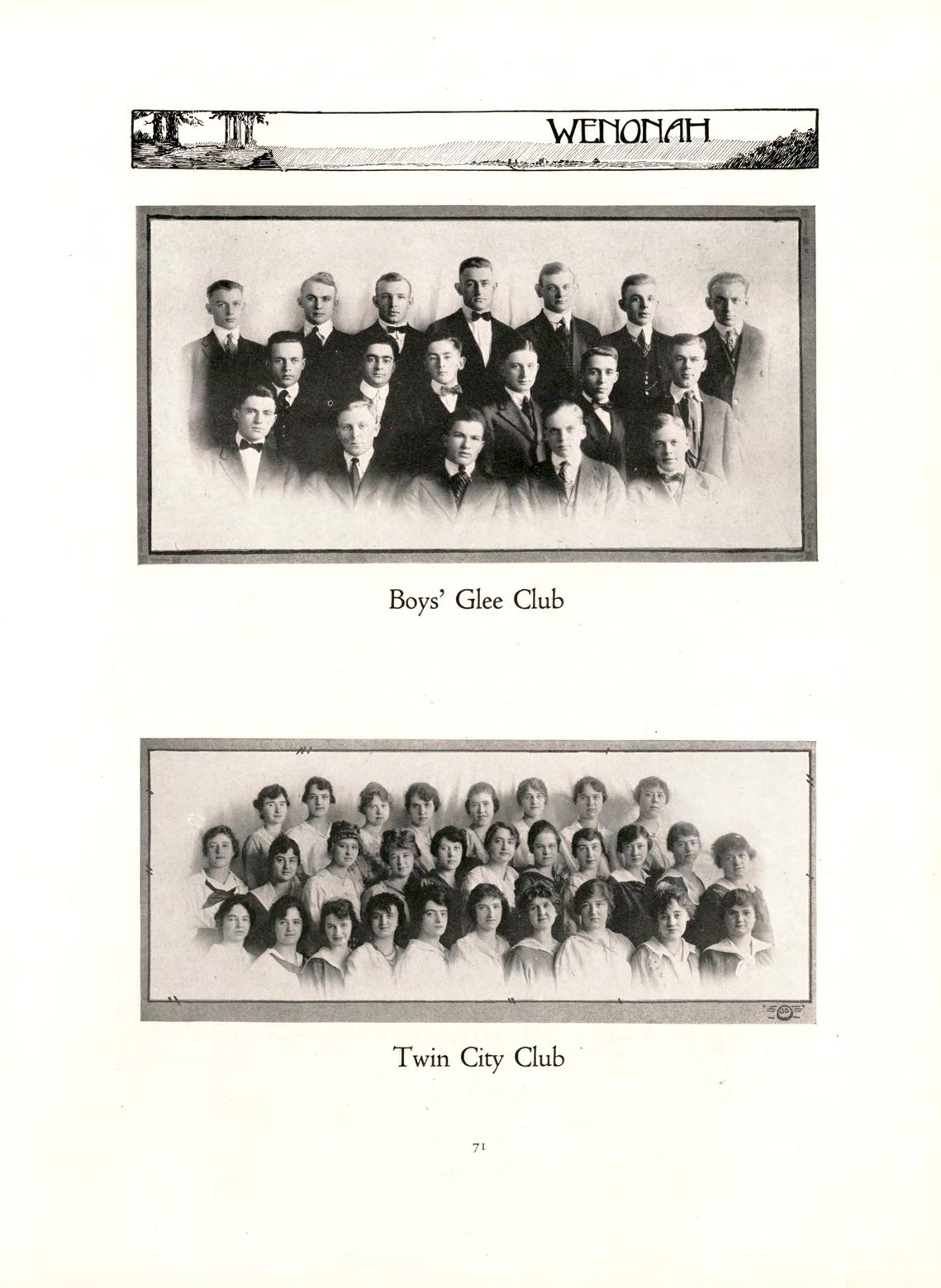
71
Industrial Arts Club
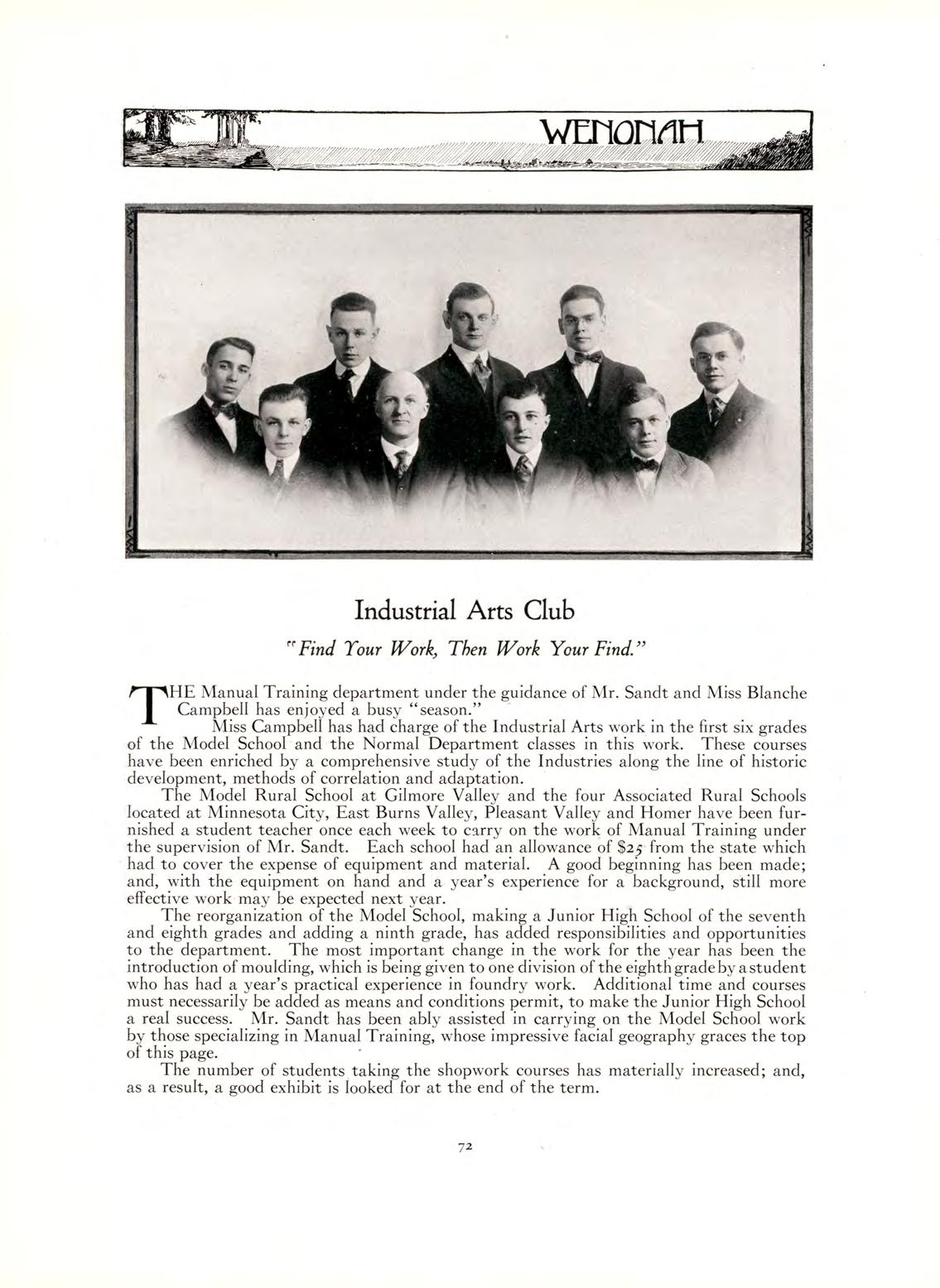
^^Find Tour Work, Then Work Your Find.”
The Manual Training department under the guidance of Mr. Sandt and Miss Blanche Campbell has enjoyed a busy “season.”
Miss Campbell has had charge of the Industrial Arts work in the first six grades of the Model School and the Normal Department classes in this work. These courses have been enriched by a comprehensive study of the Industries along the line of historic development, methods of correlation and adaptation.
The Model Rural School at Gilmore Valley and the four Associated Rural Schools located at Minnesota City, East Burns Valley, Pleasant Valley and Homer have been furnished a student teacher once each week to carry on the work of Manual Training under the supervision of Mr. Sandt. Each school had an allowance of $25 from the state which had to cover the expense of equipment and material. A good beginning has been made; and, with the equipment on hand and a year’s experience for a background, still more effective work may be expected next year.
The reorganization of the Model School, making a Junior High School of the seventh and eighth grades and adding a ninth grade, has added responsibilities and opportunities to the department. The most important change in the work for the year has been the introduction of moulding, which is being given to one division of the eighthgradeby a student who has had a year’s practical experience in foundry work. Additional time and courses must necessarily be added as means and conditions permit, to make the Junior High School a real success. Mr. Sandt has been ably assisted in carrying on theModel School work by those specializing in Manual Training, whose impressive facial geography graces the top of this page.
The number of students taking the shopwork courses has materially increased; and, as a result, a good exhibit is looked for at the end of the term.
72
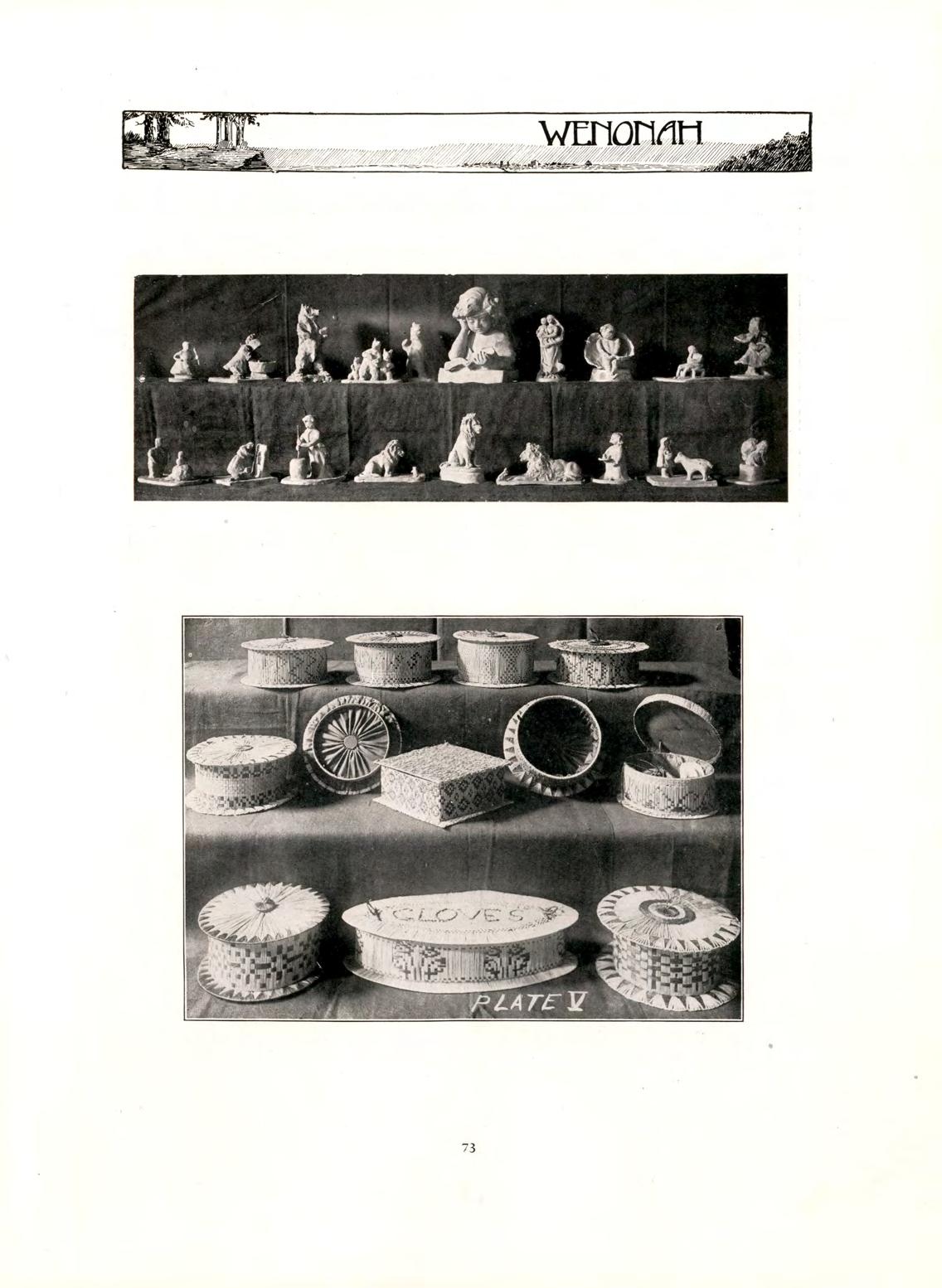
3
Heap great big tall chief
Heap little short chiefs
Heap big wampum man.
Heap little wampum man.
Heap big tall war-paint chief
Heap little war-paint chiefs
Minnehahas
Heap big noise....
Strong brave
Strong squaw
Heap dead shot.
Heap big papoose.
Heap little papoose
Heap scalpers
"Wenonah” StafF
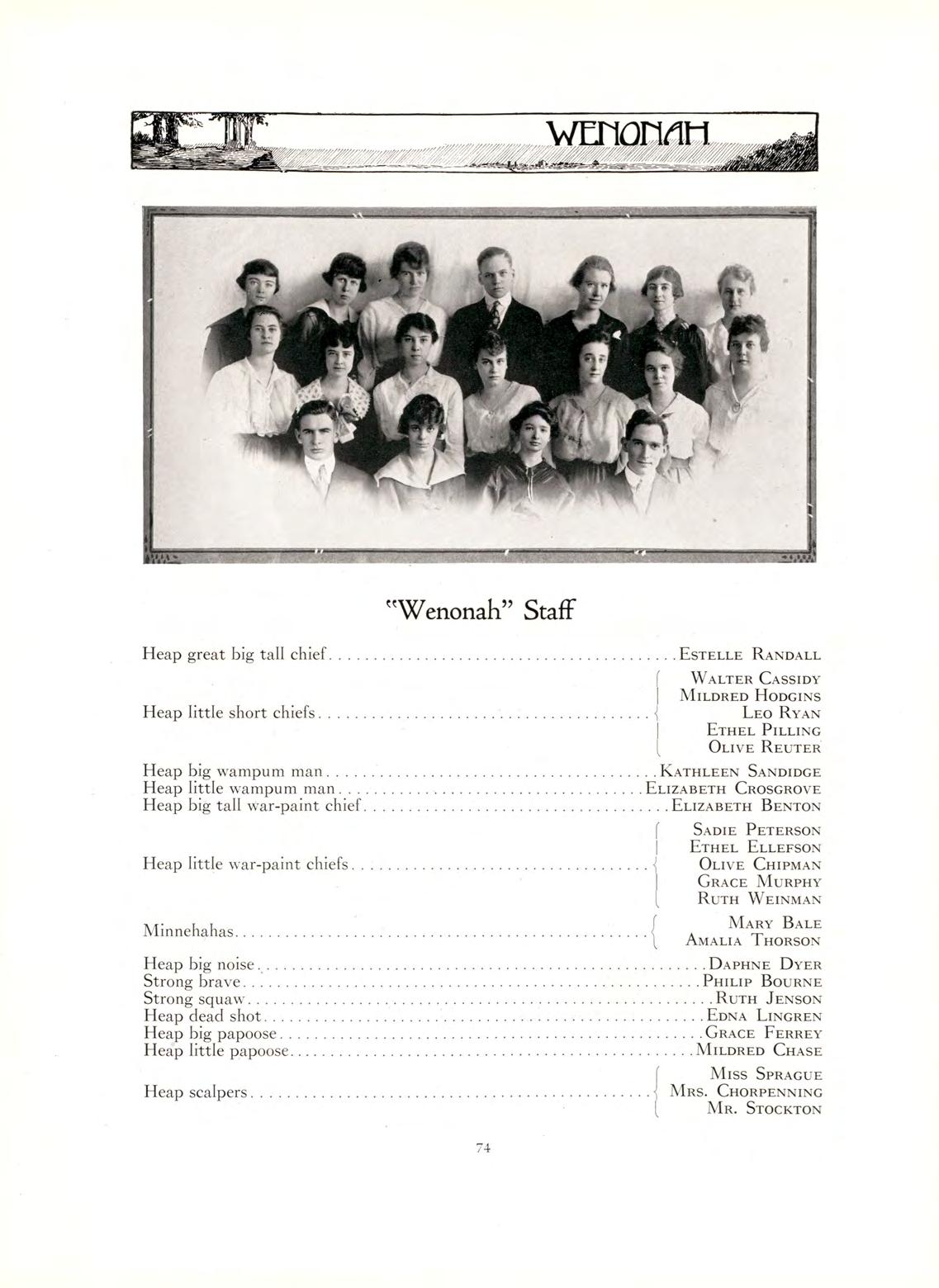
Estelle Randall
Í
Walter Cassidy
Mildred Hodgins
; Leo Ryan
Ethel Pilling
[ Olive Reuter
Kathleen Sandidge
Elizabeth Crosgrove
Elizabeth Benton
¡ Sadie Peterson
Ethel Elleeson
Olive Chipman
Grace Murphy
i Ruth Weinman
Í Mary Bale
\ Amalia Thorson
Daphne Dyer
Philip Bourne
Ruth Jenson
Edna Lingren
Grace Eerrey
Mildred Chase
f Miss Sprague
^ Mrs. Chorpenning
1 Mr. Stockton
74
Galsworthy
 Gay Ferrey
Gay Ferrey
IN Galsworthy’s poetry we find the expression of Galsworthy’s very self. We find him many-sided. That is our first pleasure—to see in him a wealth of emotions, to find him so exquisitely responsive to all phases of life. We find that he knows these people of whom he writes, knows the flowers, knows the sea. Fie has reached deep down into the souls of all things and from this open-mindedness, responsiveness, has come his striking characteristic—understanding andlove of all nature and all life. We feel this deeply in “The Dream,’’ when, confronted by death, he flings out a protest against leaving this earth, an earth he knows so intimately, loves so dearly. He says:
“All the perfume and the grace. The stealing beauty of this earth, Put out its fingers to my face. And softly murmured me its w'orth.’’
All his nature songs are fully as lovely—delicately handled, magically inspirational. Here is part of his “Autumn by the Sea’’:
“We’ll hear the uncompanioned murmur of the swell. And touch the drift-wood, delicately grey. And with our quickened senses smell The sea-flowers all the day!’’
His love of color and movement is shown in the next two verses:
“Now slow the crimson Sun-god swathes his eye, and sails To sleep in his innumerable cloak; And gentle heat’s gold pathway fails In autumn’s opal smoke!
“Then long we’II watch the journey of the soft half-moon— A gold-bright moth slow-spinning up the sky. And know the dark flight—all too soon— Of land-birds passing by.’’
It is interesting to note that Galsworthy is particularly fond of yellow. This shows itself in his short stories, too. In “Buttercup Nights,’’ for instance, Galsworthy fairly revels in yellow.
Here is a poem called “The Seeds of Light.” Tt is so delightfully characteristic of both this love of color and of movement that I quote it:
“Once of a mazy afternoon, beside that southern sea, I watched a shoal of sunny beams come swimming close to me.
Each was a whited candle-flame a-flickering in air; Each was a silver daffodil astonied to be there;
Each was a diving summer star, its brightness come to lave; And each a little naked spirit leaping on the wave.”
An entirely new aspect of Galsworthy’s understanding of all life is shown in his poem “Slum Cry.” Galsworthy has not been sensational here, but nevertheless the truth of the poem is appalling. It could come only from a man who cared to uncover the barren, tragic life of the slums. He speaks of the dweller inthe slums as being born in degradation, with childhood a night without stars, wind withdrawn, terrifying blackness shot only with
75
parrafm glares that sear the spirit and crush it, until at the last, beaten, this living death ends where ?
“Of a poor-house morning—not asking why. Breath choked, dry-eyed—death of me staring; Faces of strangers, and no one caring— God! Who hath made me!—so shall I die!
The same question we ask ourselves when we read this is found in Galsworthy’s poem “I Ask.” The days for us move swiftly, happily by, the stars shine, soft breezes blow. Gan we go on ignoring the ugly facts of life and, “wanton, draw forgetful breath”? Galsworthy is not morbid nor embittered. He is clear-eyed, able to look at these hard facts, do what he can to right them, andable also to see the good things in life, and as he says, believe that life is divine harmony. This firm belief in a Perfect Plan runs thru many of Galsworthy’s poems. He says:
“If thru our night stalk comrades Pain And Wrong, ’tis but the dipping half Of equipoise. This life again I shall not live, and I would have JVIy living soul in flower with love Of Harmony.”
We gain new insight into Galsworthy’s versatile nature when we compare his plays with his poetry. Reading only his plays one would undoubtedly declare him a realist. However, after reading his poems we are amazed at the wholly charming, delicate pictures he has drawn, and wonder if after all he is not at heart an idealist.

Many of Galsworthy’s salient qualities have found expression in his poem “The Soul.” In the first verse there is the splendid vigor, power, and drive that is so vitally characteristic of Galsworthy. The second verse is in sharp contrast but entirely consistent with Galsworthy’s nature, expressing an underlying serenity and strength. The third verse shows his capacity for joy and love and beauty; the fourth for adventure; and the fifth— let me quote the whole poem and then have you decide what it reveals of Galsworthy’s nature:
“My soul’s the sky—my flying soul! The lightnings flare, the thunders roll. The sun and moon and stars go by. And great winds sweep my soul, the sky!
“My brooding soul—my soul’s the sea! The snaky weed, and whishing scree. The white waves’ surge from pole to pole. And still green depths—the sea’s my soul!
“My soul’s the Spring—my loving soul! Will dance, and leap, and drain the bowl Of love; and, longing, twine and cling To all the world—my soul’s the Spring!
“My fevered soul! My soul’s the Town! Thro’ flaring street goes up and down; The bells of feast and traffic toll And maze their music m my soul.
“My tranquil soul! My soul too wide For Sky, or Spring, or Town, or Tide! Thou traveller to outer strand Of Home Serene—my soul so grand!”
76
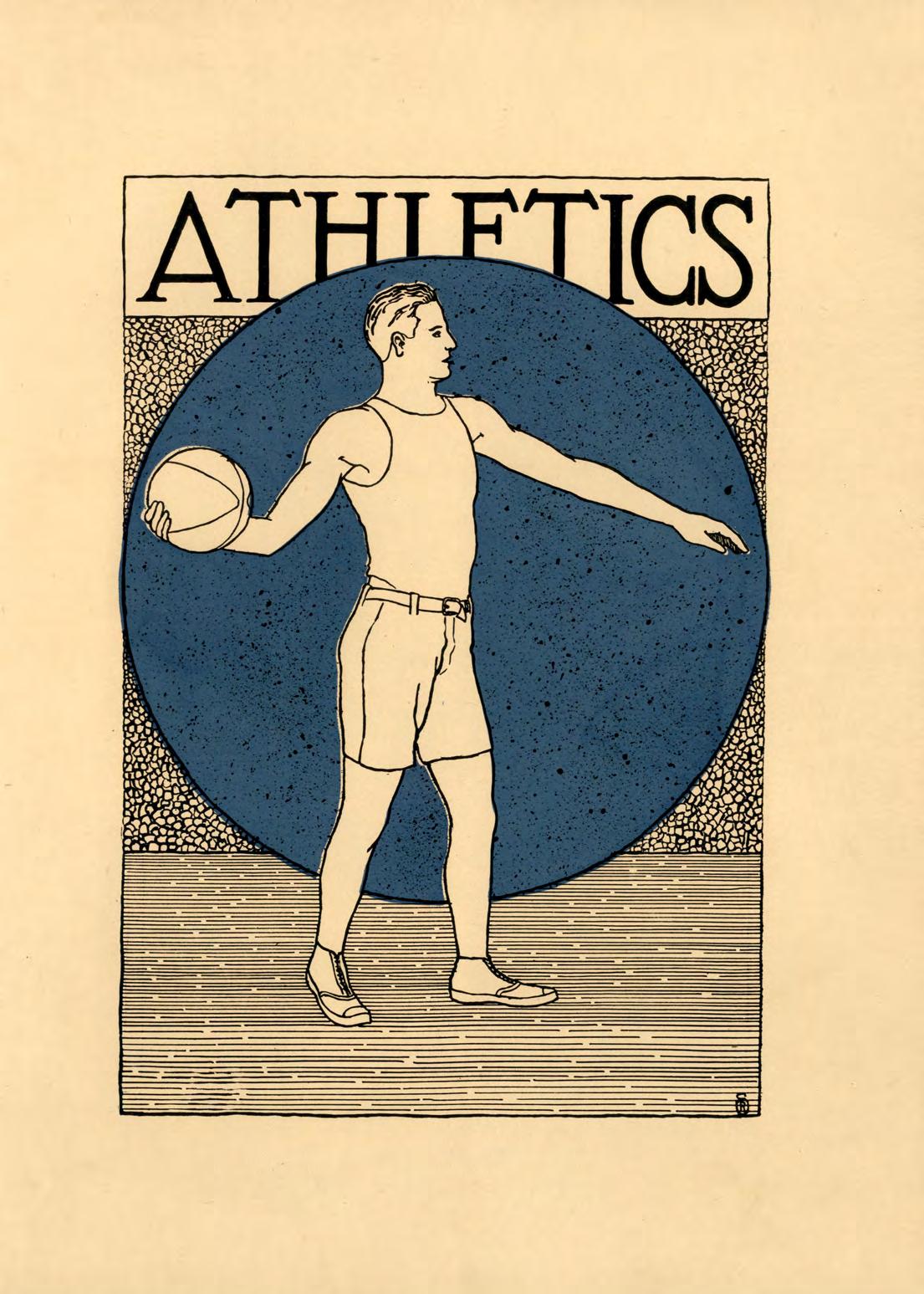

Miss Kahn
Mrs. Chorpenning
Miss Samson
Miss Boley
Faculty Basketball Team
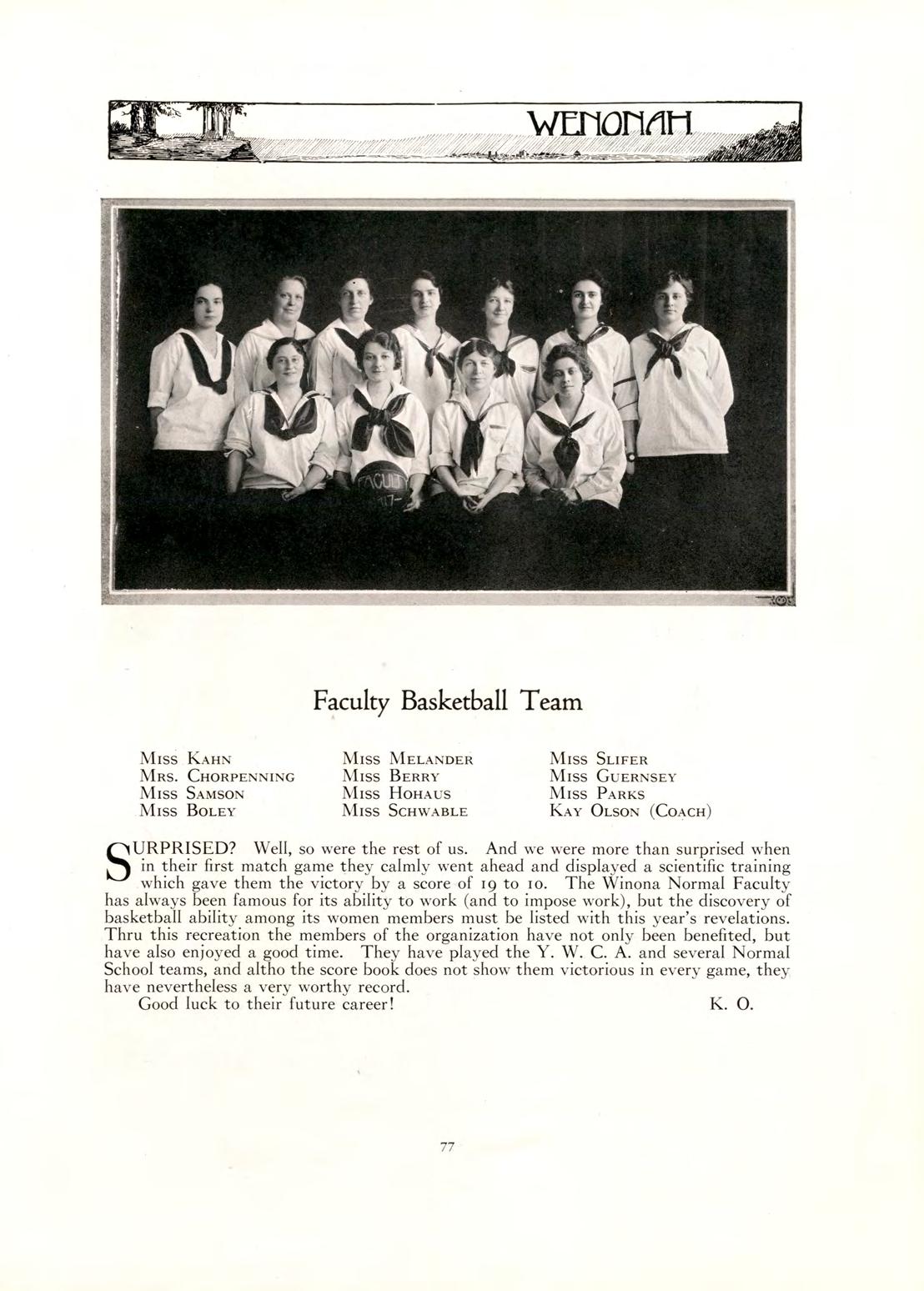
Miss Melander
Miss Berry
Miss Hohaus
Miss Schwable
Miss Slifer
Miss Guernsey
Miss Parks
Kay Olson (Coach)
Surprised? Well, so were the rest of US. And we were more than surprised when in their first match game they calmly went ahead and displayed a scientific training which gave them the victory by a score of 19 to 10. The Winona Normal Faculty has always been famous for its ability to work (and to impose work), but the discovery of basketball ability among its women members must be listed with this year’s revelations. Thru this recreation the members of the organization have not only been benefited, but have also enjoyed a good time. They have played the Y. W. C. A. and several Normal School teams, and altho the score book does not show them victorious in every game, they have nevertheless a very worthy record. Good luck to their future career! K. O.
77
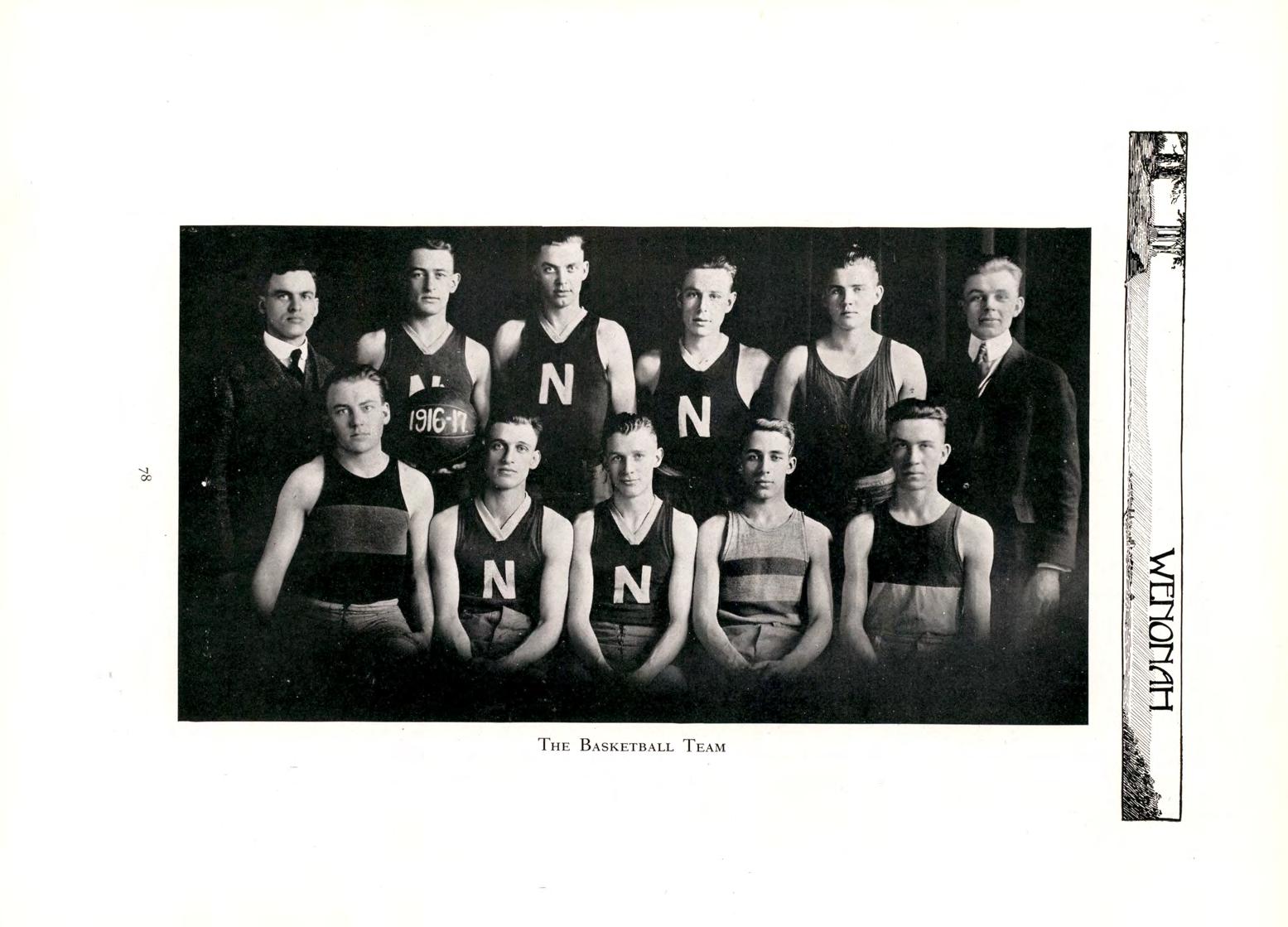 The Basketball Team
The Basketball Team
Basketball In 1916-17
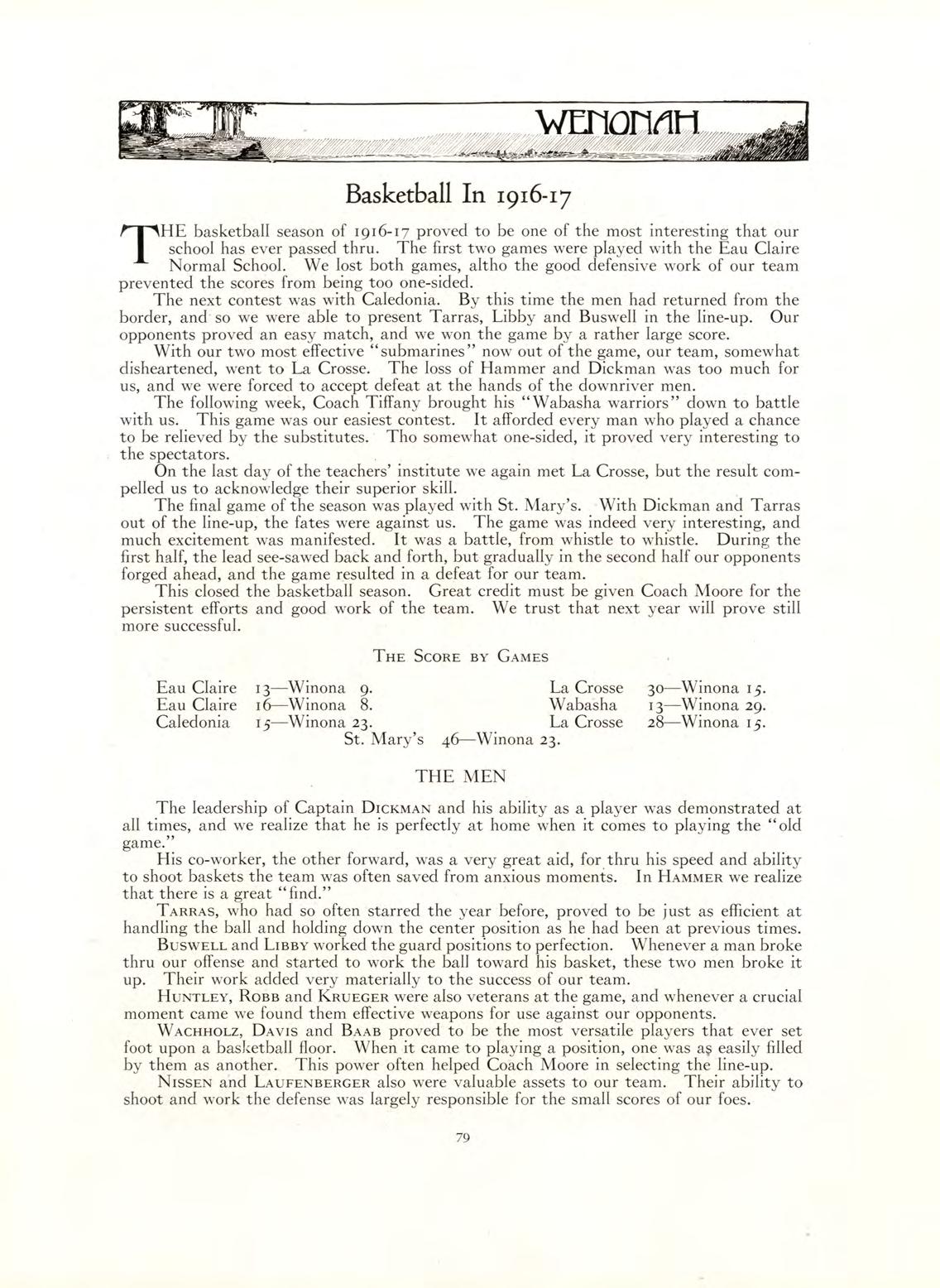
The basketball season of 1916-17 proved to be one of the most interesting that our sehool has ever passed thru. The first two games were played with the Eau Claire Normal Sehool. We lost both games, altho the good defensive work of our team prevented the scores from being too one-sided.
The next contest was with Caledonia. By this time the men had returnedfrom the border, and so we were able to present Tarras, Libby and Buswell in the line-up. Our opponents proved an easy match, and we won the game by a rather large score.
With our two most effective “submarines” now out of the game, our team, somewhat disheartened, went to La Crosse. The loss of Hammer and Dickman was too much for us, and we were forced to accept defeat at the hands of the downriver men.
The following week. Coach Tiffany brought his “Wabasha warriors” down to battle with us. This game was our easiest contest. It afforded every man who played a chance to be relieved by the substitutes. Tho somewhat one-sided, it proved very interesting to the spectators.
On the last day of the teachers’ institute we again met La Crosse, but the result compelled us to acknowledge their superior skill.
The final game of the season was played with St. Mary’s. With Dickman and Tarras out of the line-up, the fates were against us. The game was indeed very interesting, and much excitement was manifested. It was a battle, from whistle to whistle. During the first half, the lead see-sawed back and forth, but gradually in the second half our opponents forged ahead, and the game resulted in a defeat for our team.
This closed the basketball season. Great credit must be given Coach Moore for the persistent efforts and good work of the team. We trust that next year will prove still more successful.
The Score by Games
THE MEN
The leadership of Captain Dickman and his ability as a player was demonstrated at all times, and we realize that he is perfectly at home when it comes to playing the “old game.”
His co-worker, the other forward, was a very great aid, for thru his speed and ability to shoot baskets the team was often saved from anxious moments. In Hammer we realize that there is a great “find.”
Tarras, who had so often starred the year before, proved to be just as efficient at handling theball and holding down the center position as he had been at previous times.
Buswell and Libby worked the guard positions to perfection. Whenever a man broke thru our offense and started to work theball toward his basket, these two men broke it up. Their work added very materially to the success of our team.
Huntley, Robb and Krueger were also veterans at the game, and whenever a crucial moment came we found them effective weapons for use against our opponents.
Wachholz, Davis and Baab proved to be the most versatile players that ever set foot upon a basketball floor. When it came to playing a position, one was a$ easily filled by them as another. This power often helped Coach Moore in selecting the line-up.
Nissen and Laufenberger also were valuable assets to our team. Their ability to shoot and work the defense was largely responsible for the small scores of our foes.
79
Eau Claire Eau Claire Caledonia
9. 16—Winona 8. 15—Winona 23. St. Mary’s La Crosse Wabasha La Crosse 46—Winona 23.
15.
29. 28—Winona 15.
13—Winona
30—Winona
13—Winona
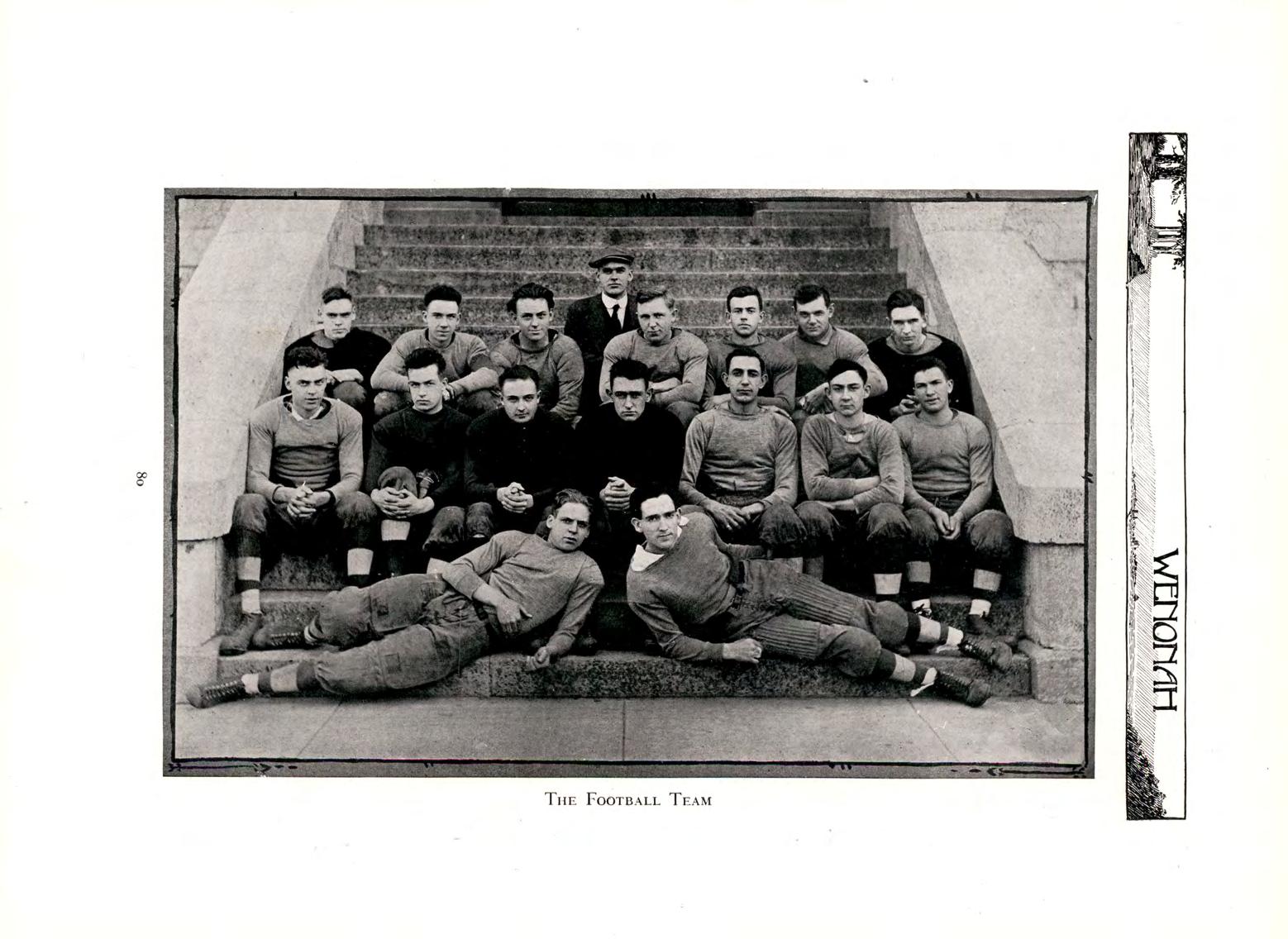 The Football Team
The Football Team
Football In 1916
At the football banquet in 1915, the prospects of the season for 1916 loomed up before us in a most promising manner. Tarras had been elected captain, and of all the squad only one man would leave.
But somehow the “jinx” was following us, and no sooner had school closed than the order came from Washington calling for the services of our boys to defend their country.
It was with reluctance indeed that we saw them leave, for we realized what a hole their absence would make in the squad. So when the first of September came and there was no sign of their return, we felt that we must go to work with all possible effort. Thru the unceasing efforts of Coaches Moore and Kjelland we were able to make a creditable showing against our opponents.
After practising nearly a month, we were slated to meet La Crosse on the seventeenth of October. This we did, and thru hard playing we were able to offset somewhat the humiliating defeat of the previous year. In this game “Dutch” Riley broke his hand, and so was out of the game for the rest of the season. When the whistle blew we found that we were defeated by the score of 18 to o.
On the following Saturday we met the Winona High School in a very enthusiastic battle. Thru hard fighting we won this game by a score of 12 to 2. It was in this game that Dickman first began to prove his worth as a captain and a player, and Nissen as end.
The next Saturday found us playing Wabasha. Bourne was out of the game with injuries, so Dickman took his place. Flannery starred in this game, proving especially strong on the defensive. Tho somewhat one-sided, the game was filled with thrills. The score was 45 to 6 in our favor.
Much interest centered about the next game. Tho we had been defeated at La Crosse, we felt that its team was at a disadvantage playing us on our home grounds. The first touchdown was scored by us; but before the end of the game they had scored two touchdowns and kicked one goal. The game ended in their favor, 13 to 6.
Pillsbury Academy was our next opponent. We were defeated by the decisive score of 52 to o. The brilliant offensive and defensive work of Dickman and Lumelsky were the principle features of the game.
We again played Wabasha on their field, in the midst of a snowstorm, defeating them by a score of 18 to 12.
The offensive work of Katowski, Flannery and Baab, and the defensive work of Lumelsky, Robb, Gallien and Wachholz, were the features which enabled us to win.
The final game of the season came on Thanksgiving day. It was staged with our opponents of St. Mary’s College. The teams were evenly matched, and the outcome seemed doubtful. But in spite of our hard work we were beaten by the score of 26 to o.
The stars of the game were Diekman and Lumelsky for our school, while Gentling starred for the opponents.
At our annual banquet Mr. Arthur Wachholz was elected captain for the season of 1917. We sincerely wish him a most suceessful season. The line-up:
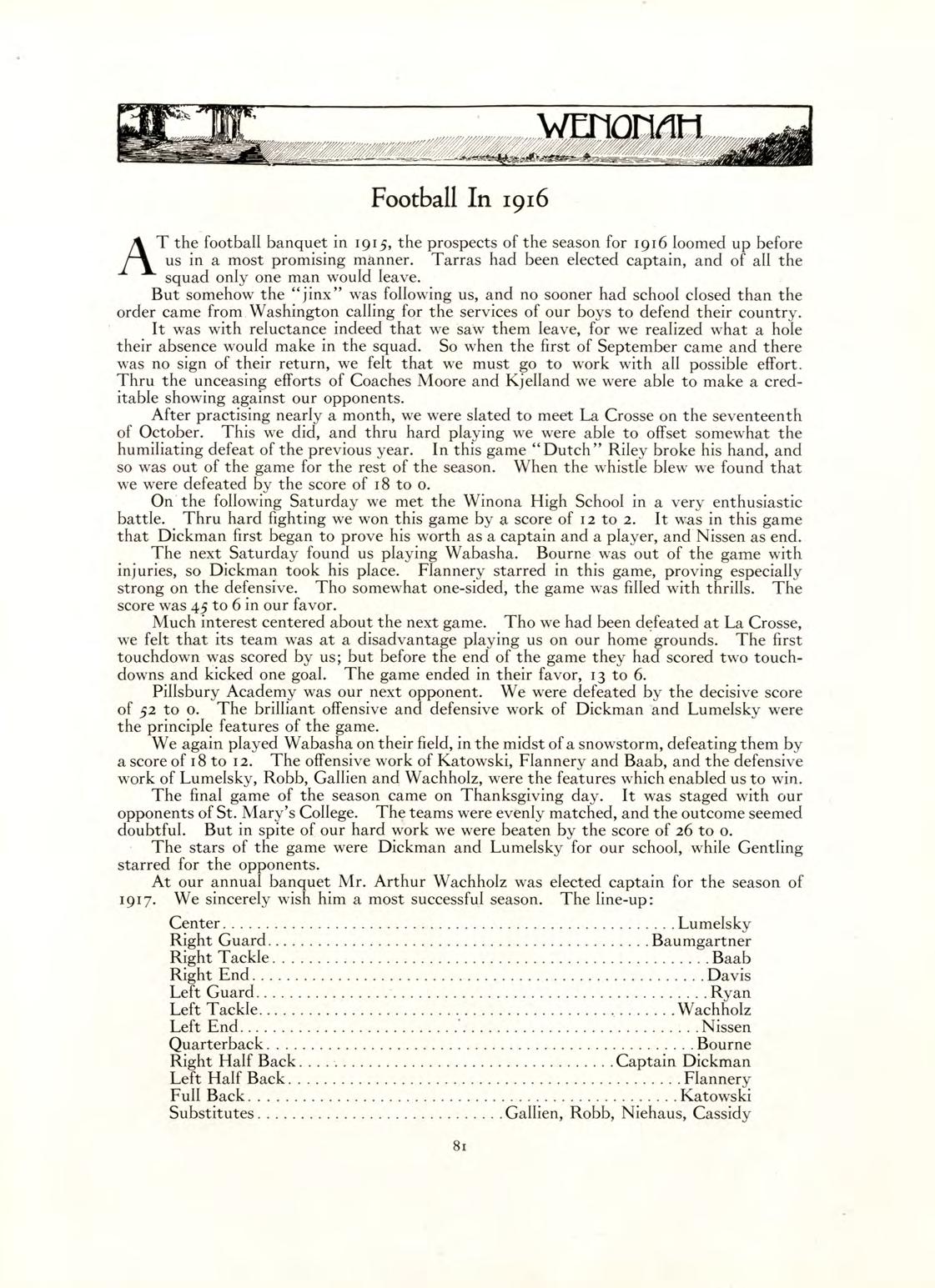
Center Lumelsky Right Guard Baumgartner Right Tackle Baab Right End Davis Left Guard Ryan Left Tackle Wachholz Left End Nissen
Quarterback Bourne Right Half Back Captain Dickman Left Half Back Flannery Full Back Katowski Substitutes
Gallien, Robb, Niehaus, Cassidy
81

82
OTTO BAAB
at Right Tackle was a very valuable lineman, in that he was able to tear wide gaps open for the backfield and also break thru the opposing line to stop plays well before they were started.
MAXWELL LUMELSKY
Center, was excelled by no other player on the defense. His blocking of punts, falling on fumbles, savage tackling and all around utility made his services invaluable to the team. In more than one game his interception of passes resulted in a touchdown.
WALTER NISSEN
our lanky Left End, did a great deal to discourage efforts made by visiting teams to score around his end, by simply nipping in the bud any play that came his way. His work in receiving forward passes was commendable.
LEO RYAN
Left Guard, showed remarkable ability in breaking up plays that opponents directed toward his side of the line. He was also instrumental in advancing the ball for long gains by use of the delayed pass.
KENNETH DAVIS playing the position of Right End, was a defensive player of great merit. In addition to his good defensive work he also was able to advance the ball at times when a gain was needed.
The Football Men
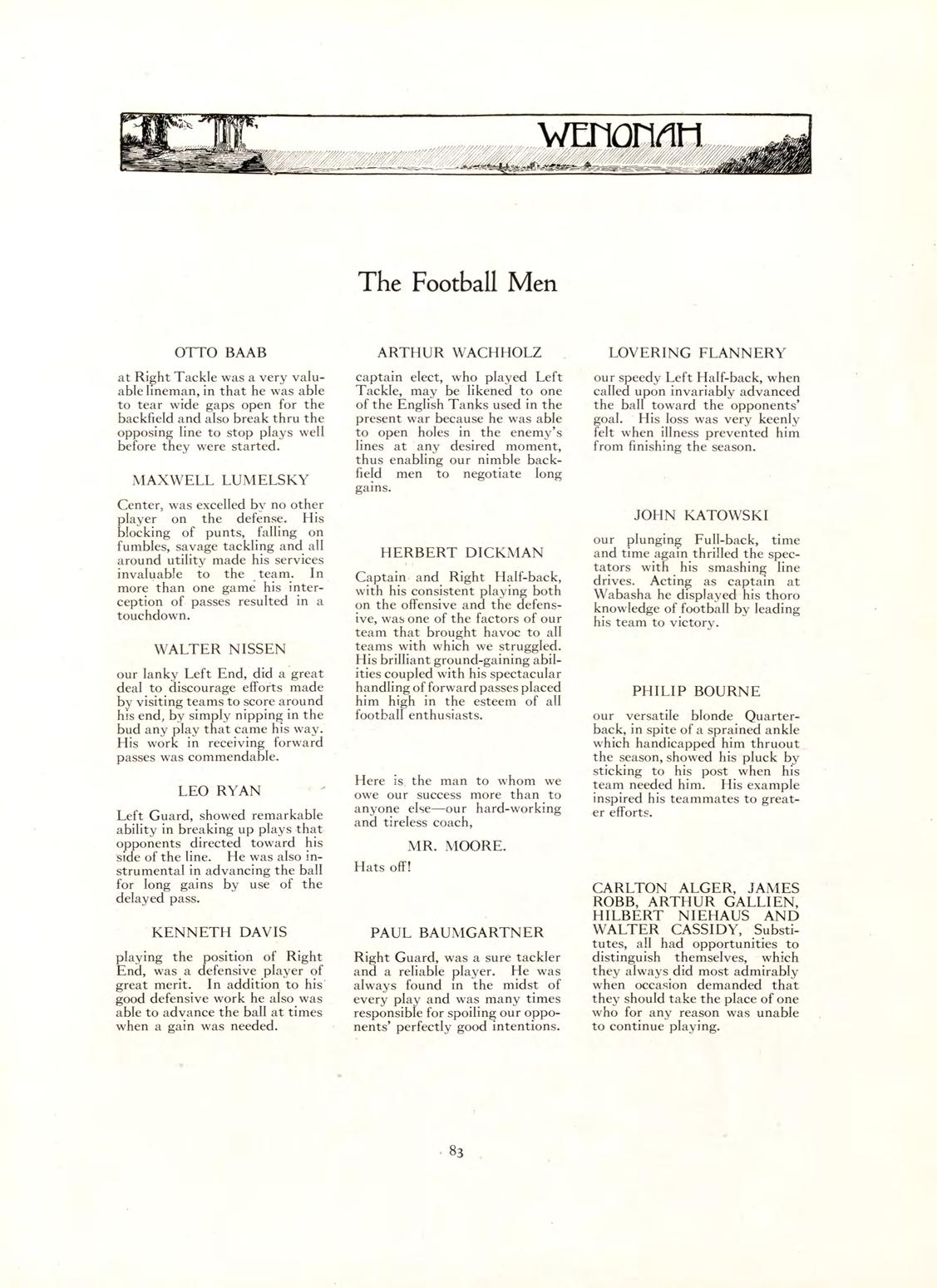
ARTHUR WACHHOLZ
captain elect, who played Left Tackle, may be likened to one of the English Tanks used in the present war because he was able to open holes in the enemy’s lines at any desired moment, thus enabling our nimble backfield men to negotiate long gains.
HERBERT DICKMAN
Captain and Right Half-back, with his consistent playing both on the offensive and the defensive, was one of the factors of our team that brought havoc to all teams with which we struggled. His brilliant ground-gaining abilities coupled with his spectacular handling of forward passes placed him high in the esteem of all football enthusiasts.
LOVERING FLANNERY
our speedy Left Half-back, when called upon invariably advanced the ball toward the opponents’ goal. His loss was very keenly felt when illness prevented him from finishing the season.
JOHN KATOWSKI
our plunging Full-back, time and time again thrilled the spectators with his smashing line drives. Acting as captain at Wabasha he displayed his thoro knowledge of football by leading his team to victory.
PHILIP BOURNE
Here is the man to whom we owe our success more than to anyone else—our hard-working and tireless coach, MR. MOORE.
Hats off!
PAUL BAUMGARTNER
Right Guard, w'as a sure tackier and a reliable player. He was always found in the midst of every play and was many times responsible for spoiling our opponents’ perfectly good intentions.
our versatile blonde Quarterback, in spite of a sprained ankle which handicapped him thruout the season, showed his pluck by sticking to his post when his team needed him. His example inspired his teammates to greater efforts.
CARLTON ALGER, JAMES ROBB, ARTHUR GALLIEN, HILBERT NIEHAUS AND WALTER CASSIDY, Substitutes, all had opportunities to distinguish themselves, which they always did most admirably when occasion demanded that they should take the place of one who for any reason was unable to continue playing.
83
Women’s Athletics
The fall term of 1916 brought with it a new feature in the Physical Education department. Instead of the usual floor work in the gymnasium, all physical education was conducted out on the campus. Tennis, volley ball, basketball and baseball were the sports offered. The tennis courts at Morey Hall were scenes of keen excitement and interest as early as half past five in the morning, and as late as six in the afternoon. Games of volley ball, baseball and basketball played on the normal campus offered great enjoyment to the participants.
The winter term provided many outlets for pleasure. At this time great enthusiasm for basketball was shown. The Normal this year put forth four splendid women’s teams, the Normal, Tri-Sigma, Forum, and Faculty. Girls interested in winter sports enjoyed the two bobs made with the girls’ share of the Association money. These bobs provided great fun for those who delighted in coasting and sleighriding. On March 3d a unique event took place in the Y. W. C. A. swimming pool. Six girls interested in swimming held a contest. Races were held for speed, different kinds of strokes, and number of strokes. Demonstrations of straight and running dives were given. The life-saving feats shown by the girls will long be remembered by those who were present.
With the return of spring came the return of outdoor sports. The same sports offered in the fall were taken up, but with more skill, spirit, and fun. A track team whieh had started practice in the winter term moved its apparatus out on the campus, and surprised the onlookers with its various stunts. Tennis will be renewed as soon as the ground permits and plans are being made for a tennis tournament.
The Woman’s Branch of the Athletic Association has proved itself as successful in social gatherings as in athletics. On September 30th a Bloomer Party made the old gymnasium a scene of merry-making. A game of basketball between the Seniors and Juniors gave the latter the honor of winning the first game of the season. On this occasion refreshments of doughnuts and coffee were served, and no person left the gymnasium before hisdesire for these had been fully satisfied. On February loth an old English costume party was held in the new gymnasium.
This year has decidedly proved that the Woman’s Branch is a marked success. Under Miss Samson’s skillful supervision students have been appointed leaders, and have organized and carried on the work of the Normal campus. With this year’s work as a foundation we hope that the Woman’s Branch will continue to hold a prominent place in school activities.
The .Point System
In order that the efforts of girls doing outside work in athletics might be recognized, it was decided to introduce a point system. Under this system any girl securing one hundred points for outside athletic work will receive a monogram of the Winona Normal School. This system is so arranged that no girl can earn a monogram by doing one kind of athletic work, but will have to participate in two or more forms. By the use of this system, it is hoped that more girls will be induced to join teams, take hikes, swim, skate, and so forth.

84
Hockey
Great was the enthusiasm expressed last fall when it was decided to revive hockey. I say revive, for this game was played to some extent three years ago, altho, it is safe to say, it was not entered into with quite the spirit of zest which was displayed by this year’s teams.
There were in the school this fall four teams of hockey, each team composed of about sixteen girls, and almost any afternoon one could walk past the campus and see two teams working as hard as they could, to go “after the ball.” The teams were evenly matched, and each one was about as anxious to win the game as the other. In fact, after playing several games they decided to quit, as the only field they had was so covered with bits of skin and calf that it was impossible to step about without treading upon some of their detached person.
A gymnastic meet was planned, in which a team composed of Kindergartners was to match its skill against a team made up of students of the regular course. But on account of a snowstorm, which unfortunately could not be postponed, the game could not be played. However, enough enthusiasm has been stirred up to make it safe to say that this old English game is not going to die out as it did before. Next fall it will probably be revived with interest, even tho, before disbanding, the teams decided that their next year’s colors should be black and blue.
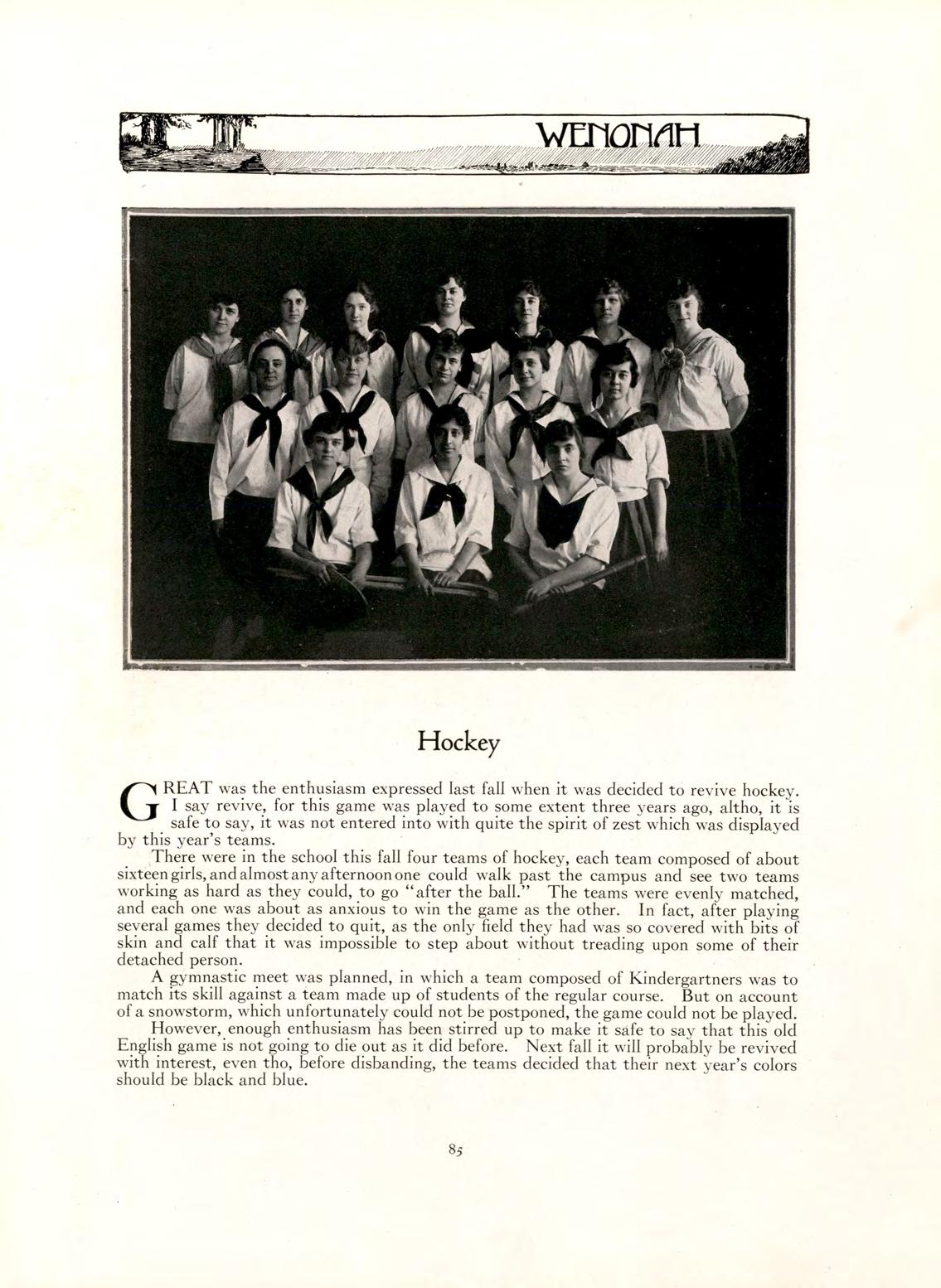
85
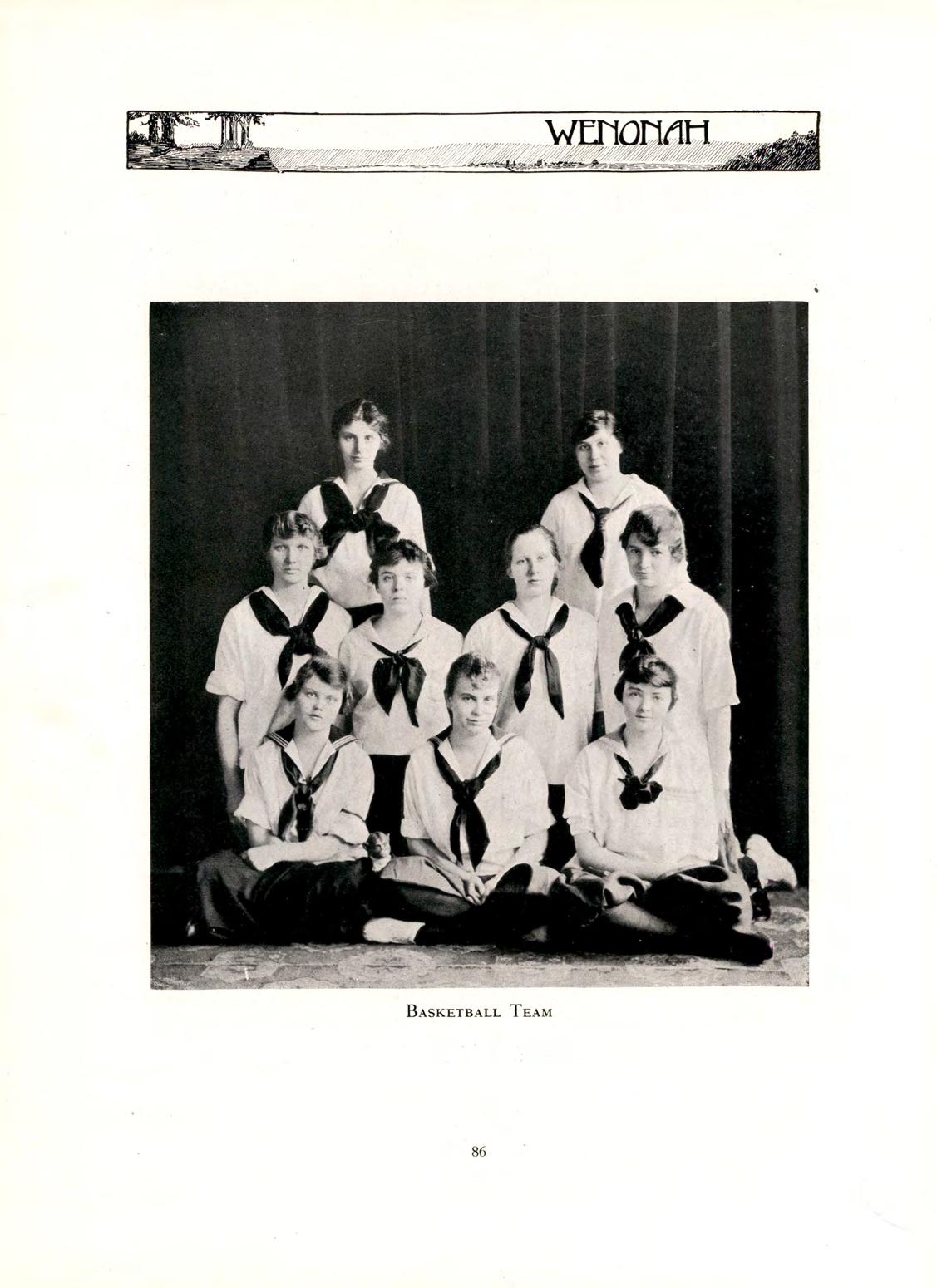
86
Basketball Team
Basketball Team
ON the dear old Normal Campus, Where Basketball holds sway, A team of conq’ring maidens Showed us their skill in play.
Perhaps you wonder who they were. And how each helped the fray. So I shall try most truthfully Their merits to portray.
First came Mildred Hodgins— A whirlwind sure was she; As jumping center on the team No equal could you see.
Next came Olive Chipman, With pep all brimming o’er; As running center, it was seen She surely helped the score. Then three sprightly forwards Helped to spread the fame; There was Duncan, also Vater, And Jenson, too, I claim.
And rest assured, these forwards Deigned not to lose a game. For Basket—Basket—Basket Was to them their middle name. Then next in line came Wheeler, With Lampe, George and K,” And these most speedy maidens Were sure to save the day.
So ready all, now—one, two, three— Let’s cheer them one and all; A team so brave, so fast, so true. The Pride of Normal Hall.
 E. C.
E. C.
87
The Track Team
The track team is a new organization in the seliool. Under Miss JoIIiffe’s skillful and enthusiastie direction, it is making long strides and high jumps toward the athletic goal. It’s making footprints on the sands of the Normal eampus. It’s also swinging along with a rhythmical gait on the pathway to the bluffs, with its head up and its feetdown. When it sees an obstacle ahead in the form of a hurdle, it surmounts that obstacle by jumping casually over it. It sets a definite goal in life a hundred yards ahead, and then strives to reaeh that goal in spite of opposition, by making a dash for it, regardless of eompetitors. It learns to help its neighbors in the race of life, by helping its colleagues to win a relay raee.
P. S.—It sounds as if Miss Gildemeister had written this, but she didn’t.
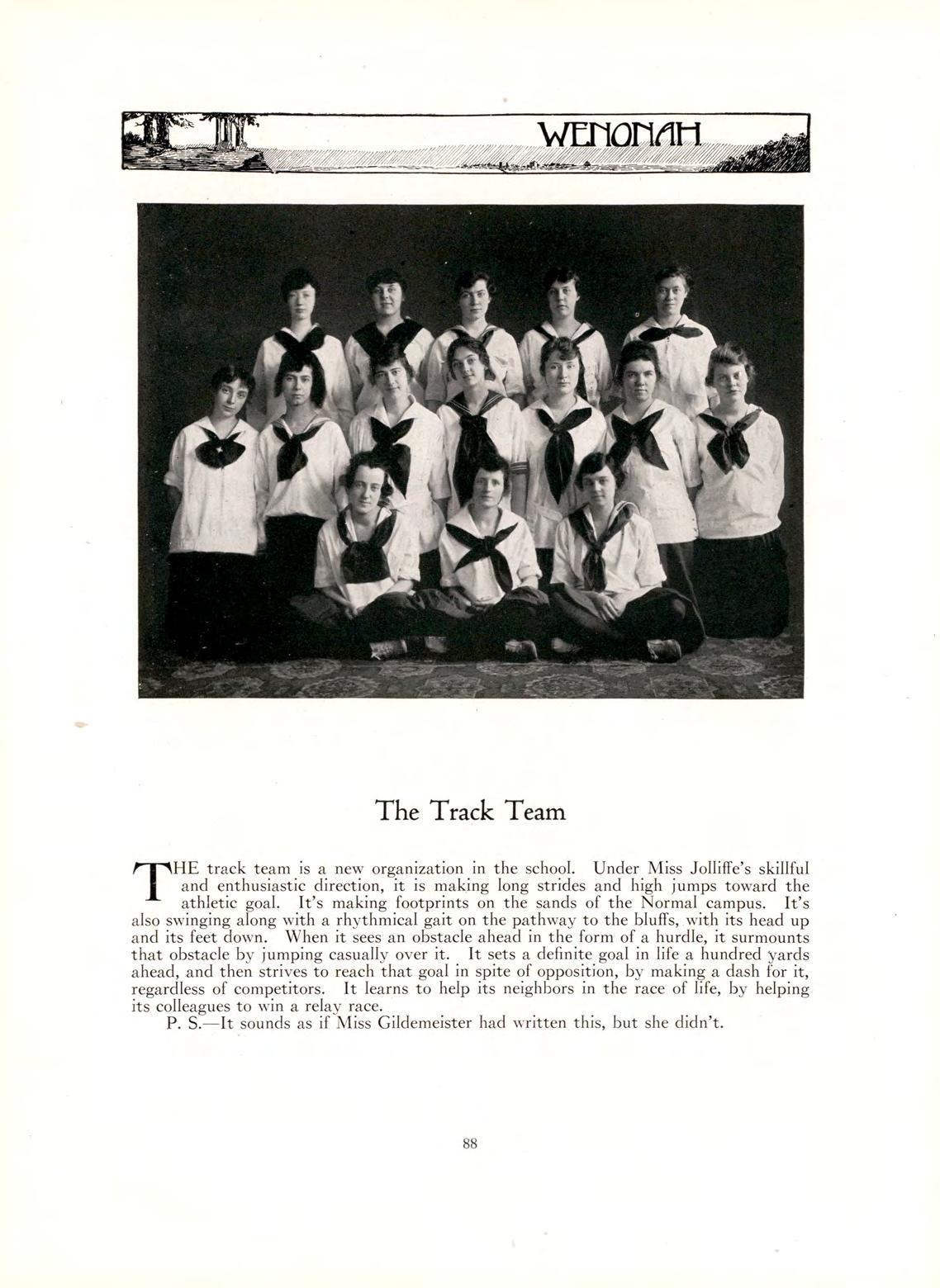
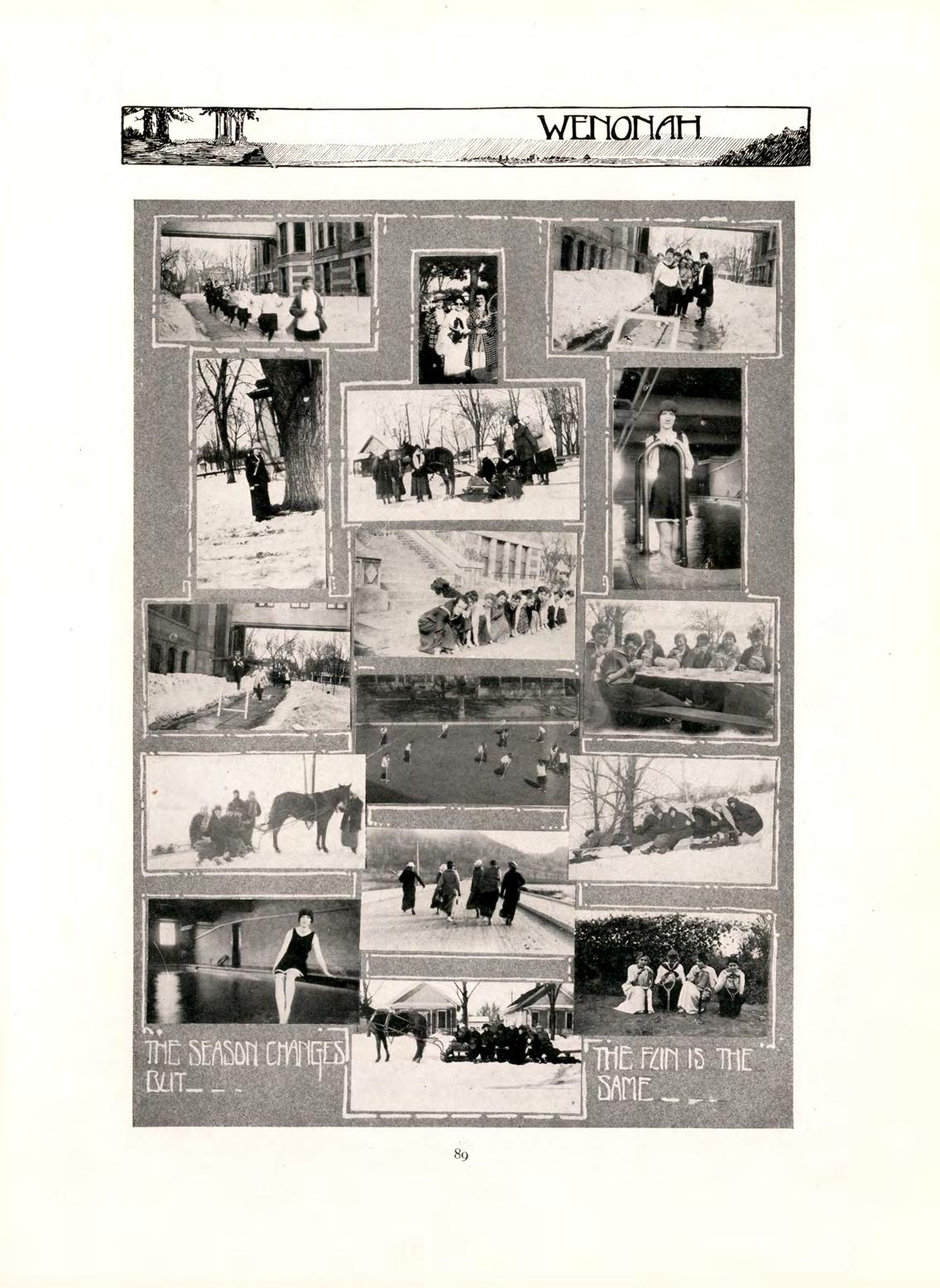
89
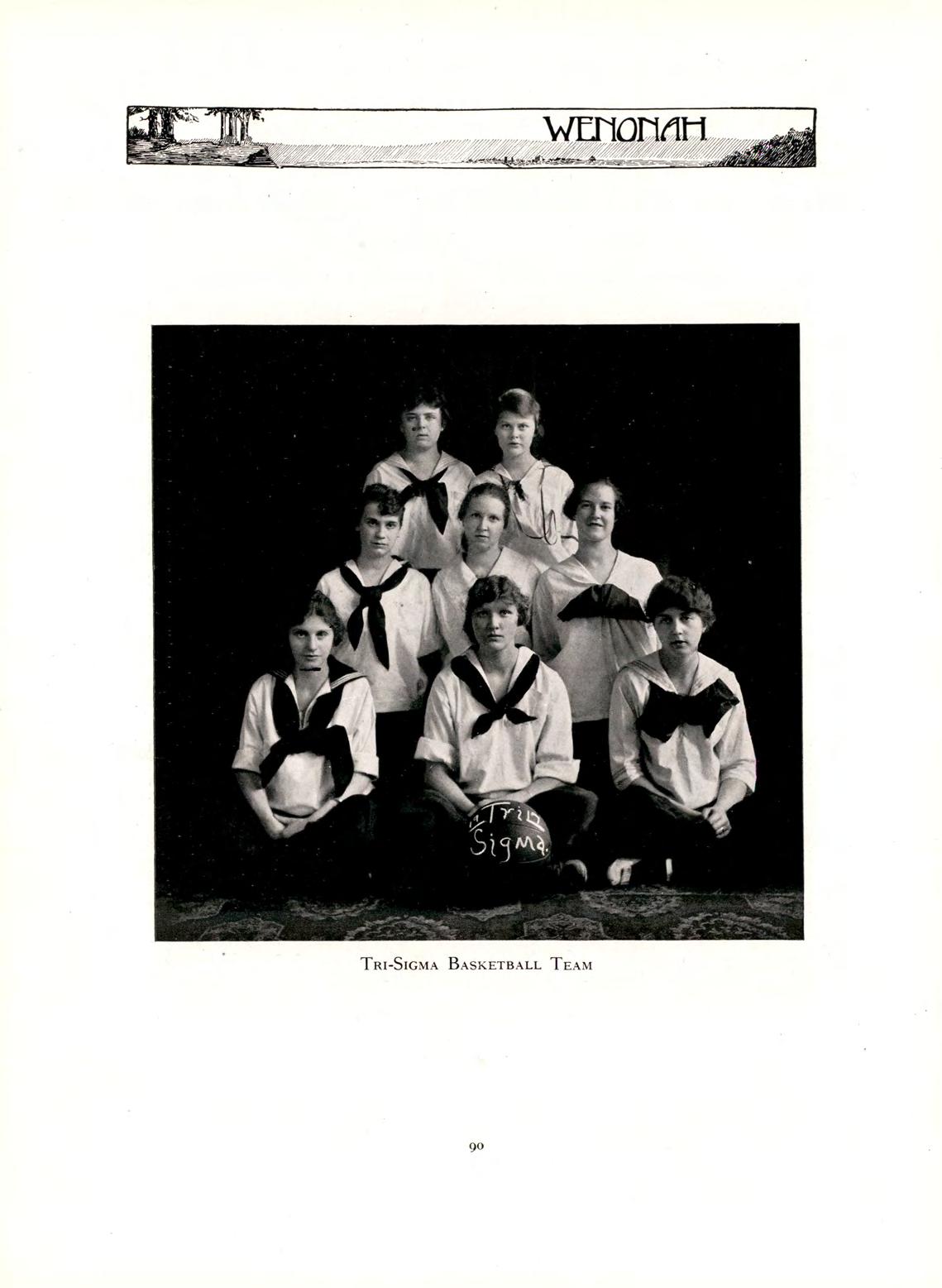
90
Tri-Sigma Basketball Team

9
Forum Basketball Team
“/ found myself suddenly a fiee man, after a year in prison.”
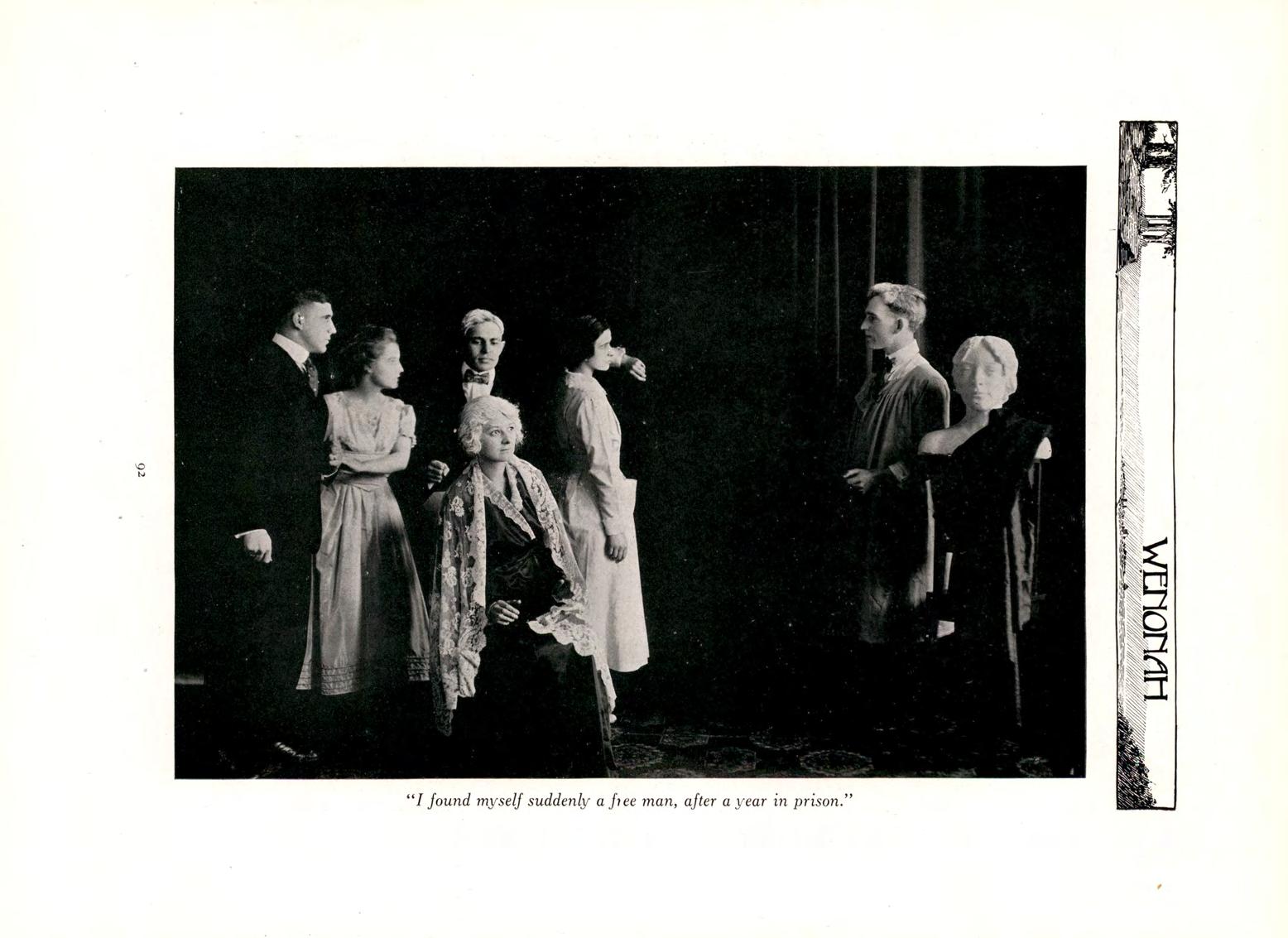
"A Man To a Woman”
Mrs. CHORPENNING’S latest play, “A Man to a Woman,” was presented at the Opera House on December i8th by the Winona Players. It was enthusiastically received by a capacity house. The plot itself is intensely interesting from start to finish, dealing with the injustice of the double standard.
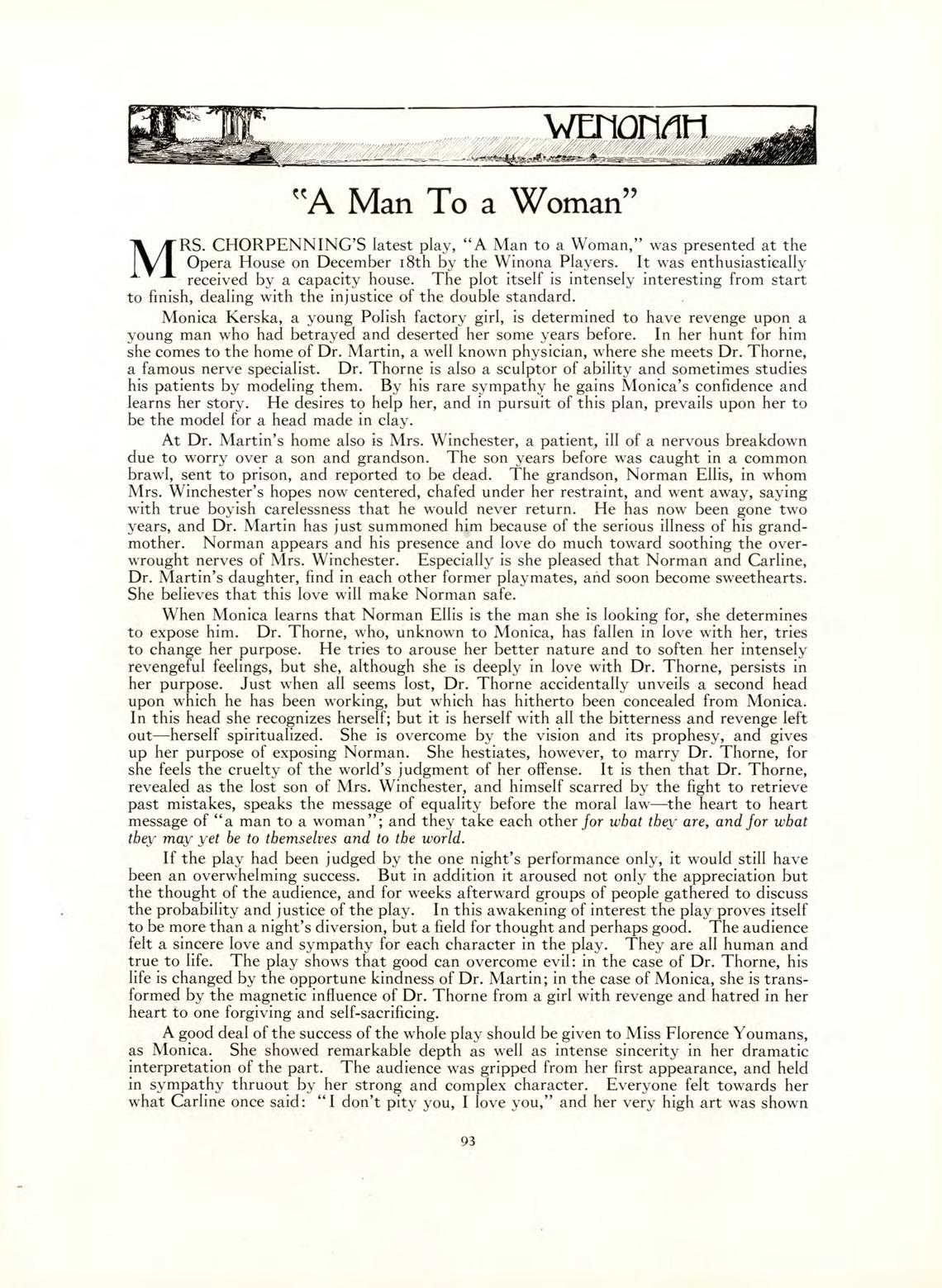
Monica Kerska, a young Polish factory girl, is determined to have revenge upon a young man who had betrayed and deserted her some years before. In her hunt for him she comes to the home of Dr. Martin, a wellknown physician, where she meets Dr. Thorne, a famous nerve specialist. Dr. Thorne is also a sculptor of ability and sometimes studies his patients by modeling them. By his rare sympathy he gains Monica’s confidence and learns her story. He desires to help her, and in pursuit of this plan, prevails upon her to be the model for a head made in clay.
At Dr. Martin’s home also is Mrs. Winchester, a patient, ill of a nervous breakdown due to worry over a son and grandson. The son years before was caught in a common brawl, sent to prison, and reported to be dead. The grandson, Norman Ellis, in whom Mrs. Winchester’s hopes now centered, chafed under her restraint, and went away, saying with true boyish carelessness that he would never return. He has now been gone two years, and Dr. Martin has just summoned him because of the serious illness of his grandmother. Norman appears and his presence and love do much toward soothing the overwrought nerves of Mrs. Winchester. Especially is she pleased that Norman and Carline, Dr. Martin’s daughter, find in each otherformer playmates, and soon become sweethearts. She believes that this love will make Norman safe.
When Monica learns that Norman Ellis is the man she is looking for, she determines to expose him. Dr. Thorne, who, unknown to Monica, has fallen in love with her, tries to change her purpose. He tries to arouse her better nature and to soften her intensely revengeful feelings, but she, although she is deeply in love with Dr. Thorne, persists in her purpose. Just when all seems lost. Dr. Thorne accidentally unveils a second head upon which he has been working, but which has hitherto been concealed from Monica. In this head she recognizes herself; but it is herself with all the bitterness and revenge left out—herself spiritualized. She is overcome by the vision and its prophesy, and gives up her purpose of exposing Norman. She hestiates, however, to marry Dr. Thorne, for she feels the cruelty of the world’s judgment of her offense. It is then that Dr. Thorne, revealed as the lost son of Mrs. Winchester, and himself scarred by the fight to retrieve past mistakes, speaks the message of equality before the moral law—the heart to heart message of “a man to a woman”; and they take each other for what they are, and for what they may yet be to themselves and to the world.
If the play had been judged by the one night’s performance only, it would still have been an overwhelming success. But in addition it aroused not only the appreciation but the thought of the audience, and for weeks afterward groups of people gathered to discuss the probability and justice of the play. In this awakening of interest the play proves itself to be more than a night’s diversion, but a field for thought and perhaps good. The audience felt a sincere love and sympathy for each character in the play. They are all human and true to life. The play shows that good can overcome evil: in the case of Dr. Thorne, his life is changed by the opportune kindness of Dr. Martin; in the case of Monica, she is transformed by the magnetic influence of Dr. Thorne from a girl with revenge and hatred in her heart to one forgiving and self-sacrificing.
A good deal of the success of the whole play should be given to Miss Elorence Youmans, as Monica. She showed remarkable depth as well as intense sincerity in her dramatic interpretation of the part. The audience was gripped from her first appearance, and held in sympathy thruout by her strong and complex character. Everyone felt towards her what Carline once said: “I don’t pity you, I love you,” and her very high art was shown
93
in her logical yet amazing transition from a ruined, revengeful, smouldering fire of a girl to one of fine and noble character.
The dominating character of the play. Dr. Thorne, was portrayed most admirably by Leo Ryan. He performed the difficult taskof not only seeming but really being a man of vast experience, whose life, almost wrecked, had been saved by a determined will and hard work. Mr. Ryan procured a quiet firmness and winning gentleness, combined with a magnetism, that drew everyone to himin admiration. And yet so human and real was he that he won the immediate sympathy of his audience.
Miss Mary Slifer was wonderful in her interpretation of Mrs. Winchester. In her every gesture and expression she was the stately grandmother, covering her nervousness by a pathetic attempt to appear tranquil. Always refined and courteous, she was a lovable character. This very emotional part Miss Slifer performed with the greatest art and ability.
Frances Prentiss as Carline was the bright spot in the play. Her buoyancy and joy in life made a striking contrast to the suffering of her family and friends. Even when she began to realize that things were amiss, she retained her firm belief in the good in every one. Her acting was “the art that conceals art.” So natural was it that one heard people say, “Miss Prentiss wasn’t acting; she was Carline.” From her first entrance, when she came skipping and singing onto the stage, to the intense scene where she heard Monica’s tragic story—in her entire part—she was delightful.
Earl Jewell, as Norman Ellis, was a pleasing, charming character, more to be pitied for his mis-step than hated. The unique situation of holding the audience in complete sympathy with one who would usually have been considered a villain was extremely well handled by Mr. Jewell.
Mr. Webster Kopp took the part of Dr. Martin, the experienced, kindly physician, with great ease. He won at once the admiration and respect of the audience, and possessed the assurance and precision that a doctor of such note should have.
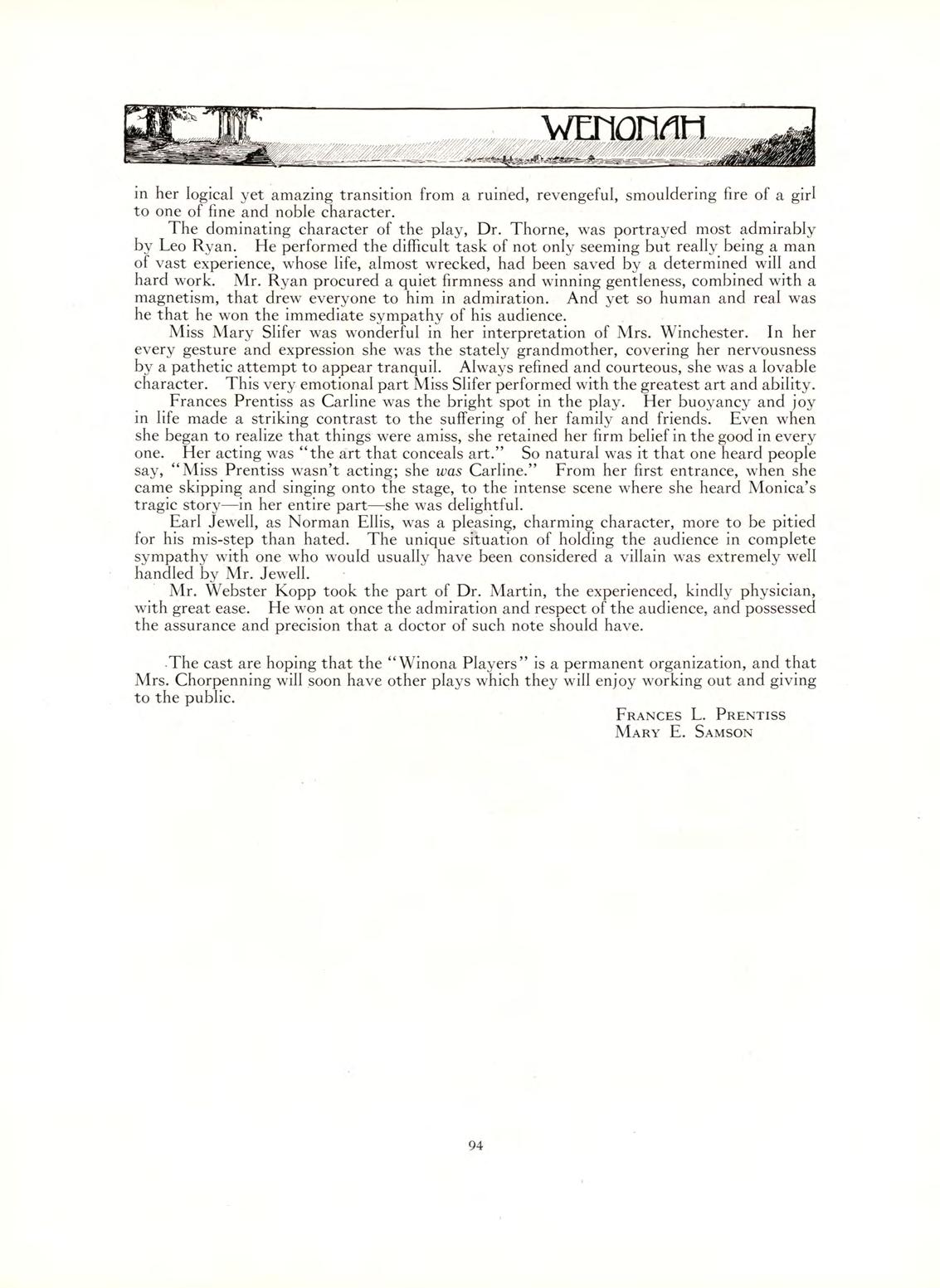
The cast are hoping that the “Winona Players” is a permanent organization, and that Mrs. Chorpenning will soon have other plays which they will enjoy working out and giving to the public.
Frances L. Prentiss
Mary E. Samson
94
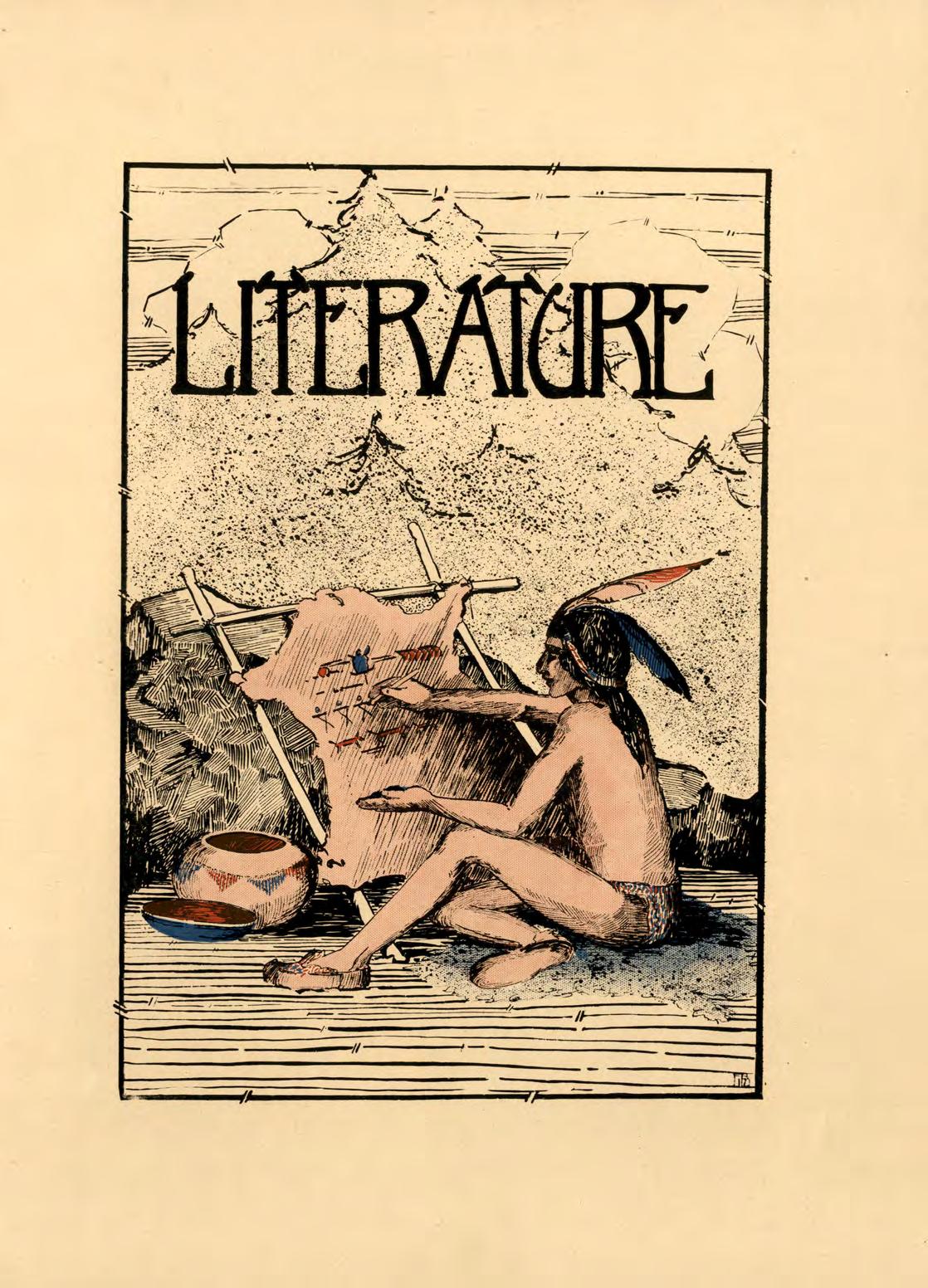

\
Wenonah
“/ will lift up mine eyes to the hills.”
The golden dawn emerges o’er the hills
More radiant now with spring’s awakening breath; All nature sings of peace and love and life, And smiles upon Wenonah’s earnest brow.
Behold the Father of the mighty stream
Who, legend says, from distant lands unknown Bore in his arms this child he loved so well. And placed her in the cradle of the bluffs; Behold the mighty waters swift and deep Who brought Wenonah in her babyhood
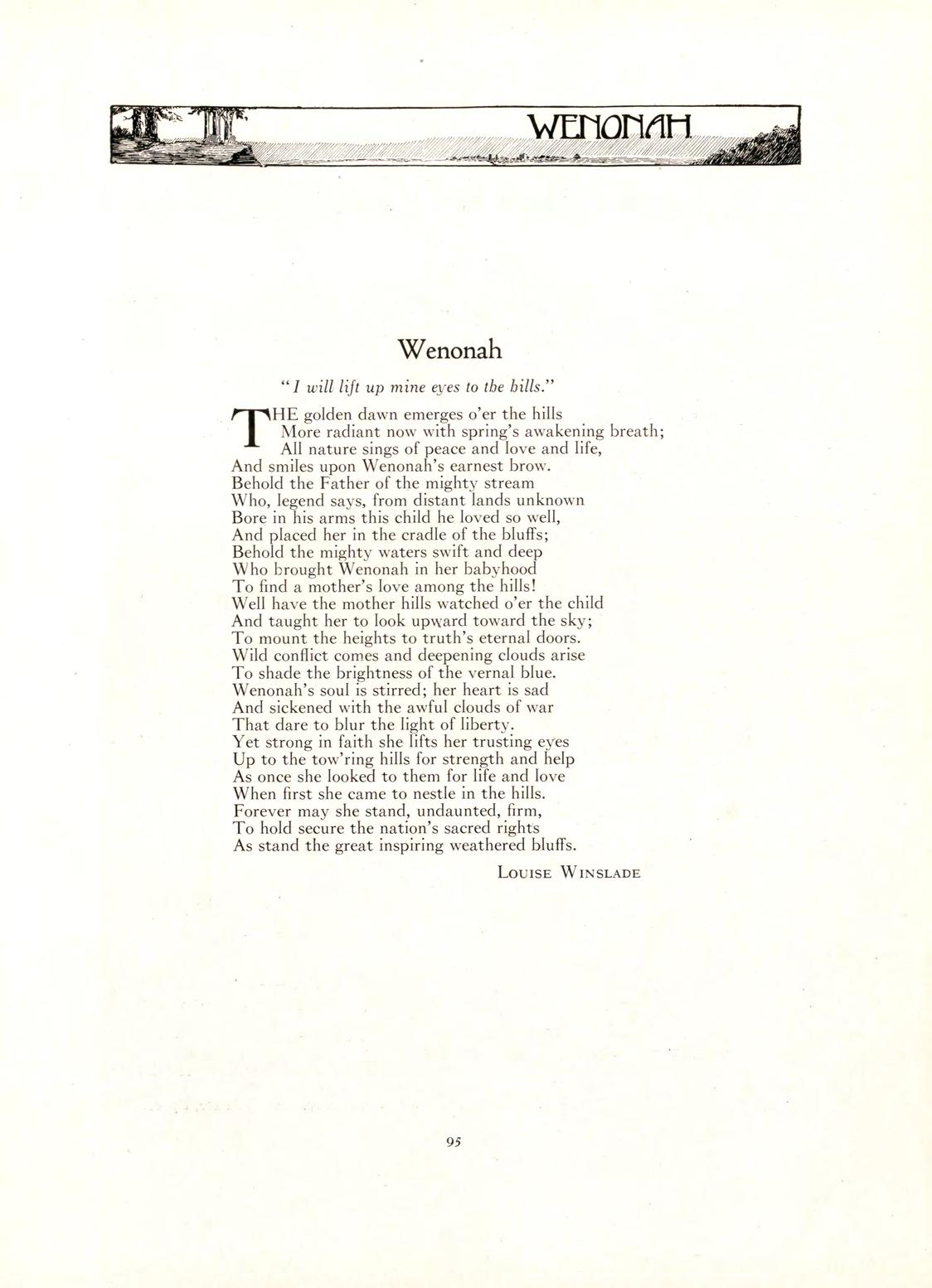
To find a mother’s love among the hills! Well have the mother hills watched o’er the child And taught her to look up\yard toward the sky; To mount the heights to truth’s eternal doors. Wild conflict comies and deepening clouds arise
To shade the brightness of the vernal blue.
Wenonah’s soul is stirred; her heart is sad And sickened with the awful clouds of war That dare to blur the light of liberty.
Yet strong in faith she lifts her trusting eyes
Up to the tow’ring hills for strength and help
As once she looked to them forlife and love
When first she came to nestle inthe hills.
Forever may she stand, undaunted, firm.
To hold secure the nation’s sacred rights
As stand the great inspiring weathered bluffs.
Fouise Winslade
95
"Lest We Forget”
By Leo Ryan COPYRIGHT 1917

Discovered—the Mother, seated down right telling her beads, Maureen standing center in anguish, while a great bell tolls the hour of four.
Maureen crosses to mother as bell ceases tolling.
Maureen—Only an hour left.
Mother—My poor child.
Maureen—Oh, I can’t believe it.
Mother—It is because you are so young that you can’t believe it.
Maureen (half resenting mother’s attitude)—I don’t see what makes you feel so different about this. It’s killing me. But you—I almost believe you knew this whole terrible fight was going to come.
Mother—I was expecting it.
Maureen—You mean—then you did know. And I—why I never dreamed of a rebellion.
Mother—You were too young, my child. You were too young.
Maureen—How did you know?
Mother—Ah! I could feel it, coming, growing for years. The air itself began to whisper withit. It was the blood of the country beginning to stir and grow warm. It was not one thing that did it, but many things—things that only the stronger dare to do. And when the big war came, things got worse. Then when they tried to take the guns away from the organization—sure, thehot blood flew to the hearts of our boys with a rush that burst.
Maureen—Why didn’t they give up the guns? Nothing would have happened then. O! why didn’t they give them up!
Mother—Ah, Maureen, they eouldn’t do that. It was something bigger than just themselves that made them refuse. You could see it in their faces.
Maureen—There is something big in his face.
Mother—Yes, there is. I knew my son would be a rebel when I would look in his face. He was so like my father and brother, the way he would sit outside the door of an evening, watching the moon come up over the hill. ’Twas then I could see it plainest in his face.
Maureen—And now!—to think that in less than an hour! Why does it have to be him?
Mother—Because he was a leader.
Maureen—But what good will it do, to shoot him? Mother—None.
Maureen—Then why are they taking him away from me? And this was to be our wedding morning. Sure it’s only now I should be waking from pure happiness, instead of waiting here in a prison for a minute with him before he is taken away to be shot. O, why will they do it!
Mother—Because they’re blind, Maureen.
Maureen (bitterly)—I hate them! I hate them all! I wish Someone is coming.
Mother—It must be the officer who called us here to the prison that we might see Martin before—sunrise.
Maureen (covering her face in despair)—Sunrise—Oh-h-h—■
Mother (at the sound of voices)—^They’re here.
Enter Officer and Kavanagh. (Kavanagh sits behind desk. Officer advances toward women in center.)
Officer—Be seated, Mr. Kavanagh. There will be no delay. Ah, you are, I presume.
96
the persons whom the prisoner asked for. You have my sympathy. This affair must seem very sudden and terrible to you. But really, I think there will be little call for sympathy. You see, this trouble was at the bottom, little more than a serious riot, by hotheaded fellows who lost their senses by brooding too much over Ireland’s past—just a childish burst of impatience with the world because it wasn’t like their dreams. They found it hard to take things as they are, as older people do, and they got a little noisy about it. Nothing very serious, you know. (To the mother) I think I have a way to get your son out of it. I brought Kavanagh, here, along as a witness. I’ll go for the prisoner immediately. (Turns.) It will take a few niinutes as his cell is some distance away in the lower part of the building.
Exit Officer.
Maureen (joyfully)—I knew it couldn’t be as bad as they said. I just knew he wouldn’t have to die for it. Now we can all be happy again.
Mother—Don’t be too sure, Maureen. I’m afraid—
Maureen—Afraid? Of what? Didn’t you hear that officer say he was going to get him out?
Mother—He didn’t say how, my dear. Perhaps it’s something wrong they’re wishing him to do.
Maureen—Wrong? How?—No, that can’t be. He seems too nice a man to be like that.
Mother—We can’t tell. I remember—But Mr. Kavanagh, here; the Colonel said he was to be a witness. He can tell us what they wish my son to do.
Kavanagh (crossing swiftly and speaking protestingly)—Don’t think I have anything to do with this outrageous affair! I haven’t! That officer brought me here because he took it for granted he could rely on me for support. He plans to use me as a tool. Let him plan! I’ll surprise him when the right time comes. He’ll see that the Irish in me hasn’t withered! From the bottom of my heart I hope your son will be—big!
Mother—Something is wrong.
Kavanagh—Wrong! Good God, yes!
Maureen—Oh—What?
Mother—That officer’s mercy?
Kavanagh—A treacherous sham!
Mother—The old story again.
Kavanagh (respectfully, quietly)—His mother understands!
Maureen—What story?
Mother—My son!—my poor son!
Kavanagh—My dear woman—if my sympathy— (stops, feeling uselessness of sym-
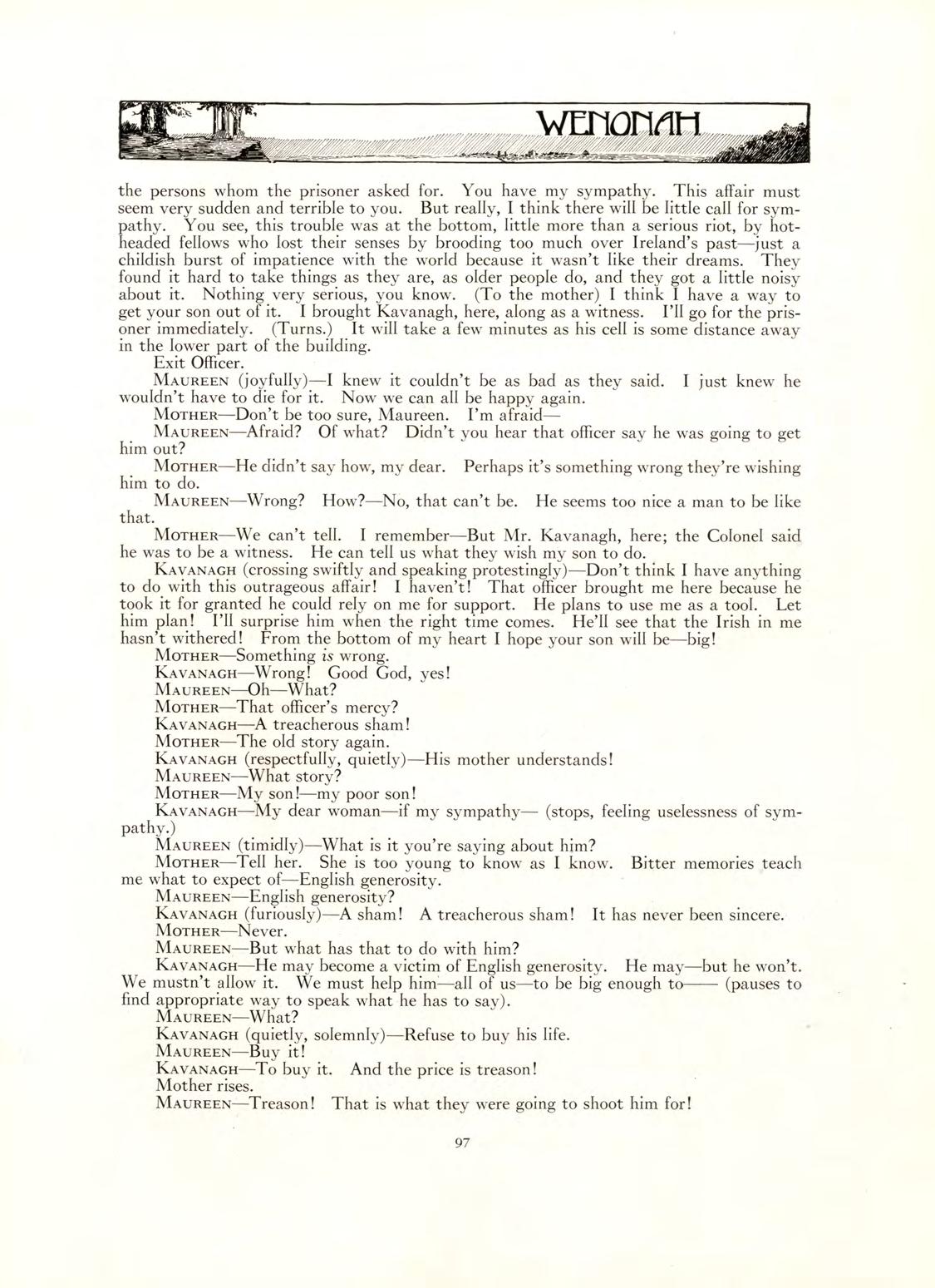
Maureen (timidly)—What is it you’re saying about him?
Mother—Tell her. She is too young to know as I know. Bitter memories teach me what to expect of—English generosity.
Maureen—English generosity?
Kavanagh (furiously)—A sham! A treacherous sham! It has never been sincere.
Mother—Never.
Maureen—But what has that to do with him?
Kavanagh—He may become a victim of English generosity. He may—but he won’t. We mustn’t allow it. We must help him—all of us—to be big enough to (pauses to find appropriate way to speak what he has to say).
Maureen—What?
Kavanagh (quietly, solemnly)—Refuse to buy his life.
Maureen—Buy it!
Kavanagh—To buy it. And the price is treason!
Mother rises.
Maureen—Treason! That is what they were going to shoot him for!
97
Kavanagh—That is their excuse for murdering him. An Irishman could no more be a traitor to England than he could be false to the devil!
Maureen—Then—How is it they wish him to buy his life?
Kavanagh—By selling out the men he led.
Mother—He’ll never do that! None of his people have ever been turncoats.
Maureen—Oh! That is what you mean! A turncoat!
Kavanagh (to Maureen)—You must help keep him from that.
Maureen—Help? Help bring him to his death? I love him!
Mother—The man you love will be dead if he—forgets.
Maureen—Do you mean I wouldn’t love him anymore?
Mother—You couldn’t.
Maureen (convincingly and then with horror)—I would!—always! What you say sounds very fine and wonderful—but it means death to him—and that is horrible—I never knew before how horrible death is!
Kavanagh (forcefully but quietly)—Treason is more horrible.
Maureen—A man can’t be a traitor to a cause that’s lost! The fight is all over, now.
Mother—All over? No, not yet.
Kavanagh—That’s just what will be said to him—it’s all over.
Maureen (quickly)—You know what the Colonel is going to say to him?
Kavanagh—Yes. He showed me his hand on the way over—thought I’d help him play it. (A growl of savage anger.) He means to hold the threat of death within the hour in your lover’s face while he offers him liberty. You have been guilty of conspiracy and treason, he will say, and for that you are about to die. But headquarters, true to English charity, love of little peoples, and everything else that’s noble, has decided to extend mercy to you. All you need do is to go thru the form of a military surrender, and you and your associates will be free men.
Maureen (belligerently)—Well, what can possibly be the matter with that?
Kavanagh—It’s a trap.
Mother—Ah—that is it.
Maureen—How is it a trap?
Kavanagh (clearly, strongly, with a touch of irony)—Two conditions make it a trap. He is to give up all the other members of the organization who haven’t been caught—make a king’s evidence cur of him! He is to proclaim to the people the foolishness of the rebellion, and advise them to place confidence in peaceful methods—and in the English! I’m sick of both!
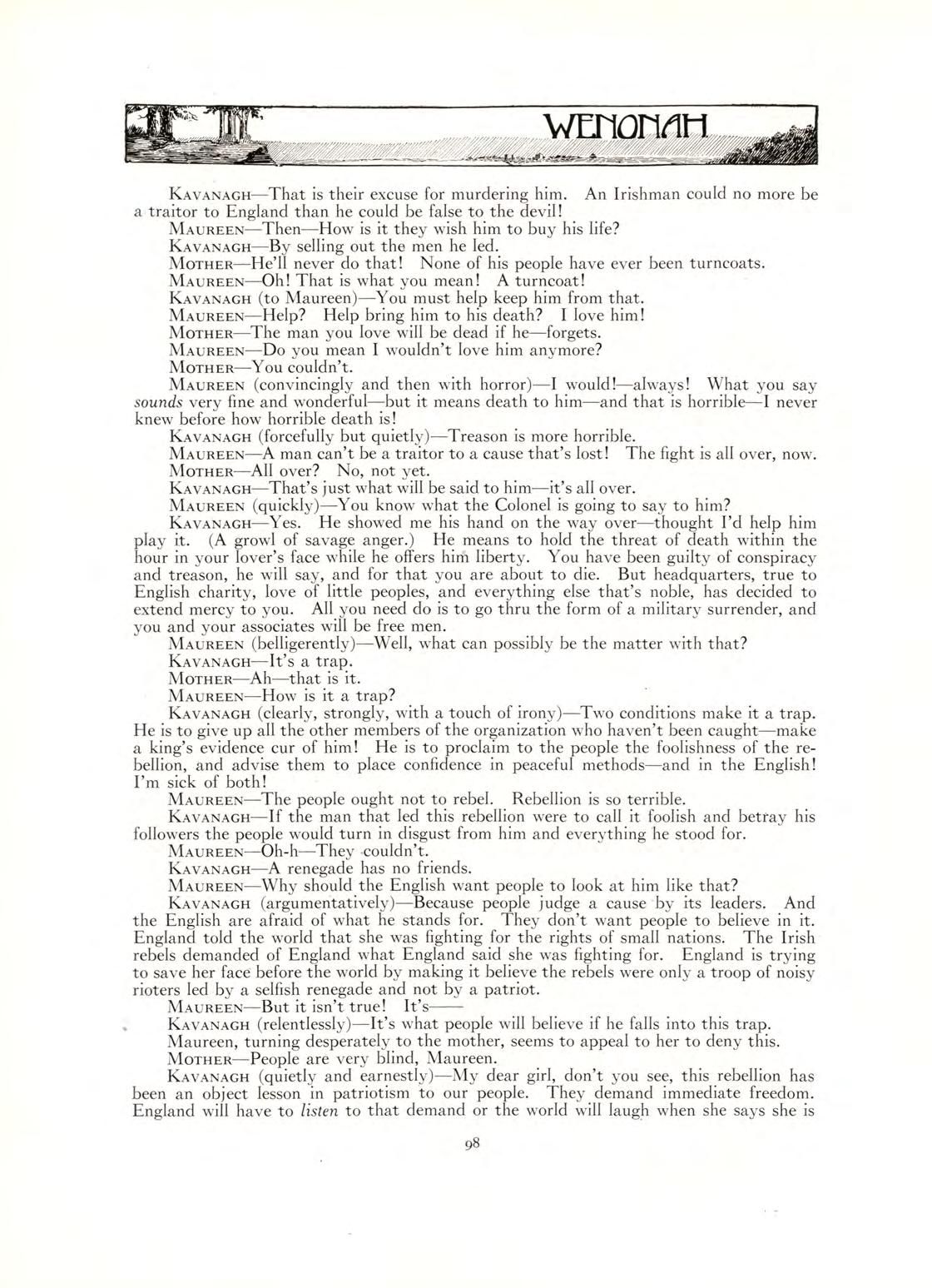
Maureen—The people ought not to rebel. Rebellion is so terrible.
Kavanagh—If the man that led this rebellion were to call it foolish and betray his followers the people would turn in disgust from him and everything he stood for.
Maureen—Oh-h—They couldn’t.
Kavanagh—A renegade has no friends.
Maureen—Why should the English want people to look at him like that?
Kavanagh (argumentatively)—Because people judge a cause by its leaders. And the English are afraid of what fie stands for. They don’t want people to believe in it. England told the world that she was fighting for the rights of small nations. The Irish rebels demanded of England what England said she was fighting for. England is trying to save her face before the world by making it believe the rebels were only a troop of noisy rioters led by a selfish renegade and not by a patriot.
Maureen—But it isn’t true! It’s
Kavanagh (relentlessly)—It’s what people will believe if he falls into this trap.
Maureen, turning desperately to the mother, seems to appeal to her to deny this.
Mother—People are very blind, Maureen.
Kavanagh (quietly and earnestly)—My dear girl, don’t you see, this rebellion has been an object lesson in patriotism to our people. They demand immediate freedom. England will have to listen to that demand or the world will laugh when she says she is
98
fighting the battle of small nations. But if he fails!—our own people will turn away in disgust for they hate an informer. Then England can point and say: “See, the rebels were only a few noisy ones. The Irish are contented.” The world will believe. And all that he stands for will be lost to us. Are we going to lose? My God!—Would you ask him—that? You of all others know what he dreamed of—what his ideals were.
Maureen (momentarily forgetting horror of situation)—Yes, I know. They were wonderful. That’s why I love him.
Kavanagh—He must kill those ideals to buy his life. Which is to live?
NIaureen (argumentatively)—The things he believes in can’t be killed! I know it! I feel it! He told me himself it was a greater thing to live for Ireland than to die for her.
Kavanagh—He can’t live for Ireland if he would make people see.
Maureen (turning desperately to mother)—The world must be mad, if men must die to make people see!
Mother—’Tis a long time mad.
Maureen—I can’t lose him! I won’t!—Oh—They’re coming!
She darts to the door, hands outstretched. As the sound of the handling of the door is heard she turns away, terror-stricken.
Kavanagh (to the mother, at Maureen’s first move)—She’ll tear theheart out of him.
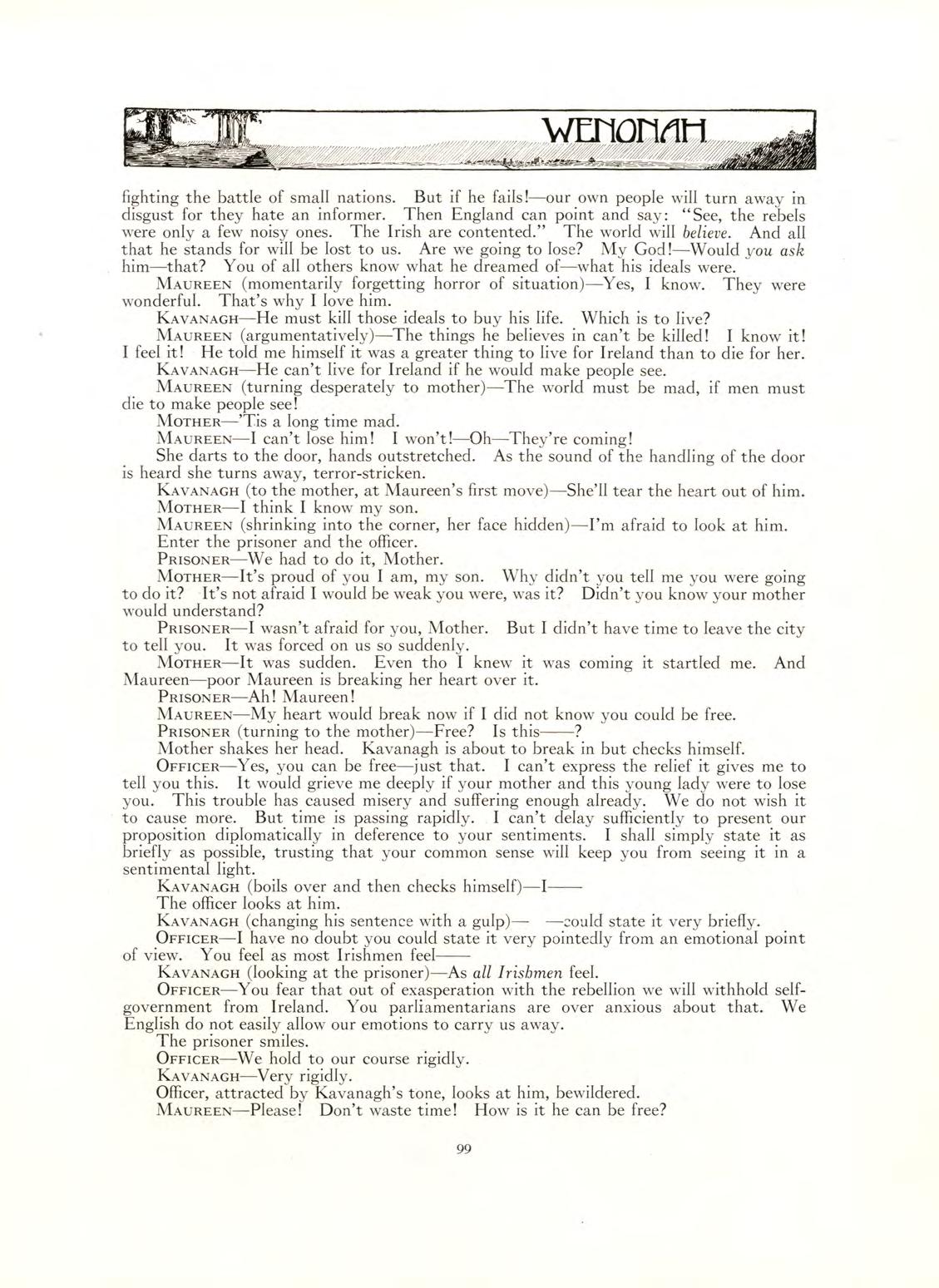
Mother—I think I know my son.
Maureen (shrinking into the corner, her face hidden)—I’m afraid to look at him. Enter the prisoner and the officer.
Prisoner—We had to do it. Mother.
Mother—It’s proud of you I am, my son. Why didn’t you tell me you were going to do it? It’s not afraid I would be weak you were, was it? Didn’t you know your mother would understand?
Prisoner—I wasn’t afraid for you. Mother. But I didn’t have time to leave the city to tell you. It was forced on us so suddenly.
Mother—It was sudden. Even tho I knew it was coming it startled me. And Maureen—poor Maureen is breaking her heart over it.
Prisoner—Ah! Maureen!
Maureen—^My heart would break now if I did not know you could be free.
Prisoner (turning to the mother)—Free? Is this ?
Mother shakes her head. Kavanagh is about to break in but checks himself.
Officer—Yes, you can be free—just that. I can’t express the relief it gives me to tell you this. It would grieve me deeply if your mother and this young lady were to lose you. This trouble has caused misery and suffering enough already. We do not wish it to cause more. But time is passing rapidly. I can’t delay sufficiently to present our proposition diplomatically in deference to your sentiments. I shall simply state it as briefly as possible, trusting that your common sense will keep you from seeing it in a sentimental light.
Kavanagh (boils over and then checks himself)—I
The officer looks at him.
Kavanagh (changing his sentence with a gulp)— —could state it very briefly.
Officer—I have no doubt you could state it very pointedly from an emotional point of view. You feel as most Irishmen feel
Kavanagh (looking at the prisoner)—As all Irishmen feel.
Officer—You fear that out of exasperation with the rebellion we will withhold selfgovernment from Ireland.You parliamentarians are over anxious about that. We English do not easily allow our emotions to carry us away.
The prisoner smiles.
Officer—We hold to our course rigidly.
Kavanagh—Very rigidly.
Officer, attracted by Kavanagh’s tone, looks at him, bewildered.
Maureen—Please! Don’t waste time! How is it he can be free?
99
Officer—Yes, yes, let us go baek to our propsoition. Well, you understand, of eourse, that you have been guilty of conspiracy and treason and have accordingly been condemned to death.
Prisoner—Where no loyalty is due, there can be no treason.
Oeficer (hesitating)—Ireland is part of the empire. Her loyalty is due to England.
Prisoner—Belgium is part of the German Empire. Her loyalty is due to Germany.
Officer—Why, man, that is no comparison! Belgium has just been invaded, trampled on. Ireland—Why, Ireland has been a part of the empire for hundreds of years.
Prisoner—Tho a man be born in slavery, he is none the less a slave.
Officer—I don’t see why you say that. The Irish are treated much better than the Belgiums. I’m afraid your language is more rhetorical than judicious. What the Irish have in common with slaves is more than I can see.
Prisoner—Anyone unwillingly deprived of his rights is a slave. The Irish are political slaves. They cannot be traitors to their master.
Oeficer—I must confess I don’t follow you. Your people have a voice in the Imperial parliament and they have our promise of home rule.
Prisoner—The voice we have in your parliament is too weak to be heard. The home rule you promise us is no more than a bright colored toy to quiet us with.
Kavanagh (explosively)—And it’s still a promise!
Mother—An English promise.
Oeficer (with dignity)—An English promise is not to be doubted.
Kavanagh (vigorously)—And why not? To what unspotted record can you point? If your government is sincere in her promises why doesshe withhold home rule?
Oeficer (calmly)—You are overhasty, my dear Kavanagh. As a member of parliament you must realize that parliamentary methods are necessarily slow.
Kavanagh (turns away and speaks with irony)—I’ve noticed that—when prejudice is in the majority.
Officer (with forced calm)—Ah-h—But—You see there are two sides to the home rule question.
Kavanagh (sharply)—Correct, sir! A right and a wrong!
Oeficer (with insistent calmness of attitude)—I am afraid you are growing emotional. There is Ulster to be considered, you know.
Kavanagh (mocking officer’s manner and tone, then reverting to former force)—If you were to consult your reason instead of your emotions there would be no Ulster problem. You would not be upholding the bigotry of a seventeen per cent minority simply because they happen to be of your own race.
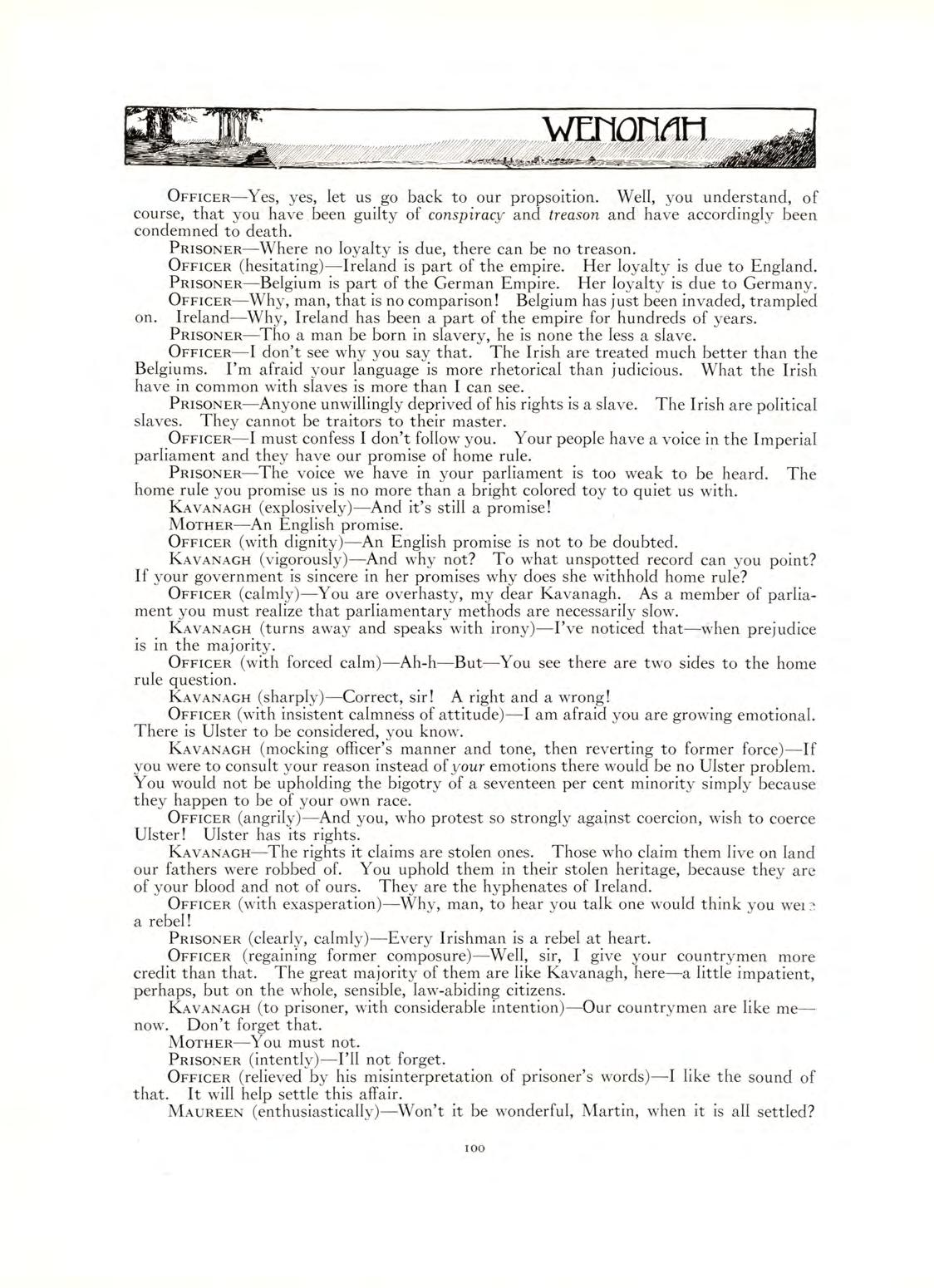
Officer (angrily)—And you, who protest so strongly against coercion, wish to coerce Ulster! Ulster has its rights.
Kavanagh—The rights it claims are stolen ones. Those who claim them live on land our fathers were robbed of. You uphold them in their stolen heritage, because they are of your blood and not of ours. They are the hyphenates of Ireland.
Oeeicer (with exasperation)—Why, man, to hear you talk one would think you wei a rebel!
Prisoner (clearly, calmly)—Every Irishman is a rebel at heart.
Officer (regaining former composure)—Well, sir, I give your countrymen more credit than that. The great majority of them are like Kavanagh, here—a little impatient, perhaps, but on the whole, sensible, law-abiding citizens.
Kavanagh (to prisoner, with considerable intention)—Our countrymen are like me—■ now. Don’t forget that.
Mother—You must not.
Prisoner (intently)—I’ll not forget.
Officer (relieved by his misinterpretation of prisoner’s wmrds)—I like the sound of that. It will help settle this affair.
Maureen (enthusiastically)—Won’t it be wonderful, Martin, when it is all settled?
lOO
Prisoner—(with sadness in voice) A new world, Maureen.
Maureen (impulsively, to the officer)—Can’t we get this over, at once?
Officer (in determined air)—Yes, we must decide this very quickly, or it will be too late. The guard outside will summon you at the end of the hour. Well, it is apparent you will not admit that you have been guilty of treason. However, it is the law.
Prisoner—It is the rule of the master.
Officer—You are among those who have been orderedshot at sunrise. But our mercy shrinks from bringing bitterness and suffering to your people.
Mother—Bitterness and suffering are no new things to us.
Maureen—Oh! They are to me!
Mother—You are one of us, my dear. You can not help but learn. It is always so.
Officer—My dear woman, you are too fatalistic. You should be more hopeful.
Maureen—The world is full of hope.
Prisoner—The hope of one is the fear of another.
Maureen—But our hope—How can that be the fear of anyone?
Officer—Our hope should be no one’s fear—because it is mercy. Mercy that will overlook treason is a hard thing to get from military officials. Still, we are ready to overlook this mistake.
Kavanagh (sarcastically)—How can you possibly do that!
Officer—It is a difficult thing to overlook. And our proposition is a very unmilitary one. (To the prisoner) Instead of punishing you as a traitor we offer you the dignity of signing a military surrender that will grant you liberty.
Prisoner—You are very generous to offer the dignity of surrender.
Officer—You see, we can’t simply free you. People must not think treason can go unpunished. It is necessary to do something to cloak what otherwise might be called sentimental weakness.
Kavanagh—How curious !
Officer (taking a document from the table)—Here is the cloak—alreadyprepared— we knew we would not have the time to prepare it here. I have presented this to the other leaders of your men, one by one; they all referred me to you as their chief. Their fate rests with you.
Maureen—And all those other people are afraid, too—Oh, Martin—!
AIother—’Tis a great care to be a leader.
Officer—Your associates were, I feel, pleased with this proposal. They smiled and said you would give their answer. Those men have great confidence in you.
Prisoner—The confidence of the brotherhood is a sacred trust.
Officer—It is a great trust that leads men to place in your hands their lives.
Mother—More than their lives.
Kavanagh—I’m beginning to haveconfidence in him myself.
Maureen—I’m afraid.
Officer—This surrender carries with it only two conditions. First, you must order all members of your organization to give up their arms, at once. It will be necessary that you give us the names of the members of the organization in order that we may be sure that this condition ià obeyed. (Looks at prisoner then at Kavanagh.) The second condition is that you advise your people against further revolution. It could only be disastrous as you must now realize. (Preparing a pen. As the prisoner makes no response:) Surely you appreciate the liberality of these terms. Of course, we can’t let you out of prison until the last gun has been handed in.
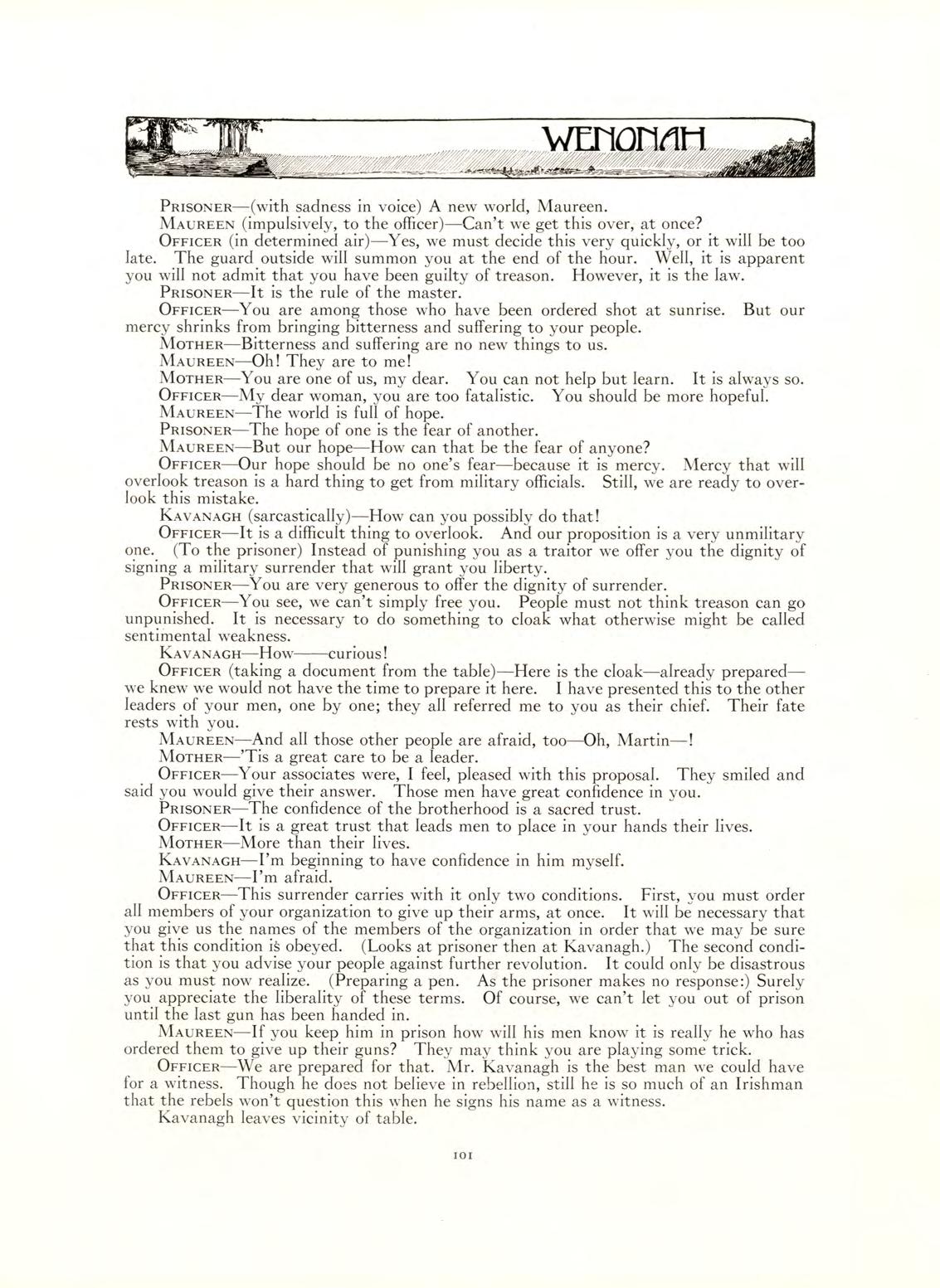
Maureen—If you keep him in prison how will his men know it is really he who has ordered them to give up their guns? They may think you are playing some trick.
Officer—We are prepared for that. Mr. Kavanagh is the best man we could have for a witness. Though he does not believe in rebellion, still he is so much of an Irishman that the rebels won’t question this when he signs his name as a witness.
Kavanagh leaves vicinity of table.
lOI
Maureen—If he doesn’t sign it?
Officer—You needn’t worry about that. Kavanagh believes in peaceful methods. He’ll do anything to check another rising. And I guess we can manage if he doesn’t.
Maureen—I hope so.
Officer—Well, sir, here is a pen. Your signature to this will save many lives and much suffering.
The prisoner makes no move to take the pen and Maureen takes it, turns to the prisoner, hesitates and stands motionless. Kavanagh watches down, right, ready to interrupt if the prisoner should seem ready to sign.
Officer (after hesitation)—There is the paper. Read it. You will findthe conditions are as I stated them.
Prisoner—I do not question your statements.
Officer—Then why hesitate? You are very fortunate to have this opportunity.
Prisoner—Opportunity for what?
Officer—To live and work for Ireland.
Prisoner—Those who live and work for Ireland are listened to only when her sons die for her.
Officer—You say that because you are bitter from brooding over the past. I admit it has been pretty black. But those old days of injustice are over.
Kavanagh—Are you certain of that?
Officer—Quite certain. We have made mistakes. Every nation has. But we follow high ideals. When we took up arms in defense of Belgium, we gave evidence of that. Ireland and England must travel the same road inthe future. The past is dead.
Prisoner—All the paths of the world were made in the past.
Officer—Many of them are worn out. The path of hate and revenge should be. You ought to live to teach your people to forget.
Prisoner—A people cannot be taught to forget a bitterness centuries old while the cause of it still lives.
Officer—Your people should trust to the future for better things. In the future lies the glorious road to the brotherhood of nations.
Prisoner—The nations of the world will never travel that road until they forget one thing which an ultrascientific age has given them—the materialistic conception of nationality.
Officer—Eh-h—What’s that? How’s that?
Maureen—What does that mean?
Prisoner—It means survival of the stronger. It means that the powerful nations forget the smaller ones except when it is policy to remember them.
Kavanagh—It means to hell with the Poles—and the Serbs—and the Belgians! And it means to hell with the Irish! !
Officer—Have you lost your head?
Kavanagh—No. I’ve just found it! This rebellion, and the atrocities of your troops during the fighting here, showed me the real situation. I have come to see, Mr. Officer, that we who believed our countries had a common interest, were mistaken. There is only one, and that, yours. You treat us decently when you think it good policy to do so. All honor to the men who jar you into seeing that justice is good policy in Ireland!
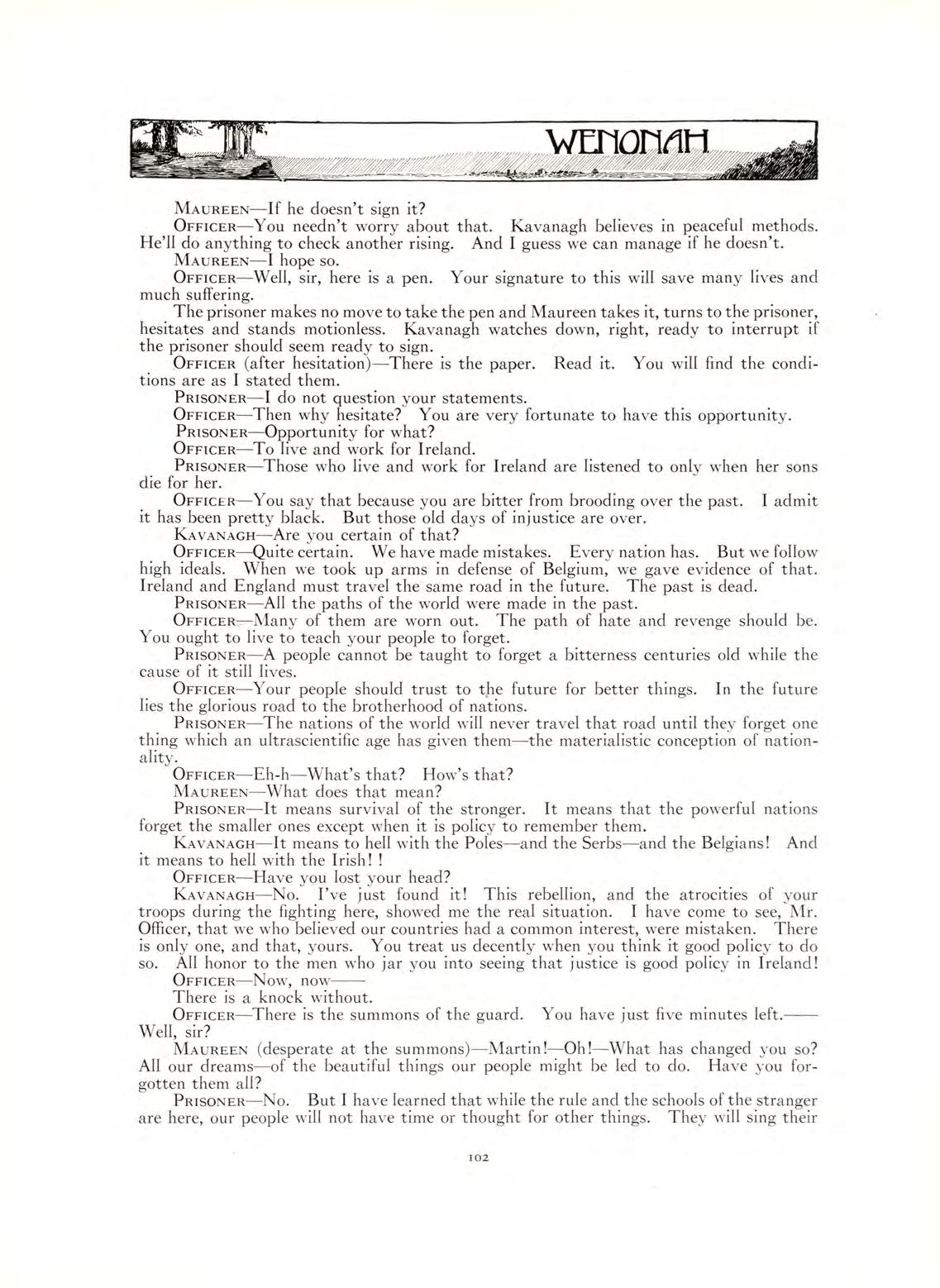
Officer—Now, now
There is a knock without.
Officer—There is the summons of the guard. You have just five minutes left. Well, sir?
AIaureen (desperate at the summons)—Martin!—Oh!—What has changed you so? All our dreams—of the beautiful things our people might be led to do. Have you forgotten them all?
Prisoner—No. But I have learned that whilethe rule and the schools of the stranger are here, our people will not have time or thought for other things. They will sing their
102
songs and tell their stories when they are free—not before. Liberty must come first.
Maureen—But how can you help any by dying?
Officer—It’s madness.
Prisoner—We die that the big nations may remember us along with Belgium and the others. Our wrong is so old they have been growing used to it. We die—lest they forget.
Maureen—Why didn’t you tell me about this before—Oh!—You were afraid I wouldn’t see.
Prisoner—There are many who do not see.
Maureen—It can’t be right that men should die because of it.
Prisoner—Christ died to make people see.
Maureen (slowly)—Now I see.
Drops pen and sinks onto bench. As she does so bell begins tolling five. Prisoner crosses, lifts her, and leads her to his mother, leaves there and walks off left, pausing a moment to look intently at Kavanagh. Officer follows prisoner out the door. Kavanagh walks to door and looks out.
Kavanagh—It is light on the high places.
CURTAIN.
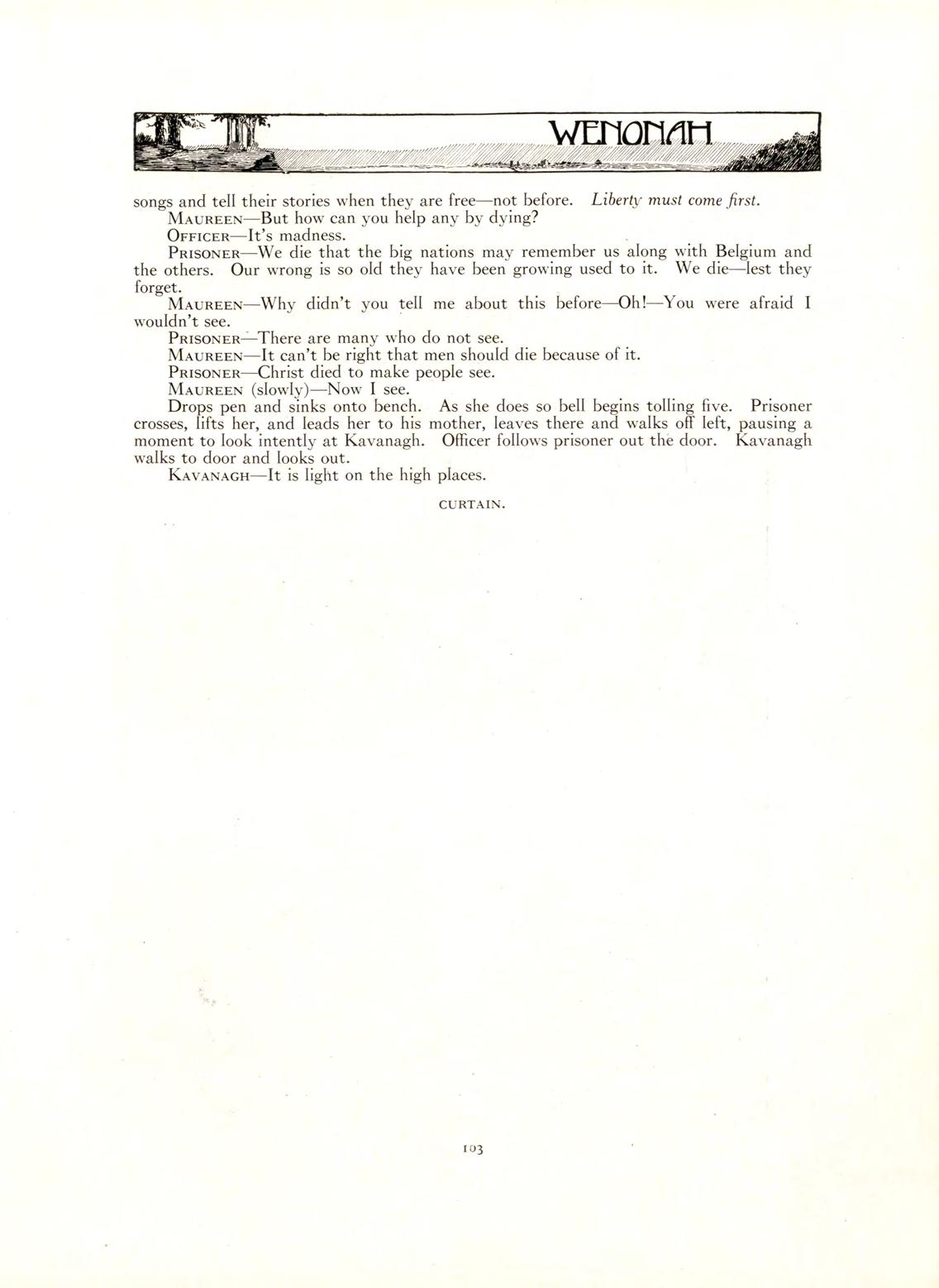
103
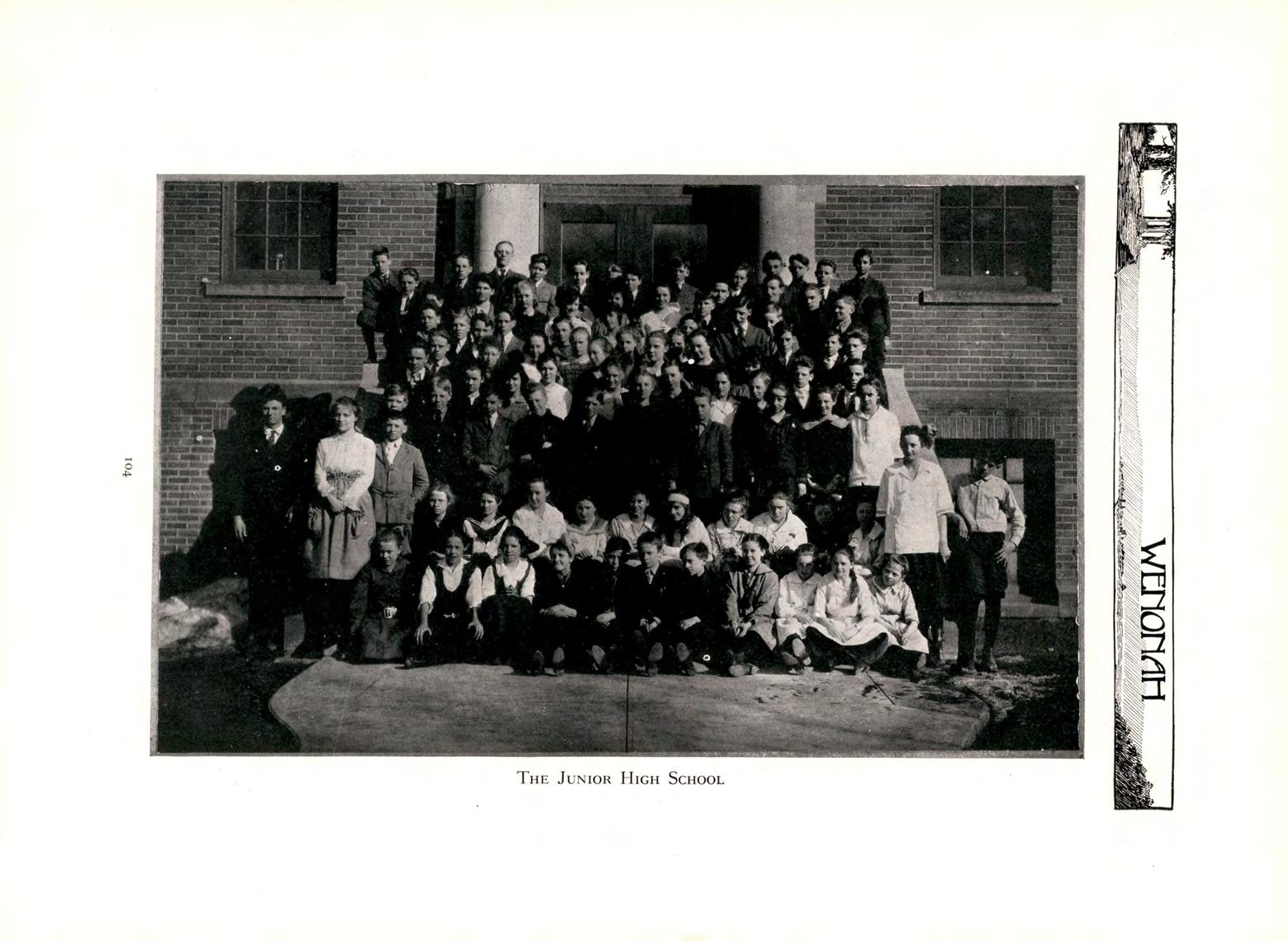
foi
The Training School
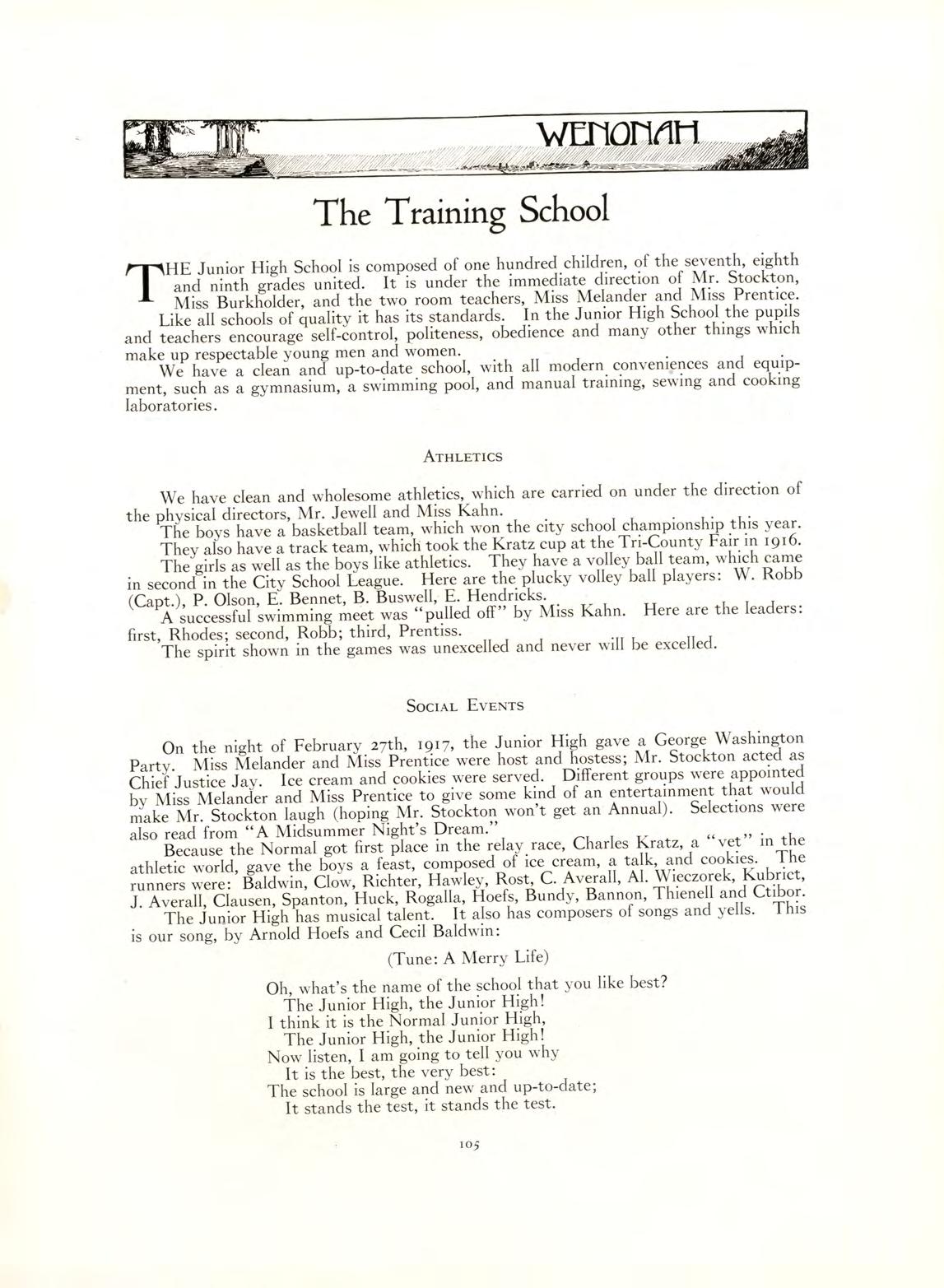
The Junior High School is composed of one hundred children, of the seventh, eighth and ninth grades united. It is under the immediate direction of Mr. Stockton, Miss Burkholder, and the two room teachers. Miss Melander and Miss Prentice.
Like all schools of quality it has its standards. In the Junior High School the pupils and teachers encourage self-control, politeness, obedience and many other things which make up respectable young men and women.
We have a clean and up-to-date school, with all modern conveniences and equipment, such as a gymnasium, a swimming pool, and manual training, sewing and cooking laboratories.
Athletics
We have clean and wholesome athletics, which are carried on under the direction of the physical directors, Mr. Jewell and Miss Kahn.
The boys have a basketball team, which won the city school championship this year.
They also have a track team, which took the Kratz cup at the Tri-County Fair in 1916. The girls as well as the boys like athletics. They have a volley ball team, which came in second in the City School League. Here are the plucky volley ball players; W. Robb (Capt.), P. Olson, E. Bennet, B. Buswell, E. Hendricks. A successful swimming meet was “pulled off” by Miss Kahn. Here are the leaders: first, Rhodes; second, Robb; third, Prentiss. The spirit shown in the games was unexcelled and never will be excelled.
Social Events
On the night of February 27th, 1917, the Junior High gave a George Washington Party. Miss Melander and Miss Prentice were host and hostess; Mr. Stockton acted as Chief Justice Jay. Ice cream and cookies were served. Different groups were appointed by Miss Melander and Miss Prentice to give some kind of an entertainment that would make Mr. Stockton laugh (hoping Mr. Stockton won’t get an Annual). Selections were also read from “A Midsummer Night’s Dream.”
Because the Normal got first place in the relay race, Charles Kratz, a “vet” in the athletic world, gave the boys a feast, composed of ice cream, a talk, and cookies. The runners were: Baldwin, Clow, Richter, Hawley, Rost, C. Averall, Al. Wieczorek, Kubrict, J. Averall, Clausen, Spanton, Huck, Rogalla, Hoefs, Bundy, Bannon, Thienell and Ctibor.
The Junior High has musical talent. It also has composers of songs and yells. This is our song, by Arnold Hoefs and Cecil Baldwin: (Tune: A Merry Life)
Oh, what’s the name of the school that you like best? The Junior High, the Junior High! I think it is the Normal Junior High, The Junior High, the Junior High! Now listen, I am going to tell you why It is the best, the very best; The school is large and new and up-to-date; It stands the test, it stands the test.
105
Chorus:
Normal,Normal, hats off to you! Normal, Normal, hats off to you! For you’re the best, the best, the best. For you’re the best, the best, the best! Three cheers for the Normal, For you do beat the rest.
Second Chorus:
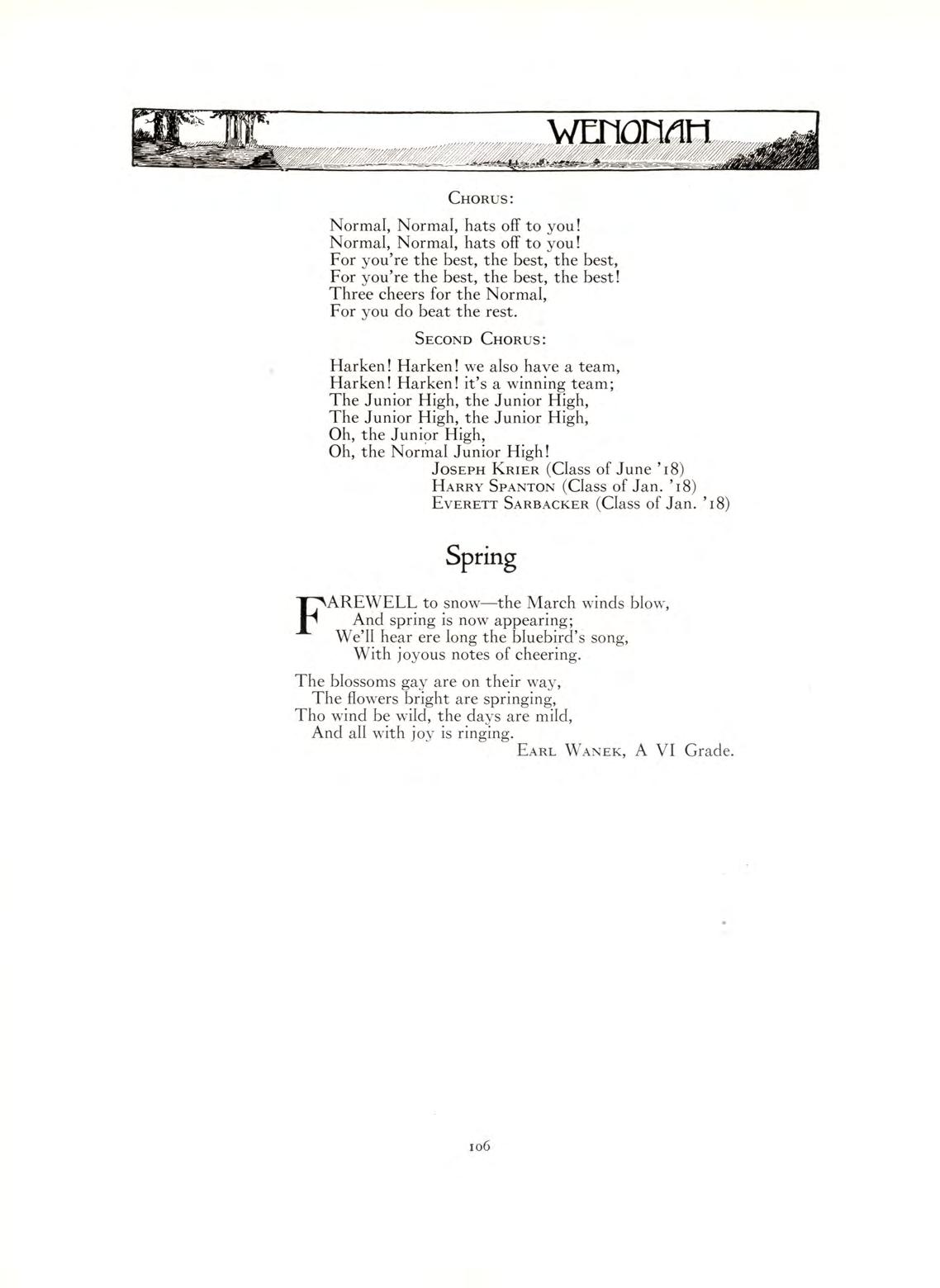
Harken! Harken! we also have a team. Harken! Harken! it’s a winning team; The Junior High, the Junior High, The Junior High, the Junior High, Oh, the Junior High, Oh, the Normal Junior High!
Joseph Krier (Class of June ’i8)
Harry Spanton (Class of Jan. ’i8)
Everett Sarbacker (Class of Jan. ’i8)
Farewell to snow—the March winds blow. And spring is now appearing; We’II hear ere long the bluebird’s song. With joyous notes of cheering. The blossoms gay are on their way. The flowers bright are springing, Tho wind be wild, the days are mild. And all with joy is ringing.
Earl Wanek, A VI Grade.
io6

107
The Training School
Lilies
AHARPER, in the burning Eastern land, Who leaves his vale, to cross the desert dry. Seeks lilies in the water courses nigh. And winds his harp strings with a careful hand. Thus they endure when noontide’s fierce command Makes all the air to quiver low and high Between the ruthless arch of sapphire sky. And hekted waste of honey-colored sand. O Brother! thou who journeyest to God, Be wise to gather lilies when thy way Shall dip to vales by living waters crossed; Lest when the desert’s weary length is trod. The silver strings shall snap, and thou shalt pray In vainfor chords which are forever lost.
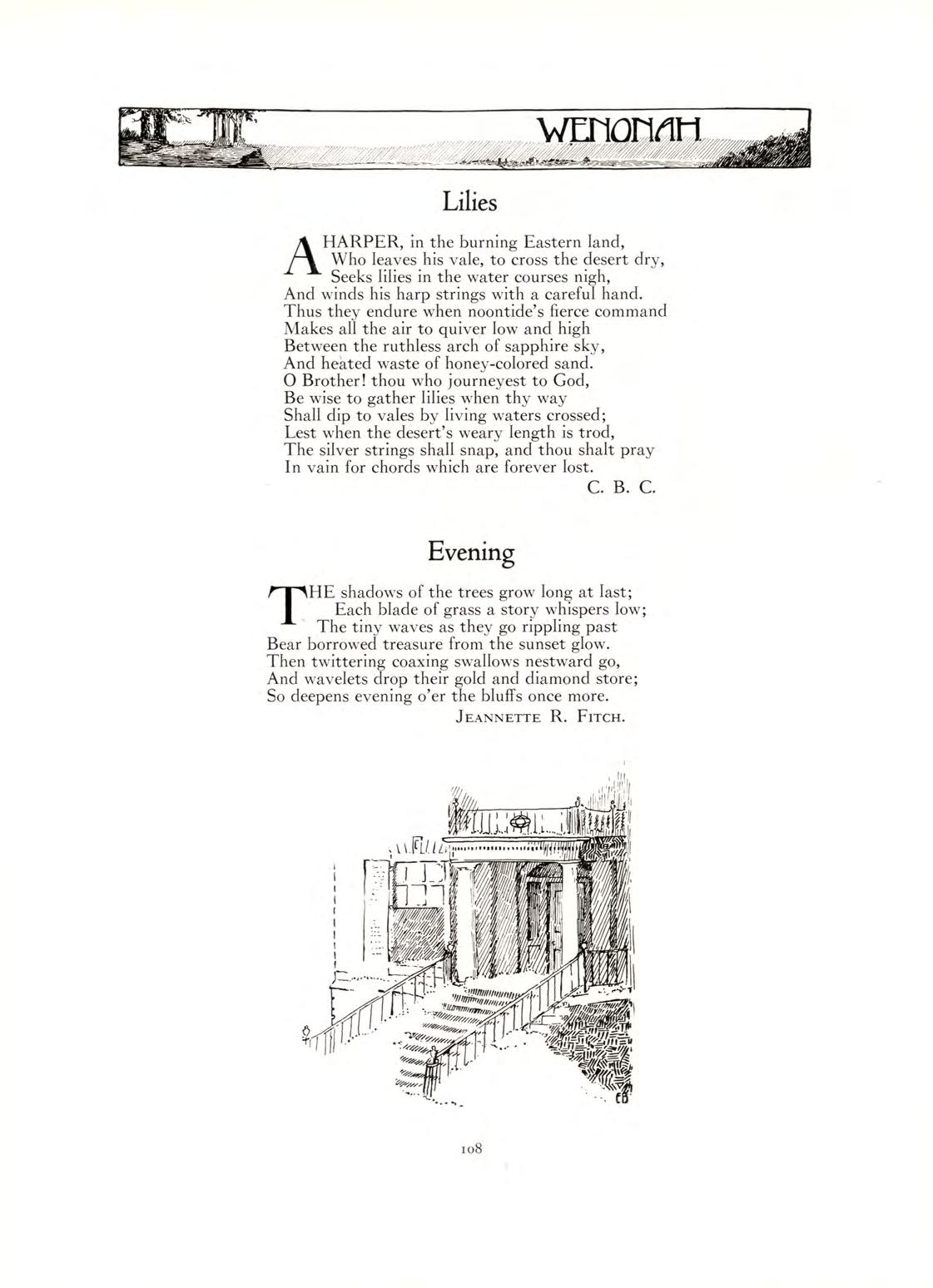 C. B. C.
C. B. C.
Evening
The shadows of the trees grow long at last; Each blade of grass a story whispers low; The tiny waves as they go rippling past Bear borrowed treasure fromthe sunset glow. Then twittering coaxing swallows nestward go. And wavelets drop their gold and diamond store; So deepens evening o’er the bluffs once more.
Jeannette R. Eitch.
io8
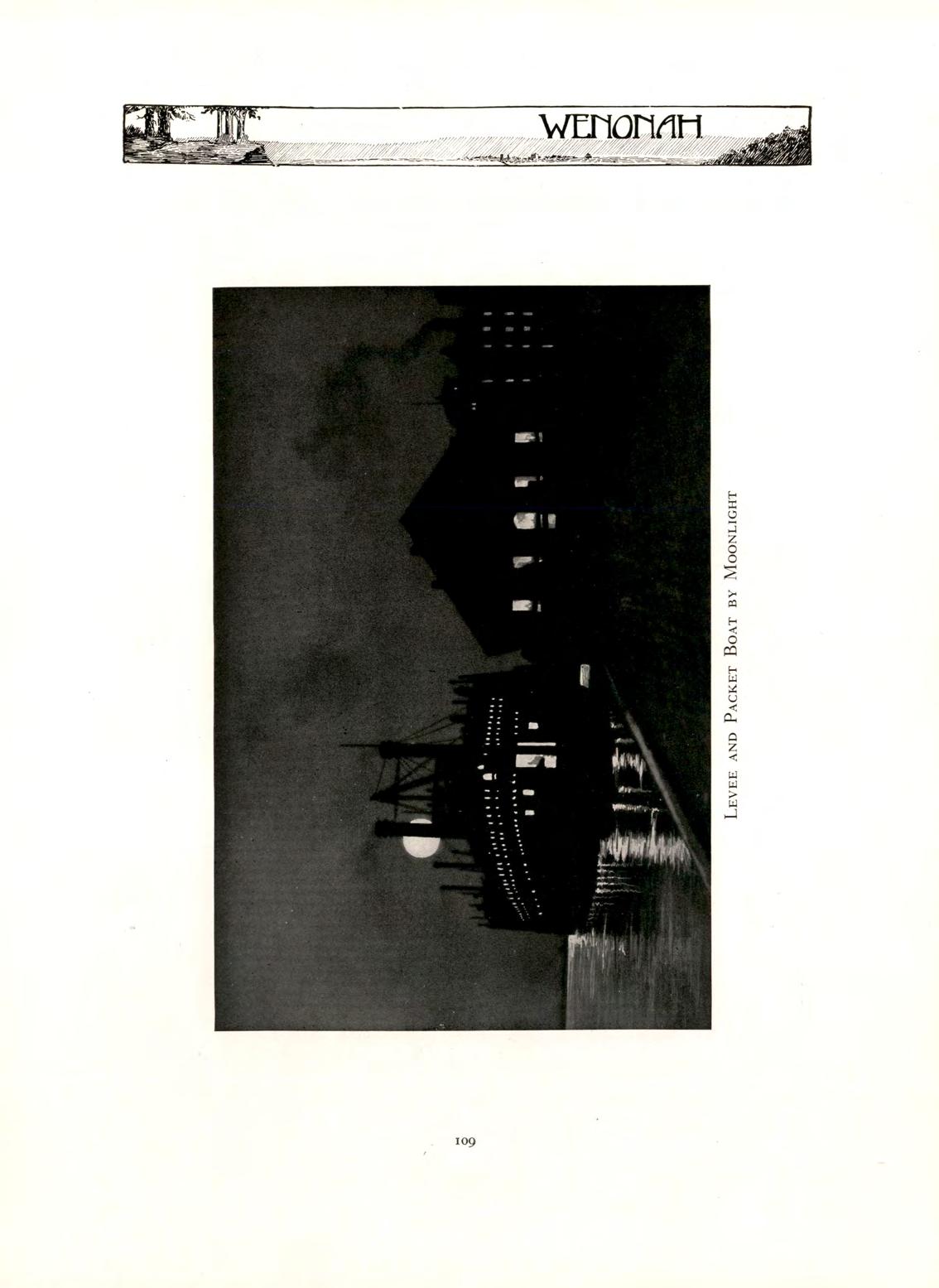
109
Levee and Packet Boat by Moonlight
Alumni Adventures Schpydoody
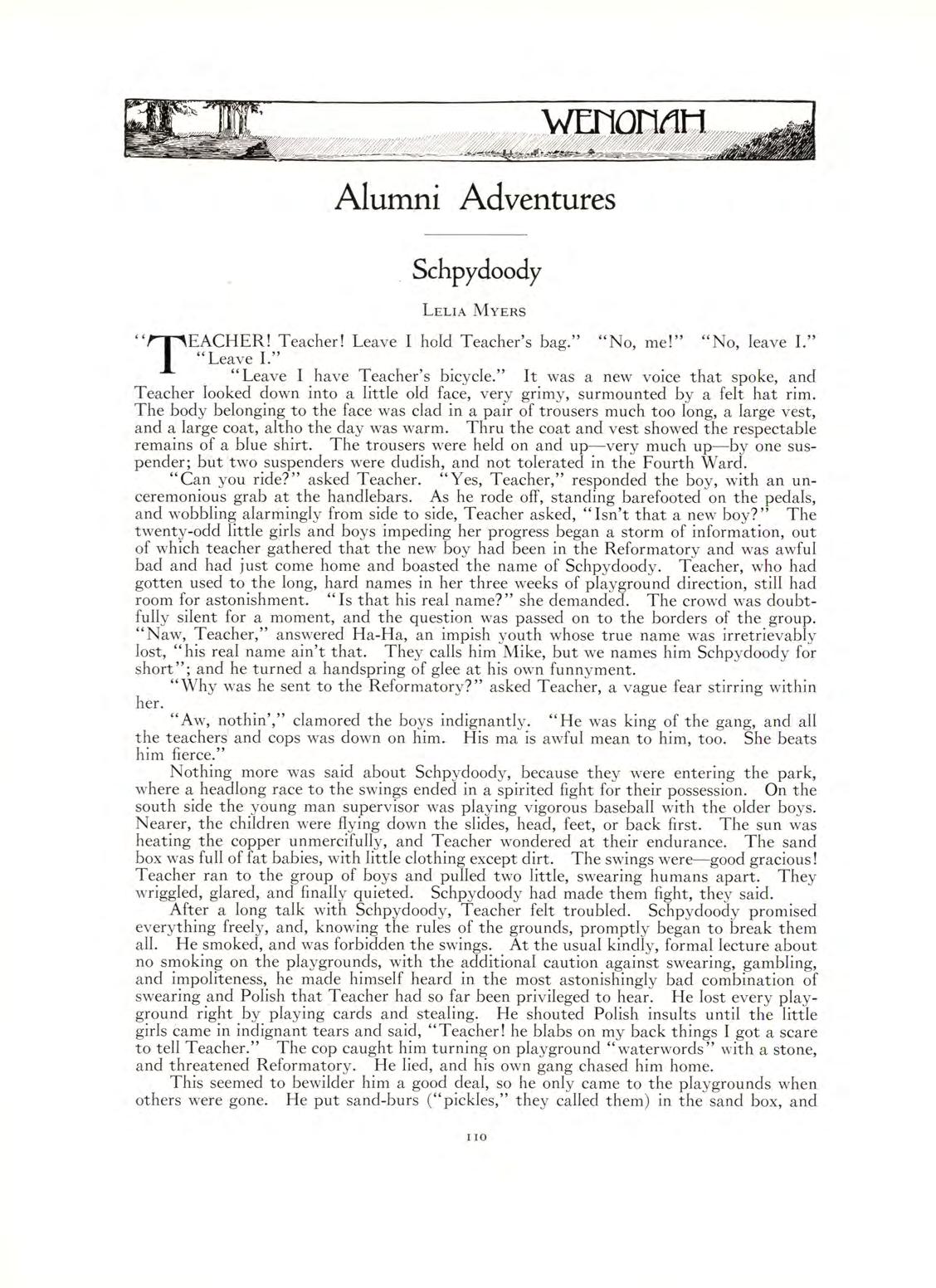 Lelia Myers
Lelia Myers
iEACHER! Teacher! Leave I hold Teacher’s bag.” “No, me!” “No, leave I.” “Leave 1.”
“Leave I have Teacher’s bicycle.” It was a new voice that spoke, and Teacher looked down into a little old face, very grimy, surmounted by a felt hat rim. The body belonging to the face was clad in a pair of trousers much too long, a large vest, and a large coat, altho the day was warm. Thru the coat and vest showed the respectable remains of a blue shirt. The trousers were held on and up—very much up—by one suspender; but two suspenders were dudish, and not tolerated in the Eourth Ward.
“Can you ride?” asked Teacher. “Yes, Teacher,” responded the boy, with an unceremonious grab at the handlebars. As he rode off, standing barefooted on the pedals, and wobbling alarmingly from side to side. Teacher asked, “Isn’t that a new boy?” The twenty-odd little girls and boys impeding her progress began a storm of information, out of which teacher gathered that the new boy had been in the Reformatory and was awful bad andhad just come home and boasted the name of Schpydoody. Teacher, who had gotten used to the long, hard names in her three weeks of playground direction, still had room for astonishment. “Is that his real name?” she demanded. The crowd was doubtfully silent for a moment, and the question was passed on to the borders of the group. “Naw, Teacher,” answered Ha-Ha, an impish youth whose true name was irretrievably lost, “his real name ain’t that. They calls him Mike, but wenames him Schpydoody for short”; and he turned a handspring of glee at his own funnyment.
“Why was he sent to the Reformatory?” asked Teacher, a vague fear stirring within her.
“Aw, nothin’,” clamored the boys indignantly. “He was king of the gang, and all the teachers and cops was down on him. His ma is awful mean to him, too. She beats him fierce.”
Nothing more was said about Schpydoody, because they were entering the park, where a headlong race to the swings ended in a spirited fight for their possession. On the south side the young man supervisor was playing vigorous baseball with the older boys. Nearer, the children were flying down the slides, head, feet, or back first. The sun was heating the copper unmercifully, and Teacher wondered at their endurance. The sand box was full of Fat babies, with little clothing except dirt. The swings were—good gracious! Teacher ran to the group of boys and pulled two little, swearing humans apart. They wriggled, glared, and finally quieted. Schpydoody had made them fight,they said.
After a long talk with Schpydoody, Teacher felt troubled. Schpydoody promised everything freely, and, knowing the rules of the grounds, promptly began to break them all. He smoked, and was forbidden the swings. At the usual kindly, formal lecture about no smoking on the playgrounds, with the additional caution against swearing, gambling, and impoliteness, he made himself heard in the most astonishingly bad combination of swearing and Polish that Teacher had so far been privileged to hear. He lost every playground right byplaying cards and stealing. He shouted Polish insults until the little girls came in indignant tears and said, “Teacher! he blabs on my back things I got a scare to tell Teacher.” The cop caught him turning on playground “waterwords” with a stone, and threatened Reformatory. He lied, and his own gang chased him home.
This seemed to bewilder him a good deal, so he only came to the playgrounds when others were gone. He put sand-burs (“pickles,” they called them) in the sand box, and
I 10
sand on the slides. Then, one day, Teacher caught him hard at work with his jackknife on the ropes of the swings. She seized his shoulders firmly.
“Schpydoody, I’m going to tell your mother to keep you at home.” Then she stopped in wonder. For Schpydoody was abjectly terrified.
“Teacher, I stay away!” he cried, and jerked from her grasp to speed home.
For two days peace reigned supreme. On the evening of the third a woman was seen coming across the playgrounds. By her side slunk Schpydoody, propelled unwillingly by the left ear. As usual, half thechildren on the playground gathered around Teacher, and spoiled the little dance she was directing.
“Teacher! Teacher! Here’s Schpydoody’s ma!” “She’s awful fierce, teacher,” volunteered Elka, Ha-Ha, Antiny and Pig, in awed voices.
“Go on playing. Don’t stare at her so,” remarked Teacher, knowing, however, that such advice was all in vain. Advancing to meet the woman, she was surprised at the mildness of the large face. There were frown wrinkles, to be sure, and one eye looked up and the other out in a disconcerting manner. But she wasn’t so very terrible, was Teacher’s mental comment. Teacher held out her hand in greeting, and the woman dexterously took Schpydoody’s ear with her other hand as she proffered her big, hard right and shook hands feebly.
“How do you do?” asked Teacher, wishing Pardner were not so busy with the young men on the other park. She did not know what to say next, but Schpydoody’s mother took the matter out of her hands.
“You Teacher? Why, you ain’t so old,” she began with a friendly smile. Teacher glanced quickly about to see if she could be talking to someone else. It did not look as if either eye were directed toward her. But the woman went on in a big voice, “My Mikey is such a liar I don’t know when he comes home and says he got a tennis ball off Joey Blanick if it’s just another lie. Next day he tells how you stands by the park and gives him a baseball bat for bein’ so good. Give ’em up, Mikey. I don’t like he should have them things. All times the fellers fights himfer them, and he stays home. They hollers he stole ’em, so I licks him a couple of times fer luck, and he says he’ll give ’em back. Youse kin lick him all youse likes. He’s a young devil, and I gotta beat ’im all the time. Say how do, Mike,” she finished, hitting him a resounding whack on the head.
He obeyed, and dodged over into the deeper grass. His mother departed, smiling at Teacher’s assurance that Schpydoody could stay as long as he obeyed the rules. The whistle blew for closing up, and in the ensuing bustle of collecting and putting away material, Schpydoody was lost sight of. But just as Teacher mounted her wheel a small voice said:
“Teacher! Here’s apples,” and a grimy fist with four little hard green apples shot out toward Teacher’s bag. As she accepted them she smiled at him, and smiling back he announced proudly: “Teacher coming tomorrow? I knows where I can swipe some more.”
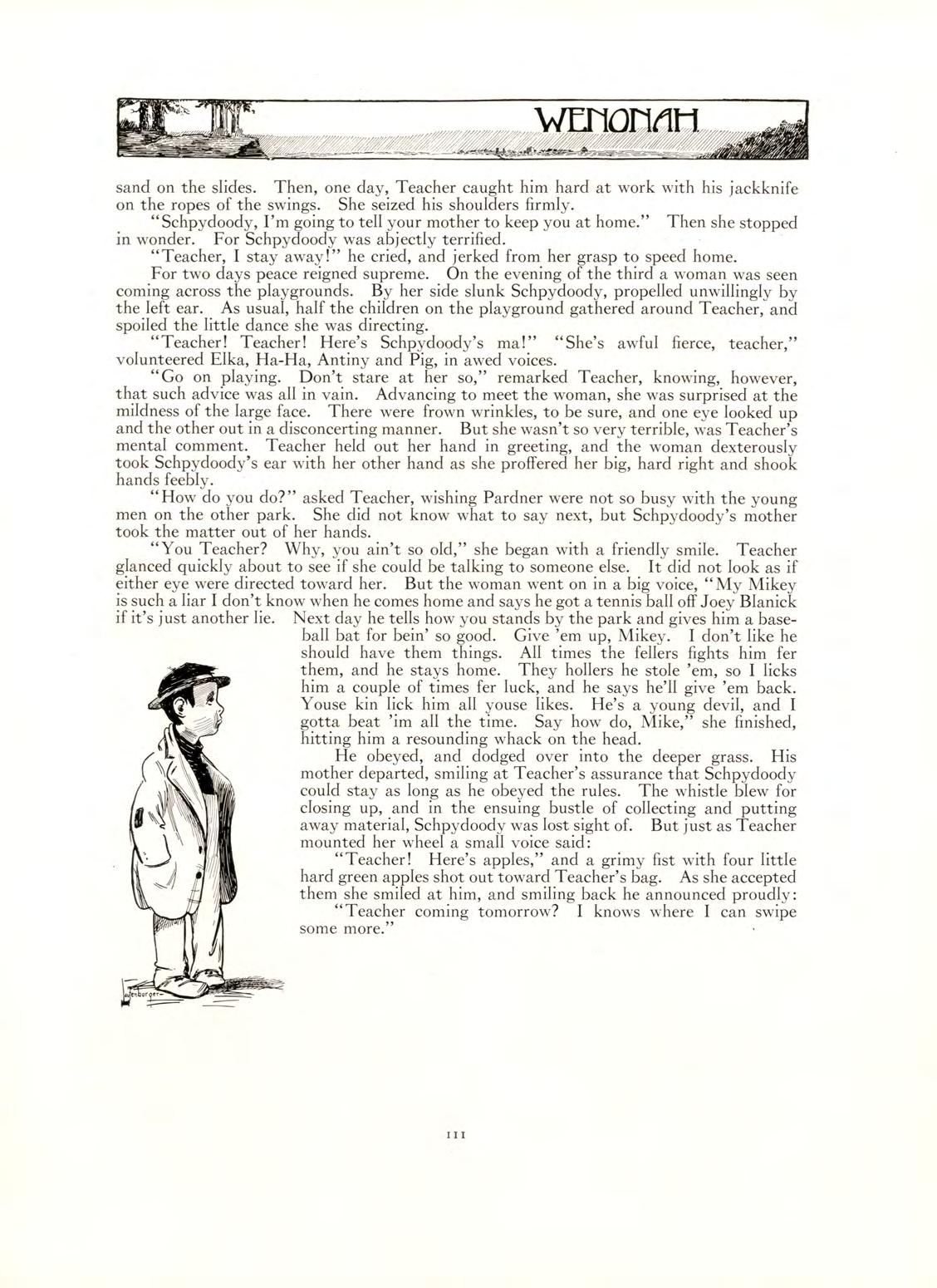
111
Alumni Letters
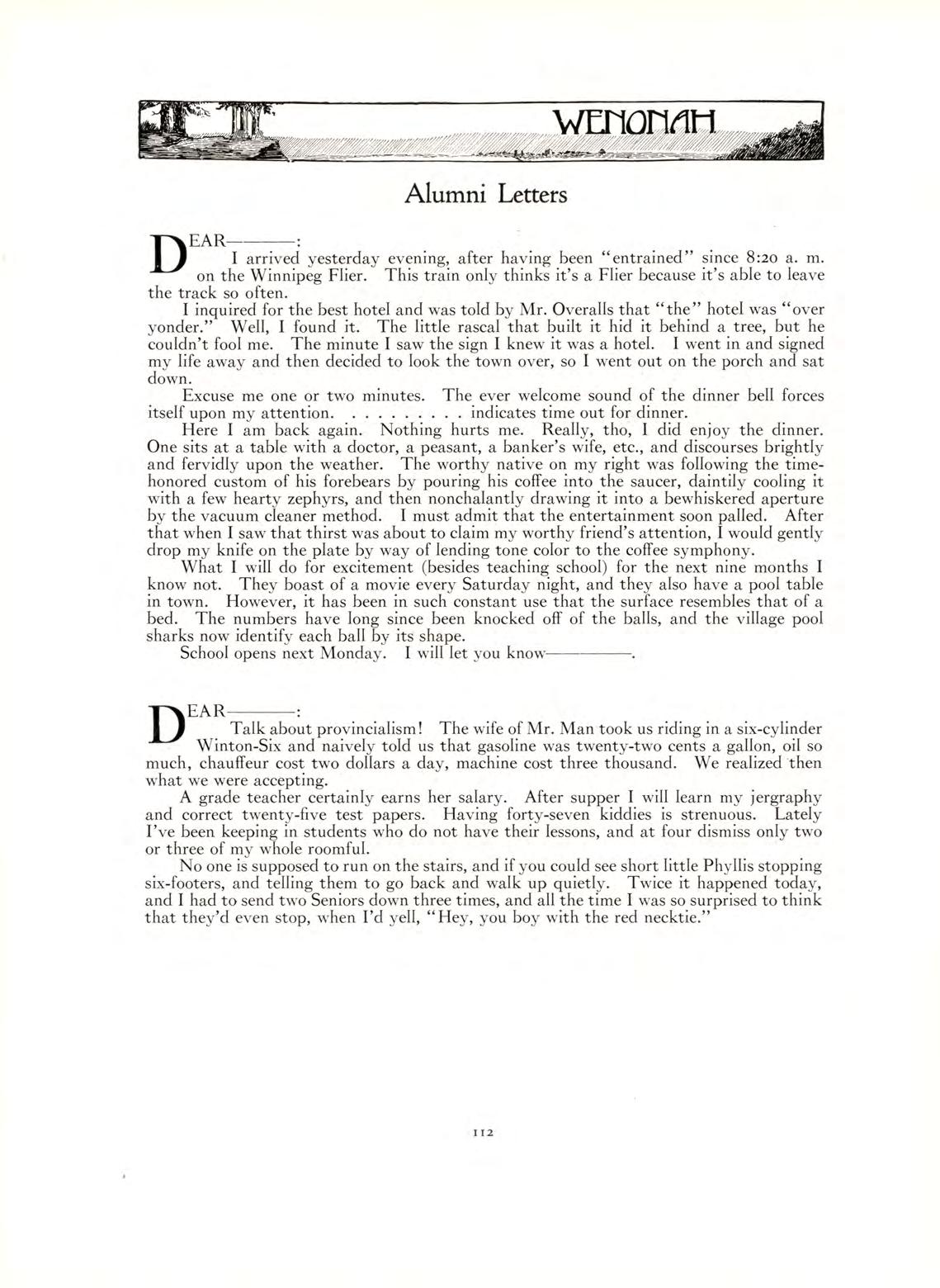
Dear ^—: I arrived yesterday evening, after having been “entrained” since 8:20 a. m. on the Winnipeg Flier. This train only thinks it’s a Flier because it’s able to leave the track so often.
I inquired for the best hotel and was told by Mr. Overalls that “the” hotel was “over yonder.” Well, I found it. The little rascal that built it hid it behind a tree, but he couldn’t fool me. The minute I saw the sign I knew it was a hotel. I went in and signed my life away and then decided to look the town over, so I went out on the porch and sat down.
Excuse me one or two minutes. The ever welcomesound of thedinnerbell forces itself upon my attention indicates time out for dinner.
Here I am back again. Nothing hurts me. Really, tho, I did enjoy the dinner. One sits at a table with a doctor, a peasant, a banker’s wife, etc., and discourses brightly and fervidly upon the weather. The worthy native on my right was following the timehonored custom of his forebears by pouring his coffee into the saucer, daintily cooling it with a few hearty zephyrs, and then nonchalantly drawing it into a bewhiskered aperture by the vacuum cleaner method. I must admit that the entertainment soon palled. After that when I saw that thirst was about to claim my worthy friend’s attention, I would gently drop my knife on the plate by way of lending tone color to the coffee symphony.
what I will do for excitement (besides teaching school) for the next nine months I know not. They boast of a movie every Saturday night, and they also have a pool table in town. However, it has been in such constant use that the surface resembles that of a bed. The numbers have long since been knocked off of the balls, and the village pool sharks now identify each ball by its shape.
School opens next Monday. I will let you know
Dear : Talk about provincialism! The wife of Mr. Man took us riding in a six-cylinder Winton-Six and naively told us that gasoline was twenty-two cents a gallon, oil so much, chauffeur cost two dollars a day, machine cost three thousand. We realized then what we were accepting.
A grade teacher certainly earns her salary. After supper I will learn my jergraphy and correct twenty-five test papers. Having forty-seven kiddies is strenuous. Lately I’ve been keeping in students who do not have their lessons, and at four dismiss only two or three of my whole roomful.
No one is supposed to run on the stairs, and if you could see short little Phyllis stopping six-footers, and telling them to go back and walk up quietly. Twice it happened today, and I had to send two Seniors down three times, and all the time I was so surprised to think that they’d even stop, when I’d yell, “Hey, you boy with the red necktie.”
112
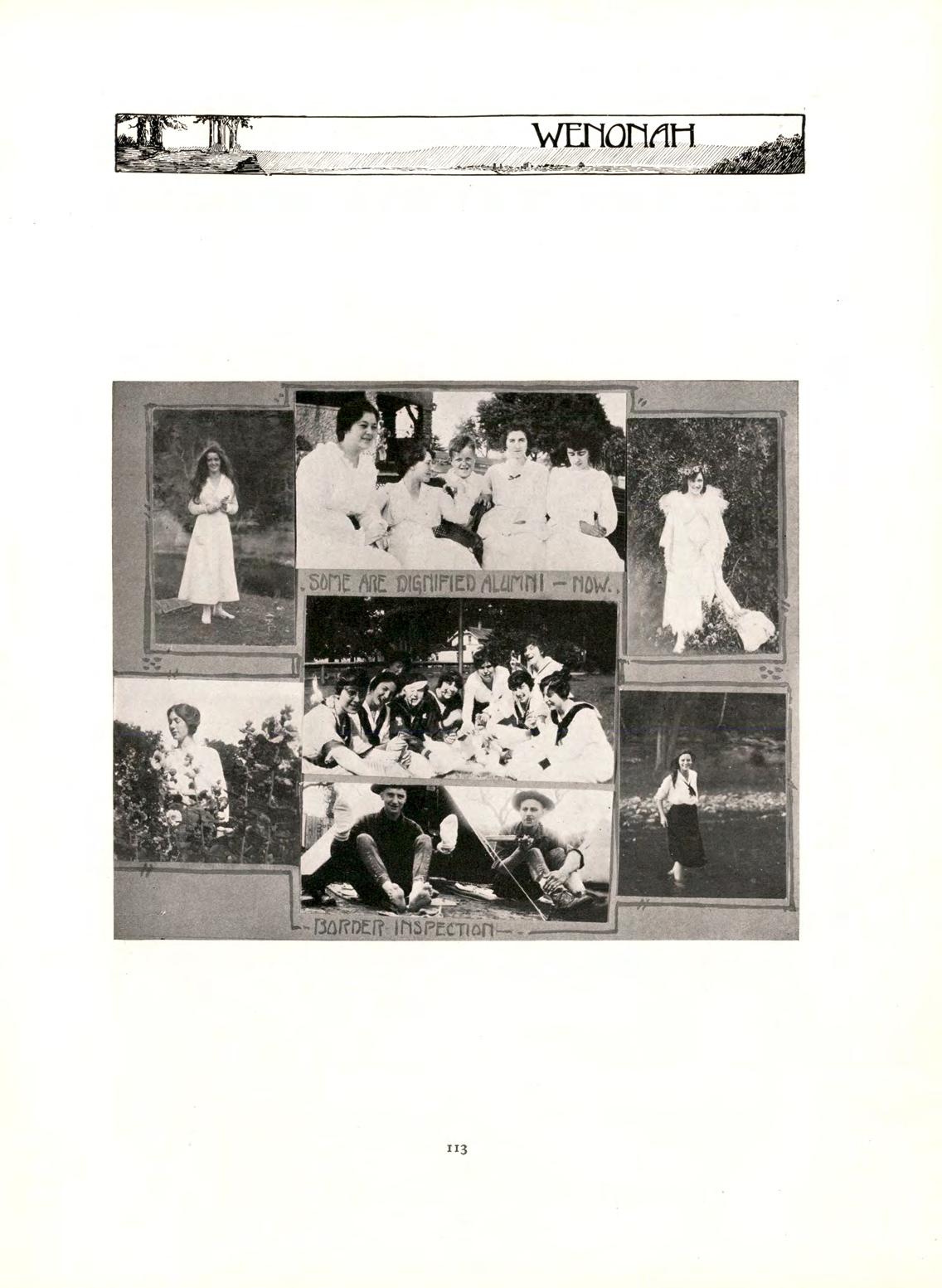
II3
Our Teachers
WHO is this cold and haughty gent Who teaches History HI, Who, when we try to air our views. Will smile sarcastically. As tho to say from lofty heights Of knowledge reached by few, “What foolishness you speak, poor child; Now who’s been kidding you?”
Who is this little dumpling who eomes briskly down the aisle With an air of I don’t know you,” but an unexpeeted smile, Who teaches mathematies, but loves grand opera more. Who talks to us of music, and tells us of Tagore, Whose well known absentmindedness is her most striking trait? Of eourse you’ve guessed it is Miss Sprague, who’s better known as Kate.
Who is this handsome woman who now heaves into sight. Who tells us all just how to sing, and use our voiees right. Who scolds us hard when sheis cross, but never fails to add That we’re the best in all the world, and only seldom bad; Who plays the hymns in chapel in a very sprightly way Which makes us feel quite eheerful the remainder of the day.
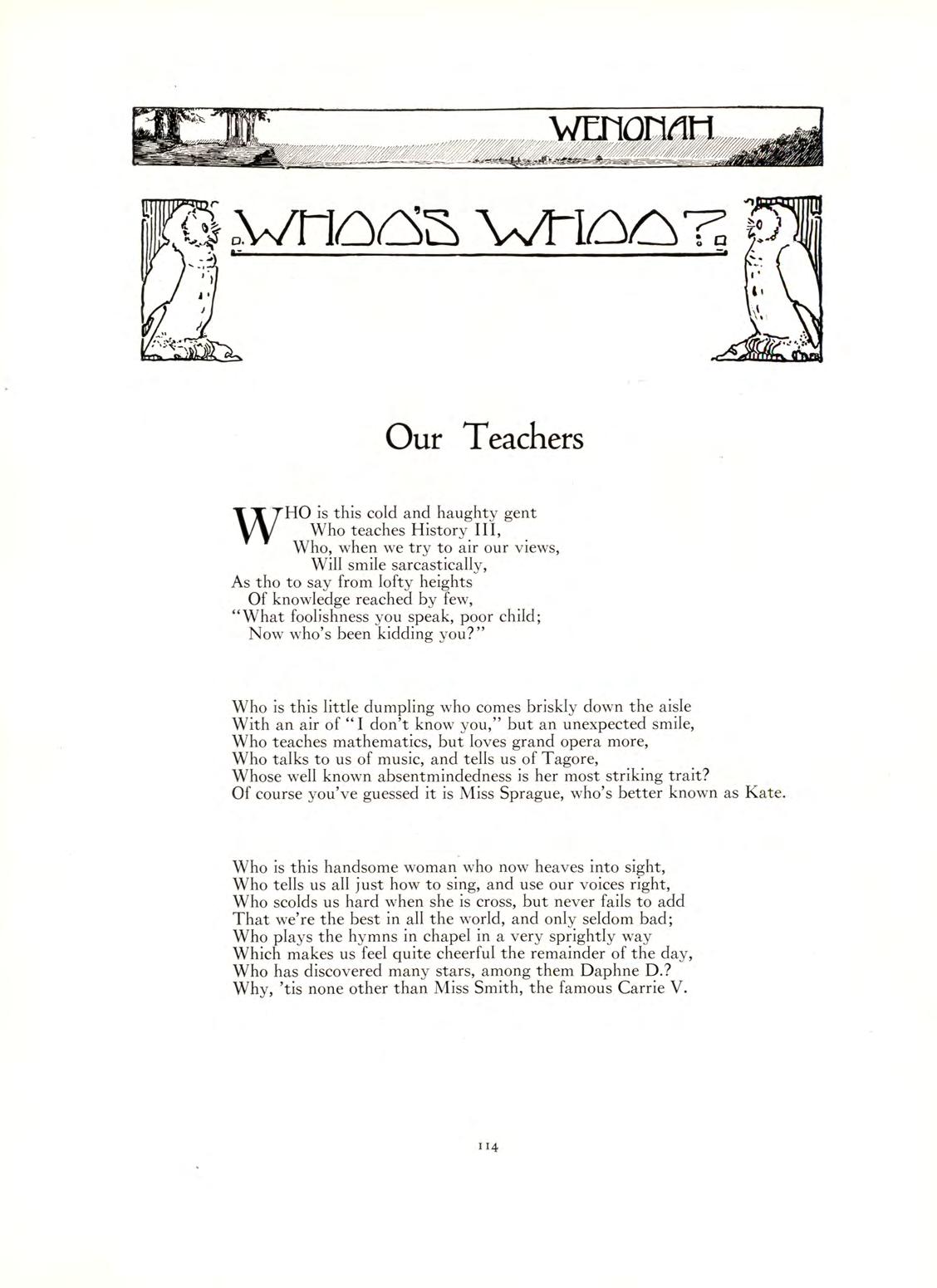
Who has discovered many stars, among them Daphne D.?
Why, ’tis none other than Miss Smith, the famous Carrie V.
114
WHO is the dimpled lady Of educated mind?
The state’s new Course of Study Is by what genius signed?
Who went to California
To get a bit of rest?
(Her thoughts about that climate Are better unexpressed) ; Whose temper’s most explosive, Whose thoughts are most profound, Who keeps this Normal running— Miss Gildy, I’ll be bound!
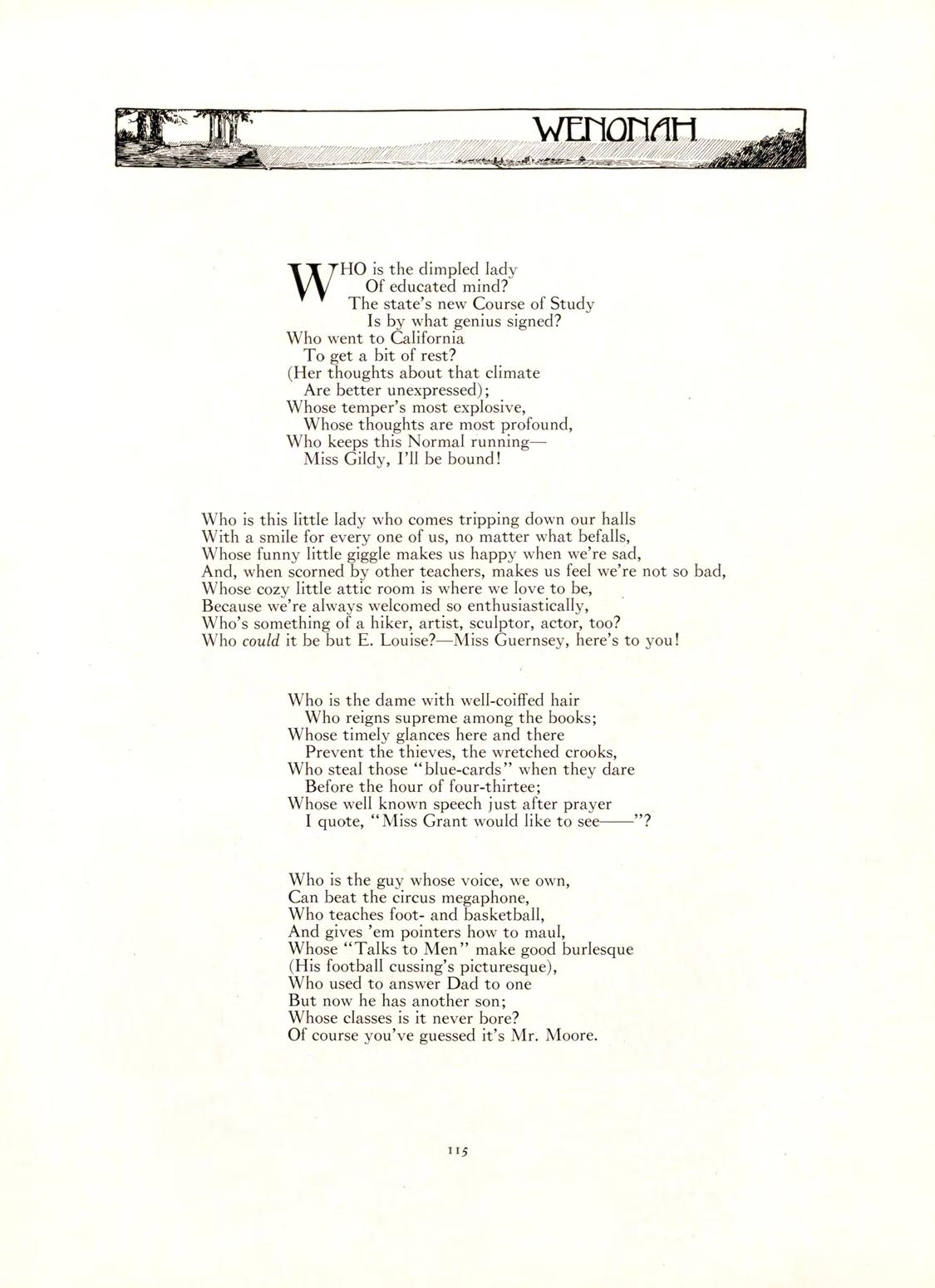
Who is this little lady who comes tripping down our halls With a smile for every one of us, no matter what befalls. Whose funny little giggle makes us happy when we’re sad. And, when scorned by other teachers, makes us feel we’re not so bad. Whose cozy little attic room is where we love to be. Because we’re always welcomed so enthusiastically. Who’s something of a hiker, artist, sculptor, actor, too? Who could it be but E. Louise?—Miss Guernsey, here’s to you!
Who is the dame with well-coiffed hair
Who reigns supreme among the books; Whose timely glances here and there Prevent the thieves, the wretched crooks. Who steal those “blue-cards” when they dare Before the hour of four-thirtee; Whose well known speech just after prayer I quote, “Miss Grant would like to see
Who is the guy whose voice, we own. Canbeat the circus megaphone. Who teaches foot- and basketball, And gives ’em pointers how to maul. Whose “Talks to Men” make good burlesque
(His football cussing’s picturesque).
Who used to answer Dad to one But now he has another son; Whose classes is it never bore?
Of course you’ve guessed it’s Mr. Moore.
115
Who is a “peach,” a “wonder,” a comrade strong and true.
Whose hair is none too curly, whose eyes are gentian blue:
Whose scoldings make us shiver, quake and tremble in a fright. But whose sudden friendly smile at us makes everything aright; Who knows just how to comfort us when we are down and out?
Who could it be but Sammy, our best beloved scout!
Who is this merry little man we see before us here.
Whose friendship every one of us will always hold most dear.
Who’s ready with a greeting when he meets you by the way.
That makes you feel your Normal life is really not so gray.
Who takes us all on hikes upon the bluffs across the lake.
And makes us climb till all the bones within our bodies ache.
Whose delightful German accent makes him different from the rest?
Why, surely. Daddy Holzinger, the comrade we love best.
Ode to Flossie
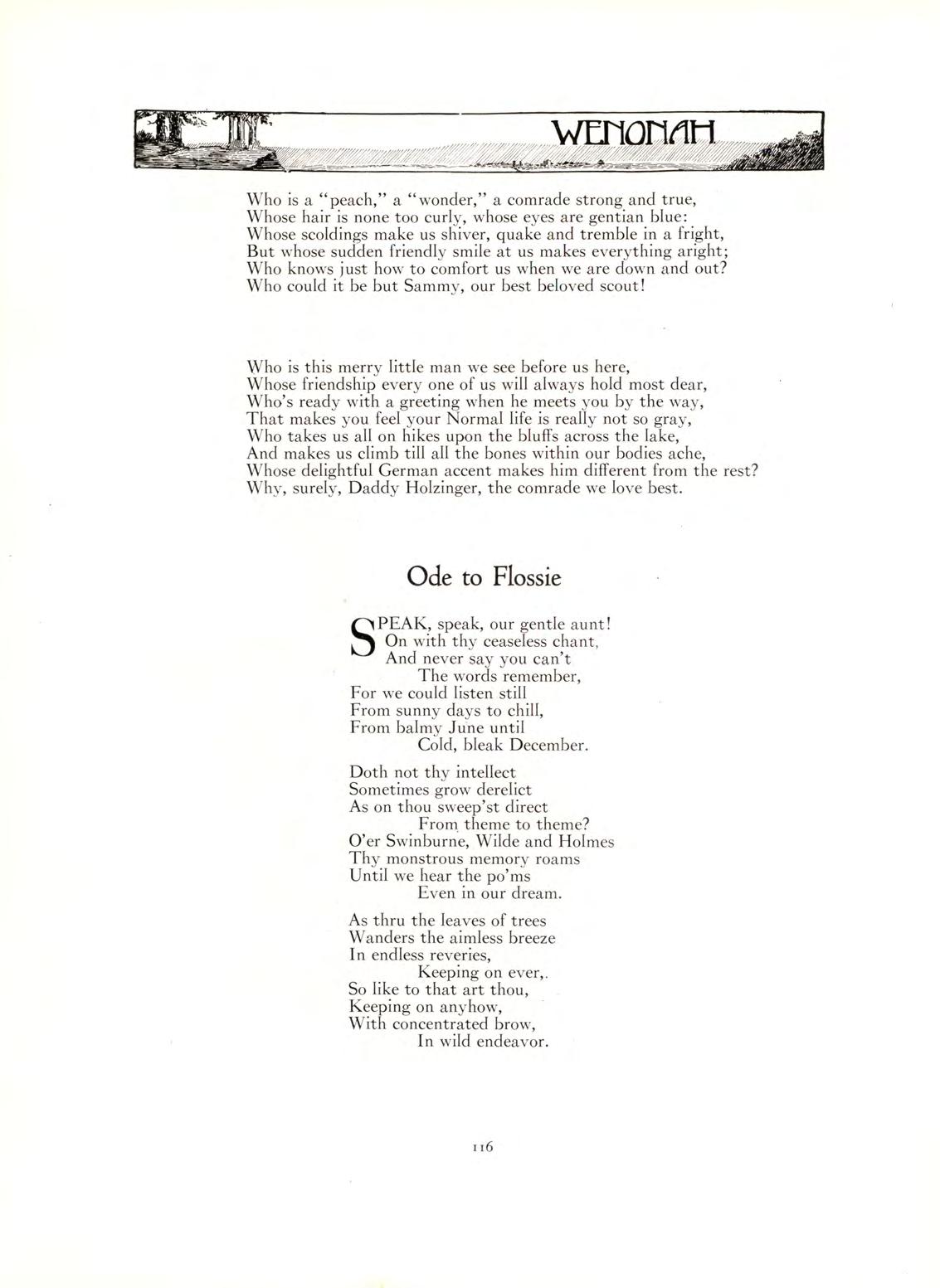
SPEAK, speak, our gentle aunt! On with thy ceaseless chant, And never say you can’t The words remember. For we could listen still From sunny days to chill. From balmy June until Cold, bleak December.
Doth not thy intellect
Sometimes grow derelict
As on thou sweep’St direct From theme to theme?
O’er Swinburne, Wilde and Holmes
Thy monstrous memory roams
Until we hear the po’ms Even in our dream.
As thru the leaves of trees
Wanders the aimless breeze In endless reveries. Keeping on ever,. So like to that art thou. Keeping on anyhow. With concentrated brow. In wild endeavor.
116

nyuokoK
Now that war has come, American women and girls everywhere are asking the question, “What can I do?” “I don’t want to stay at home and just sew. I wantto go to the front,” “I want to have a gun and shoot the Boehes,” are some of the remarks that have been heard at the Normal School. But Uncle Sam is not ready to accept women as soldiers, so we are finding other, perhaps just as necessary, things to do.
We’ve been hearing much about food shortage, and the importance of doing everything possible to prevent a duplication of the European food situation in this country. As a result there is much interest in gardening. An early morning stroller would find numbers of women students and faculty members digging and planting and hoeing. Others are organizing into groups to sew under the supervision of the local Red Cross Society. They’re planning to make pajamas, bed socks, and many accessories for invalids. About three hundred are studying First Aid with the expectation of receiving Red Cross certificates. All of this is only a start toward real war work, but it’s a long step in the right direction.
This is not a time for madly rushing off to do something spectacular, but rather for taking stoek to find out what each one of us can do when the time comes that she may be needed. We ought to get ready. We need enthusiasm and loyalty of the kind that can be translated into action when the time for action comes.
What can you do?
IINF you can keep your coinwhen all about you Are giving theirs to aid the nation’s cause;
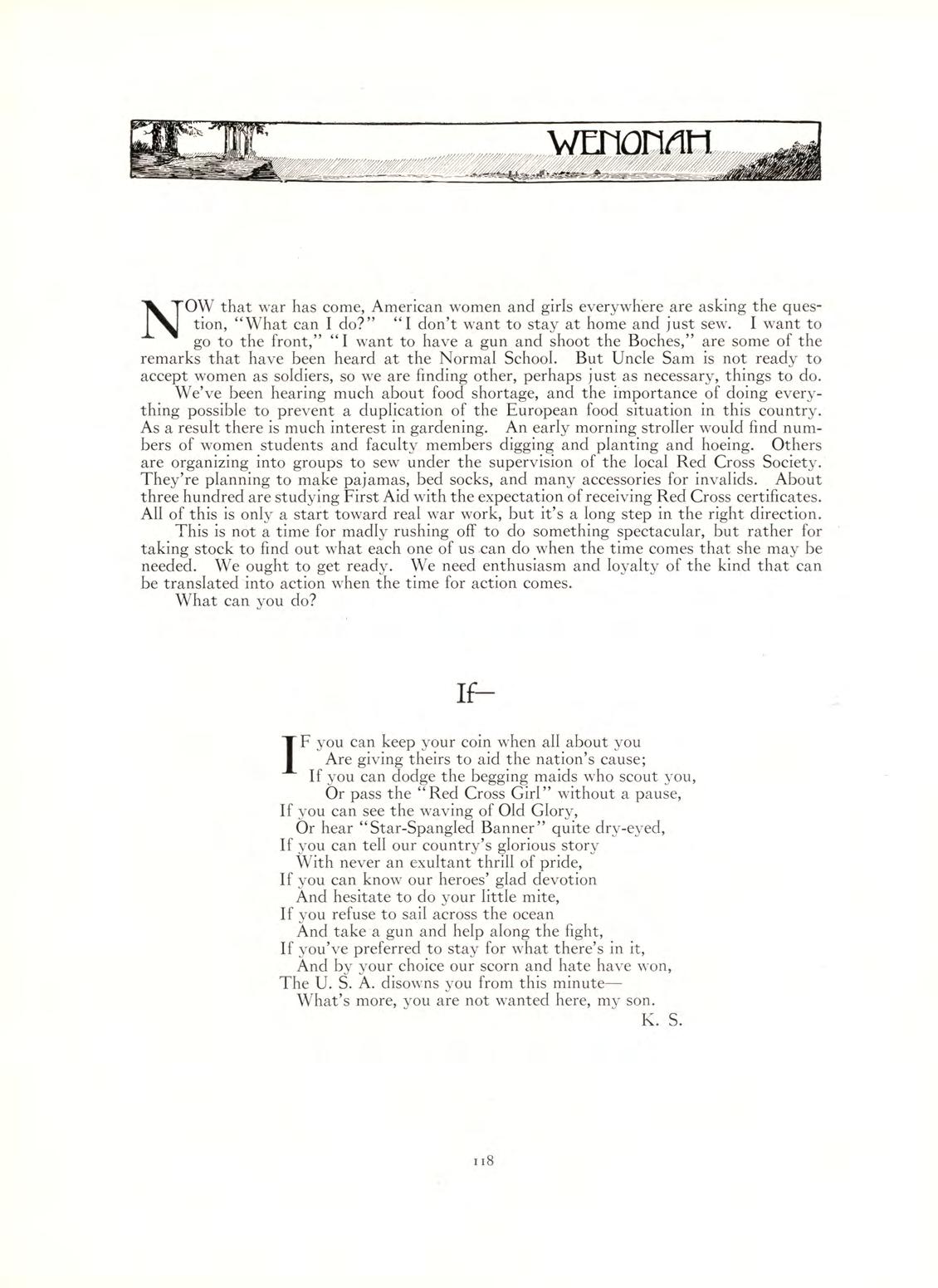
If you can dodge the begging maids who seout you. Or pass the “Red Cross Girl” without a pause.
If you ean see the waving of Old Glory, Or hear “Star-Spangled Banner” quite dry-eyed.
If you can tell our country’s glorious story
With never an exultant thrill of pride.
If you ean know our heroes’ glad devotion And hesitate to do your little mite.
If you refuse to sail across the ocean And take a gun and help along the fight.
If you’ve preferred to stay for what there’s in it. And by your choice our scorn and hate have won. The U. S. A. disowns you from this minute— What’s more, you are not wanted here, my son.
K. S.
ii8
Where Is Thy Sting?
OUR life IS a poem: we die, and our work must fail; Is it a poem, the splendid strength of a deed That we do for reward at the last, or a sure, safe creed, Or the beauty of battles we wage with a mind of greed?
(But our life is a poem: we die, and our wars must fail). Or is it a broken thing that is flung from sight As the far-flung colors of sunset herald the night— That we toss to the sky to take, to the wild winds’ flight?
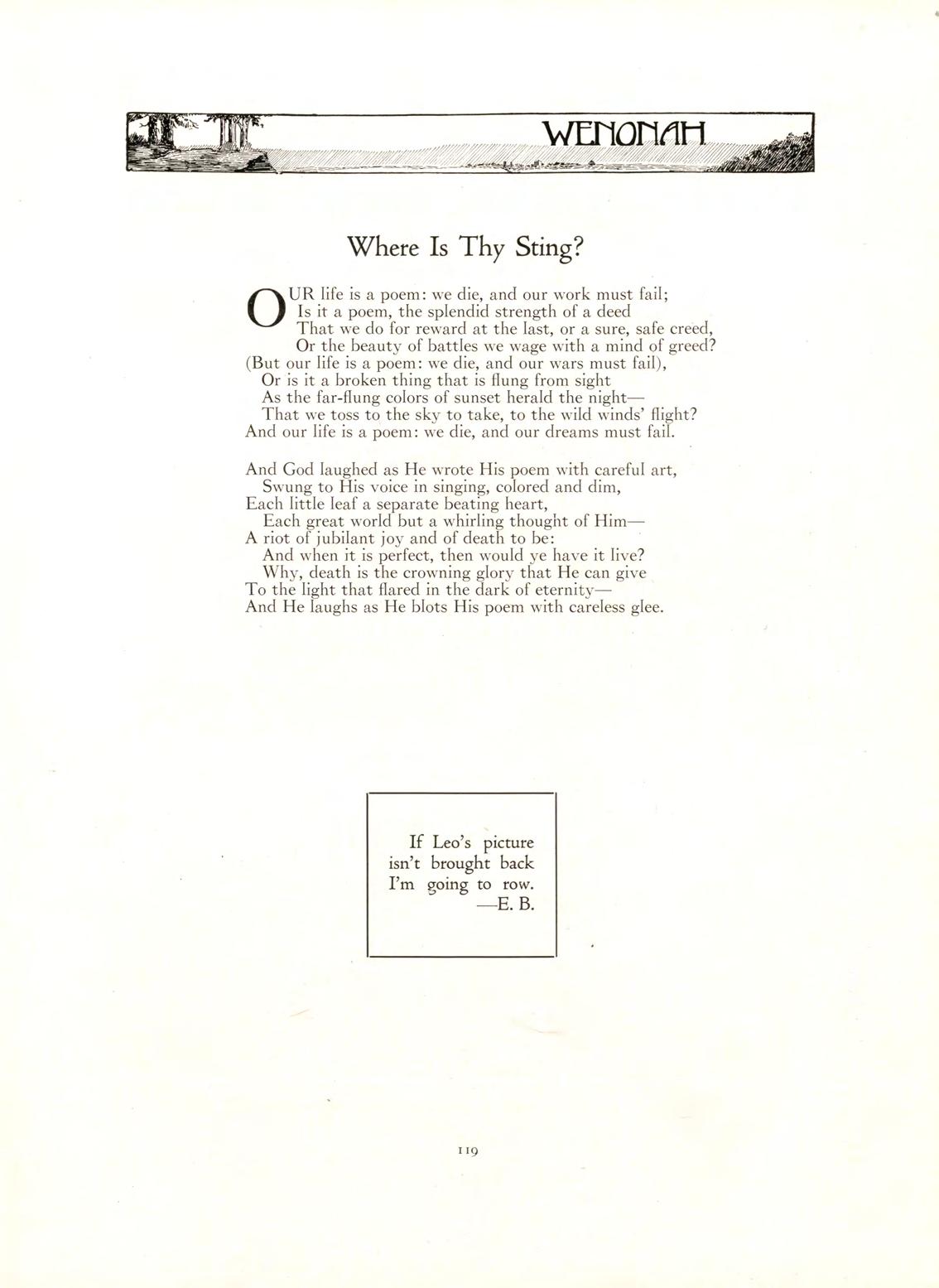
And our life is a poem: we die, and our dreams must fail.
And God laughed as He wrote His poem with careful art. Swung to His voice in singing, colored and dim. Each little leaf a separate beating heart. Each great world but a whirling thought of Him— A riot of jubilant joy and of death to be: And when it is perfect, then would ye have it live? Why, death is the crowning glory that He can give To the light that flared in the dark of eternity— And He laughs as He blots His poem with careless glee.
If Leo’s picture isn’t brought back I’m ?oing to row, —E. B.

120
September 5th. On this day a most motley assembly of young men and women arrived at this institution. Here and there stepped a gay young clover-kicker, followed closely by some pop-eyed, forlorn-looking WillyNilly who had tapped the family sock in order that he might further fill up his beanical vacuum. They passed the gauntlet of God’s elect, those dear Seniors. The expression on their faces would crack ice!
Lawn Patty at Morey Hall
ONE balmy afternoon last September the newly “arrived-at-Seniors” and the newly “arrived-at-Winona-Juniors” were entertained on the beautiful lawn of Morey Hall. This occasion was a “get acquainted” party, and to further the purpose of the party, we each pinned on our waists a slip of paper with our identifications written on it. After we had smiled at and “how do you doed” everyone, we, at least the most of us, were attracted to the tennis courts, where the world’s champion tennis players were engaged in a practice game which was very amusing. Alas! this enjoyable afternoon was intercepted by the “automatic” supper bell at Morey Hall which scattered us to the four winds of the earth.
Editor’s Note—Is the board that bad?
The Faculty Reception
ON the twenty-secondday of the ninth month of the year nineteen hundred and sixteen, a call came forth from the mighty rulers of the Temple of Learning, which is situated in the city of Winona in the land of the Normalités. The call went forth unto all the Normalité tribes that do dwell in the valley, to arise!and together with all their brethren to journey unto the house called Morey Hall, that they might feast together and make merry. And when the rulers were come unto the Temple, Guy, the son of Maxwell, and Florence, of the house of Richards, together with all the minor prophets of the Temple, did descend from their pinnacle of dignity and great was the rejoicing of the people in the merriment that did take place. The tribes in due season betook themselves unto their own homes with Thanksgiving in their hearts and praise on their lips for the beloved rulers of their Temple.
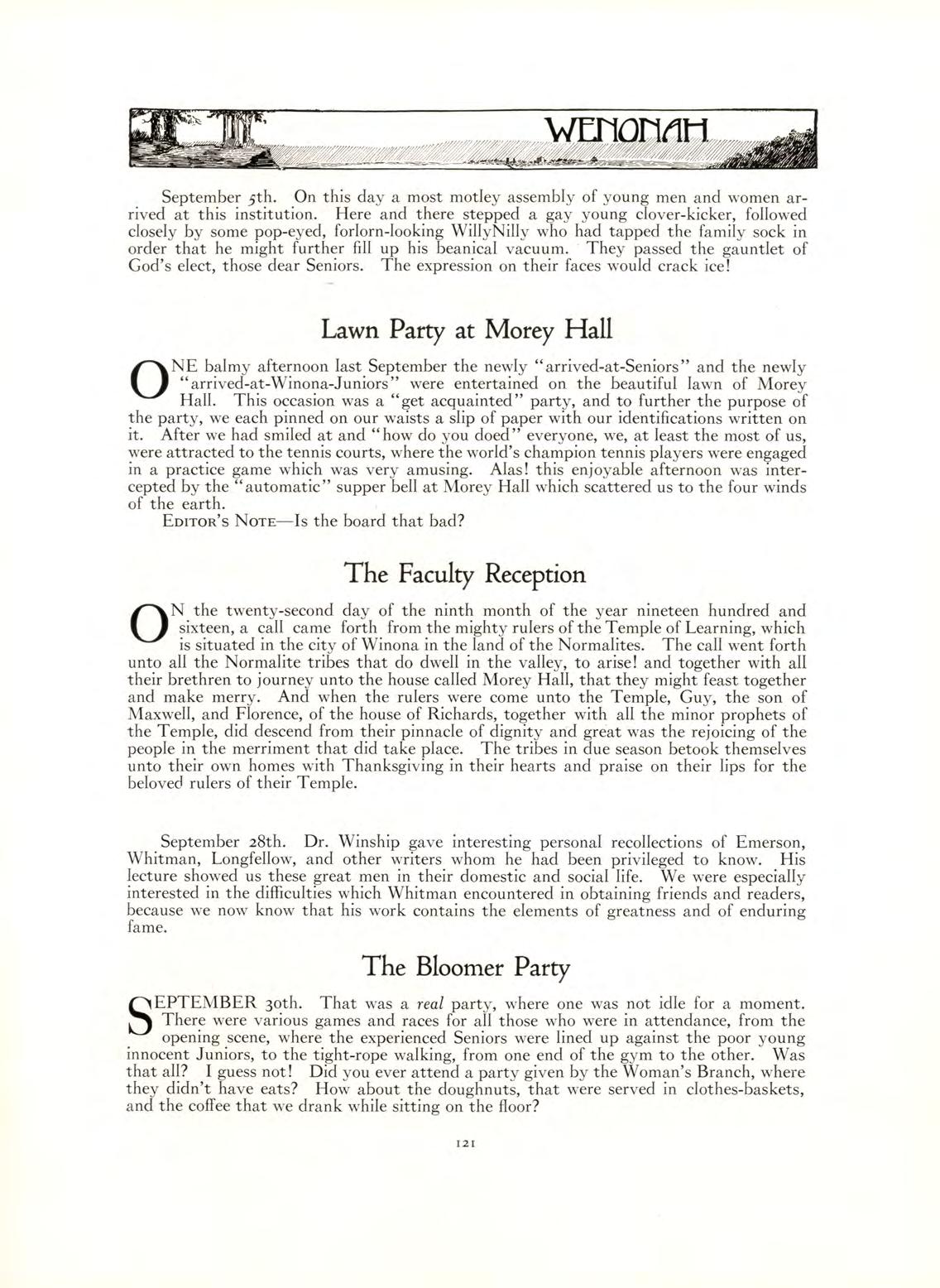
September 28th. Dr. Winship gave interesting personal recollections of Emerson, Whitman, Longfellow, and other writers whom he had been privileged to know. His lecture showed us these great men in their domestic and social life. We were especially interested in the difficulties which Whitman encountered in obtaining friends and readers, because we now know that his work contains the elements of greatness and of enduring fame.
The Bloomer Party
SEPTEMBER 30th. That was a real party, where one was not idle for a moment. There were various games and races for all those who were in attendance, from the opening scene, where the experienced Seniors were lined up against the poor young innocent Juniors, to the tight-rope walking, from one end of the gym to the other. Was that all? I guess not! Did you ever attend a party given by the Woman’s Branch, where they didn’t have eats? How about the doughnuts, that were served in clothes-baskets, and the coffee that we drank while sitting on the ffoor?
121
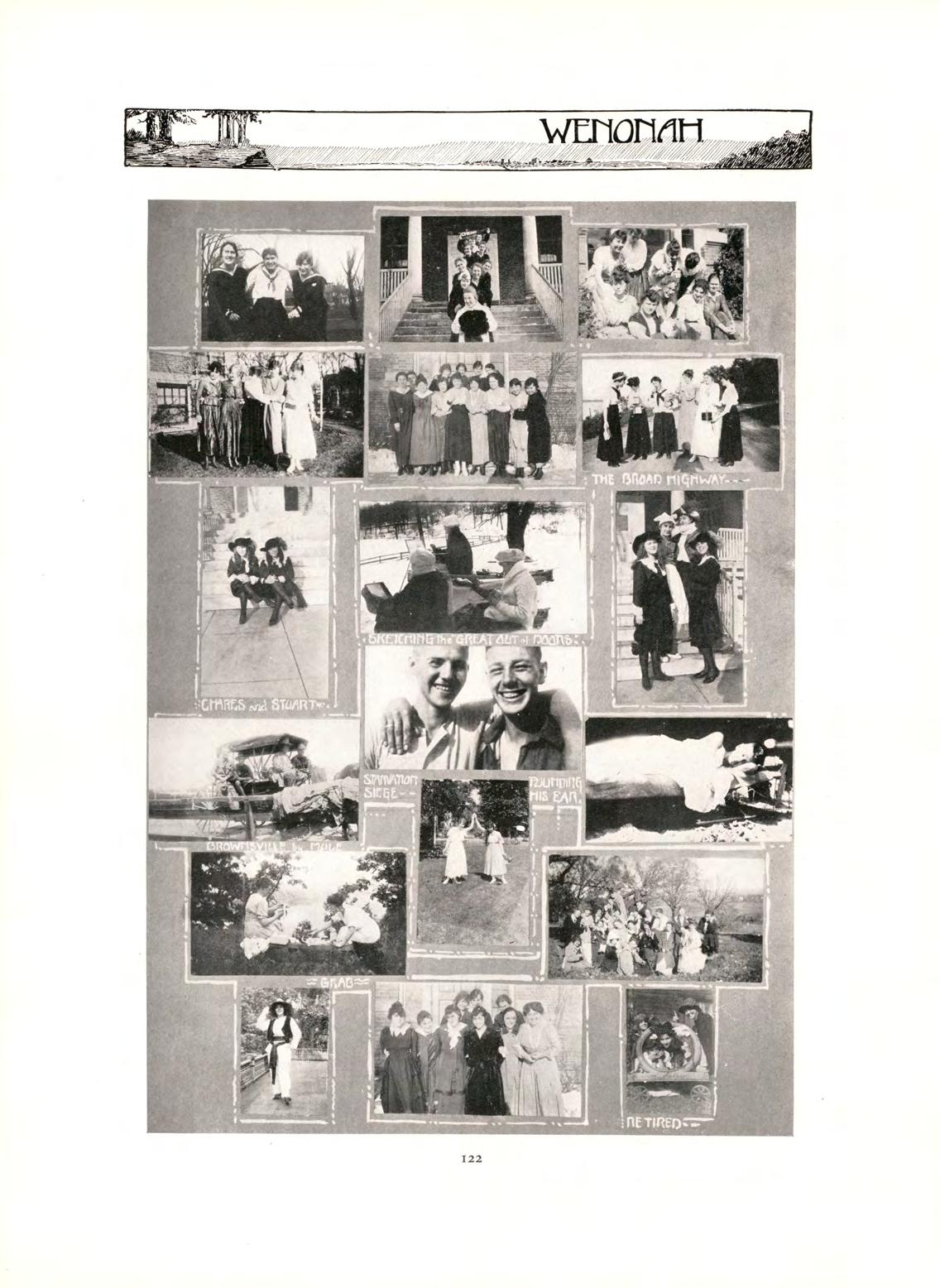
122 Y f.iffl îf^
ONCE upon a time four hundred and fifty of us young white hopes left the potato digging and fall plowing of the paternal estate and arrived in Winona with one complete change and a free copy of the catalog of the State Normal School.
We left off patent “Frizell Hair Wavers” and donned balloon effect skirts before we had been six weeks from the Hazel Brush.
But under the new a la Psyche coiffure (polished off with goose grease) was a fixed determination to better the teaching profession.
We drank of knowledge as deep as the Dairy Lunch coffee cups—and still the learning was not over. We saw that to be a leader in the Inner Circle of our community meant more than being able to talk feelingly of the Cosmopolitan and Browning. It meant getting rid of some of those gosh-awful habits such as whistling, buying sody water and half silk hose, and cultivating instead pink finger tips and high necked camisoles.
Opportunity aided our pure and high desires to become cultured in the form of invitations to Miss Richards’ Saturday Teas, where we were to have the pleasure of meeting allthe bell sheep of the particular flock who believed with us that the soul is saved by attending church Saturday, Sunday or Monday, or, prayers before or after breakfast as the case may be.
So when your invitation came you fell upon it gleefully, and on the auspicious afternoon, besides the regular habiliments, you wore a hat and two gloves to Morey Hall, while your roommate, whose hair line comes down to meet her eyebrows, sneaked off to the football game.
Coming from the Great City, and having had Certain Advantages, you were one of the few who did not try to shake hands with the maid. After the bread line was broken you dutifully draped yourself on a chair likethe Ladies in the Sunday Newspapers, and took from a sewing bag the pillow slips which you began to embroider back in 1913— regretfully remembering all the while the piles of stockings that needed mending—but the Ways of Culture were limited.
Altho your appetite craved fried eggs, a Fair Assistant handed you a thimbleful of cold water which had been spoiled with a tea leaf, and as usual she forgot the trimmings; however, you took it in silent gratitude while you listened to a classmate fromPunkenville sing, “Somewhere A Voice Is Calling.”
The Party was over.
You fled to your low browed roommate and excitedly demanded the football score.
ON October 14, 1916, the Y. W. C. A. entertained the school at a Fall Party in the gymnasium. At the door each guest was presented with a Jack-o-lantern favor. Charades, folk dancing and “The Lady of Mystery” made the hours pass pleasantly. The party ended with singing and a grand march.

Lecture Course Concert
OCTOBER 18th
123
Alberto Salvi, violinist; Edith Harris, accompanist; Helen Brown, reader.
Community Song Evening
The Normal School, in accordance with the great movement of community singing, set a special date for a Community Song Evening. On October 27th the evening, decided upon, the entire school, together with the Winona guests, sang famous old patriotic songs—the songs of the people.
The Hallowe’en Party
ON the night of October 31st, a Hallowe’en Party was given at Morey Hall. All the guests came disguised as some ghastly, mysterious being. Miss Slifer, who was the scare of the evening, was garbed as a black demon; our worthy Dean was a wan white ghost and our prim, little matron came in the guise of a hideous scare-crow. During the course of the evening there was a march of theghosts, after which everyone entered the “Chamber of Horrors” and underwent many horrible things. A Hallowe’en play was also given, which was greatly enjoyed by everyone. At ten o’clock a Hallowe’en luncheon was served, after which the ghosts vanished for another year.
Y. W. Initiation Party
The Y. W. C. a. initiation took place on Friday night, November 13, 1916, at the Y. W. C. A. parlors. All the girls were dressed in white, and the single color of white, signifying purity, was carried out thruout the party.
As the girls were received each was given a white candle, and they marched two by two,with lighted candles, from the lower hall upstairs to the reception room, where a short ceremony was held. At the close of this, each girl blew out her small candle. Selfishness, and it was re-lighted from a large candle, the Great Light. They were then asked to find their places at tables, and after the banquet a number of appropriate selections, talks, andstories were given. The whole party was extremely simple, but very effective.
Graduation, November 24th
These exercises were given to celebrate the graduation of twelve members of our school. Their most delightful feature was the reading of “Lohengrin,” by Miss Mary Slifer, supplemented by music from the opera, given by the Mendelssohn and St. Cecilia Societies.
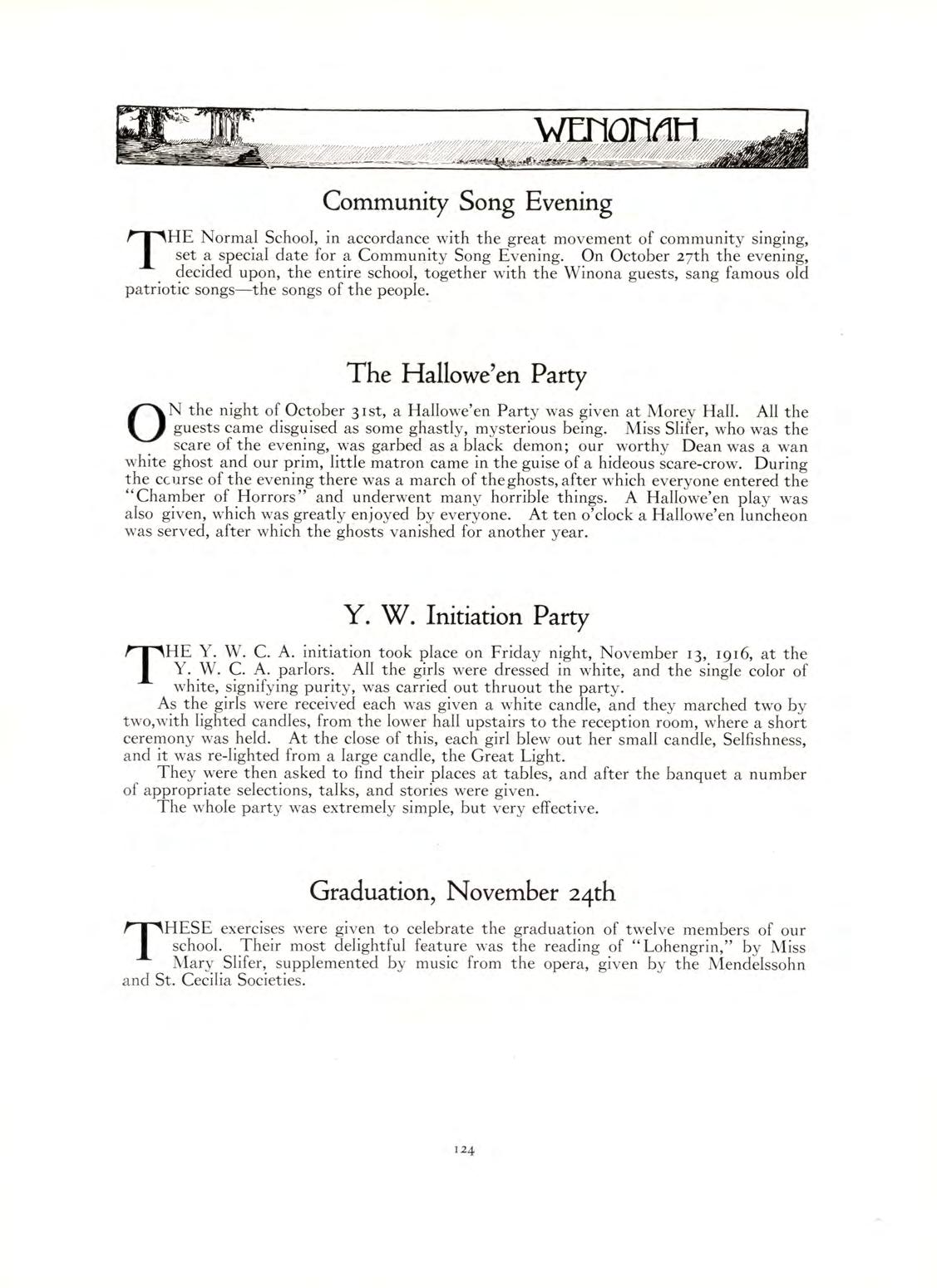
124
Dramatic Club Opening Night
NOV. 17, 1916, the Dramatic Club made its first appearance, presenting “The Falcon,” “The Kleptomaniac” and “The Maker of Dreams.” The plays were given before a full house and were received with enthusiasm.
“The Falcon”
Here Jeannette attempts to beg her old lover for his falcon and to receive his proposal, while being constantly interrupted by Leo’soffers of lettuce and dried prunes. Leo is finally successfully banished to thekitchen and the match is accomplished. We were impressed in this play with our President’s super-Lillian-Russell beauty, and Lovering’s good imitation of a broken-hearted and poverty-stricken Count. Leo and Olive, with their good-hearted and ridiculous entertainment, supplied a bit of comedy.
“The Kleptomaniac”
In this clever play the hysterical heroine gets the police forceand the hotel authorities on the trail of the woman who supposedly stole her purse, only to find that the woman was her prospective guest for that evening, and that the purse had slipped into the lining of her coat. Moral: Keep your lining sewed up. The characters were typical, and were brilliantly interpreted by the actors.
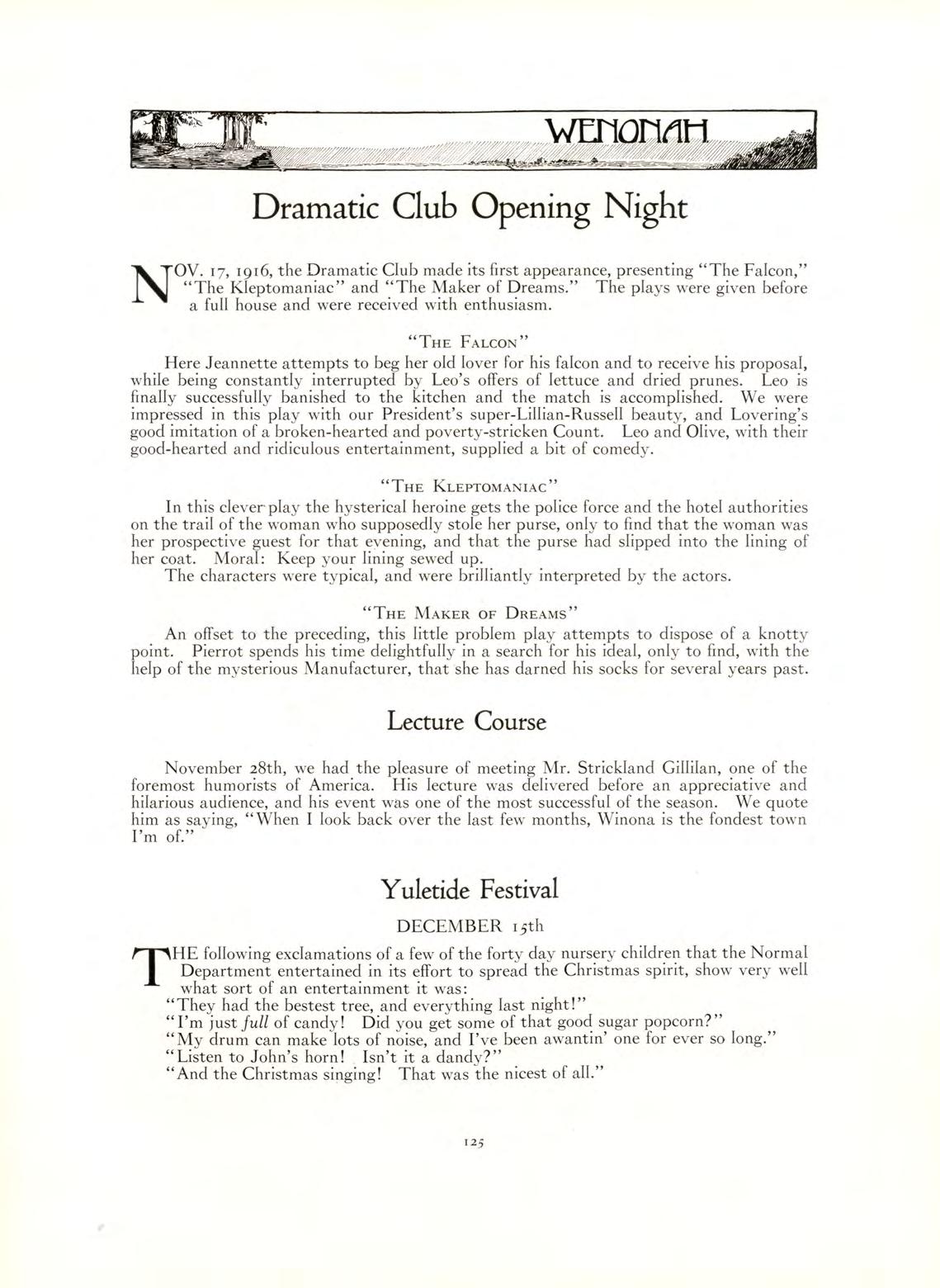
“The Maker of Dreams”
An offset to the preceding, this little problem play attempts to dispose of a knotty point. Pierrot spends his time delightfully in a search for his ideal, only to find, with the help of the mysterious Manufacturer, that she has darned his socks for several years past.
Lecture Course
November 28th, we had the pleasure of meeting Mr. Strickland Gillilan, one of the foremost humorists of America. His lecture was delivered before an appreciative and hilarious audience, and his event was one of the most successful of the season. We quote him as saying, “When I look back over the last few months, Winona is the fondest town I’m of.”
Yuletide Festival
DECEMBER 15th
The following exclamations of a few of the forty day nursery children that the Normal Department entertained in its effort to spread the Christmas spirit, show very well what sort of an entertainment it was:
“They had the bestest tree, and everything last night!”
“I’m )ust full of candy! Did you get some of that good sugar popcorn?”
“My drum can make lots of noise, and I’ve been awantin’ one for ever so long.”
“Listen to John’s horn! Isn’t it a dandy?”
“And the Christmas singing! That was the nicest of all.”
125
Football Banquet
Athletics had been very interesting this year. Why, we beat the High School in football, and St. Mary’s beat us, and Pillsbury beat us, and La Crosse Normal beat us, andWabasha beat us, and we beat all the rest. So the football boys were tendered a most sumptuous banquet at Morey Hall. They pronounced it excellent.
Peas (a la can)
Bill of Fare (me and you)
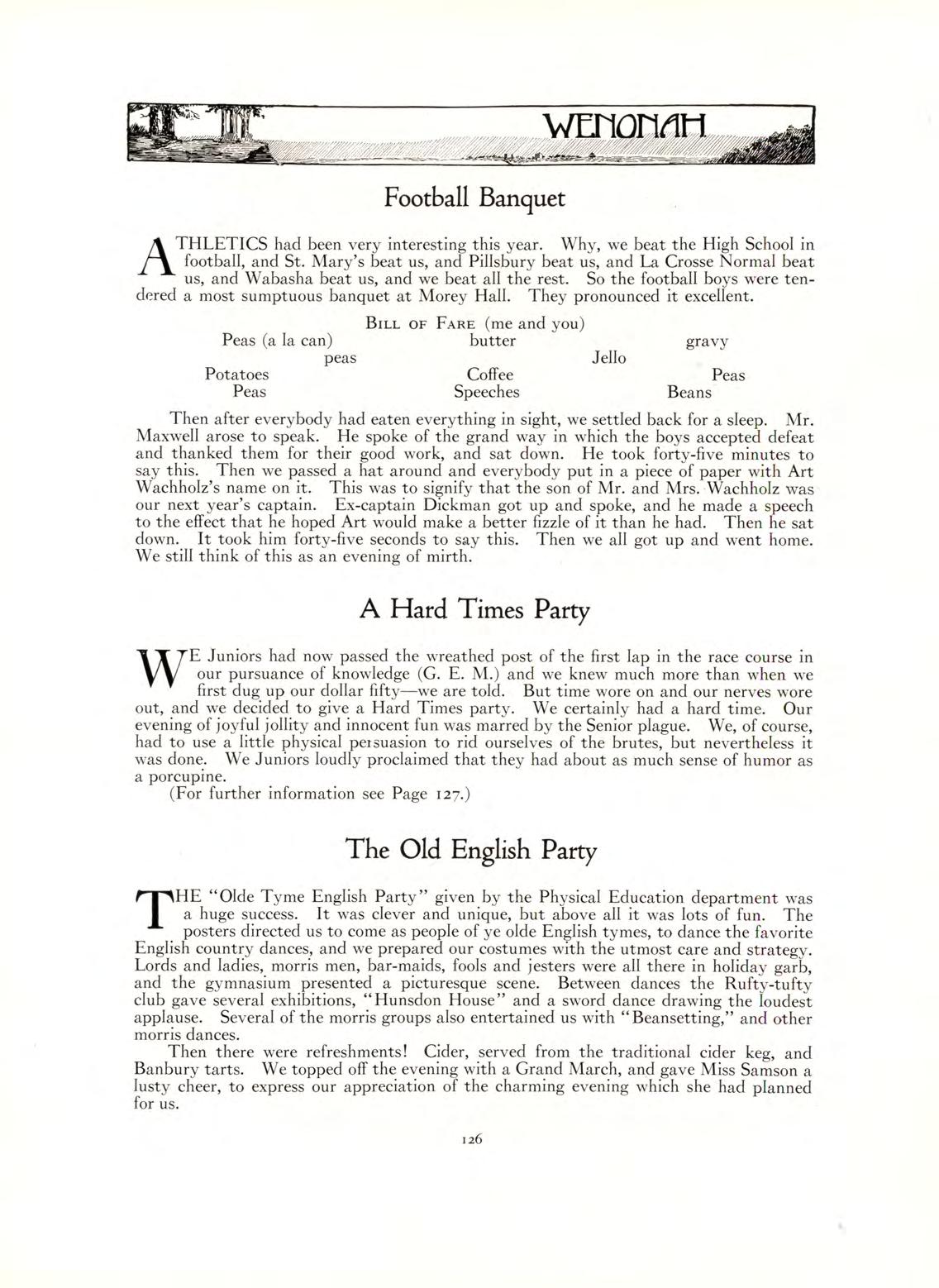
butter
gravy peas
Potatoes Coffee Jello Peas
Peas
Speeches Beans
Then after everybody had eaten everything in sight, we settled back for a sleep. Mr. Maxwell arose to speak. He spoke of the grand way in which the boys accepted defeat and thanked them for their good work, and sat down. He took forty-five minutes to say this. Then we passed a hat around and everybody put in a piece of paper with Art Wachholz’s name on it. This was to signify that the son of Mr. and Mrs. Wachholz was our next year’s captain. Ex-captain Dickman got up and spoke, and he made a speech to the effect that he hoped Art would make a better fizzle of it than he had. Then he sat down. It took him forty-five seconds to say this.Then we all got up and went home. We still think of this as an evening of mirth.
A Hard Times Party
WE Juniors had now passed the wreathed post of the first lap in the race course in our pursuance of knowledge (G. E. M.) and we knew much more than when we first dug up our dollar fifty—we are told. But time wore on and our nerves wore out, and we decided to give a Hard Times party. We certainly had a hard time. Our evening of joyful jollity and innocent fun was marred by the Senior plague. We, of course, had to use a little physical persuasion to rid ourselves of the brutes, but nevertheless it was done. We Juniors loudly proclaimed that they had about as much sense of humor as a porcupine.
(For further information see Page 127.)
The Old English Party
The “Olde Tyme English Party” given by the Physical Education department was a huge success. It was clever and unique, but above all it was lots of fun. The posters directed us to come as people of ye olde English tymes, to dance the favorite English country dances, and we prepared our costumes with the utmost care and strategy. Lords and ladies, morris men, bar-maids, fools and jesters were all there in holiday garb, and the gymnasium presented a picturesque scene. Between dances the Rufty-tufty club gave several exhibitions, “Hunsdon House” and a sword dance drawing the loudest applause. Several of the morris groups also entertained us with ‘‘Beansetting,” and other morris dances.
Then there were refreshments! Cider, served fromthe traditional cider keg, and Banbury tarts. We topped off the evening with a Grand March, and gave Miss Samson a lusty cheer, to express our appreciation of the charming evening which she had planned for us.
126
Hard Times
The Juniors were free from tradition, you see, When they planned their party gay; They surely felt smarty at having a party At which they alone could play.
We Seniors were sad, and then strangely glad; We felt that they’d soon meet their doom! We planned to attend, and our sweet graces lend To make their gay festival boom.
Now we had arranged by words exchanged Early the day before
As the clock struck nine to stand in line Outside the gymnasium door.
Thru some words let fall by three Juniors small As they passed thru the park by night. We feared that a sentry would bar our entry. And possibly make us take flight.
This threat didn’t daunt us; we feared they would taunt us With, “You were too scared to appear.’’
And so we all planned to go in a band— But we didn’t let anyone hear!
At just six o’clock we were in the block Slyly seeking an unlocked door; Past janitors sleepy, thru tunnels creepy. We stole to the upper floor.
There in the gloom of the chemistry room We waited, all in a flurry.
Till some Juniors came, and, covered with shame. They hustled us out in a hurry.
By the janitor’s aid our exits were made. Then each Junior returned to his friend. But tho we were scattered and some of us battered. We ventured our “Hard Times’’ to mend.
At a moment decided, we softly glided Into the beautiful hall; We burst into song, but not for long, Eor the rude Juniors stopped it all. Into the night went the bloody fight. Bloodier far than intended!
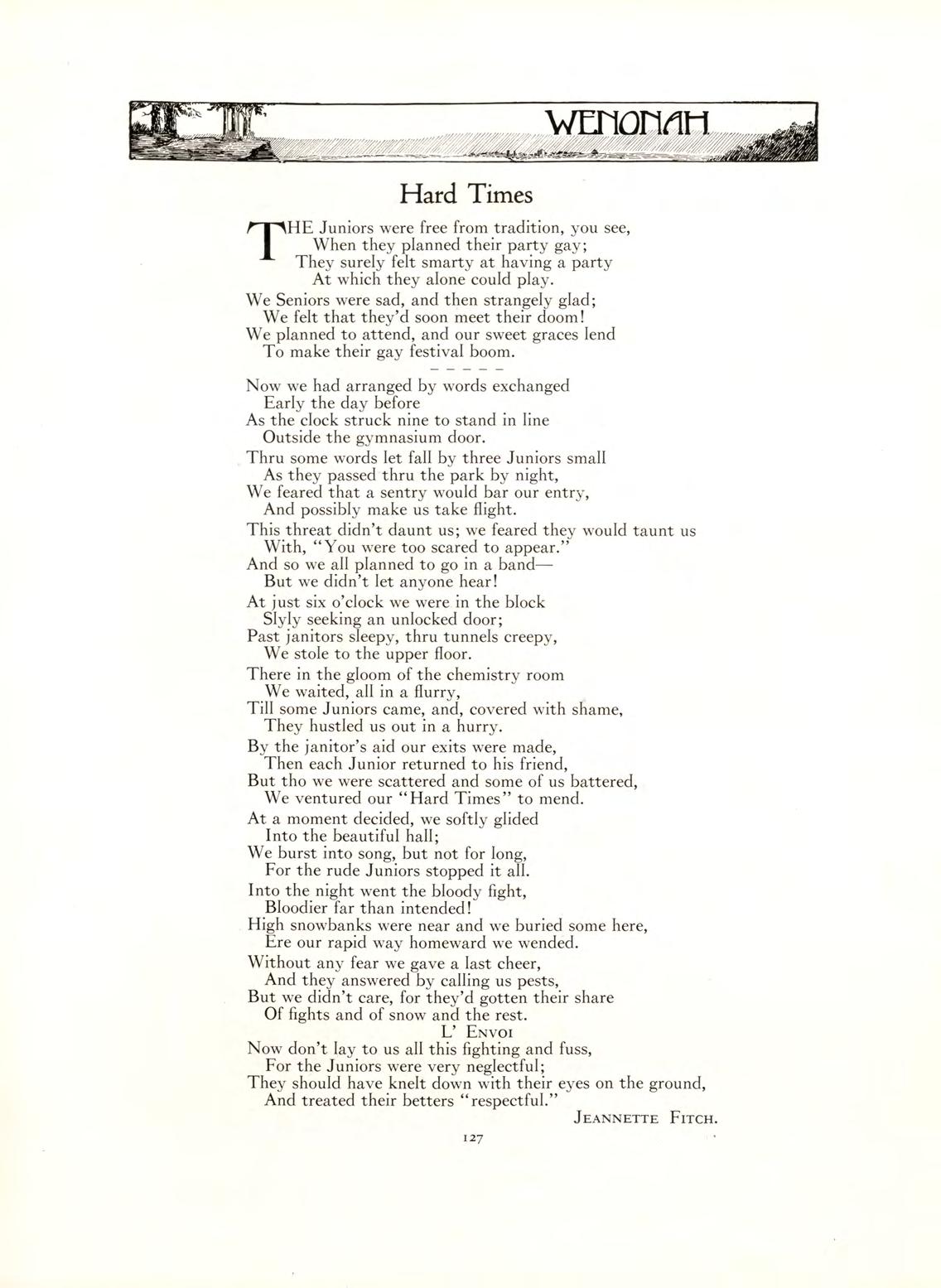
High snowbanks were near and we buried some here. Ere our rapid way homeward we wended. Without any fear we gave a last cheer. And they answered by calling us pests. But we didn’t care, for they’d gotten their share Of fights and of snow and the rest.
L’ Envoi
Now don’t lay to us all this fighting and fuss, Eor the Juniors were very neglectful; They should have knelt down with their eyes on the ground. And treated their betters “respectful.”
Jeannette Eitch.
127
Song and Light Festival
ON the evening of February 17th, the Song and Light Festival was given by the music department.
The festival was given in the spacious new gymnasium, which had appropriately been decorated with candles and branches of evergreen. The program consisted of Songs of the People and Songs of the Masters. Among the musical numbers were: “Hallelujah Chorus,” by Handel; “March, March, March,” by Farwell; and “Winona,” by Colburn.
February 24th, the Dramatic Association presented three plays.
“Miss Civilization”
In this play by Richard Harding Davis, we are given an exciting plot, an unusual situation, and incidentally a discussion of the merits of burglary as a profession. The debate is carried on at midnight by three burglars and the daughter of the house. Civilization wins, by the convincing argument of a squad of policemen and a few revolvers.
The actors brought out theatmosphere of theplayconvincingly. The burglars withtheir masks, whispers, and attitude of armed attention, the stern and business-like officers, and the daring of the kimonoed heroine, combinoed to produce an effect of thrilling realism.
“The Hour Glass”
This is a morality playby the Irish dramatist and poet, Yeats. It is profoundly characteristic of Irish sentiment. Its hero is a sceptic, who has taught the people to disbelieve in religion. An angel appears as he is about to teach his school, and not only convinces him of the truth of the things he has denied, but informs him that he will die when the sand has run once through the hour glass, and that his soul will go to the place he didn’t believe in if he has not meanwhile found someone with faith.
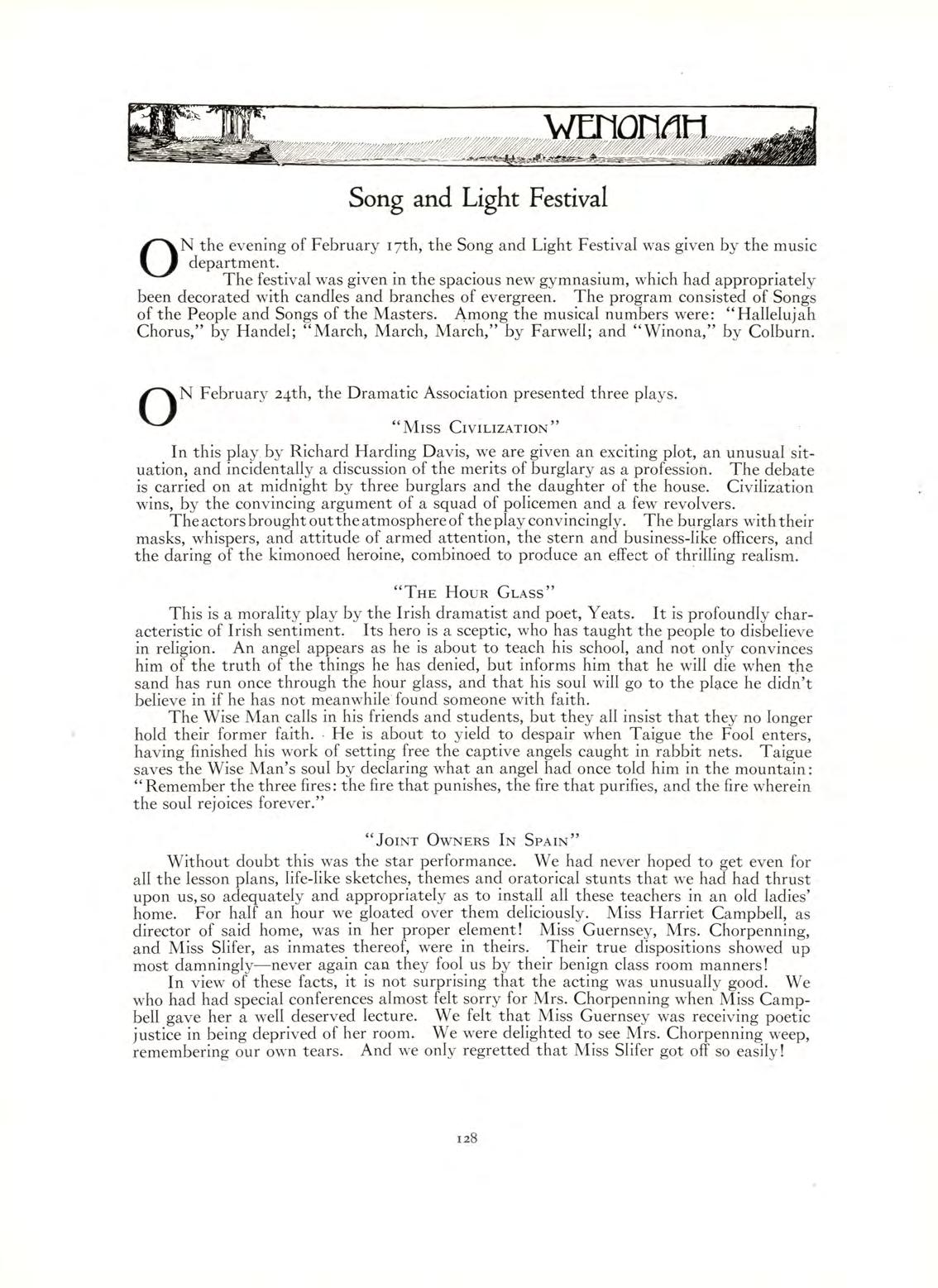
The Wise Man calls in his friends and students, but they all insist that they no longer hold their former faith. He is about to yield to despair when Taigue the Fool enters, having finished his work of setting free the captive angels caught in rabbit nets. Taigue saves the Wise Man’s soul by declaring what an angel had once told him in the mountain : Remember the three fires: the fire that punishes, the fire that purifies, and thefire wherein the soul rejoices forever.”
“Joint Owners In Spain”
Without doubt this was the star performance. We had never hoped to get even for all the lesson plans, life-like sketches, themes and oratorical stunts that we had had thrust upon us, so adequately and appropriately as to install all these teachers in an old ladies’ home. For half an hour we gloated over them deliciously. Miss Harriet Campbell, as director of said home, was in her proper element! Miss Guernsey, Mrs. Chorpenning, and Miss Slifer, as inmates thereof, were in theirs. Their true dispositions showed up most damningly—never again can they fool us by their benign class room manners!
In view of these facts, it is not surprising that the acting was unusually good. We who had had special conferences almost felt sorry for Mrs. Chorpenning when Miss Campbell gave her a well deserved lecture. We felt that Miss Guernsey was receiving poetic justice in being deprived of her room. We were delighted to see Mrs. Chorpenning weep, remembering our own tears. And we only regretted that Miss Slifer got off so easily!
128
Prosperity Party
Thrift abounded in every nook at the Prosperity Party given by the Kindergarten Club on March loth. The legal tender of the evening was freely furnished at the bank to every guest by Mr. Credit.
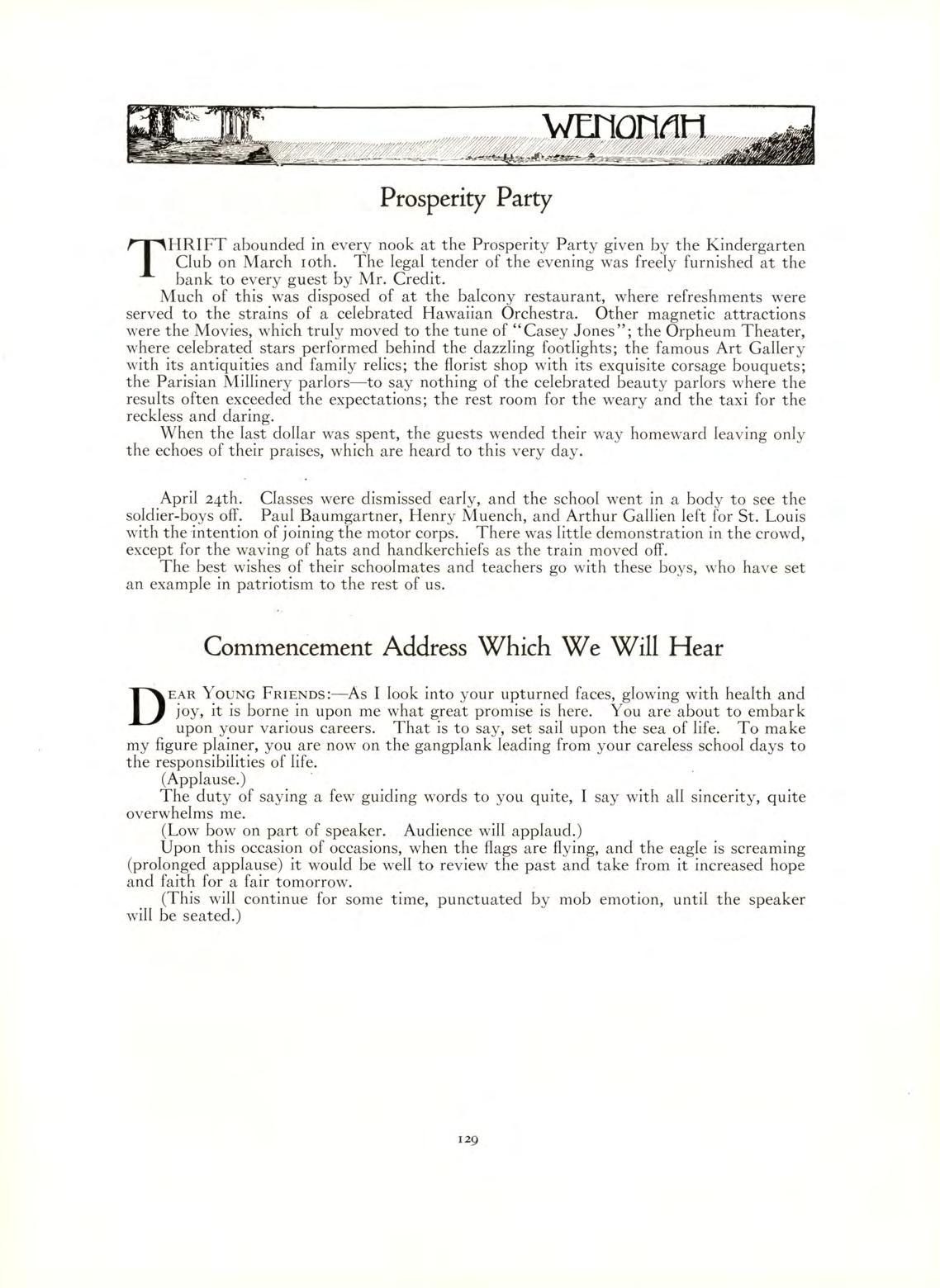
Much of this was disposed of at the balcony restaurant, where refreshments were served to the strains of a celebrated Hawaiian Orchestra. Other magnetic attractions were the Movies, which truly moved to the tune of “Casey Jones”; the Orpheum Theater, where celebrated stars performed behind the dazzling footlights; the famous Art Gallery with its antiquities and family relics; the florist shop with its exquisite corsage bouquets; the Parisian Millinery parlors—to say nothing of the celebrated beauty parlors where the results often exceeded the expectations; the rest room for the weary and the taxi for the reckless and daring.
When the last dollar was spent, the guests wended their way homeward leaving only the echoes of their praises, which are heard to this very day.
April 24th. Classes were dismissed early, and the school went in a body to see the soldier-boys off. Paul Baumgartner, Henry Muench, and Arthur Gallien left for St. Louis with the intention of joining the motor corps. There was little demonstration inthe crowd, except for the waving of hats and handkerchiefs as the train moved off.
The best wishes of their schoolmates and teachers go with these boys, who have set an example in patriotism to the rest of us.
Commencement Address Which We Will Hear
Dear Young Friends:—As I look into your upturned faces, glowing with health and joy, it is borne in upon me what great promise is here. You are about to embark upon your various careers. That is to say, set sail upon the sea of life. To make my figure plainer, you are now on the gangplank leading from your careless school days to the responsibilities of life.
(Applause.)
The duty of saying a few guiding words to you quite, I say with all sincerity, quite overwhelms me.
(Low bow on part of speaker. Audience will applaud.)
Upon this occasion of occasions, when the flags are flying, and the eagle is screaming (prolonged applause) it would be well to review the past and take from it increased hope and faith for a fair tomorrow.
(This will continue for some time, punctuated by mob emotion, until the speaker will be seated.)
129
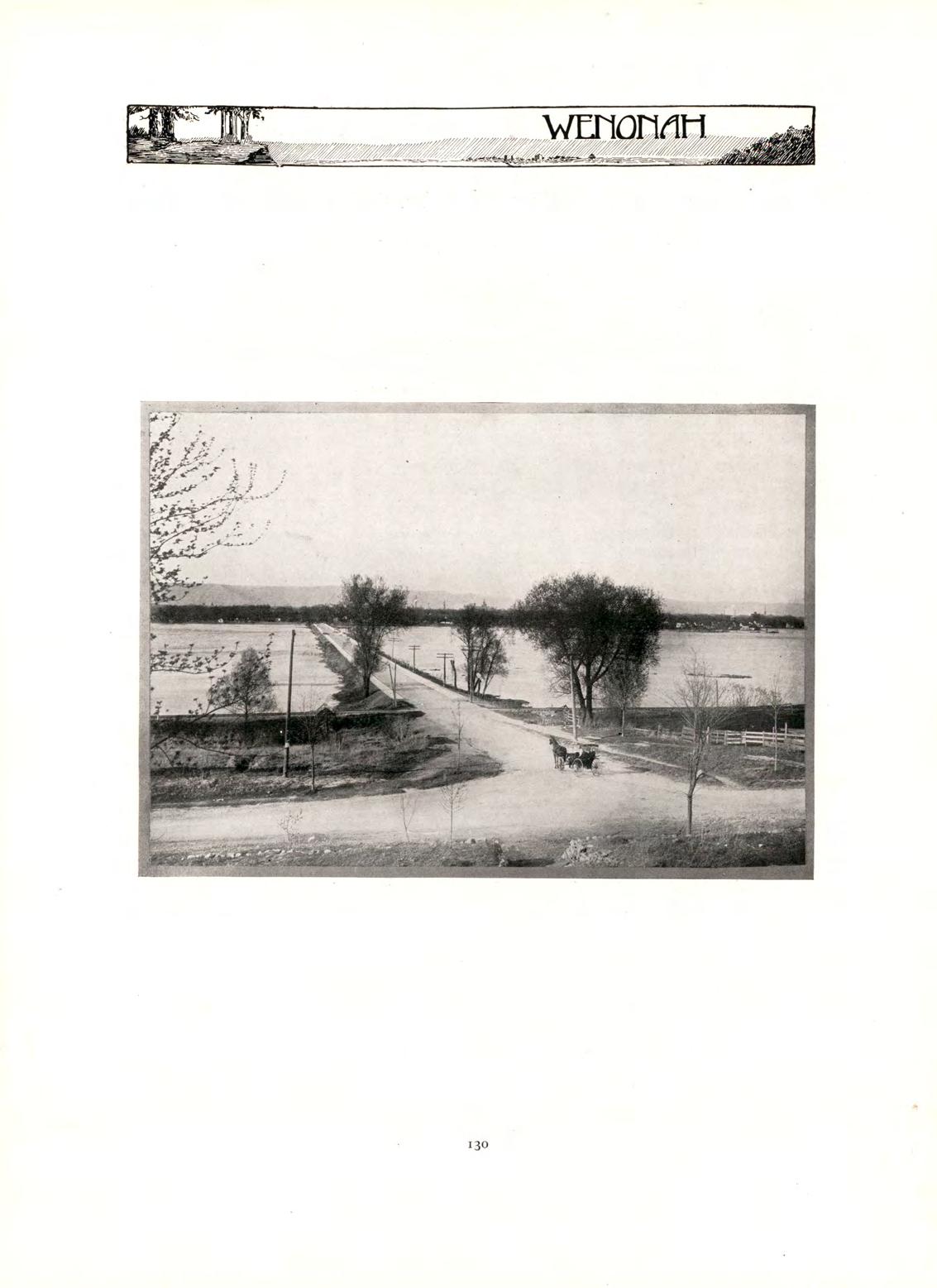
130
Commencement Week Program

iiiiiiiiiiiiiiiiiiiiiiiiiiiiiiiiiiiiiiiiiiiiiiiiiiiiiiiiiiiiiiiiiiiiiiiiiiiiiiiiiiiiiiiiiiiiiiiiiiiiiiiiiiiy^
JUNE 3 TO 8, 1917
Commencement Sermon, St. Paul’s Episcopal Church, Sunday, 8 P. M.; Rev. George S. Keller, Rector.
Annual Class Play, Opera House, Wednesday, 8 P. M.— “The Piper,’’ Josephine Preston Peabody.
Class Day Program, Assembly Hall, Thursday, 2:30 P. M.
Alumni-Eaculty-Senior War-Time Banquet, Morey Hall, Thursday, 6:30 P. M.; Reception at 8:30.
Annual Commencement, Opera House, Friday, 2:30 P. M.; Address, Dr. Herbert S. Bigelow, Cincinnati.
131
"The Piper”
DIDN’T you always wonder what became of the children of Hamelin Town when the Piper led them away and the door in the mountainside shut fast? What did they do when dusk had fallen, bedtime come? Could the Piper play lullabies on his wonderful pipe as softly, as tenderly, as a mother sings them? And didn’t you wish and wish that the Piper would forgive the people of Hamelin Town and give their children back?
A charming interpretation of “what happened afterward” was written by Josephine Preston Peabody, winning the Shakespearian Oxford prize.
This play, “The Piper,” will be presented by the Senior class. With Miss Slifer as a trained and enthusiastic coach, there is every promise that it will be one of the most successful that the school has ever presented.
If desirable, two performances will be given, and the proceeds, by a unanimous vote OÍ the class, will be given to the Red Cross. Since the funds are devoted to this purpose, no one taking part in the play or buying a ticket to see it can feel that heis wasting time or money that might be used more advisably.
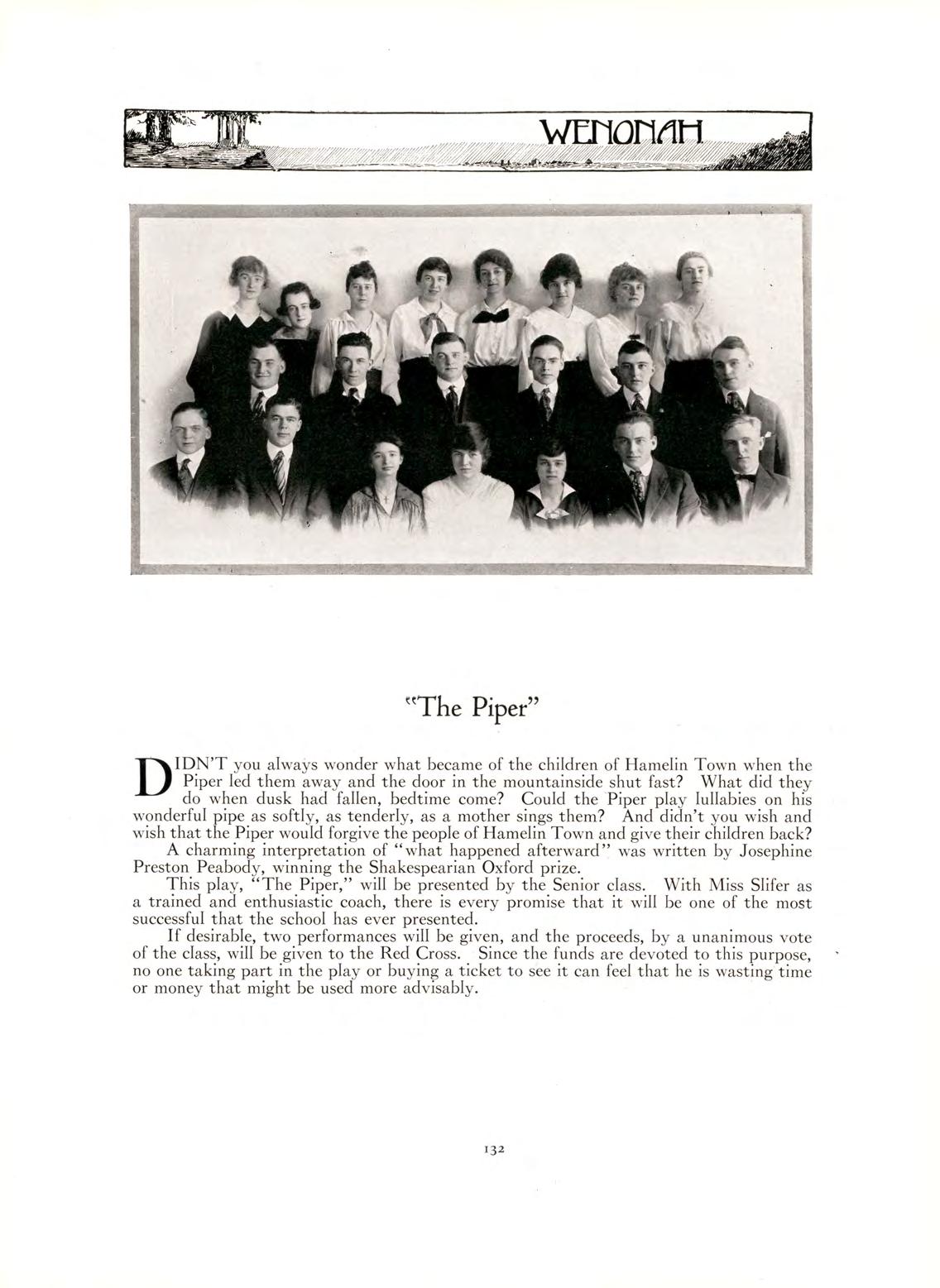
132
The cast has been changed since the picture was taken, and now consists entirely of women. The change is made on account of the rapid rate at which our boys are enlisting. The thanks of the class are due to the boys, however, for their hard work on the play, and to the girls forthe willingness with which they took up the task at a difficult point and pushed it thru to success. The new cast follows:
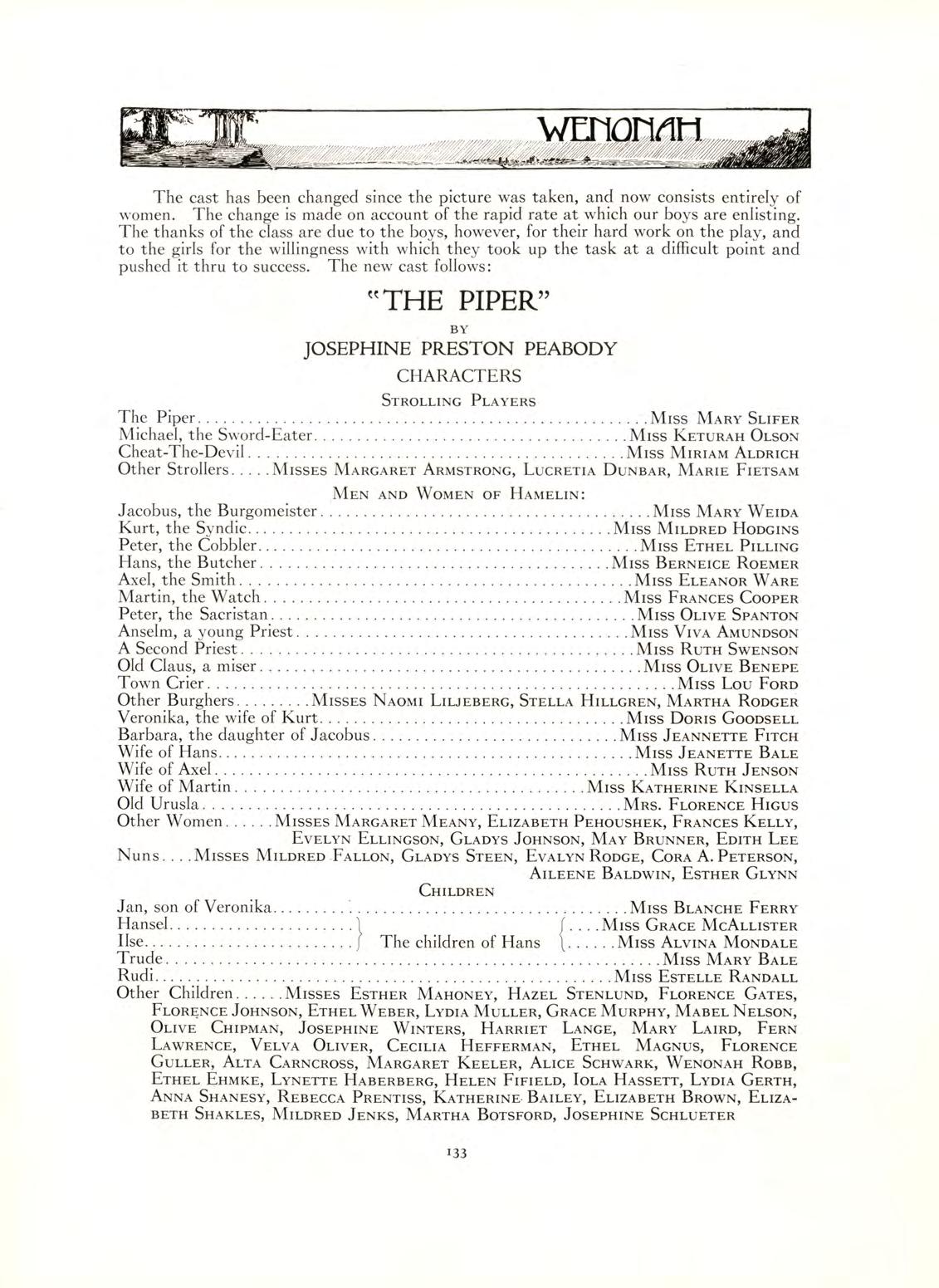
"THE PIPER”
BY JOSEPHINE PRESTON PEABODY
CHARACTERS
Strolling Players
The Piper Miss Mary Slifer
Michael, the Sword-Eater
Cheat-The-Devil
Miss Keturah Olson
Miss Miriam Aldrich
Other Strollers Misses Margaret Armstrong, Lucretia Dunbar, Marie Fietsam
Men and Women of Hamelin:
Jacobus, the Burgomeister
Kurt, the Syndic
Peter, the Cobbler
Hans, the Butcher
Axel, the Smith
Martin, the Watch
Peter, the Sacristan
Anselm, a young Priest
Miss Mary Weida
Miss Mildred Hodgins
Miss Ethel Pilling
Miss Berneice Roemer
Miss Eleanor Ware
MissFrances Cooper
Miss Olive Spanton
Miss Viva Amundson
A Second Priest Miss Ruth Swenson
Old Claus, a miser Miss Olive Benepe
Town Crier Miss Lou Ford
Other Burghers Misses Naomi Liljeberg, Stella Hillgren, Martha Rodger
Veronika, the wife of Kurt Miss Doris Goodsell
Barbara, the daughter of Jacobus
Wife of Hans
Miss Jeannette Fitch
Miss Jeanette Bale
Wifeof Axel Miss Ruth Jenson
Wife of Martin Miss Katherine Kinsella
Old Urusla Mrs. Florence Higus
Other Women Misses Margaret Meany, Elizabeth Pehoushek, Frances Kelly, Evelyn Ellingson, Gladys Johnson, May Brunner, Edith Lee
N uns. .Misses Mildred Fallon, Gladys Steen, Evalyn Rodge, Cora A. Peterson, Aileene Baldwin, Esther Glynn
Children
Jan, son of Veronika Miss Blanche Ferry
Hansel 1 Í. .Miss Grace McAllister
Use j The children of Hans \ Miss Alvina Mondale
Trude Miss Mary Bale
Rudi Miss Estelle Randall
Other Children Misses Esther Mahoney, Hazel Stenlund, Florence Gates, Florence Johnson, Ethel Weber, Lydia Muller, Grace Murphy, Mabel Nelson, Olive Chipman, Josephine Winters, Harriet Lange, Mary Laird, Fern Lawrence, Velva Oliver, Cecilia Hefferman, Ethel Magnus, Florence Culler, Alta Carncross, Margaret Keeler, Alice Schwark, Wenonah Robb, Ethel Ehmke, Lynette Haberberg, Helen Fifield, Iola Hassett, Lydia Gerth, Anna Shanesy, Rebecca Prentiss, Katherine Bailey, Elizabeth Brown, ElizaBETH Shakles, Mildred Jenks, Martha Botsford, Josephine Schlueter
133
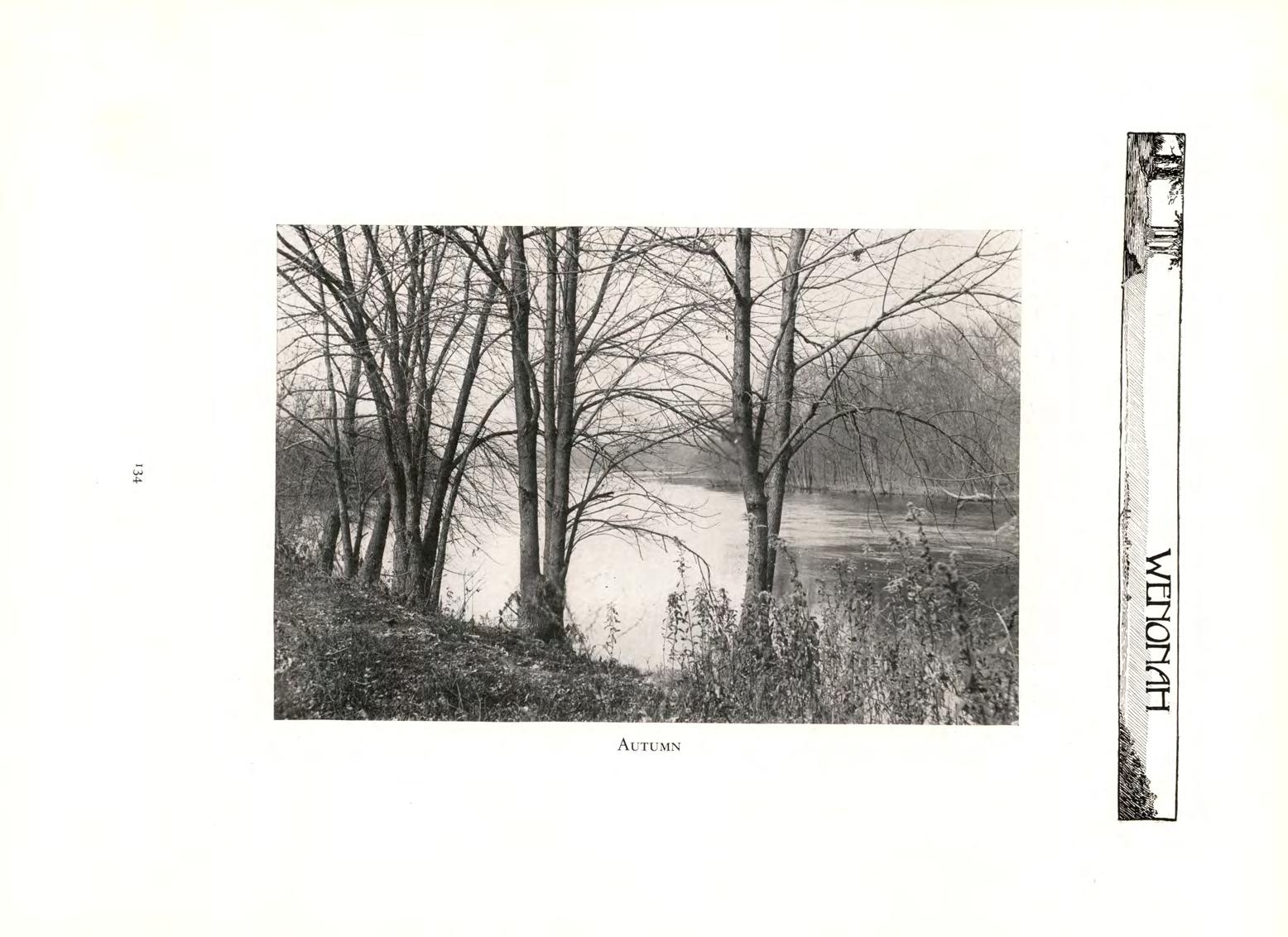
134 Autumn
Of pow-wows
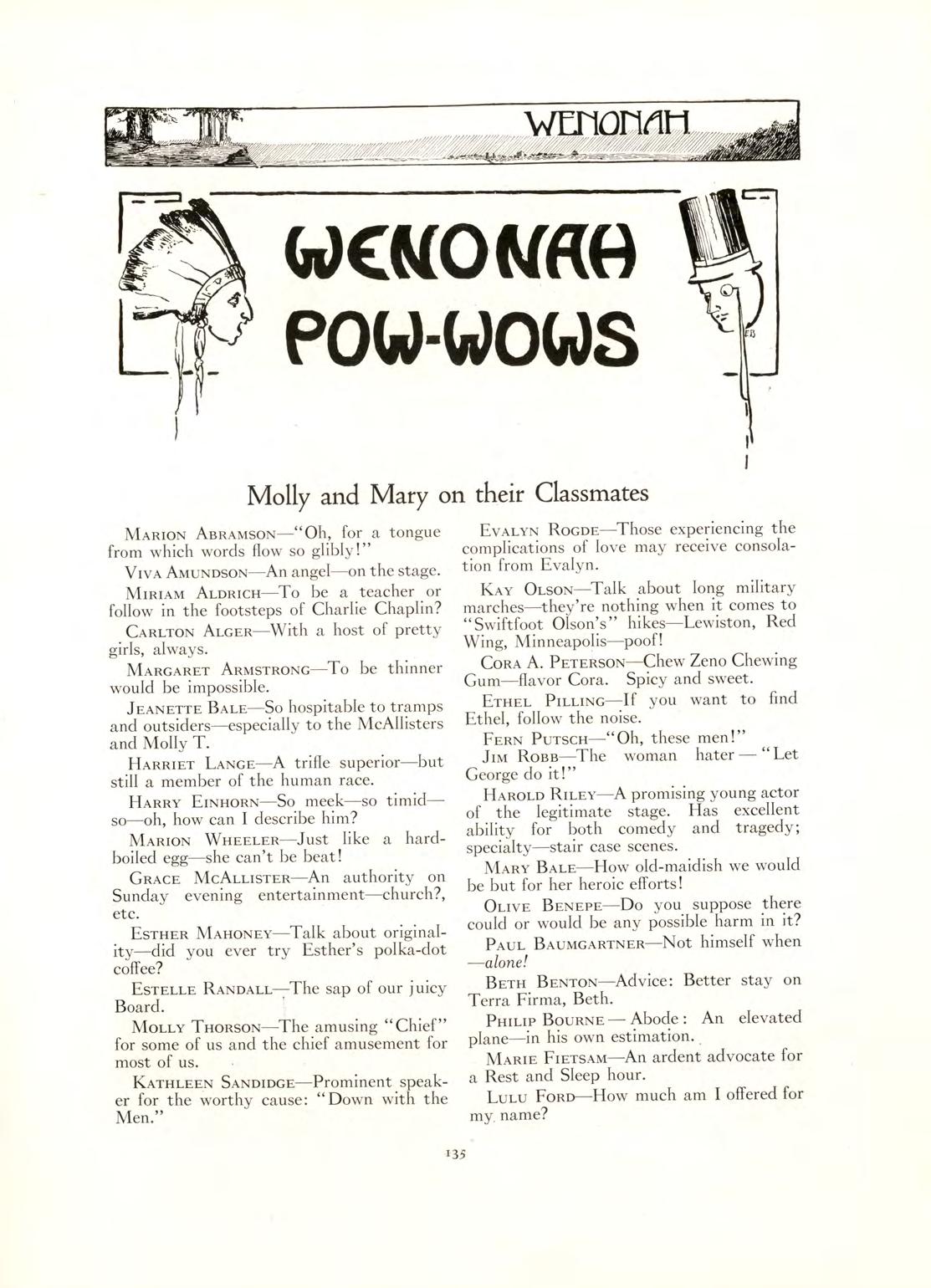
Molly and Mary on their Classmates
Marion Abramson—“Oh, for a tongue from which words flow so glibly!”
Viva Amundson—An angel—on the stage.
Miriam Aldrich—To be a teacher or follow in the footsteps of Charlie Chaplin?
Carlton Alger—With a host of pretty girls, always.
Margaret Armstrong—To be thinner would be impossible.
Jeanette Bale—So hospitable to tramps and outsiders—especially to the McAllisters and Molly T.
Harriet Lange—A trifle superior—but still a member of the human race.
Harry Einhorn—So meek—so timid— so—oh, how can I describe him?
Marion Wheeler—Just like a hardboiled egg—she can’t be beat!
Grace McAllister—An authority on Sunday evening entertainment—church?, etc.
Esther Mahoney—Talk about originality—did you ever try Esther’s polka-dot coffee?
Estelle Randall—The sap of our juicy Board.
Molly Thorson—The amusing “Chief” for some of us and the chief amusement for most of us.
Kathleen Sandidge—Prominent speaker for the worthy cause: “Down with the Men.”
Evalyn Rogde—Those experiencing the complications of fove may receive consolation from Evalyn.
Kay Olson—Talk about fong military marches—they’re nothing when it comes to “Swiftfoot Olson’s” hikes—Eewiston, Red Wing, Minneapolis—poof!
Cora A. Peterson—Chew Zeno Chewing Gum—flavor Cora. Spicy and sweet.
Ethel Pilling—If you want to find Ethef, follow the noise.
Fern Putsch—“Oh, these men!”
Jim Robb—The woman hater—“Eet George do it!”
Harold Riley—A promising young actor of the legitimate stage. Has excellent ability for both comedy and tragedy; specialty—stair case scenes.
Mary Bale—How old-maidish we would be but for her heroic efforts!
Olive Benepe—Do you suppose there could or would be any possible harm in it?
Paul Baumgartner—Not himself when alone!
Beth Benton—Advice: Better stay on Terra Firma, Beth.
Philip Bourne Abode : An elevated plane—in his own estimation.
Marie Fietsam—An ardent advocate for a Rest and Sleep hour.
Lulu Ford—How much am I offered for my. name?
135
WHO’S AHEAD, JUNIOR OR SENIOR?
A certain Senior had a bad habit of keeping a very untidy desk. One day a Junior kindly left the following notice in his desk;
“Paul B.; Please straighten your desk at once.”
Needless to say, said Senior took the warning (undoubtedly thinking the notice came from a member of the faculty) and the next day found his desk one of the neatest in the Assembly room.
Mr. Moore^—“Give a good definition of ‘treason,’ Miss Rogde.”
Evalyn—^“I’m not sure, but I think it’s a breach of promise.”
Dutch Riley (at a Junior meeting)— “These committees will be posted up on the bulletin board.”
At the close of a sumptuous luncheon at Gates, Esther Glynn was heard to say, “We must hurry now, girls, you know we have supper at 5:54.”
Clarice Engels at breakfast—“Please excuse me, girls, I have an eight o’clock class.”
G. Rutherford in Civics dreamily, when the merits of Senator EaFoIIette were being discussed—“Oh, has he got a son?”

RHYTHM IN ANIMAES
Ken Davis’ walk.
Miss Slifer’s gymnastic dancing.
The “fairy stride” (Eerrey).
Miss Slifer, at class play practice— “Now all you girls who are women, hand in your waist measures to me right away for the costumes.”
M. W.—“Oh, go on; you might tell someone.”
D. Riley (in Junior meeting, discussing a party to be given for the Seniors)— “Well, I suppose we’ll have to have the Seniors, because they’d come anyway.”
“Well, I don’t see why people think coffee without cream is harmless, because the canine is in it anyway.”
Who put the sense in censored? Why, our critics.
D. R.—“I can sing in any flat, if I’ve got the key.”
E. Gilbertson (in Theory of Physical Ed.)—“ I think hoeing potatoes is as cultural as reading books.”
J. Bale—“That’s agricultural.”
Mary Fitzgerald was attempting to solve the school management assignment by defining the ideal teacher. Dr. Dickerson passed. “I’ll tell you what the ideal teacher is,” he said; “it’s one who teaches two years after graduating from Normal, and then gets married.”
Louise (in Morey Hall Laundry)—“It seems I lose my soap the minute I turn my back, girls.”
Mildred—“Better put your initials on it, Louise.”
Louise—“Now, Mildred, don’t you think it would wash off?”
Not long ago, a long line of students loitered in the main hall at the Normal School. We say loitered, but the truth is, this group was held up by one of its members, a tall girl by the name of Mildred, who for fifteen minutes tried to buy a package of paper with four pennies and a button. We don’t know what kind of a button it was, but it must have been some button.
Mr. Moore, in Givics—“What is a marine. Miss Peterson?”
Gora M.—“An officer of a submarine.”
AS OTHERS SEE US
To Publisher “Wenonah”:—Send million copies Annual. Want to make soldiers fighting mad.—Kaiser Wilhelm, Pres. ILove-Me Club.
Dear Editor:—I have read your book carefully, and become interested in your Institution. Would it be possible for me to adopt the cute little boy named Floyd?
Dear Editor;—We need more bricks for our paving, and we like your finish. Please send us a large order at once.—Paving Co.
Where is Mil’s little roadster with the big yellow wheels?
136
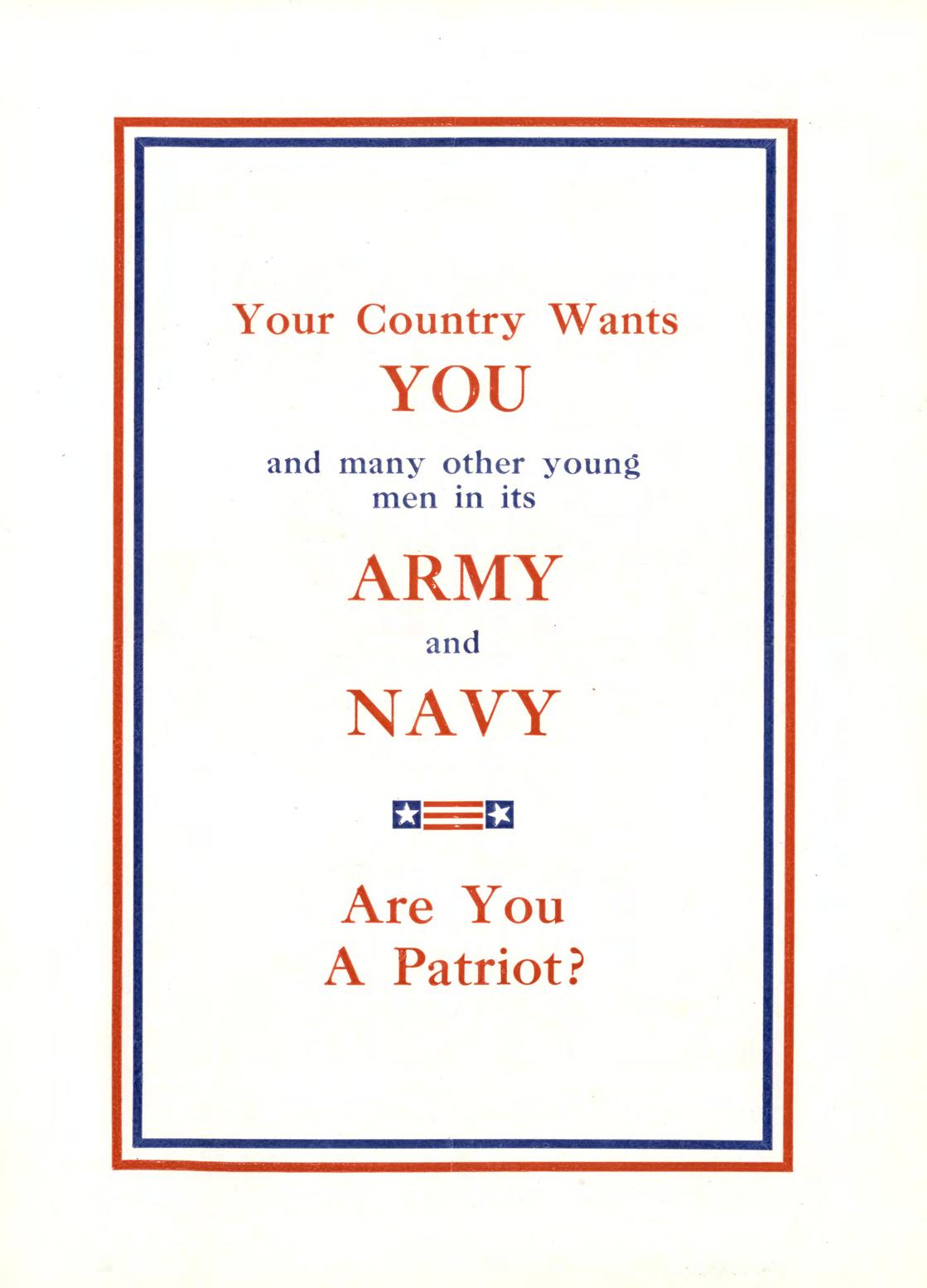
Your Country
YOU and many other young men in its ARMY and NAVY Are You A Patriot?
Wants

These are the people who have made our book possible. ‘Patronize them.
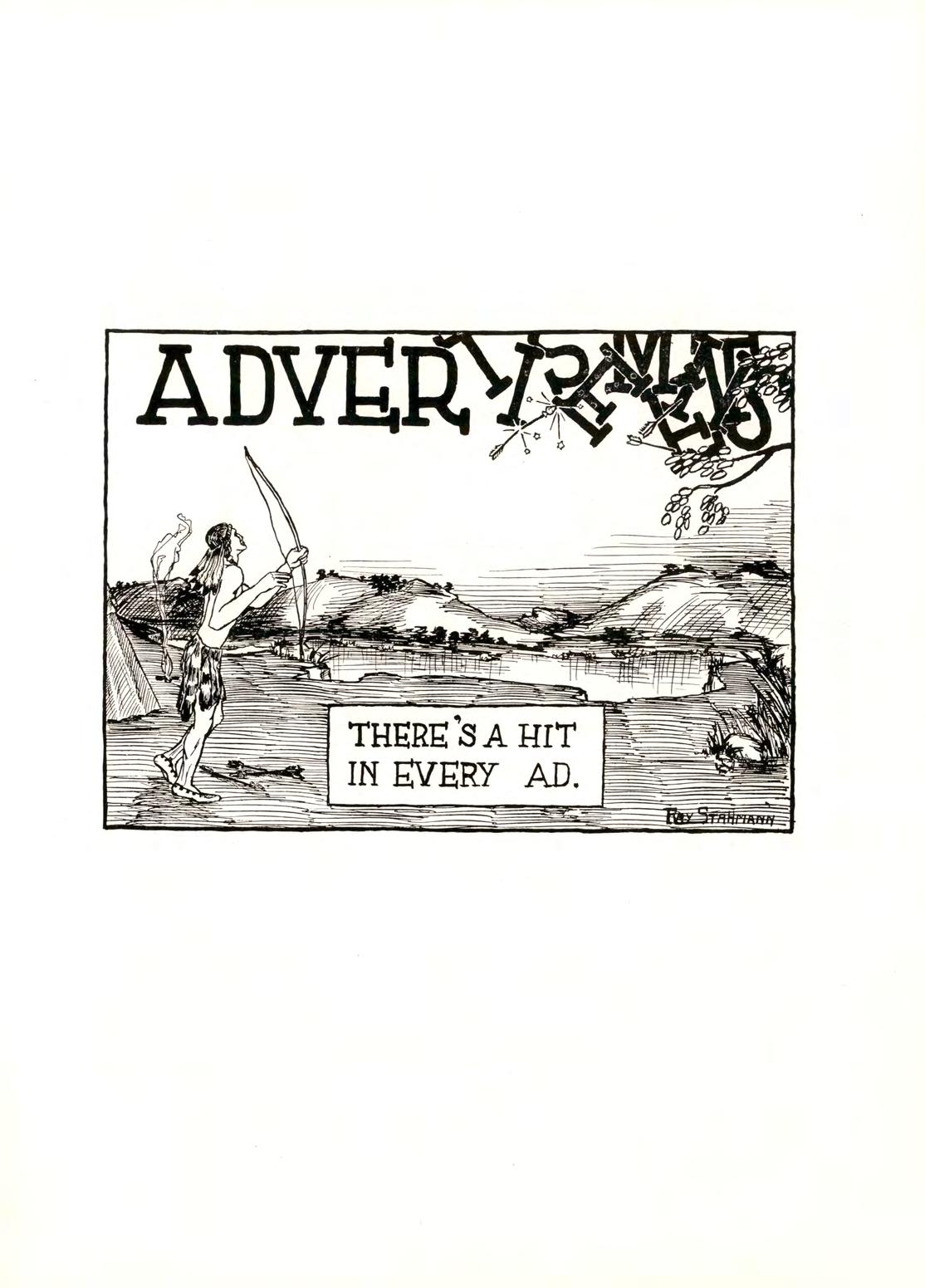
Studio Cutler's
We wish to thank the students of the Normal School for their liberal patronage, and hope our very pleasant business relations may be continued in future years.
The name CUTLER on your Portraits, Enlargements, Commercial and Kodak work means as much to you as **Sterling'* on your silver.
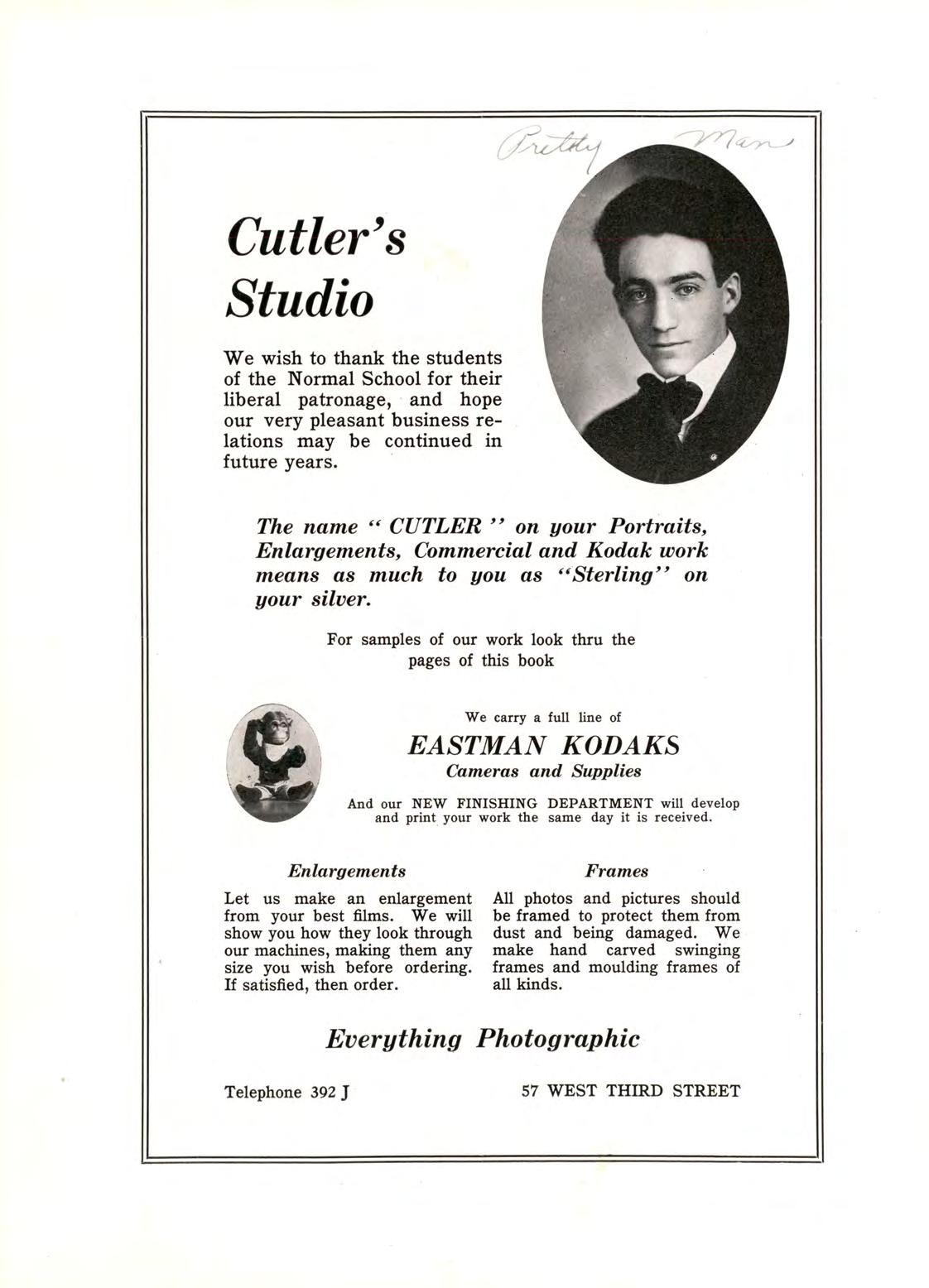
For samples of our work look thru the pages of this book
We earry a full line of
EASTMAN KODAKS
Cameras and Supplies
And our NEW FINISHING DEPARTMENT will develop and print your work the same day it is received.
Enlargements
Let us make an enlargement from your best films. We will show you how they look through our machines, making them any size you wish before ordering. If satisfied, then order.
Frames
All photos and pictures should be framed to protect them from dust and being damaged. We make hand carved swinging frames and moulding frames of all kinds.
Everything Photographic Telephone 392 J 57 WEST THIRD STREET
Hot water in the morning, Letters From the Front, Cuffs and collars for the bids— Mary’s prize stunt.
Phone 23
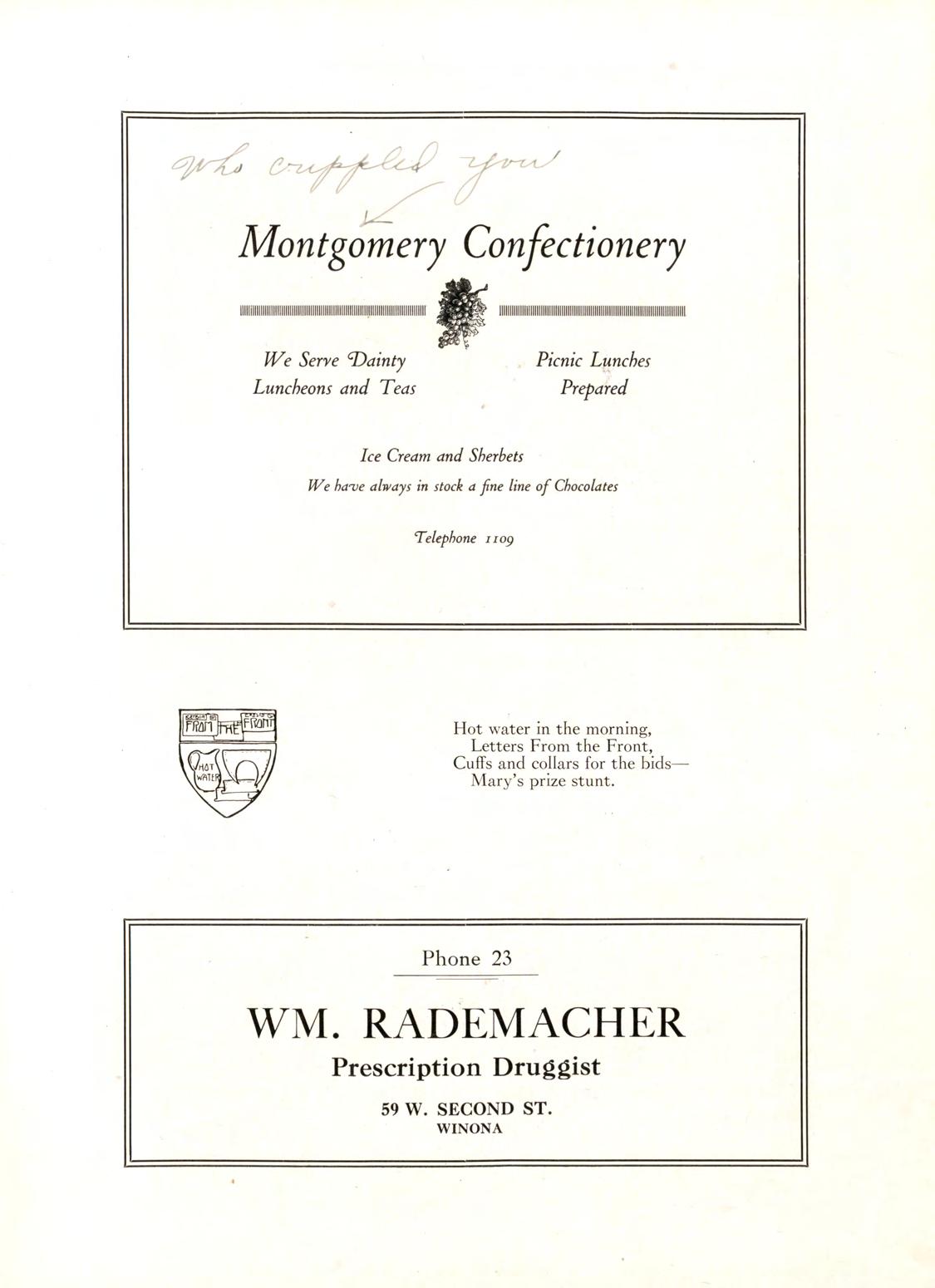
WM. RADEMACHER Prescription Druggist 59 W. SECOND ST. WINONA
Manufacturing Jeweler
70 WEST THIRD STREET WINONA, MINNESOTA
WILL WELCOME YOU ON YOUR RETURN NEXT FALL. WE WISH TO THANK THE STUDENTS AND ESPECIALLY THE SENIOR CLASS FOR THEIR PATRONAGE DURING THE PAST YEAR, AND HOPE TO HAVE THE PLEASURE OF CONTINUING THE PLEASANT BUSINESS RELATIONS ALREADY ESTABLISHED.
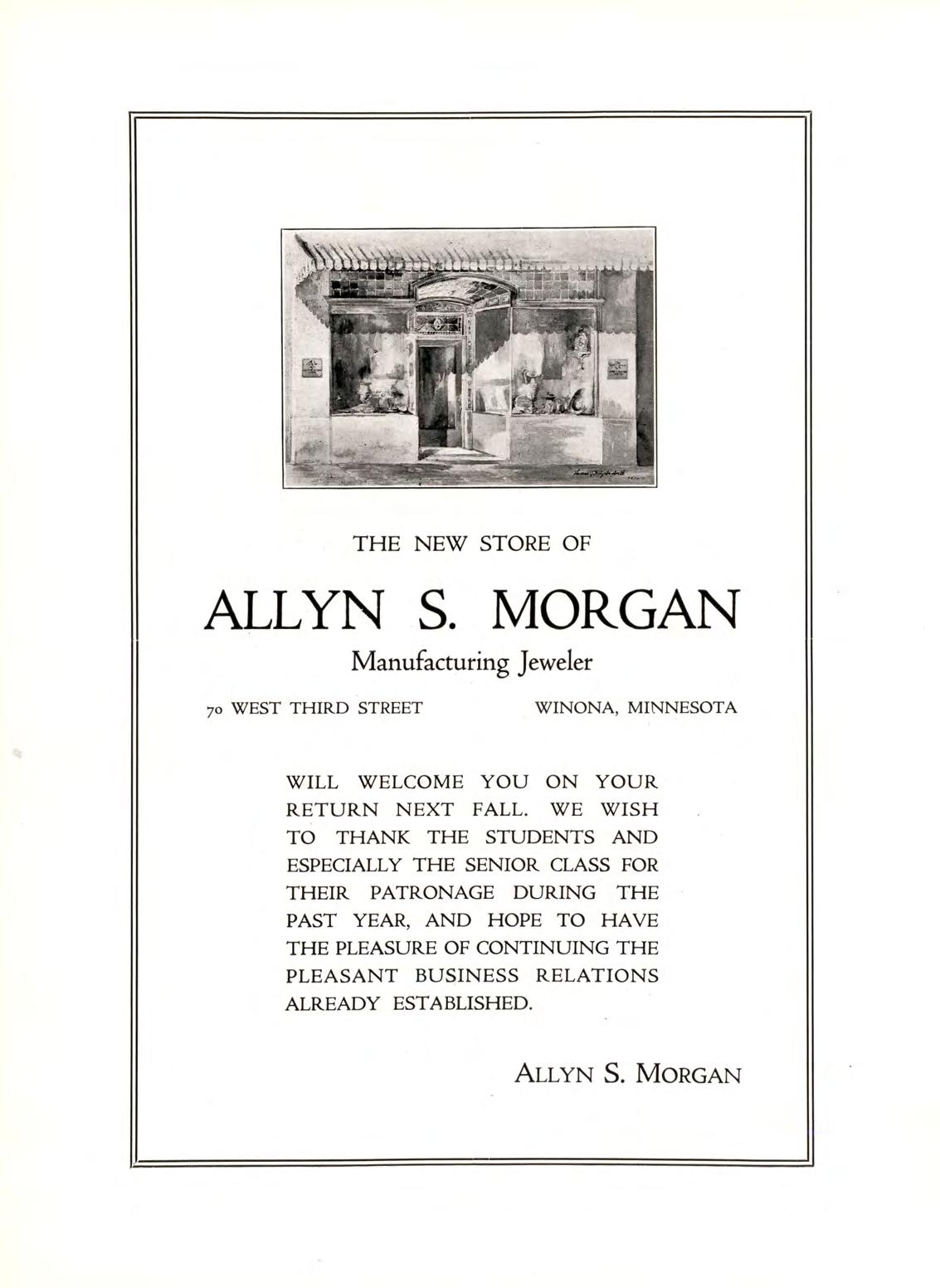
THE NEW STORE OF ALLYN
S. MORGAN
Allyn S. Morgan
cA
ii for pickles, or pie, take your choice, is for ice cream, it will make you rejoice, is for candy, stick, licorice or mint, for new onions, you may eat without stint, is for icing, on cookies and cake, is for cheese, and crisp lettuce you take. is for bacon to broil on the stick, is for apples, come take your pick, is for sandwiches, olive and nut, is for Krisp Krackers, already Kut. is for eggs, scrambled, fluffy and light, is for tid-bits, and your picnic’s hast right.
FIVE BEANS REWARD
For information leading to the arrest and conviction of the person eloping with Mr. Munson’s cat.
I met a deaf and dumb man today who had every joint in his fingers broken.”
“That is terrible. How did it happen?”
“Well, he used to crack jokes on his fingers.” —Ex.
The acme of politeness was reached by a mining superintendent, who placed a placard reading: “Please do not tumble down the shaft.” —Ex.
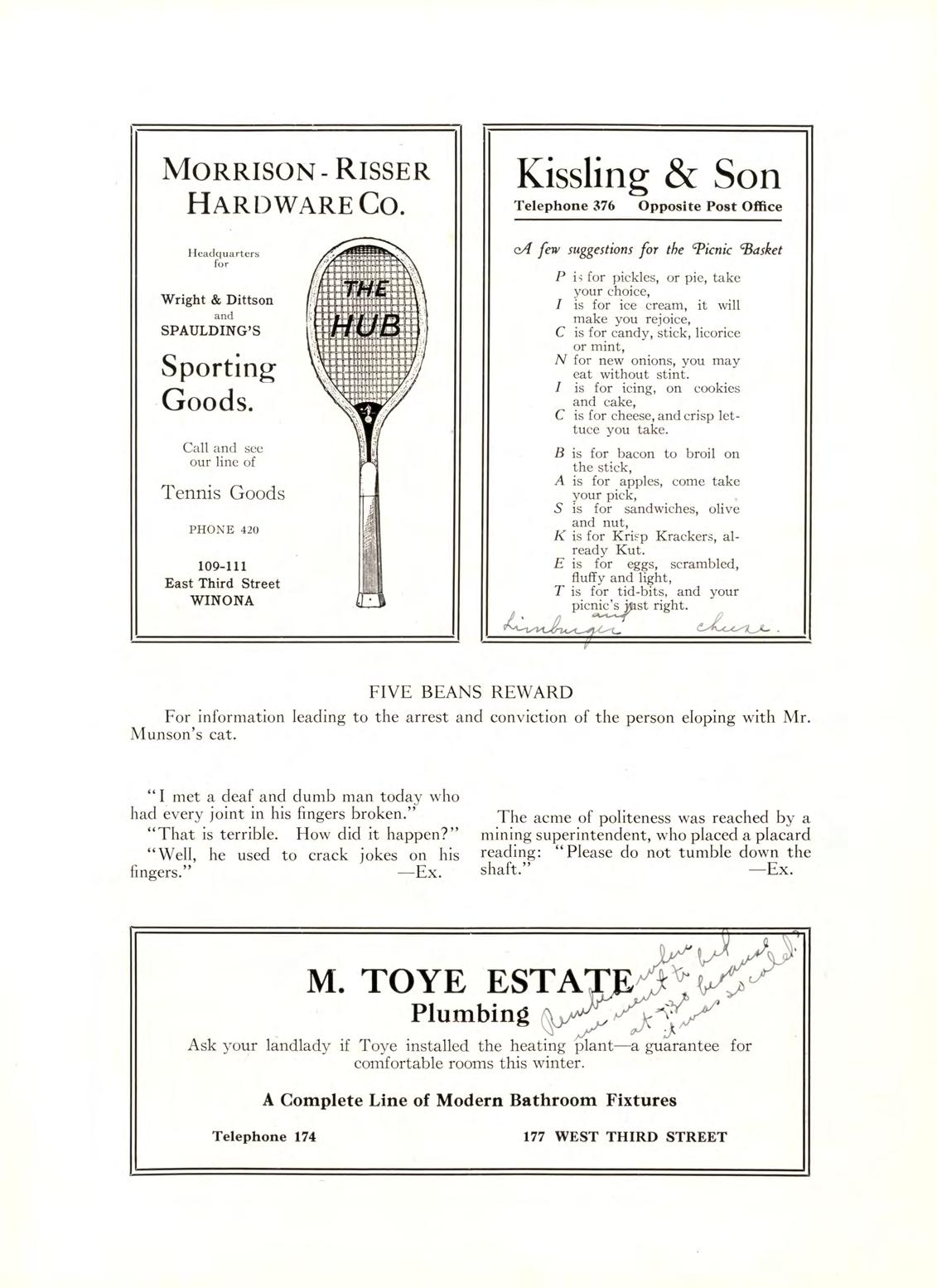
Hardware Co.
for Wright & Dittson and SPAULDING’S Sporting Goods. Call and see our line of Tennis Goods PHONE 420 109-111 East Third Street WINONA Kissling & Son
376 Opposite Post Office
Morrison-Risser
Headquarters
Telephone
P I C N I C B A S K E T
few suggestions for the ‘Picnic ‘basket
•\>* M. TOYE ESTATOOf Plumbing Ask your landlady if Toye installed the heating plant—a guarantee for comfortable rooms this winter. A Complete Line of Modern Bathroom Fixtures Telephone 174 177 WEST THIRD STREET
Winona Electric Construction Company

ALL ELECTRIC ACCESSORIES
We carry a large variety of Students Drop Lights
Repair work done promptly and satisfactorily
Telephone 1424
170 Center St.
Gertrude Rush (in office, getting an excuse)—“G. Rush.”
Miss Coûter (with dignity)—“Name, please.”
G.—“G. Rush.”
Miss Coûter—“Well, I heard you the first time—name, please.”
G.—“ Gertrude Rush.”
THE REEL STUEF (featuring a few of our normal stars)
Margaret Armstrong in “A Wisp of the West.”
Beth Benton in “Let Me But Soar.”
Miriam Aldrich in “Second Generation of Charlie Chaplin”—a la Stone Age Stuff.
Mamie Feely in “The Vampire.”
Marie Fietsam in “The Sleeping Beauty.”
Nora Johnson in “Flirtation.”
Harry Einhorn in “He’s a Devil in His Own Home Town.”
Mildred Fallon in “The Hawaiian Prineess.”
Little John took chemistry. Took it hard, poor lad! And he started tasting things (This tale is very sad).
Alas, poor little Johnny, Our Johnny is no more. For what he thought was H^O Was H2SO4. —Ex.
Miss Slifer, at class play rehearsal— Kurt the Syndic, come down here to Mary’s side.”
Kurt (justly puzzled)—“Which side?”
Miss S.—“Well—whichever one you can get around.”
NEW Q \/l O TT J- D. BURKE Soda Fountain O It JL AV JLl/ Prop. SHOP THE LATEST MAGAZINES Daily Newspaper Service from New York, Chicago and the Twin Cities.
No sweeter, more charming, more modern style could be designed than these adorable Betty Wales creations, ready to wear even to the dainty Kleinert Gem Dress Shields under the arms.
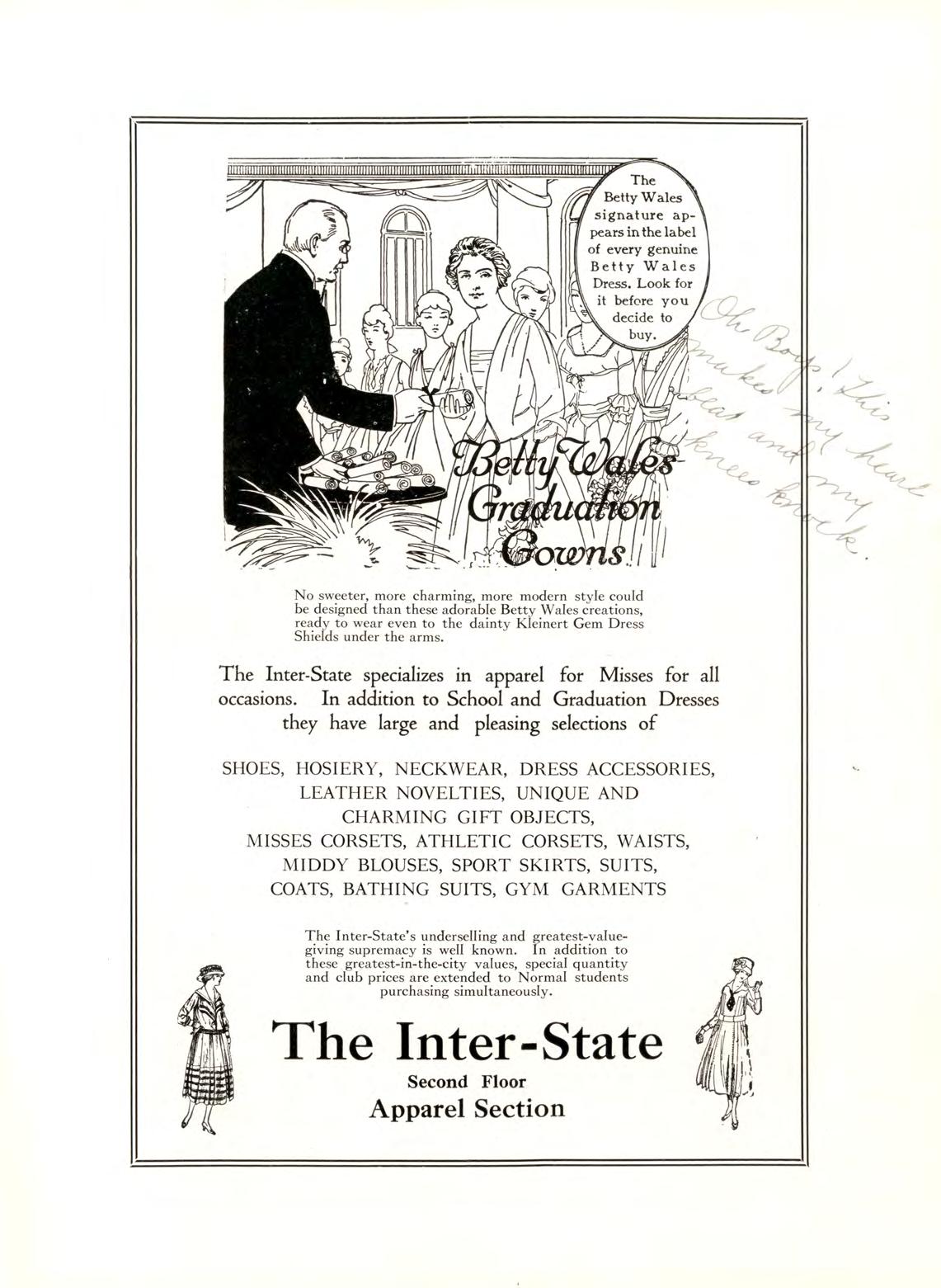
The Inter-State specializes in apparel for Misses for all occasions. In addition to School and Graduation Dresses they have large and pleasing selections of
SHOES, HOSIERY, NECKWEAR, DRESS ACCESSORIES, EEATHER NOVEETIES, UNIQUE AND CHARMING GIFT OBJECTS, MISSES CORSETS, ATHLETIC CORSETS, WAISTS, MIDDY BLOUSES, SPORT SKIRTS, SUITS, COATS, BATHING SUITS, GYM GARMENTS
The Inter-State’s underselling and greatest-valuegiving supremacy is well known. In addition to these greatest-in-the-city values, special quantity and club prices are extended to Normal students purchasing simultaneously.
The Inter-State Second Floor Apparel Section
EDWIN A. BROWN, PrescriptionDruggist
EASTMAN KODAKS KODAK SUPPLIES STATIONERY
Wc are glad to cast checks Jur studeiits
Cor. Main and Third Phone 411 loi West Third St.
It doesn’t mean an epitaph, It doesn’t mean a poison mark, It doesn’t mean a pirate flag. Nor yet a family secret dark— It means he’s slim. And tall, and thin.
ALFRED BEINHORN
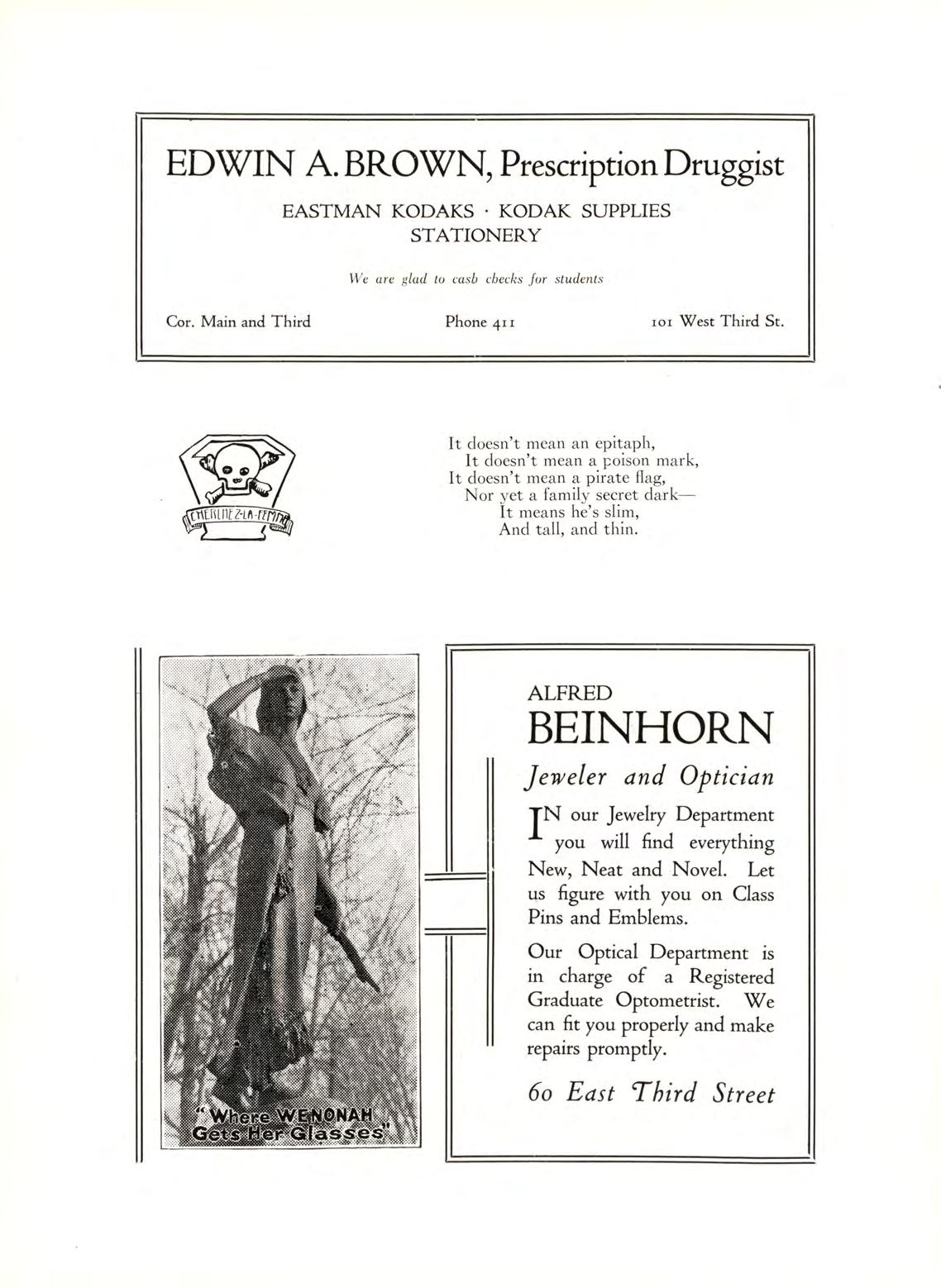
Jeweler and Optician
TN our Jewelry Department you will find everything New, Neat and Novel. Let us figure with you on Class Pins and Emblems.
Our Optical Department is in charge of a Registered Graduate Optometrist. We can fit you properly and make repairs promptly.
60 East Third Street
PHOTOGRAPHY A Clean Sweep Sale is Is Our Business—In All Its Now in Progress Branches
We invite the Normal Sehool Students to take advantage of the special rates offered them.
Our Studio is one of the best equipped in the Northwest and we will do our best to please you.
J.
The Photographer in Your Town
Unusual trade arrangements have made it possible to offer you values never befóte heard of.
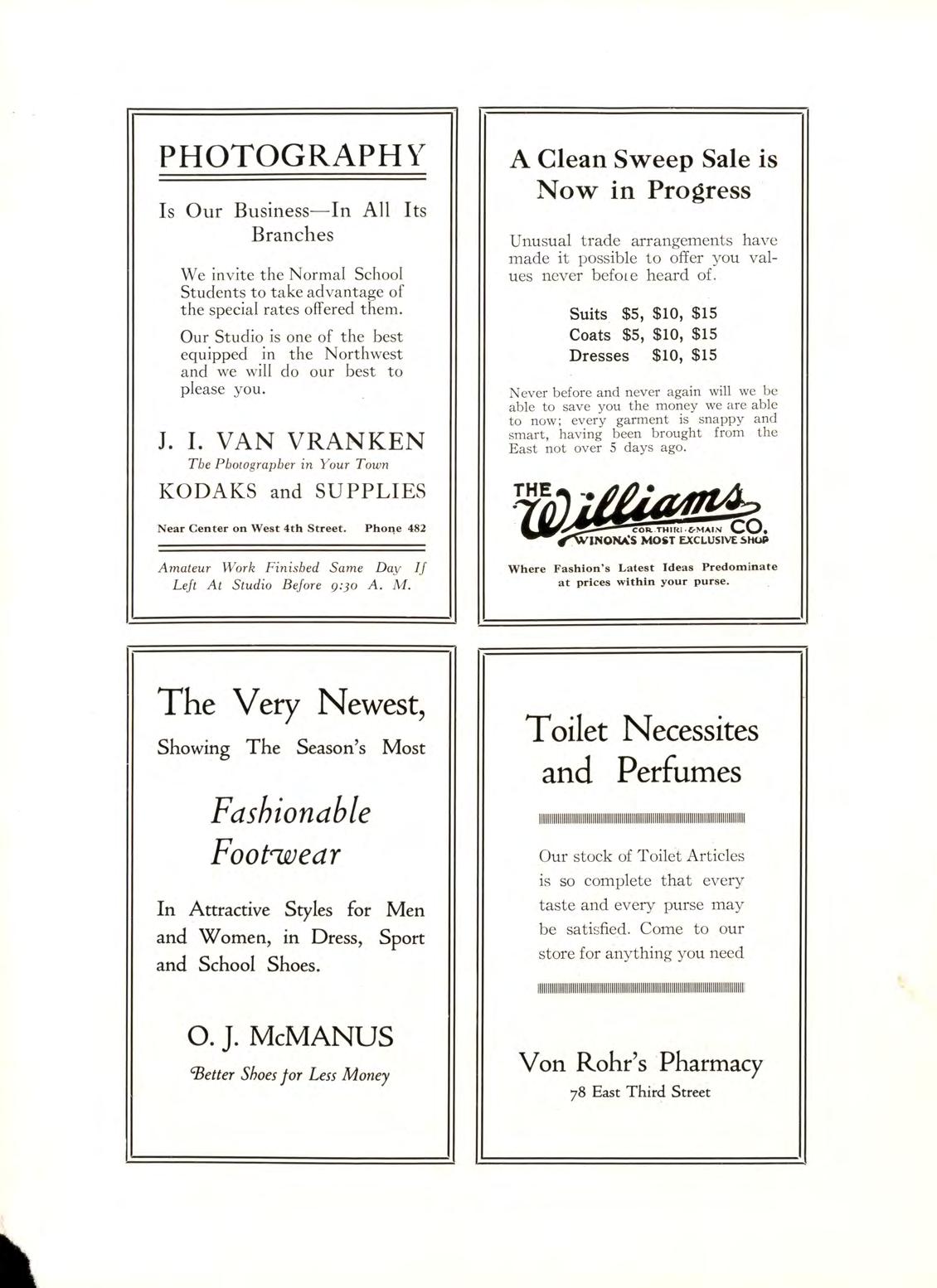
Suits $5, $10, $15
Coats $5, $10, $15
Dresses $10, $15
Never before and never again will we be able to save you the money we are able to now; every garment is snappy and smart, having been brought from the East not over 5 days ago.
Our stock of Toilet Articles is so complete that every
taste and every purse may be satisfied. Come to our store for anything you need lllllllllllllllllllllllllllllllllllllllllllllllllllllllllllllllllllllll^^^
I. VAN VRANKEN
KODAKS and SUPPLIES
Center on West 4th Street. Phorie 482 MOST EXCLUSIVE SHOP Amateur Work Finished Same Day If Left At Studio Before g:^o A. M.
Fashion’s Latest Ideas Predominate at prices within your purse. The Very Newest, Showing The Season’s Most Toilet Nécessités and Perfumes Fashionable
Foot-wear
Near
Where
llllllllllllllllllllllllllllllllllllllllllllllllllllllllllllllllllllllll^^
In Attractive Styles for Men and Women, in Dress, Sport and School Shoes.
O. J. McMANUS better Shoes for Less Money Von Rohr’s Pharmacy 78 East Third Street
See the beautiful lines on display at our store Rookwood and other choice Pottery, Pictures, Lamps and Art Novelties.
Our Pieture Framing is a credit where real art is appreciated.
Don’t fail to see our store for GIFTS.
HARDT’S ART AND GIFT SHOP
118 EAST THIRD ST.
Place—Winona, Minnesota. Time—Anytime. Scene—Busy thorofare—smoke-shop building in foreground—a number of chairs, tilted up against the curbing, are supporting various prominent members of the “Big League.” Normal girls are passing.
Art Tarras—“Doctor, do you think the cigarette habit affects the brain?”
Doctor—“That question can never be answered, for a man with brains has never been seen smoking one.”
Doris Goodsell (in a letter to her mother)—“I just paid a dollar and a half for my pink slip.”
Several weeks later: “Dear Doris:—Why don’t you send your pink slip home to be laundered?”
A Store For Your Convenieno
When at school, when you graduate, and after you have don with study and gone out into the world to keep house for some nice(?) man, or to make your own living by teachi the young idea how to sprout, you will need STATIONER and BOOKS and little novelties in Ivory, and Leather for gifts. You will need EN ING and TABLE DECORATIO FLOWER MAKING MATERIAL you DO need any of these things, use of this store.
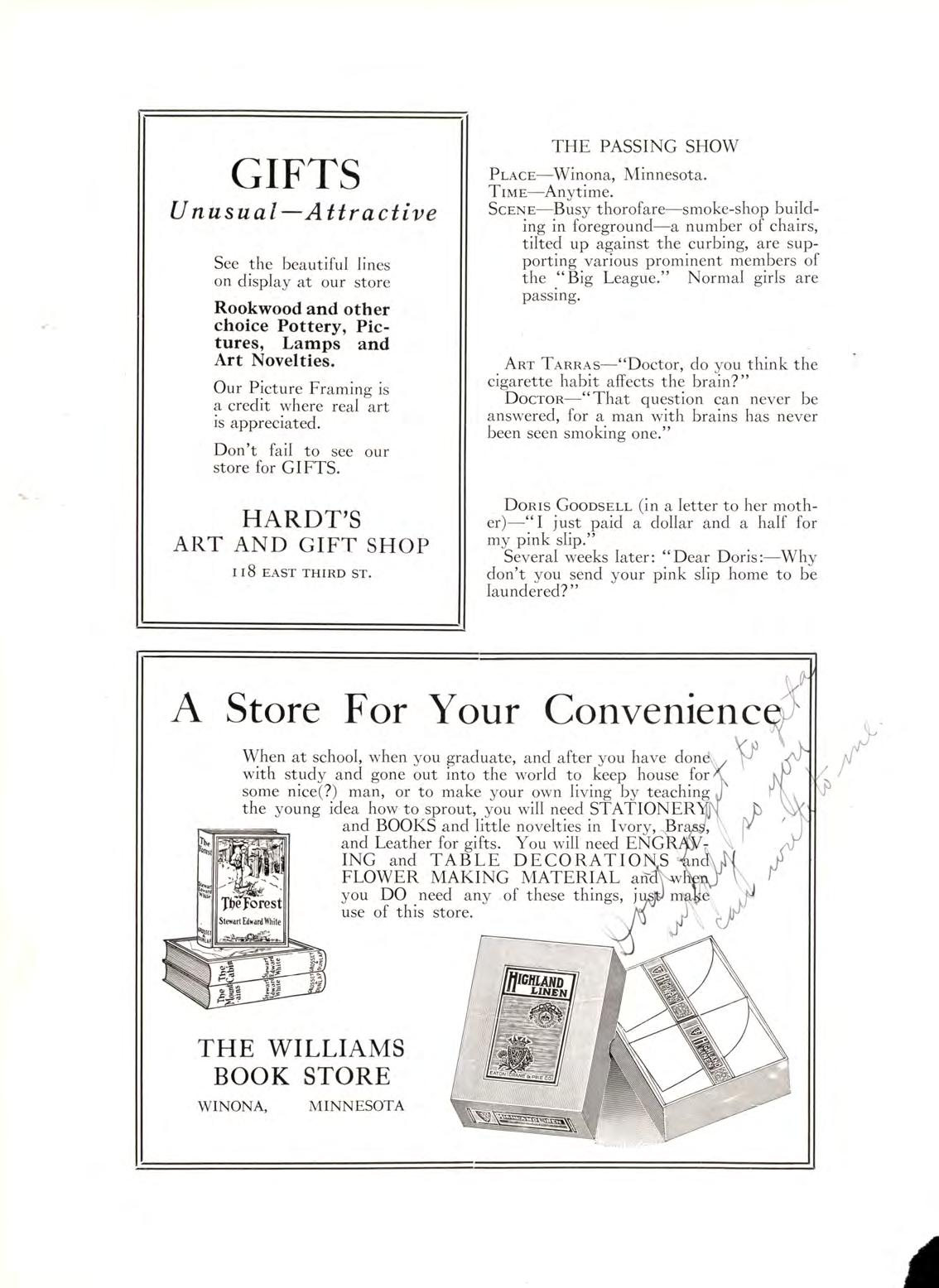
THE PASSING SHOW
GIFTS Unusual—Attractive
THE WILLIAMS book store WINONA, MINNESOTA
The Leicht Press PRINTERS
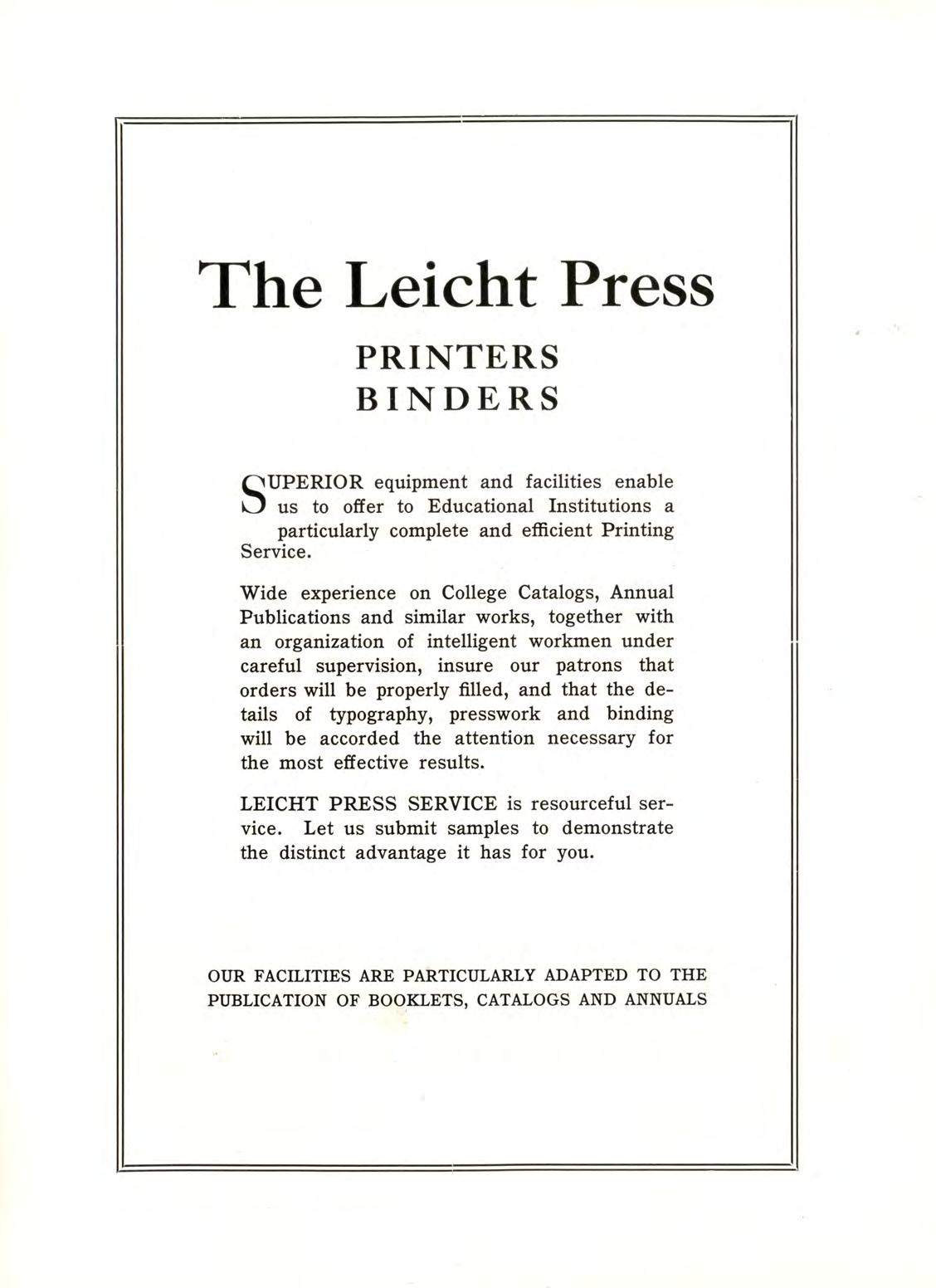
BINDERS
SUPERIOR equipment and facilities enable us to offer to Educational Institutions a particularly complete and efficient Printing Service.
Wide experience on College Catalogs, Annual Publications and similar works, together with an organization of intelligent workmen under careful supervision, insure our patrons that orders will be properly filled, and that the details of typography, presswork and binding will be accorded the attention necessary for the most effective results.
LEICHT PRESS SERVICE is resourceful service. Let us submit samples to demonstrate the distinct advantage it has for you.
OUR FACILITIES ARE PARTICULARLY ADAPTED TO THE PUBLICATION OF BOOKLETS, CATALOGS AND ANNUALS
Dr. Dick—“ I think in a co-educational school like this a course in courtship should be offered.”
Interested Student—“Who would teach it?”
Another Interested Student—“Would it be illustrated?”
Teacher—“Substitute one word for a phrase.”
Bright Junior—“Her writing could not be read. When one word is substituted for a phrase it reads: ‘The writing was inedible.’
WINONA MOTOR COMPANY
Telephone 814
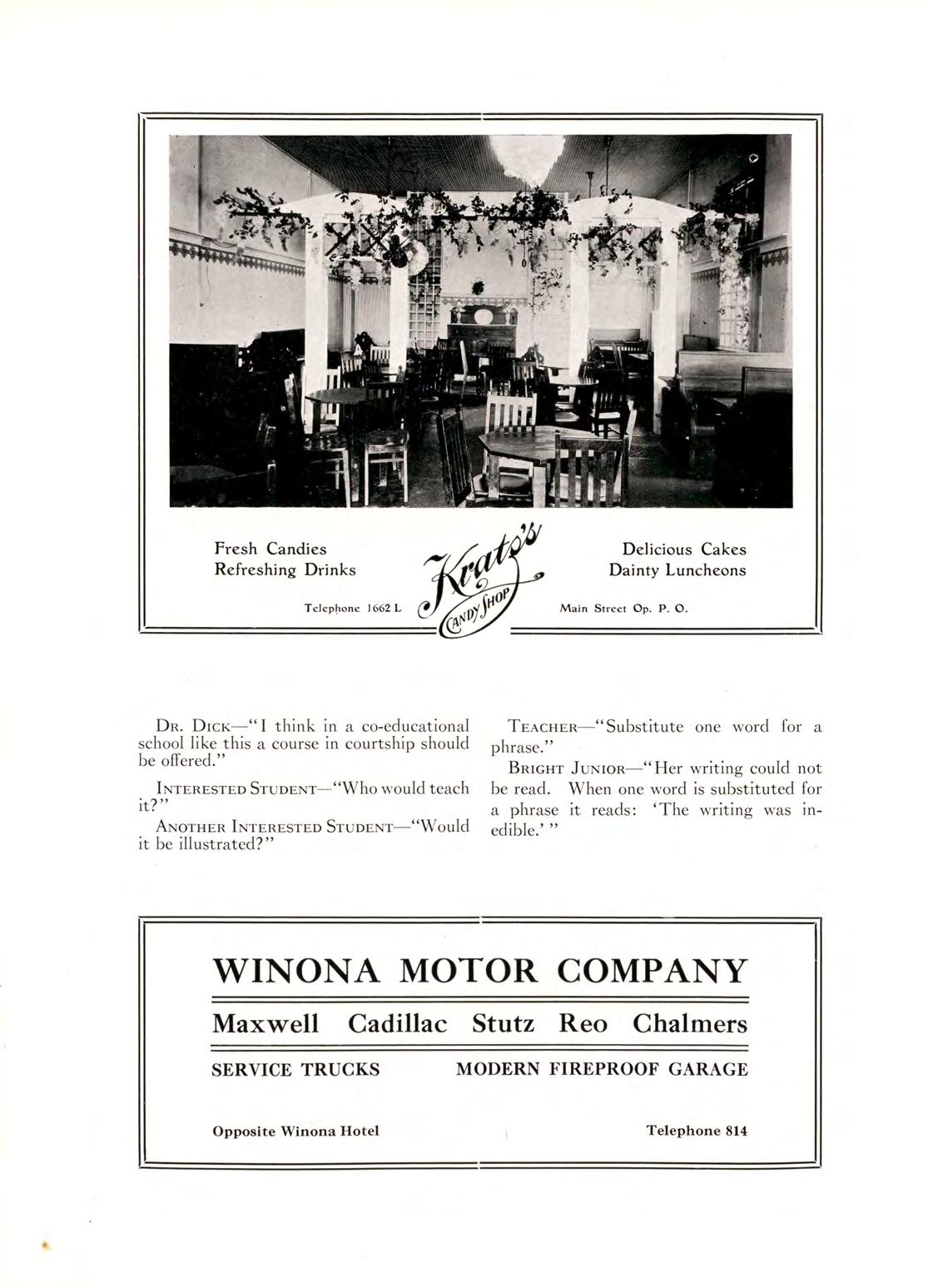 Maxwell Cadillac Stutz Reo Chalmers SERVICE
Maxwell Cadillac Stutz Reo Chalmers SERVICE
TRUCKS MODERN FIREPROOF GARAGE
Opposite Winona Hotel
Mr. Gaylord (reading announcement in chapel)—“The new swimming class will meet in the poolroom.”
“Will the faculty member who has Chas. Considine’s pink slip please turn in once.”
CICHANOWSKI
^xclusiue ¿Mill,inery
IMPOSSIBLE FEAT
Miss Samson (to one of her Junior Physical Ed. classes)—“When I give the command, ‘Halt!’ you bring the foot which 's on the floor to the side of the one which is in the air, and remain motionless.”
You are cordially invited to insped; our hats smart models for street wear and more elaborate ones for dressy occasions.
Our prices are Reasonable
Shoes for all Occasions
Never before has this store had such a wide and beautiful selection of Styles in boots and pumps ^ fjpt'' ^ discriminating women These advance styles exclusive product of
“JOHN KELLY”
for whose exquisite footwear we have the exclusive sale in Winona. In the window will be seen the new models Shoes for dress, dinner, dance, shopping—for all occasions.
Price $4.00 to $6.00
BAKER & STEINBAUER
“GOOD SHOES’’
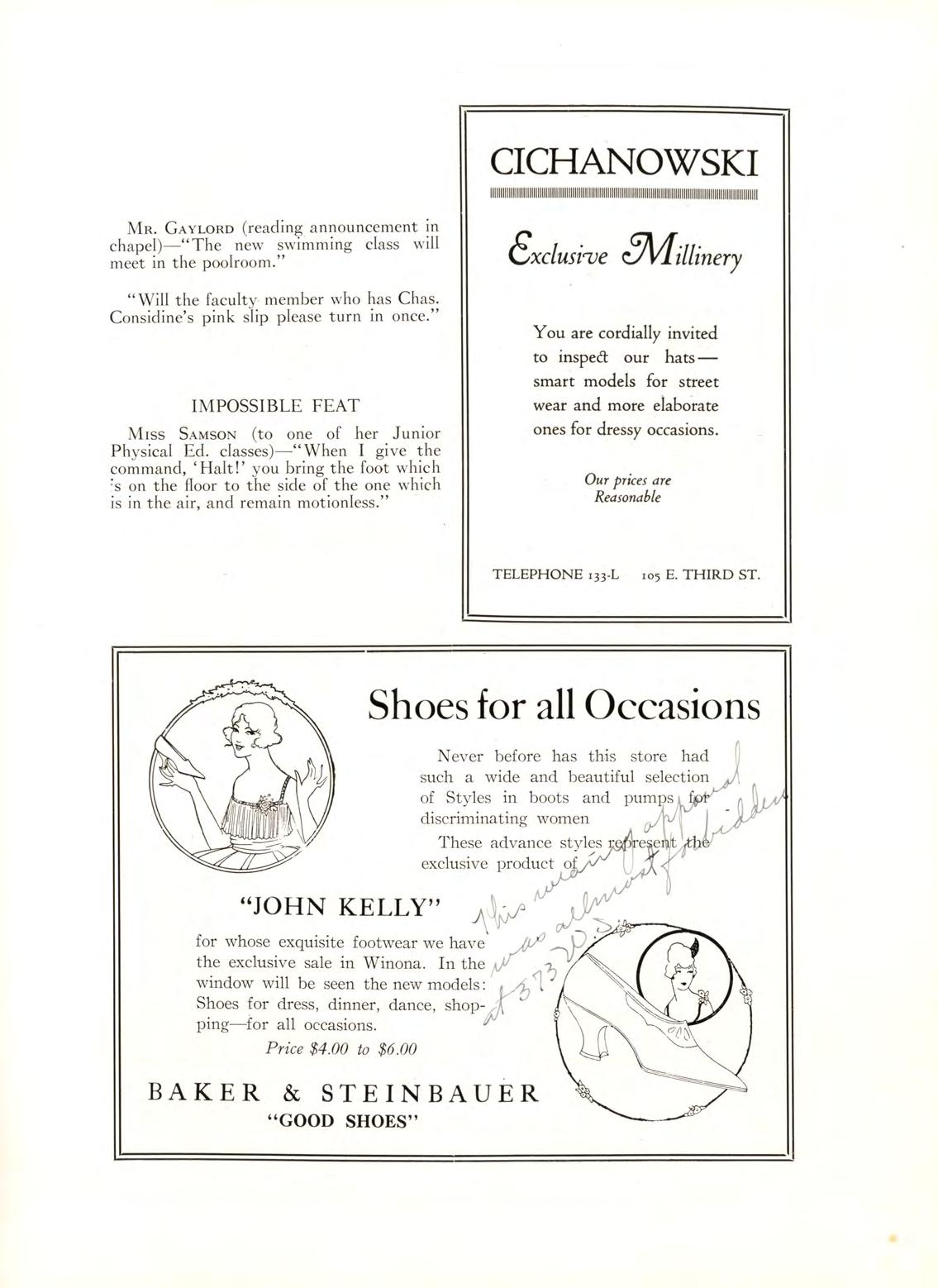 TELEPHONE 133-L 105 E. THIRD ST.
TELEPHONE 133-L 105 E. THIRD ST.
H. B. KLINE ELECTRICAL SUPPLIES
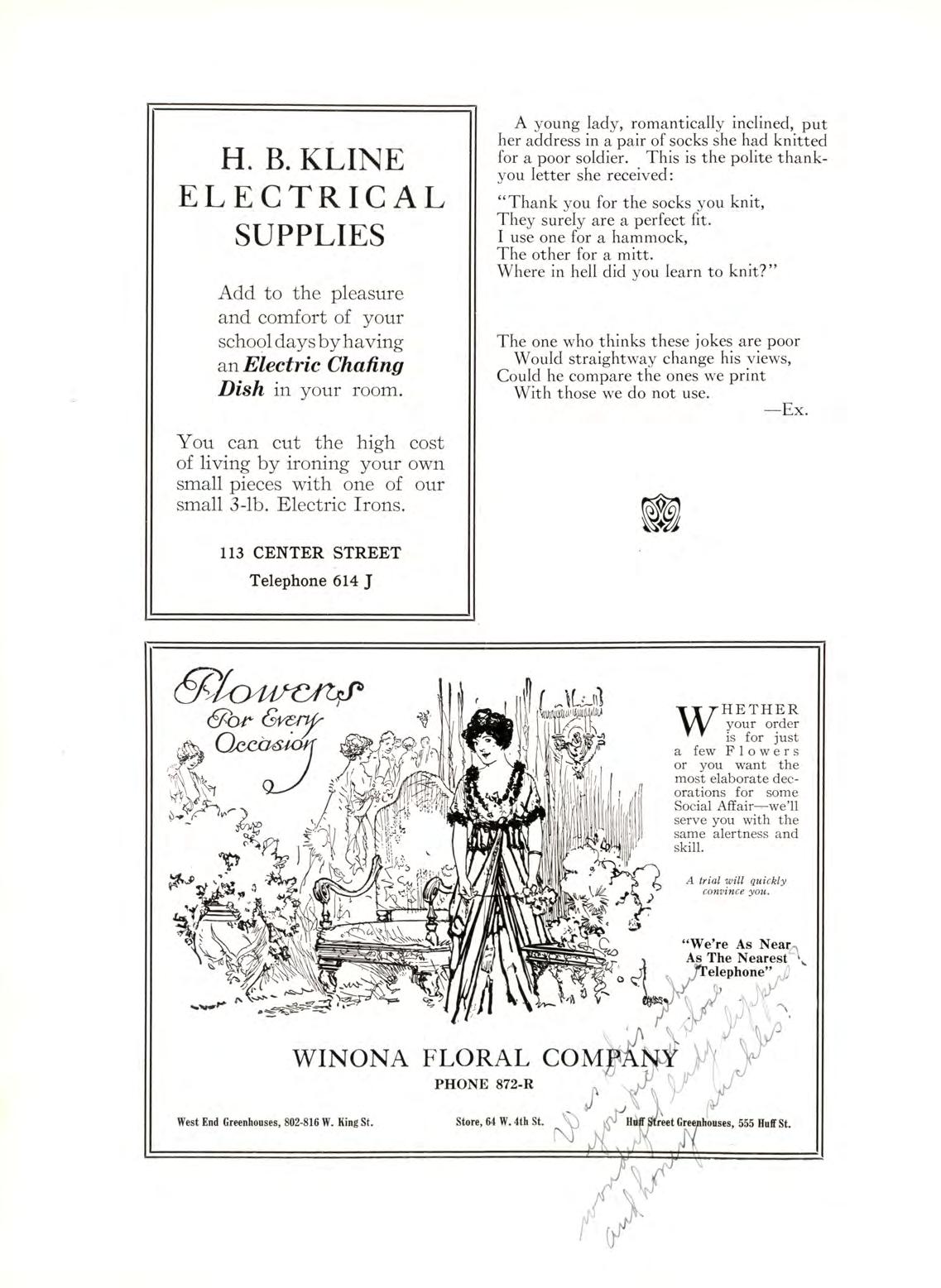
Add
A young lady, romantically inclined, put her address in a pair of socks she had knitted for a poor soldier. This is the polite thankyou letter she received:
“Thank you for the socks you knit. They surely are a perfect fit. I use one for a hammock. The other for a mitt. Where in hell did you learn to knit?”
The one who thinks these jokes are poor Would straightway change his views. Could he compare the ones we print With those we do not use. —Ex.
You
113 CENTER STREET
Telephone 614 J
WHETHER your order is for just a few Flowers or you want the most elaborate decorations for some Social Affair—we’ll serve you with the same alertness and skill.
A trial will quickly convince you. “We’re As Near^ As The Nearest \ JTelephone” J
■
to the pleasure and comfort of your school daysbyhaving an Electric Chafing Dish in your room.
can cut the high cost of living by ironing your own small pieces with one of our small 3-lb. Electric Irons.
Ê Qcco^À>/j WINONA FLORAL COM
y
West End Greenhouses, 802-816 W. King St. PHONE 872-R Store, 64 W, / .x\ .4th St. Huff afreetGree;ihouses, 555 Huff St.
H. CHOATE & CO.
Featuring and Specializing High Grade Merchandise
“ALL THAT’S NEW” “ALWAYS HERE FIRST” AT VERY MODERATE PRICES
Dress Goods
Silks
Trimmings
Wash Goods
White Goods
Linens, Gloves
Neckwear
Hosiery
Corsets
Toilet Goods
Art Goods
Lingerie and
Underwear
Women’s Suits and Coats
Dress Skirts
Waists
Millinery, Rugs
Draperies
Wall Paper
Window Shades
Trunks
Traveling Bags and Suit Cases
YOU CAN ALWAYS DO BETTERAT CHOATES’
THINGS THAT NEVER HAPPEN
Study hours closing at 3 P. M, in the assembly room.
Society Hall—the scene of our popular Saturday night dances.
A tour of the Western States by the Normal Men’s Glee Glub.
Mrs. Ghorpenning’s talk—really intelligible.
Mr. Zepp—Pirst lieutenant in the machine gun section.
Enlist Now!
Volunteers wanted in the “Black Watch” —to take Normal girls motoring.
Before Exams—
Lord God of Hosts, be with us yet, Lest we forget, lest we forget!
After Exams—
Lord God of Hosts was with us not. Por we forgot, for we forgot! —Ex.
We Call Special Attention to Our Prescription Department
It cannot be excelled anywhere. We guarantee accuracy and use only the most reliable drugs. All prescriptions will be filled precisely as written. You will get from us just what your physician prescribes, prepared with pharmaceutical skill.
Our ¿Motto: S^ality is of First Importance.
Wm. A. Hargesheimer DRUGGIST
50 West Third Street
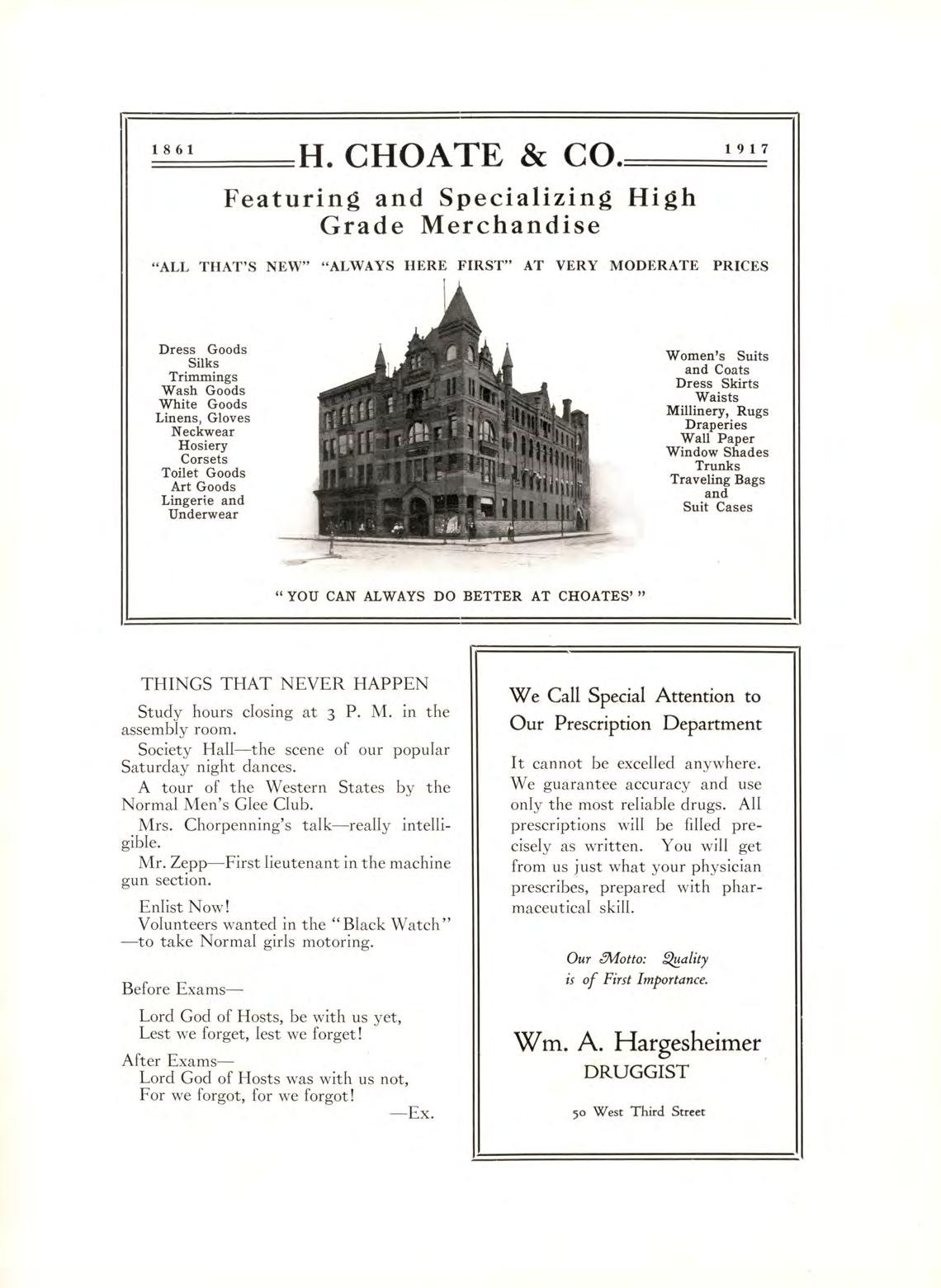
Fulton Market
“The Sanitary Shop’’ Air Cooled Refrigerating System
We always have the best Little Pig Sausages
Sweet Hickory Smoked Ham Well Streaked Bacon Tender Juicy Steaks
For your Picnics Fish Poultry Telephone 142, 121 West Third
There are stockings to darn, But Gen will just smile, And “close up the holes,” And play cards a while.
MODERN PROVERBS
When in Rome, do as the Dagos do.
The early worm gets caught.
The bird in the hand is yelling, but the two in the bush are silent.
Where there’s a will, there’s a lawsuit.
Eat, drink, and be merry, for tomorrow you diet.
Think twice before you speak, then keep still.
If at first you don’t succeed, become a politician. —Ex.
MAKE A CEDAR CHEST
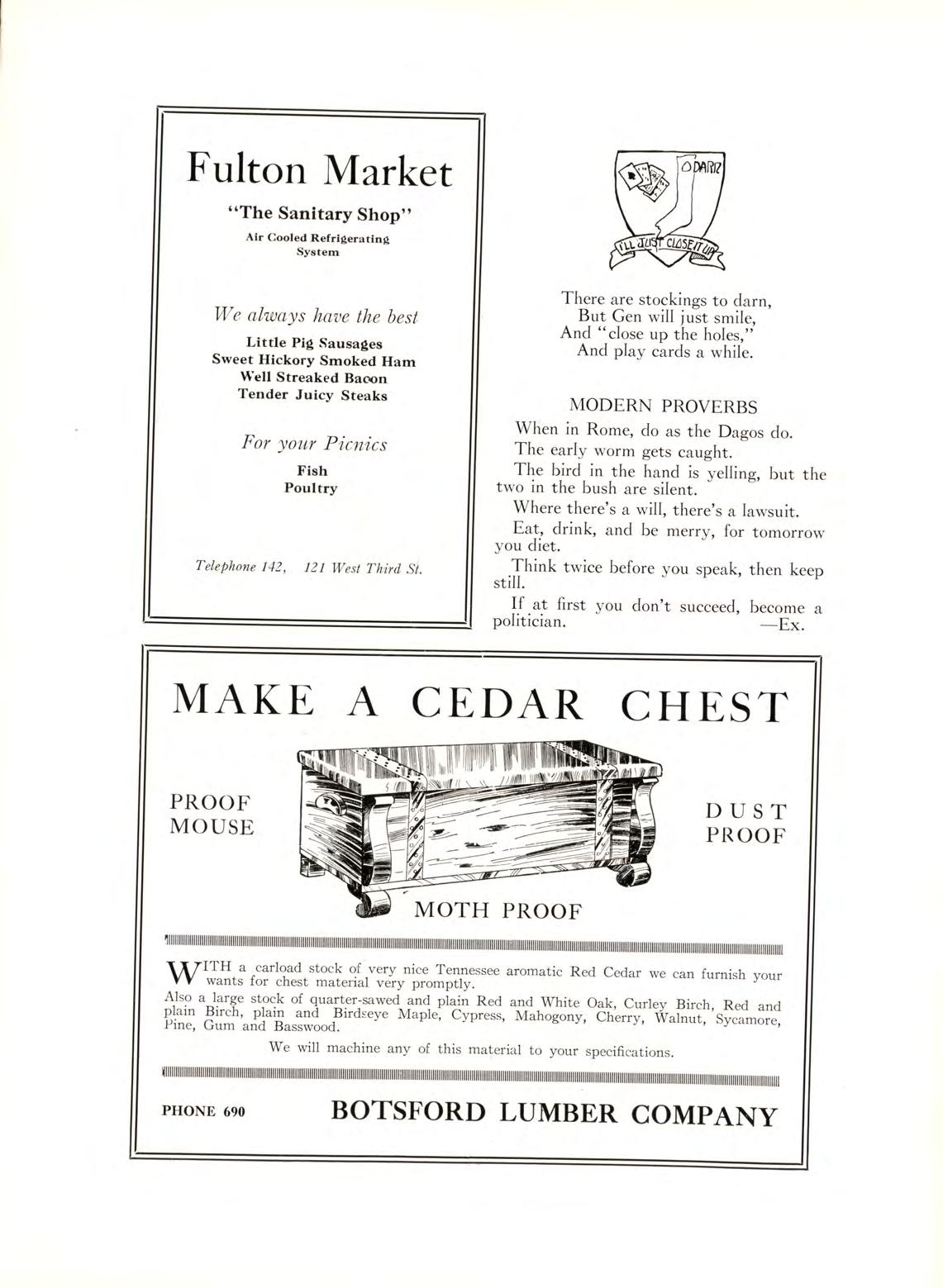
PROOF MOUSE DUST PROOF
WITH a carload stock of very nice Tennessee aromatic Red Cedar we can furnish your wants for chest material very promptly. Also a large stock of quarter-sawed and plain Red and White Oak, Curley Birch, Red and plain Birch, plain and Birdseye Maple, Cypress, Mahogony, Cherry, Walnut, Sycamore, Pine, Gum and Basswood.
We will machine any of this material to your specifications.
PHONE 690
St.
BOTSFORD LUMBER COMPANY
Le Page Shoe Co.
Men s and Women s Serviceable Walking Boots, Dress, School and Sport Shoes
Now that the war and high prices are upon us, you will have to have the shoes resoled an extra time. We do the best repair work in the city. TELEPHONE
Mary (overhearing half of a telephone conversation) “What is Iva talking about?’’
Nan (glibly)—“Oh, she’s kidding the money right out of some poor boob’s pocket!’’
Molly (visiting friends at Morey Hall, 12 P. M.)—“Who do you suppose told?’’
Jeannette—“The shoe has a tongue, but it’ll never tell.’’
Molly—“Maybe the bells tolled on us.’
Master Service
THAT IS WHAT YOU
Scfigffew cleaning WORIS
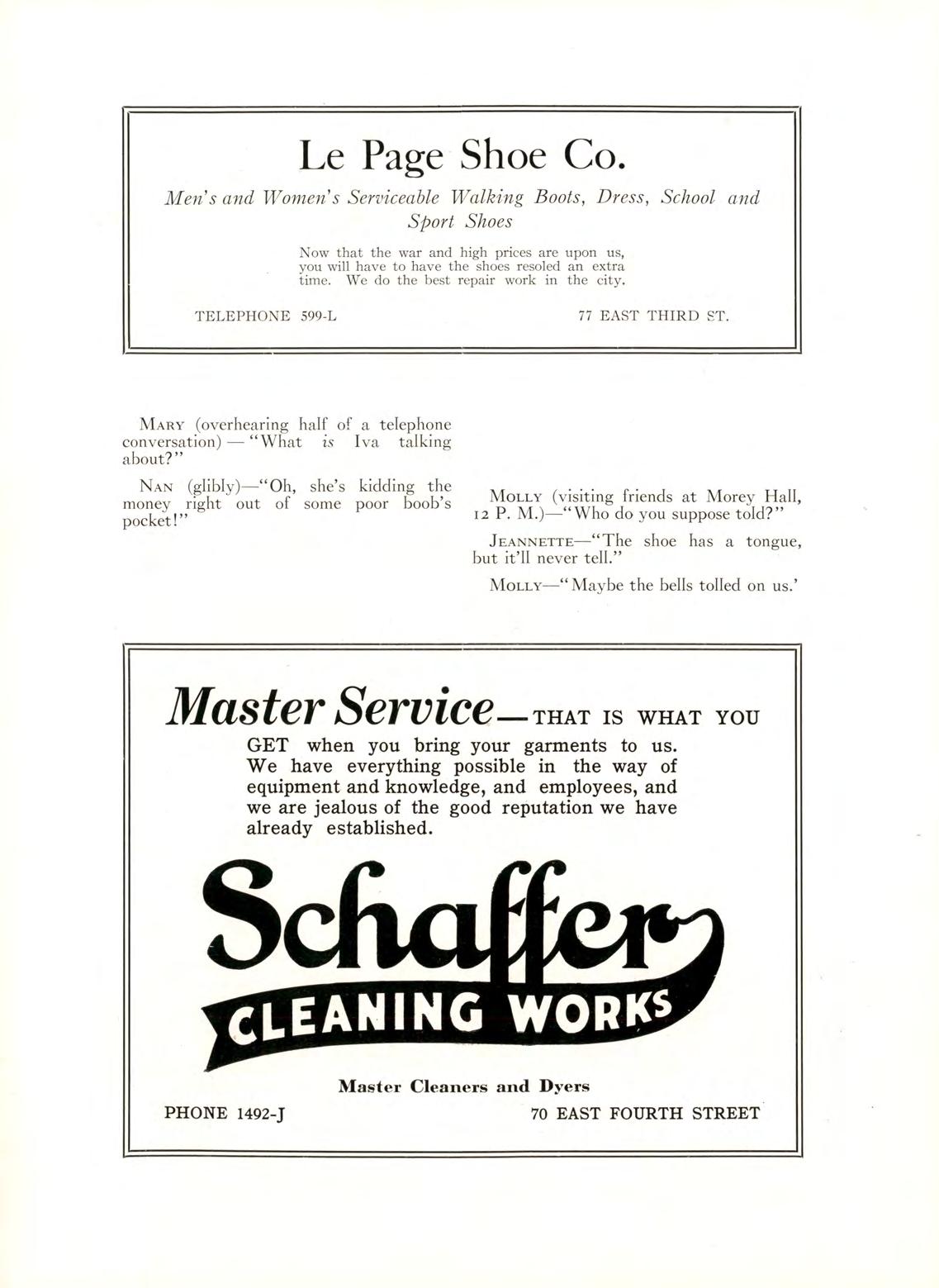
599-L 77 EAST THIRD ST.
GET when you bring your garments to us. We have everything possible in the way of equipment and knowledge, and employees, and we are jealous ofthe good reputation we have already established.
Master Cleaners and Dyers PHONE 1492-J 70 EAST FOURTH STREET
WRUCK & GATES
“FOOT-FITTERS”
K. Olson—“ It’s the worst problem ever to try to make a date in this school!”
Miss Smith (assigning Chapel seats)— “Now this little girl may go to H-y, and Miss Brown may go to L-2.”
gACH season finds this store wide awake with new models in FOOTWEAR whose novelty effects are surprisingly good to look upon.
Miss Richards (to Leitha Davidson, while taking down the flag which was on a bamboo pole)—“Oh, excuse me, did I hit your head? I heard such a dull hollow sound!”
hesitate to send us your Wool or Silk Sweater. We wash them carefully by hand. They neither shrink nor fade.
We have a Hand Work Department in which we handle all kinds of Lingerie and dainty garments.
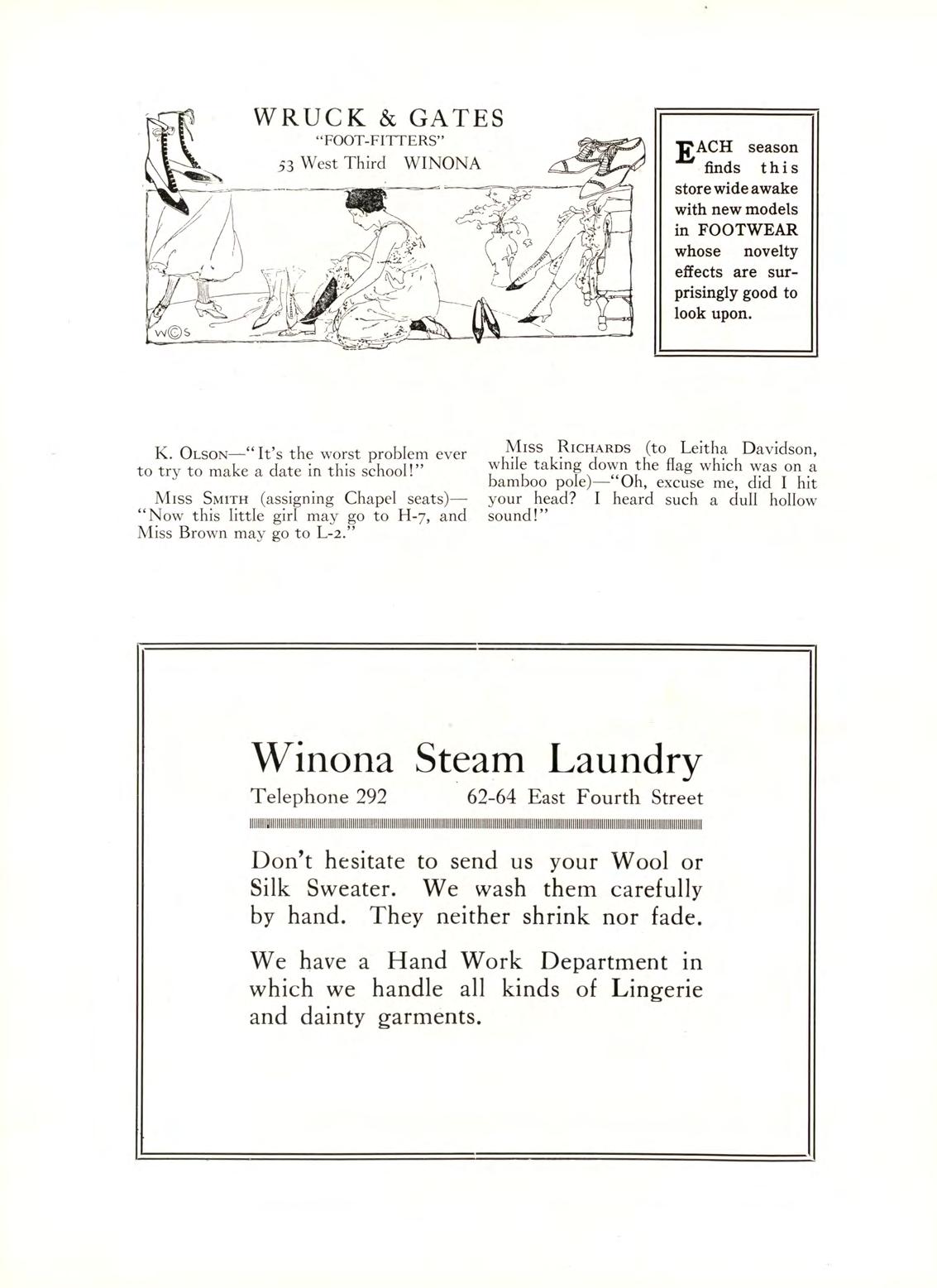
Winona Steam Laundry Telephone 292 62-64 East Fourth Street iiiiiiiiyiiiiiiiiiiiiyiiiiiiiiiiiiiiiiiiiiiiiiiiiiiiiiiiiiiiiiiiiiiiiiiiiiiiiiiiiiiiiiiiiiiiiiiiiiiiiiiiiiiiiiiiiiiiiiiiiiiiiiiiiiiiiiiiii^^
Don’t
Irma—the eternal question.
“Wireless telegraphy is a wonderful thing.” It is.”
“They don’t use any wire at all?”
“No; they send the messages thru the air.
;;My!”_
“Yes, right thru the air.”
“Say, Sam “Well?”
“How do they fasten the air to the poles? ? ? ??
I. Sykes, in Geography—“Cattle, in addition to other grains, are raised.”
Mr. Maxwell, reading from an article in Chapel—“This article was written by Mr. Starch.”
Brilliant girl to her seat mate—“He must be an old stiff!”
If ignorance is bliss, how happy some of the W. N. S. hunkers must be! !
“What are you talking about, Edith?” Festival.”
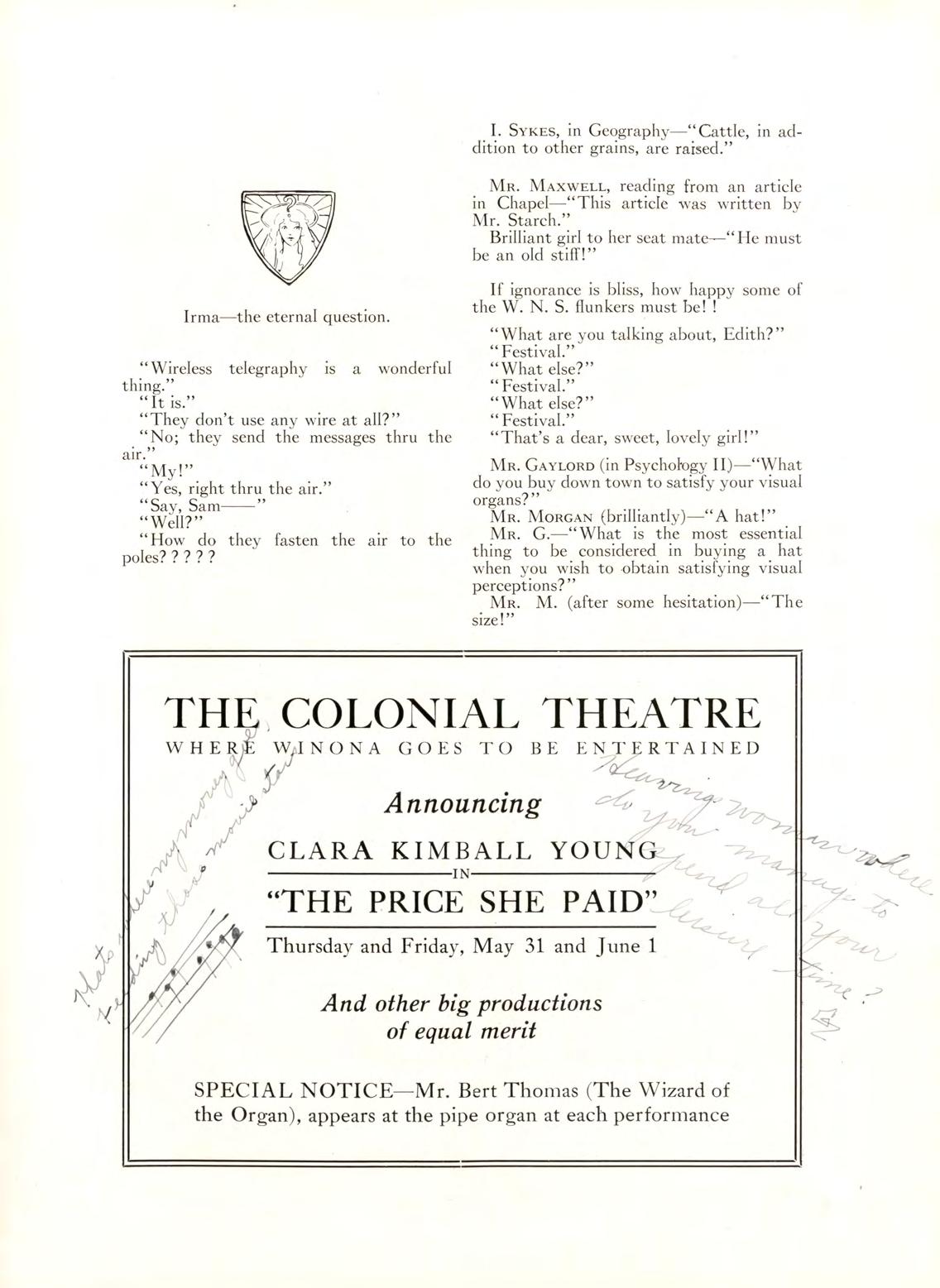
“What else?” Festival.”
“What else?” Festival.”
“That’s a dear, sweet, lovely girl!”
Mr. Gaylord (in Psychology 11)—“What do you buy down town to satisfy your visual organs?”
Mr. Morgan (brilliantly)—“A hat!”
Mr. G.—“What is the most essential thing to be considered in buying a hat when you wish to obtain satisfying visual perceptions?”
Mr. M. (after some hesitation)—“The Size!
colonial THEATRE H E RyÉ ■/ WHERE W/.INONA GOES TO BE E £ R T A I N E D Announcing ^ CLARA KIMBALL YOUNG -IN/ if" “THE PRICE SHE PAID” r //A Thursday and Friday, May 31 and June 1 And other big productions of equal merit special notice—M r. Bert Thomas (The Wizard of the Organ), appears at the pipe organ at each performance
THE.
Ladies and Gentlemen, we are experts in cleaning and reblocking bats—panama, straw, felt, etc. We also clean and dye all kinds of shoes. Phone 1746-L.
Winona Hat and Cleaning Works And Shoe Shining Parlors 119 East Third Street
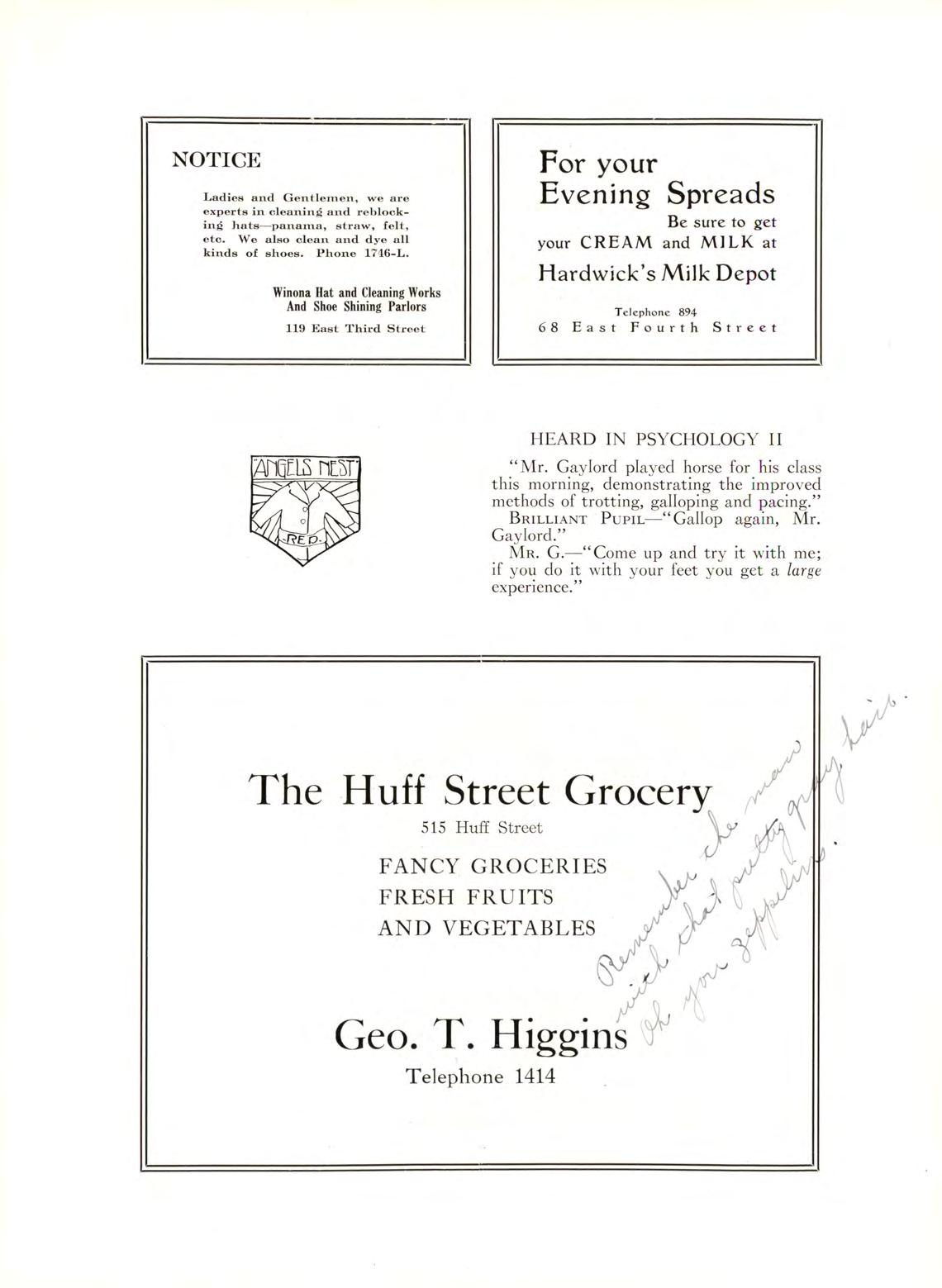
For your Evening Spreads
Be sure to get your CREAM and MILK at Hardwick’s Milk Depot
Telephone 894 68 East Fourth Street
HEARD IN PSYCHOLOGY 11
“Mr. Gaylord played horse for his class this morning, demonstrating the improved methods of trotting, galloping and pacing.”
Brilliant Pupil—“Gallop again, Mr. Gaylord.”
Mr. G.—“Come up and try it with me; if you do it with your feet you get a large experience.”
NOTICE
Make The Store of BAILEY & BAILEY
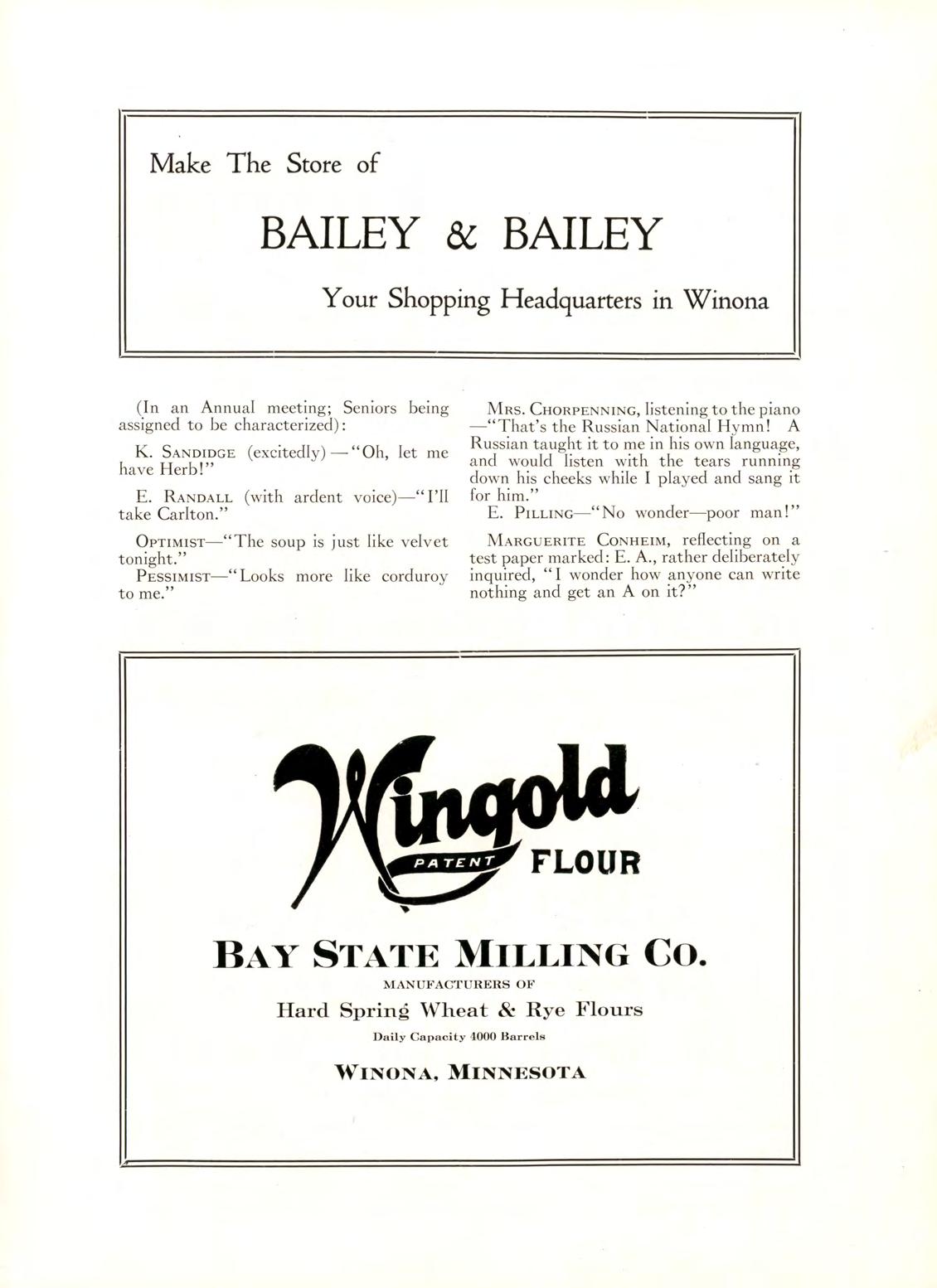
Your Shopping Headquarters in Winona
(In an Annual meeting; Seniors being assigned to be characterized) :
K. Sandidge (excitedly)—“Oh, let me have Herb!”
E. Randall (with ardent voice)—“I’ll take Carlton.”
Optimist—“The soup is just like velvet tonight.”
Pessimist—“Looks more like corduroy to me.”
Mrs. Chorpenning, listening to the piano —“That’s the Russian National Hymn! A Russian taught it to me in his own language, and would listen with the tears running down his cheeks while I played and sang it for him.”
E. Pilling—“No wonder—poor man!”
Marguerite Conheim, reflecting on a test paper marked: E. A., rather deliberately inquired, I wonder how anyone can write nothing and get an A on it?”
Bay State Milling Co. manufacturers of Hard Spring Wheat & Rye Flours Daily Capacity 4000 Barrels Winona, Minnesota
FOR EXGLUSIVF STYLES IN COATS, SUITS AND WAISTS AT POPULAR PRICES
Go to the Fashion

They were demonstrating the apparent motion of the sun in Geography III.
Mr. S.—“Who shall we have to be our sun.'
Student—“The brightest one, of course.”
Did you get your change, Miss Ensfield?
A company was out motoring across the lake and observing the host of gulls on the ice.
One of the Party—“I wonder if those gulls lay their eggs on the ice?”
Another—“Well, if they do it would be cold storage.”
WINONA’S ONLY EXCLUSIVE LADIES READY-TO-WEAR STORE Telephone 615 Î/! ^ West Third St.' ^ ^/
The Geo. Hillyer Furniture Company FURNISHERS OF HOMES COMPLETE FURNITURE Rugs, Draperies, China, Cut Glass, Pictures, Etc.
FELLOWS—
the little store on the corner.
9th and Huff Streets
Shoe Repair Shop
Bring us your shoes. We mend them quickly and well.
Discussion of child’s collectiveinstinets in MissSutherland’s Theory of Ed. class. Student (elaborating on what they like to collect)—“Stamps, bird’s eggs, pictures
Miss S.—“Well but stick to your stamps.”
Heard in Staff meeting, considering the best one to write up the Tri-Sigma’s affairs from the following; Marion Wheeler, Louise Joyce, Sivie Kroon, Leo Ryan.
K. Sandidge (decisivefy) “Any of those girls would be good but Leo.”
;
TKe Star Spaiîgled Banner
A message of inspiration to all true Americans, and the first of McCormack’s records after he became an American citizen.
Little Boy Blue
Probably the most popular singer who ever sang into the hearts of the people.
John McCormack
Call And Hear These McCormack Records,
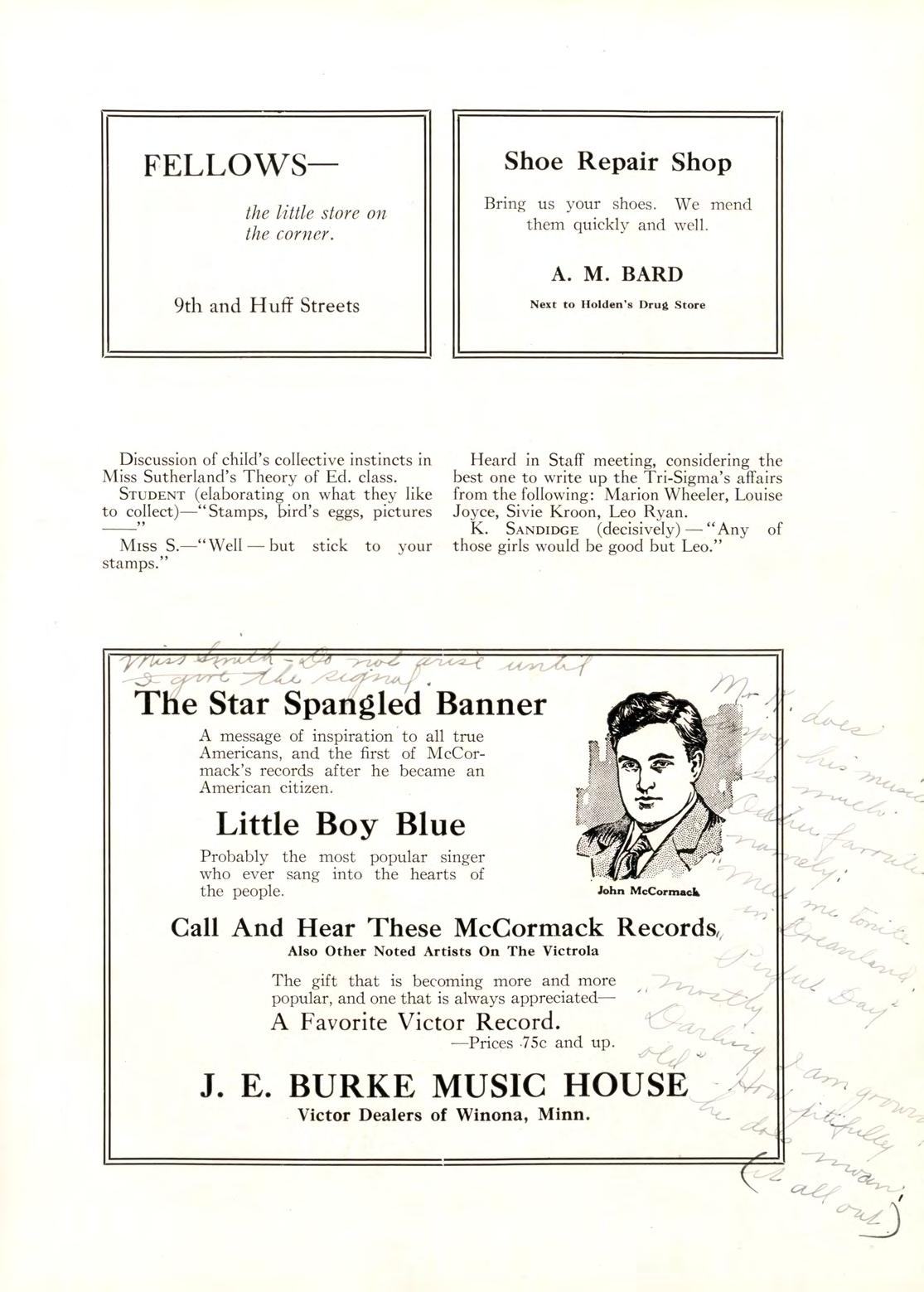
Also Other Noted Artists On The Victrola
The gift that is becoming more and more y popular, and one that is always appreciated— A Favorite Victor Record. ^ í
■—Prices -75c and up.
J. E. BURKE MUSIC HOUSE
Victor Dealers of Winona, Minn. A,
A. M. BARD
Next to Holden’s Drug Store
-
-'V
“TO
We couldn’t say all the things we wanted to about Miss Slifer, because she gave us a dollar not to. But Mary Weida wouldn’t give us one cent!
D. R. (in Junior meeting, deciding a day on which to have picture taken)—“All right, then, no meet Friday.”
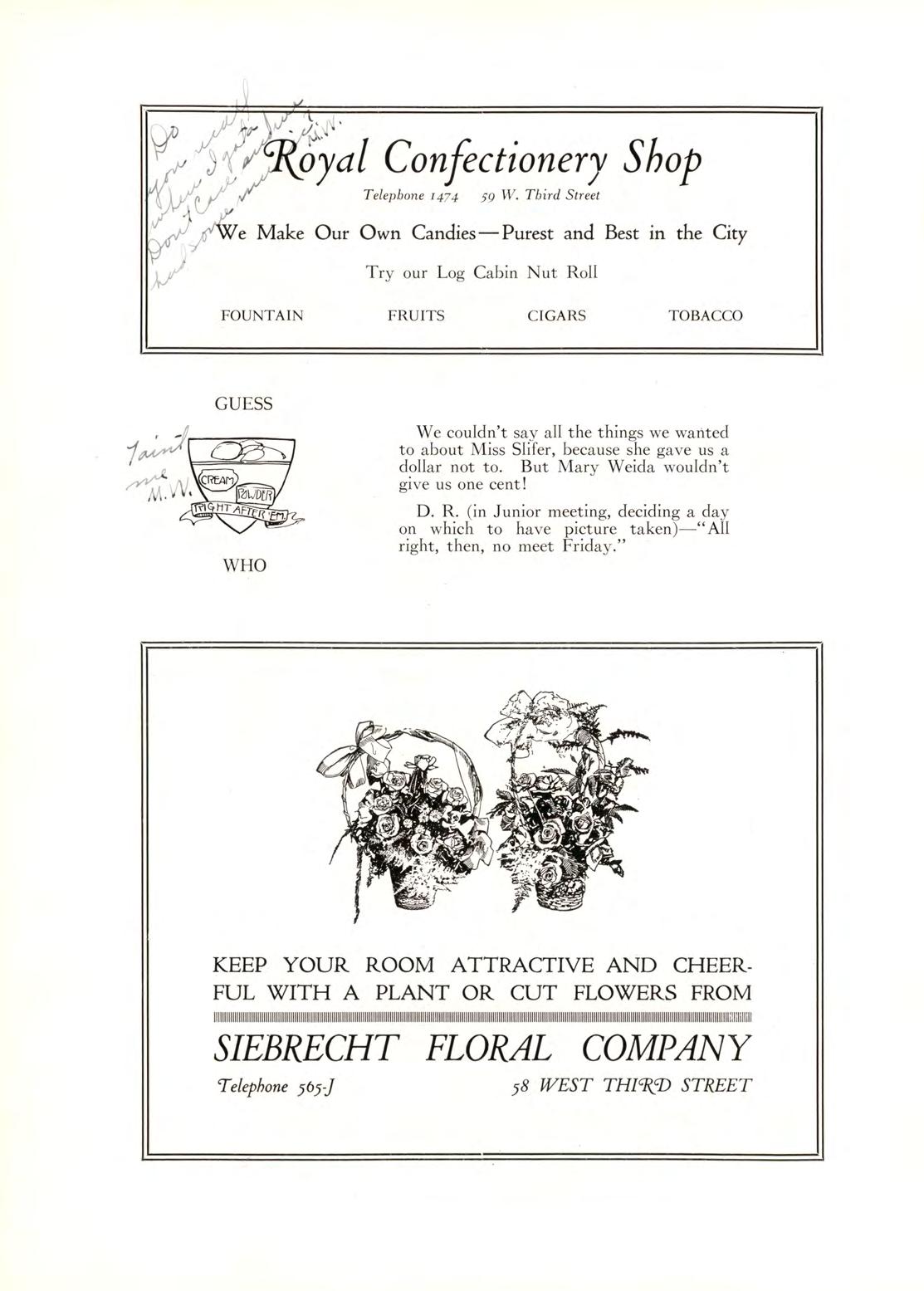
j/ y yj{/%óyal Confectionery Shop vf </' Telephone 1474 59 W. Third Street e Make Our Own Candies Purest and Best in the City Try our Log Cabin Nut Roll FOUNTAIN FRUITS CIGARS TOBACCO
GUESS
KEEP YOUR ROOM ATTRACTIVE AND CHEERFUL WITH A PLANT OR CUT FLOWERS FROM iiiiiiiiiiiiiiiiiiiiiiiiiiiiiiiiiiiiiiiiiiiiiiiiiiiiiiiiiiiiiiiiiiiiiiiiiiiiiiiiiiiiiiiiiiiiiiiiiiiiiiiiiiiiiiiiiiiiiiiiiiiiiiiiiiiiiiiiiiiiiiiiiiiiiiiiiiiiiiiiiiy SIEBRECHT FLORAL COMPANY Telephone pyj 38 ¡VEST THI%T> STREET
To Think That Paul
Once Weighed i6 pounds
A laundry advertises: “We finish collars and shirts.” So do lots of other laundries but they aren’t quite so frank as to admit It, say we.

THE WOES OE A ROLL TAKER
(Seen on a roll slip for absentees): N. B.—E. Rogde was in Chapel this morning, but Mary Weida sits behind her.
Peggy Bolter—^“The Seniors say that we Juniors are always talking to inanimate objects.”
Gertie Weyranch—“What are they— the Seniors?”
Shirt Waist Laundering
requires machinery of the most approved design together with skillful operatives. These we have at your disposal. Send us anything you have. The more costly the garment is, the better we like it. We defy competition.
Georgette Waists a Specialty THE DAMM LAUNDRY
Mrs. Shelton’s Hairdressing Parlor
Green Junior Kindergartner, pointing to a sign, “Kgn. Dept.”—“How do you pronounce that?”
A burst of free speech in English HI:
“All the members of the faculty are just alike, except Mr. Munson.”
“What makes him so different?”
“Oh, he’s so original, and breezy!”
Dear Reader:
SCHULER’S
Junior—'‘Where do you get your rolls and cakes for the spreads or lunches?’’/-
Senior—“Oh, at Schulers, of course ! All of their bread and confections are delicious.’
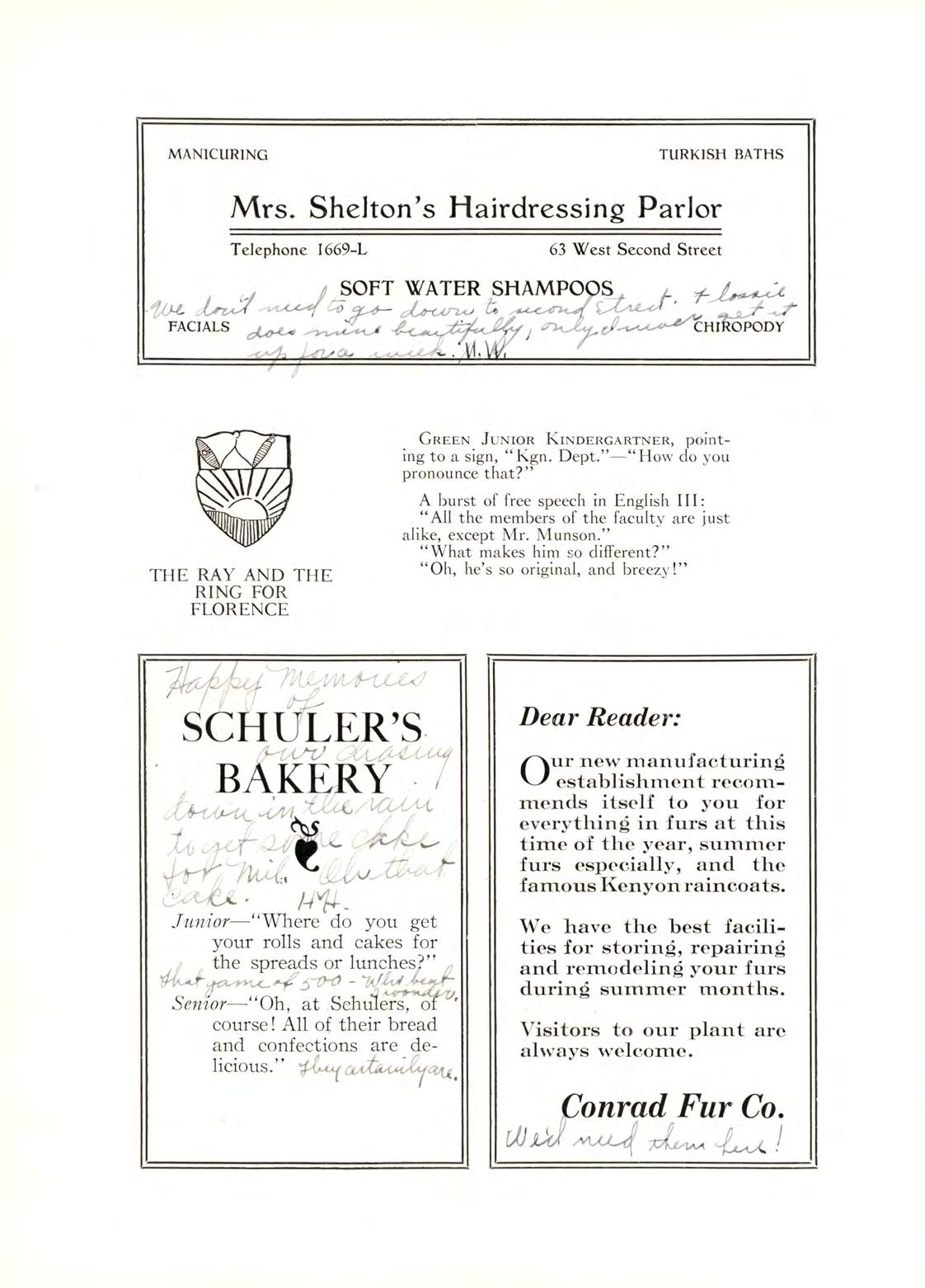
Our new manufacturing establishment recommends itself to you for everything in furs at this time of the year, summer furs especially, and the famous Kenyon raincoats.
We have the best facilities for storing, repairing and remodeling your furs during summer months.
Visitors to our plant are always welcome.
MANICURING TURKISH BATHS
f SOFT WATER SHAMPOO!^ / FACIALS '<J - a /J^. ^Ü.. J] L(rLyiX> ^XSU^ ■cV CHifePODY
Telephone I669-L 63 West Second Street
THE RAY AND THE RING FOR FLORENCE
.-C am. .,Gt' 'X€UM. / / Ají- /v^.
ct\j^
Conrad Fur Co. illJLjc/
A NEW BIRD
Mil (after having lamented the faet that she had to teaeh her elass about the kangaroo and the ostrieh)—“Mary, what should Í teaeh about a bird?”
Mary—“Whieh one, the ostrieh or the kangaroo?”
M. Hodgins—“If my tooth doesn’t stop aehing soon, the dentist said he’dhave to give me an antiseptie!”
Mil has a voice really quite rare. But when those eyes wiggle It makes us all giggle; Such contortions we really can’t bear.
“The jolliest girl in school, they say, Is sporty Molly T. She wears her psyche on her neck, A knot where knots ought not be.”
DR. HOLDEN’S DRUG STORE
Nearest place for Students Supplies Drugs and Stationery
Phone 429-J 523 Huff Street
SOFT DRINKS ICE CREAM
SOME EOOLS THERE WERE
(After Kipling Again)
Some fools there were and they said ’tis naught
To compile a book with a little thought; The fools they tried it, and went distraught, Oh, never again will they be caught. Even as you and I.
The time, the labor, the thought they spent On binding, paper, and some on content. While others could play, as girls were meant; But fools must follow their natural bent, Even as you and I.
Their classmates came to kindly advise. But they tarried, instead, to criticize The masterpiece, and heart’s dear prize. But It isn’t fair to act too wise Till you’ve built one of your own.
BroiledChicken to Order
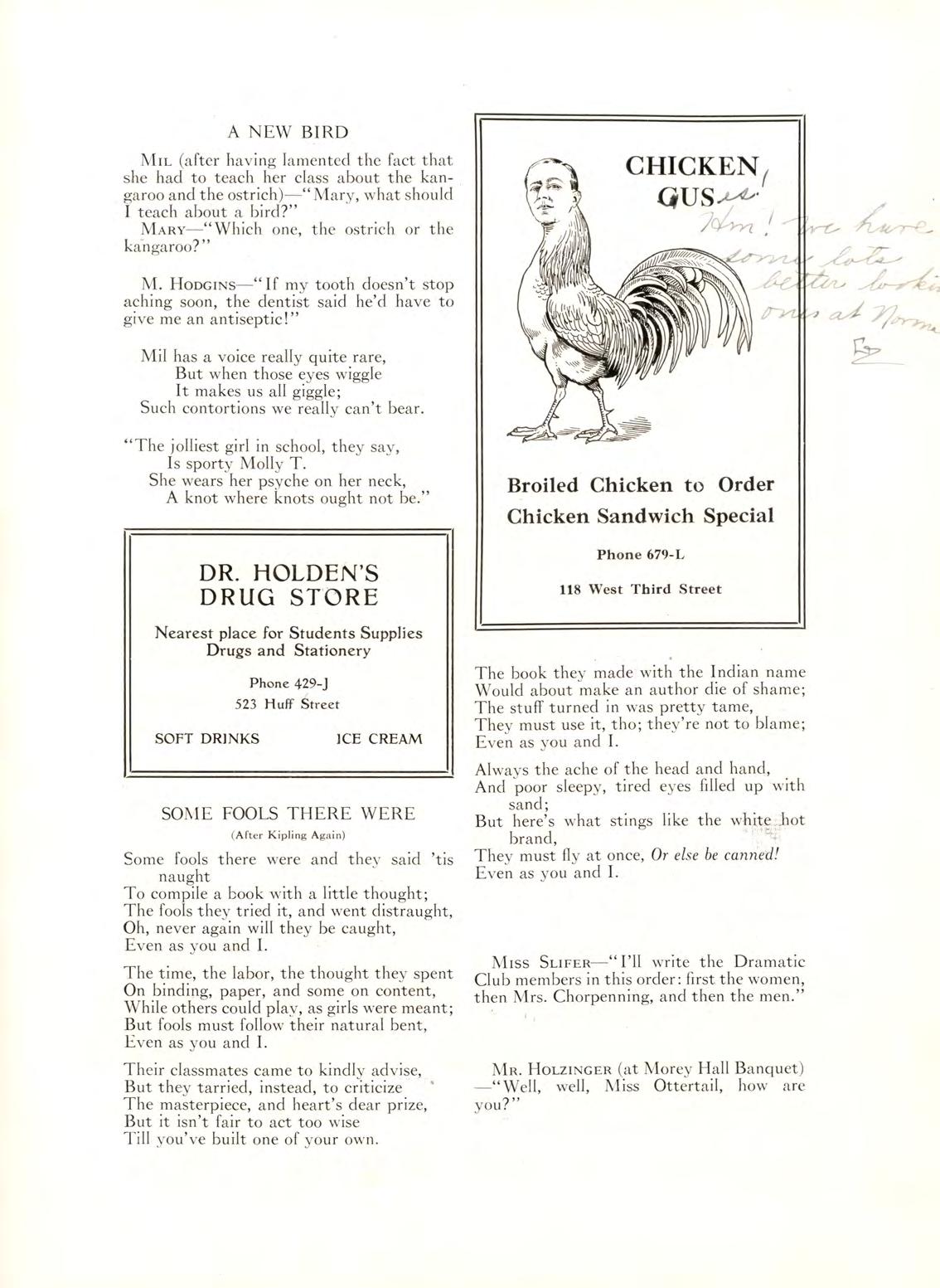
Chicken Sandwich Special
Phone 679-L
118 West Third Street
The book they made with the Indian name Would about make an author die of shame; The stuff turned in was pretty tame. They must use it,tho; they’re not to blame; Even as you and I. Always the ache of the head and hand. And poor sleepy, tired eyes filled up with sand; But here’s what stings like the white Jiot brand, A They must fly at once. Or else be canned! Even as you and I.
Miss Slifer—“I’ll write the Dramatic Club members in this order: first the women, then Mrs. Chorpenning, and then the men.”
Mr. Holzinger (at Morey Hall Banquet) —“Well, well. Miss Ottertail, how are you?”
¿1 ^
CHICKEN.
A•H■e^•fio^!
Look back over the past years and ask yourself what other Engraving Institution, specializing in college annuals, has wielded so wide an Influence over the College Annual Field?
Ask yourself if College and University Annuals are not better today because of BUREAU PROGRESSIVENESS and BUREAU INITIATIVE?
You know that the BUREAU OF ENGRAVING, Inc. inaugurated the system of Closer Co-operation with college annual boards in planning and constructing books from cover to cover.
Our marked progress in this field commands attention. Our establishment is one of the largest of its kind in this country. Our Modern Art Department of noted Commercial Art Experts is developing Artistic Features that are making "Bureau” Annuals Famous for Originality and Beauty.
And again, the help of our experienced College Annual Department is ofinvaluable aid. Our up-to-the-minute system, which we give you, and our Instructive Books will surely lighten your Burden.
A proposition from the Natural Leaders in the College Annual Engraving field from an organization of over 150 people, founded over 17 years ago, and enjoying the Confidence and Good Will of the foremost Universities of this country, is certainly worth your while.
Is not the BUREAU OF ENGRAVING, Inc., Deserving of the Opportunity of showing what it can do for - YOU?
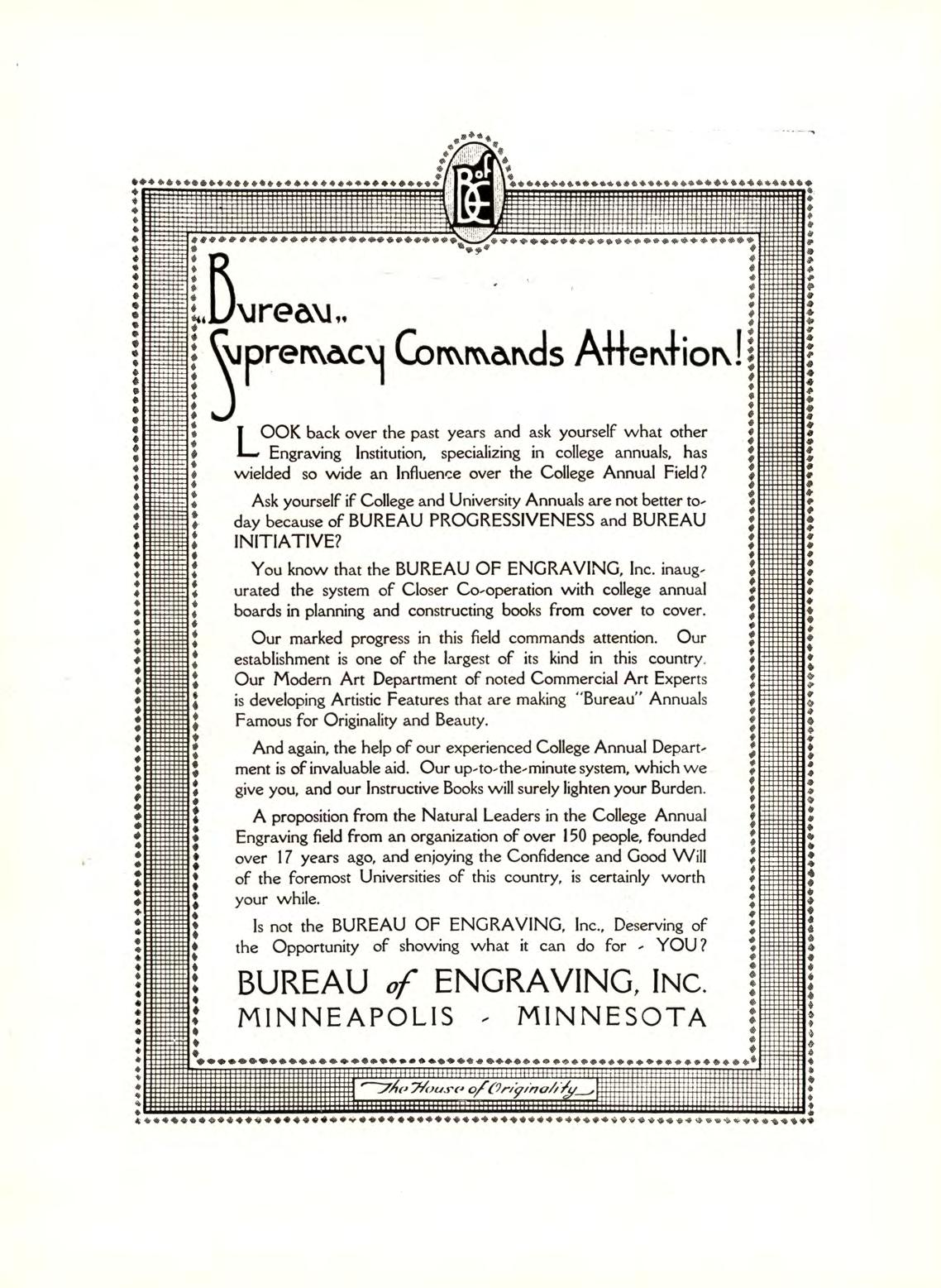
'\ireô\i
G)^^r^ôl^cls
^prer^àcxj
BUREAU of ENGRAVING, INC. MINNEAPOLIS MINNESOTA oZ^ous'O o/^Or‘/ç/na///L
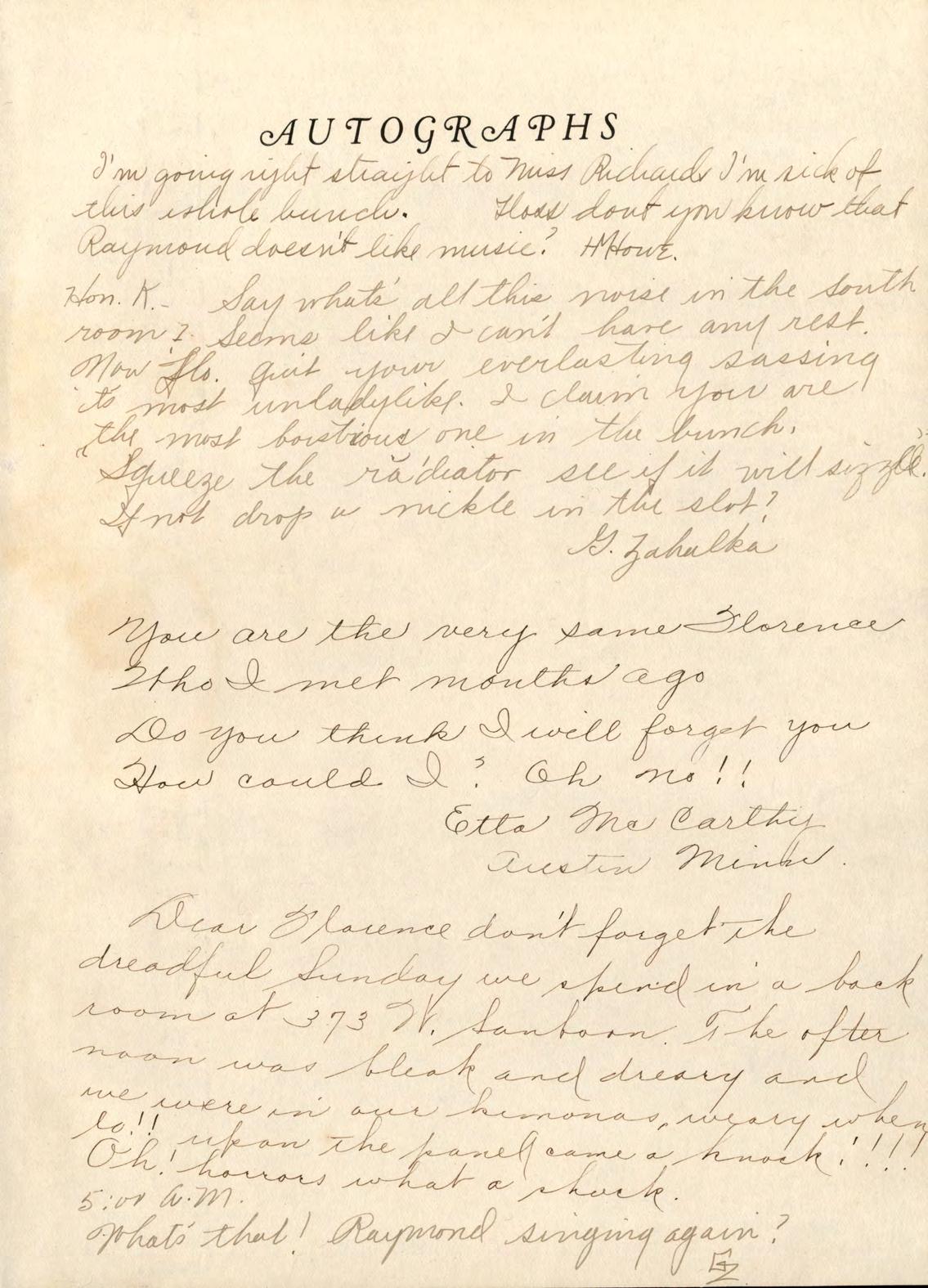
a4UT0Ç%cA^HS c^
'Tt'(xA-
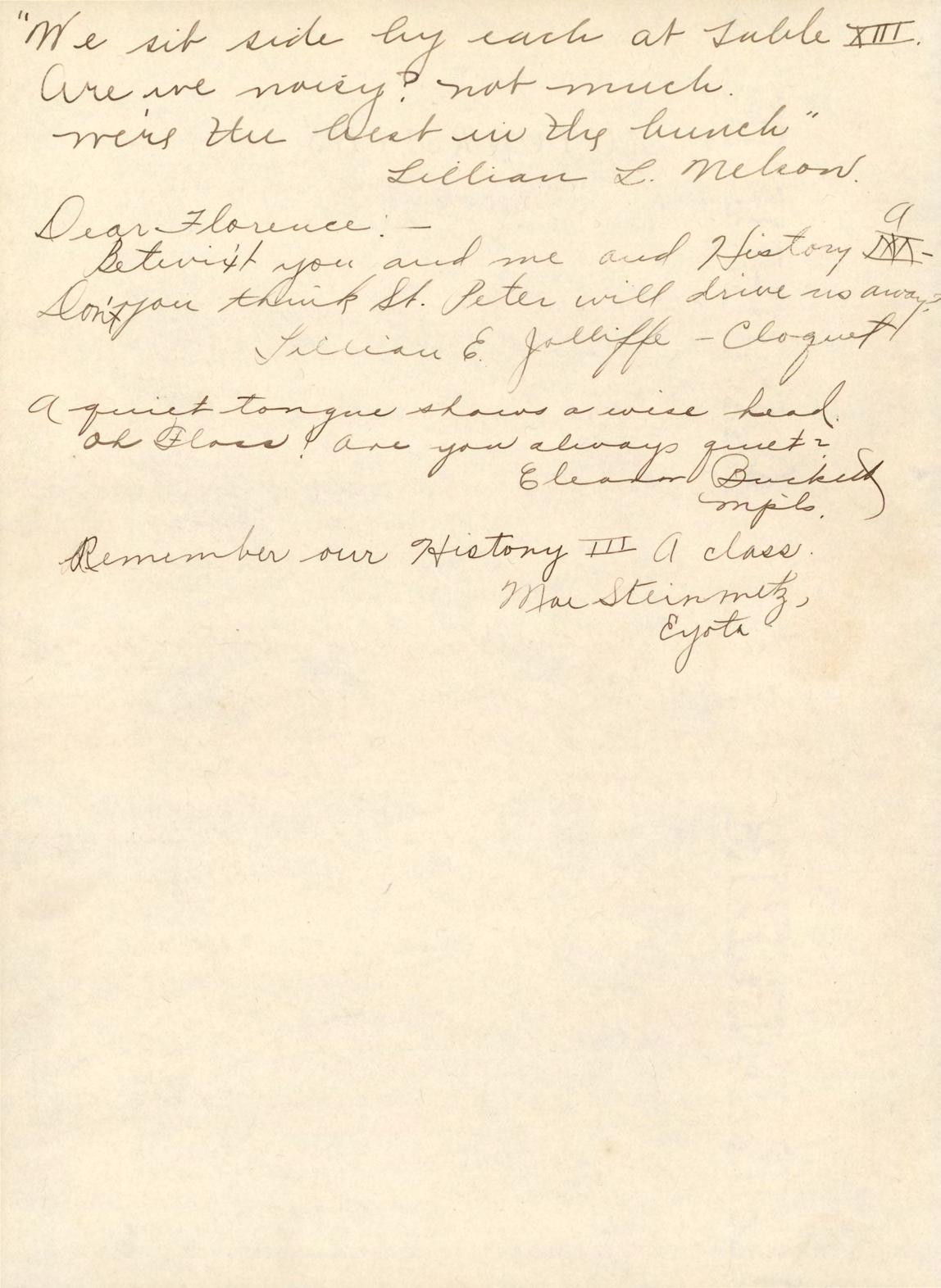
% '"'YY'-'C'^^^^ 27(>LyC^ ^-<.AyU


V





b¿ -I,
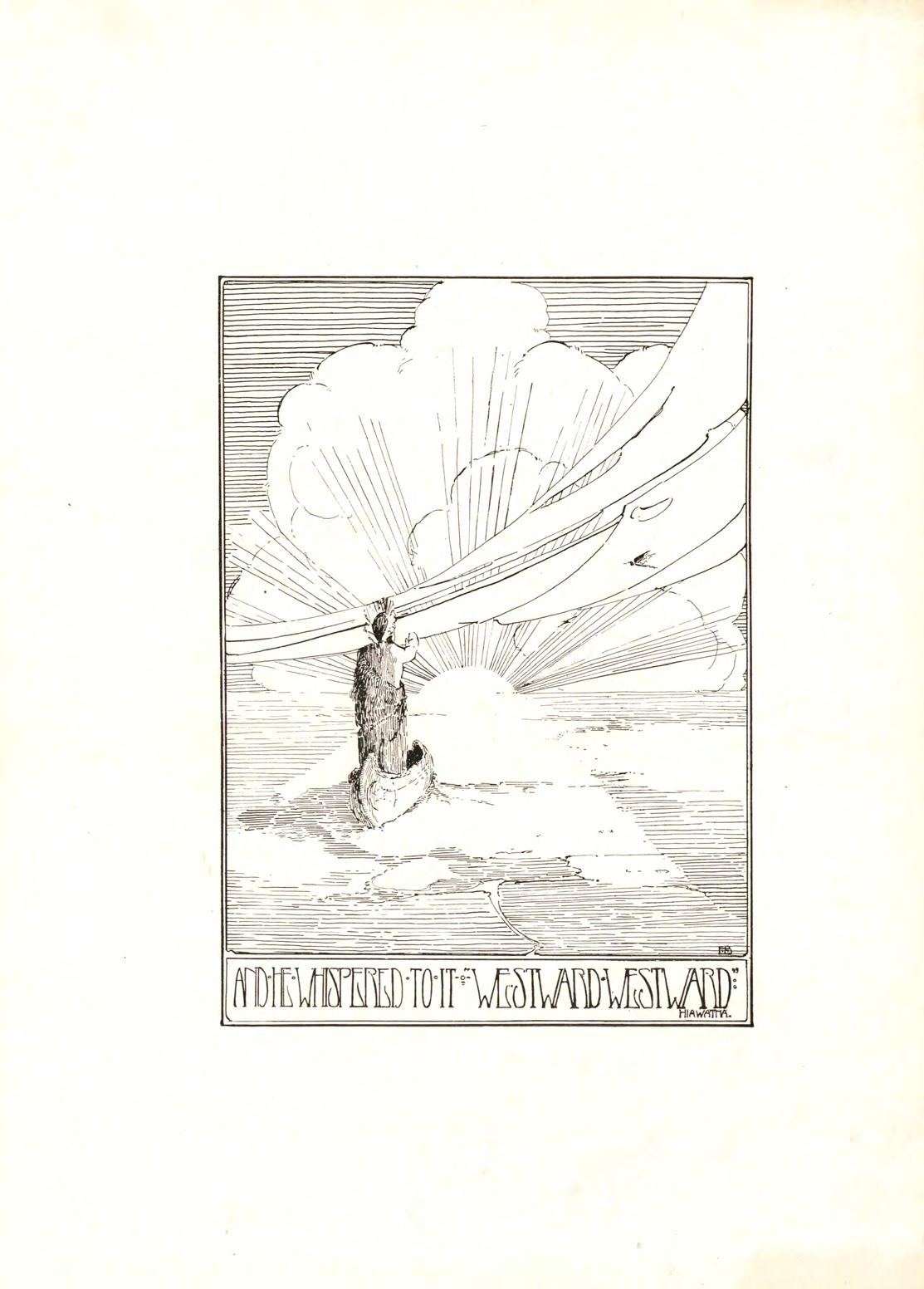











 Sugar Loaf
Sugar Loaf












































 Mildred Hodgins
Mildred Hodgins


 Marguerite Conhaim
Marguerite Conhaim

 By Lovering Flannery
By Lovering Flannery

 M. C.
M. C.























 Gay Ferrey
Gay Ferrey




 The Basketball Team
The Basketball Team

 The Football Team
The Football Team






 E. C.
E. C.






















 C. B. C.
C. B. C.

 Lelia Myers
Lelia Myers







































 Maxwell Cadillac Stutz Reo Chalmers SERVICE
Maxwell Cadillac Stutz Reo Chalmers SERVICE
 TELEPHONE 133-L 105 E. THIRD ST.
TELEPHONE 133-L 105 E. THIRD ST.




























